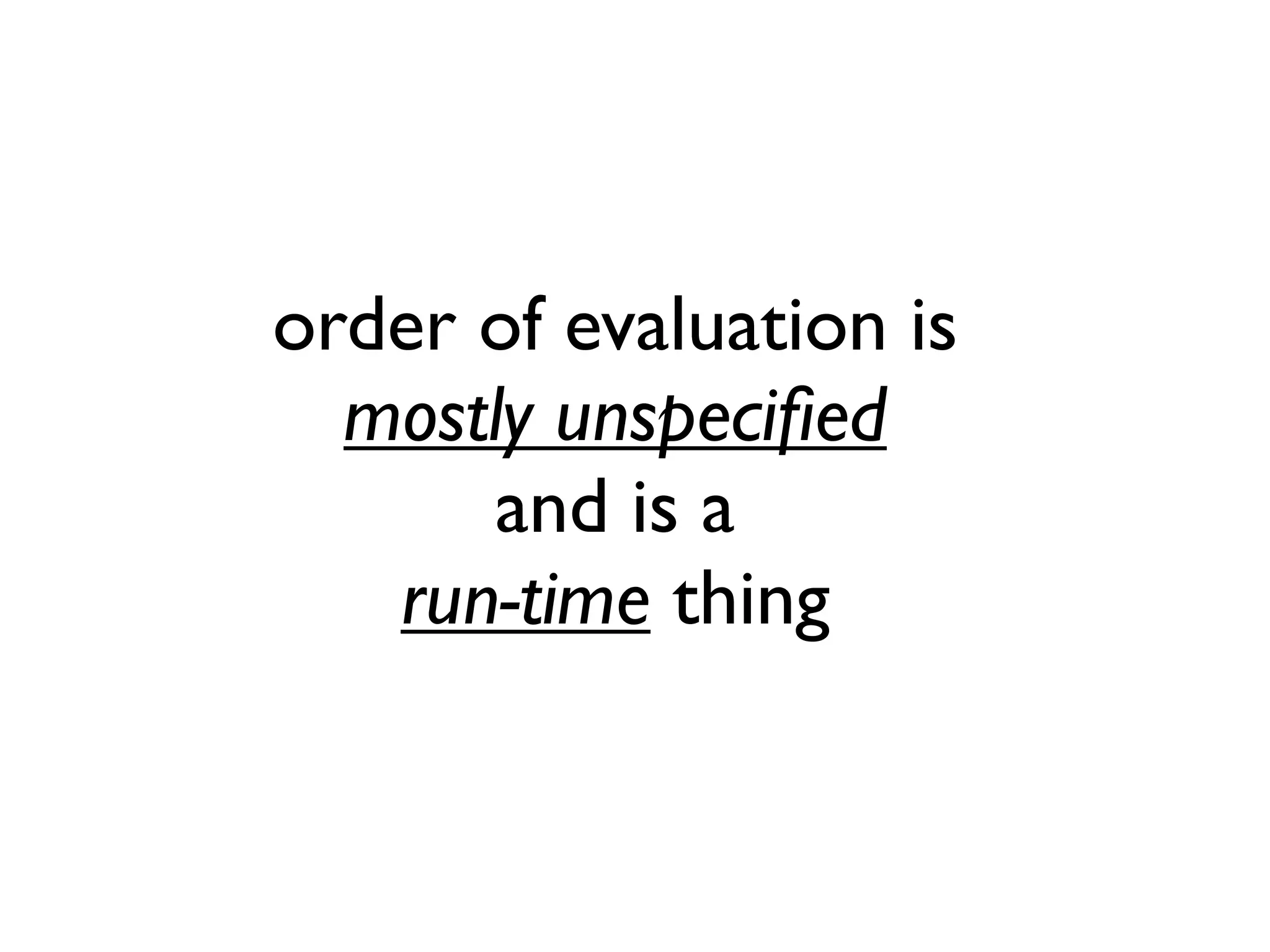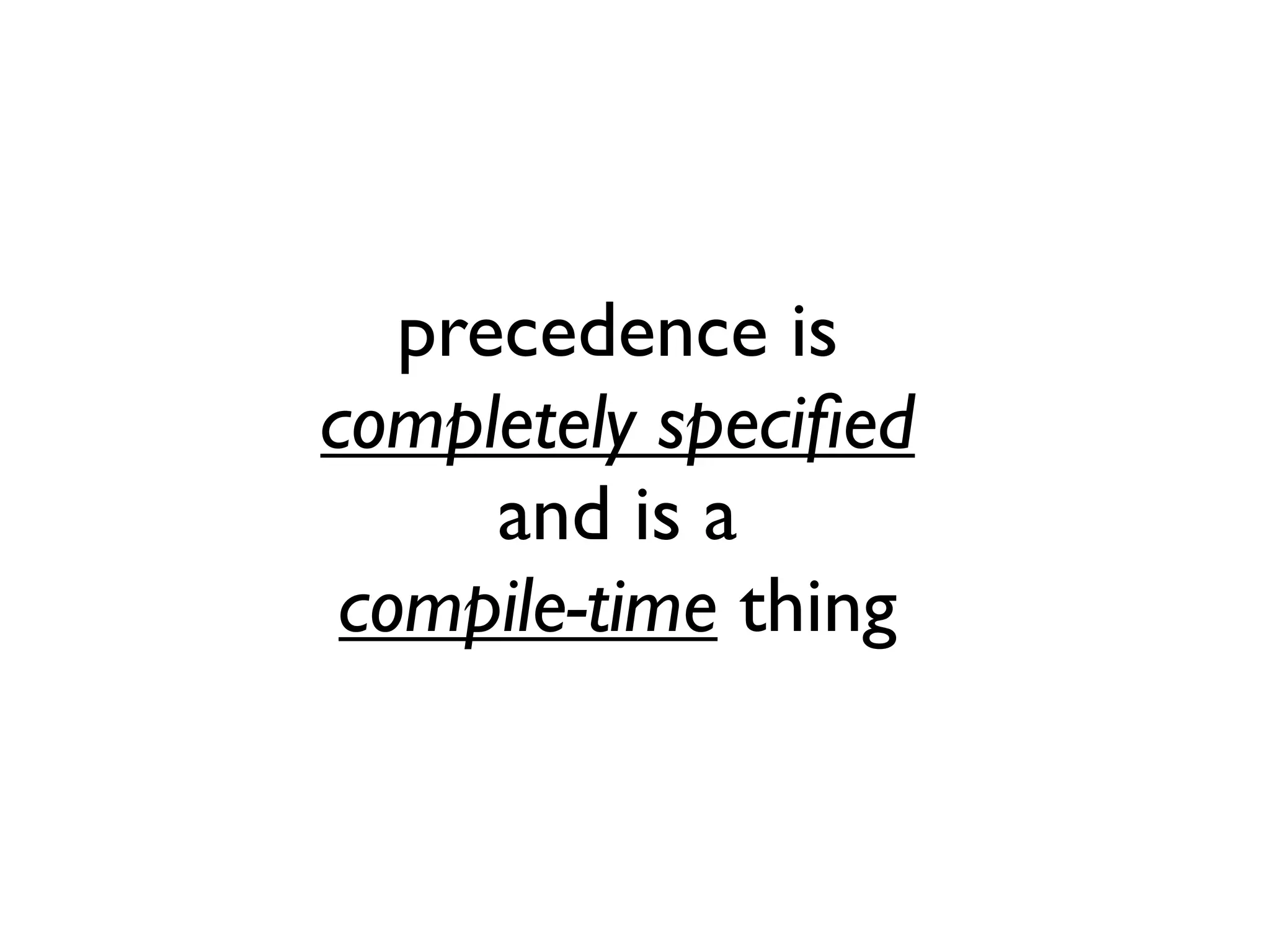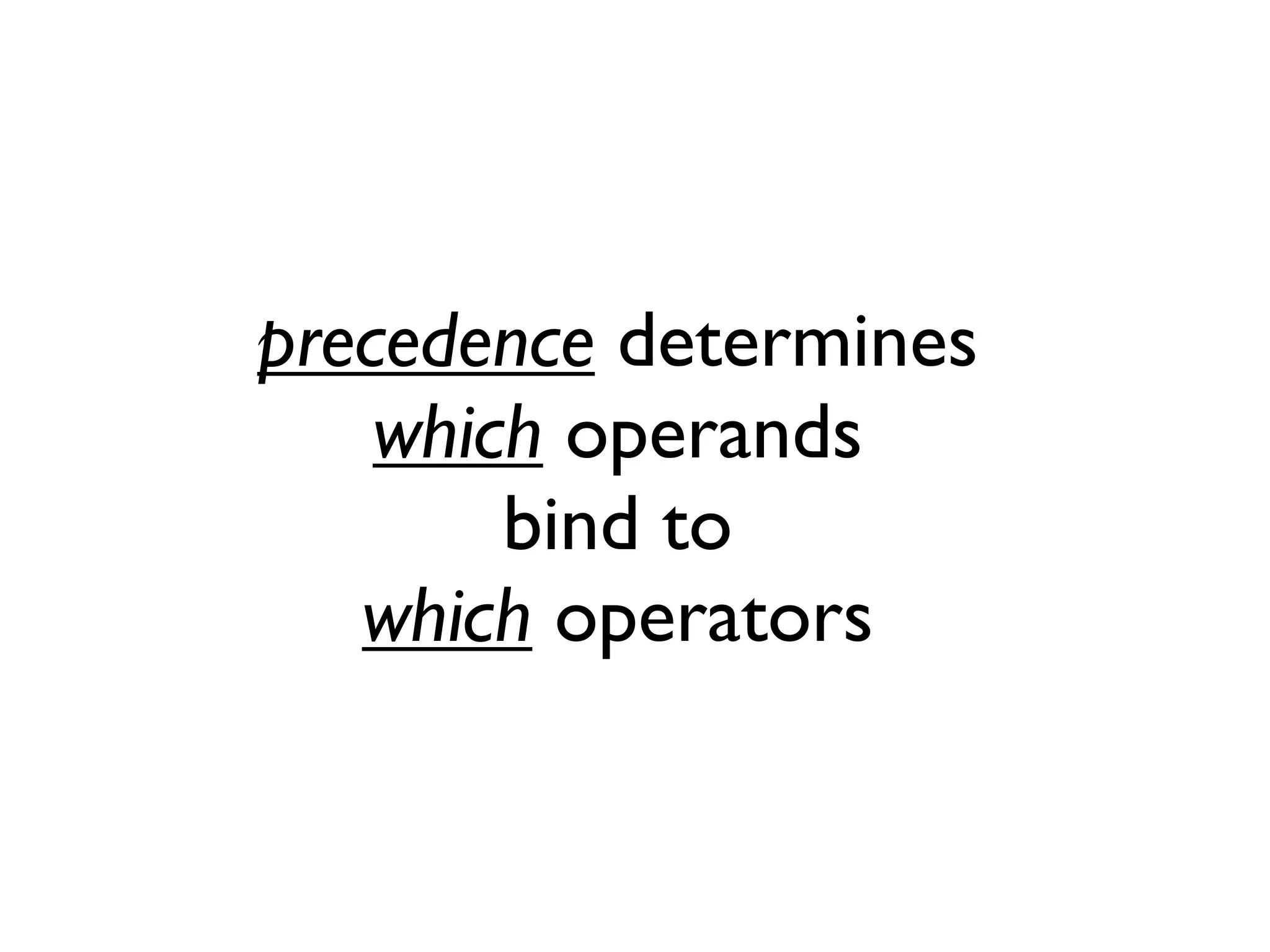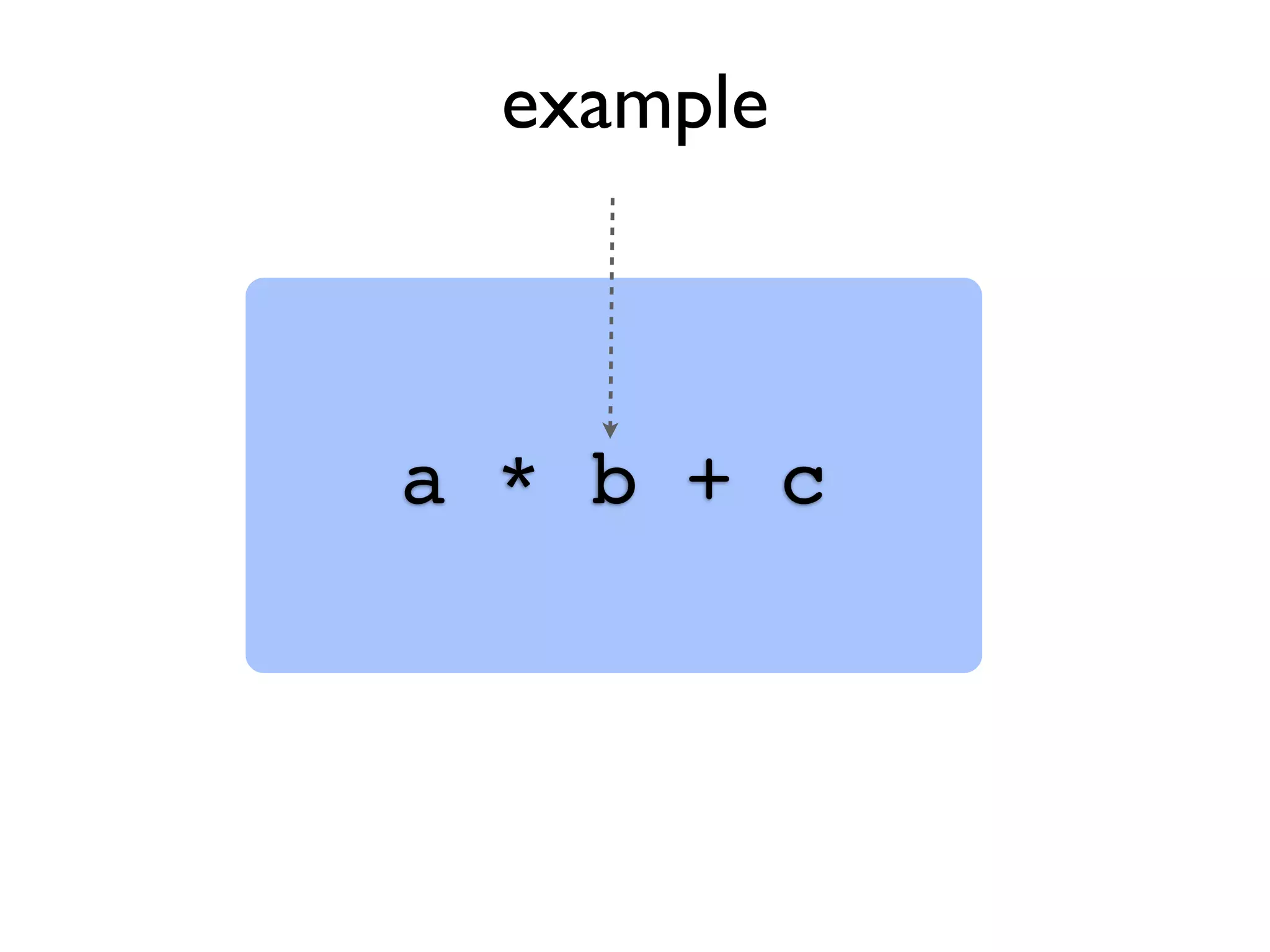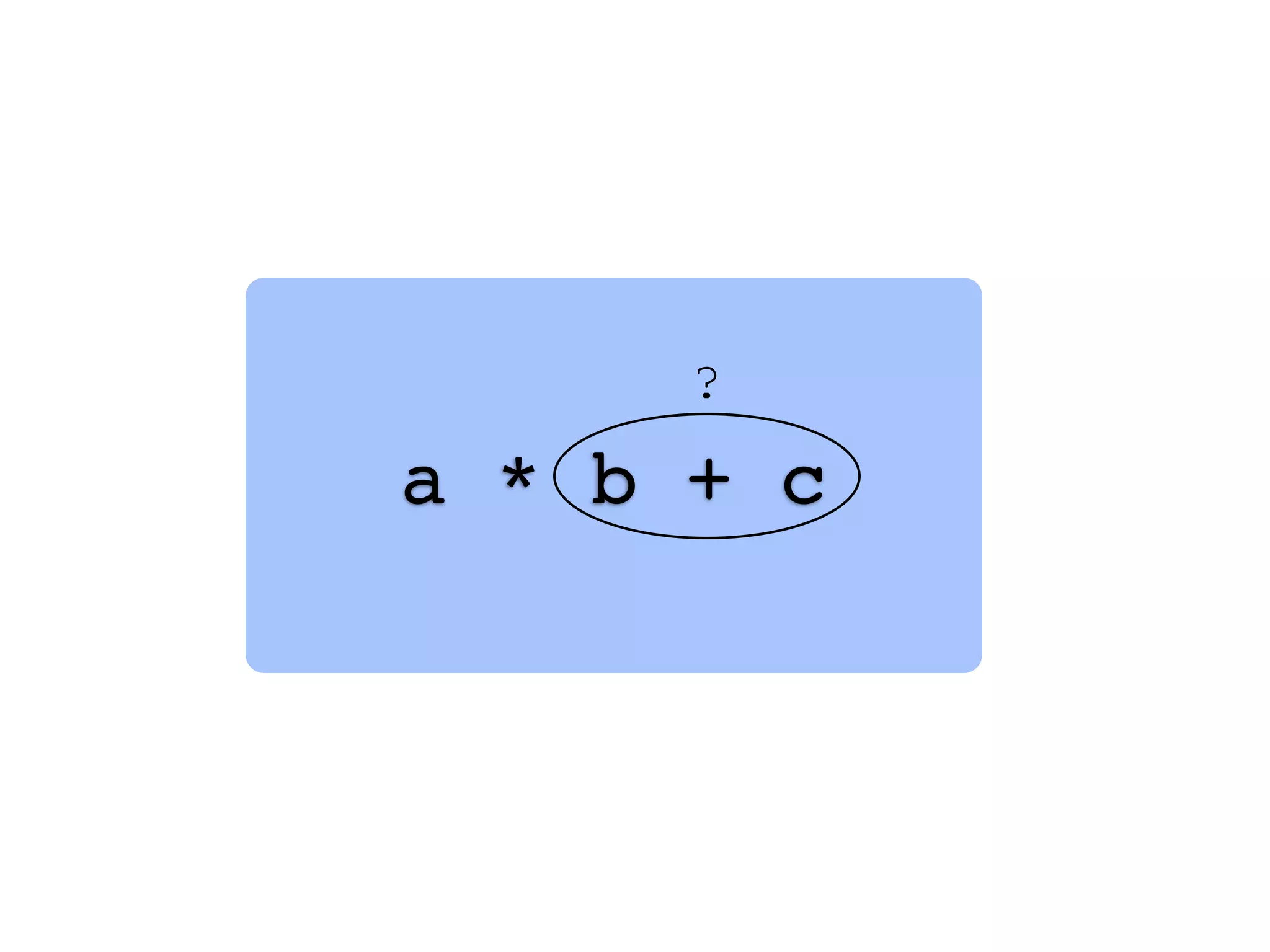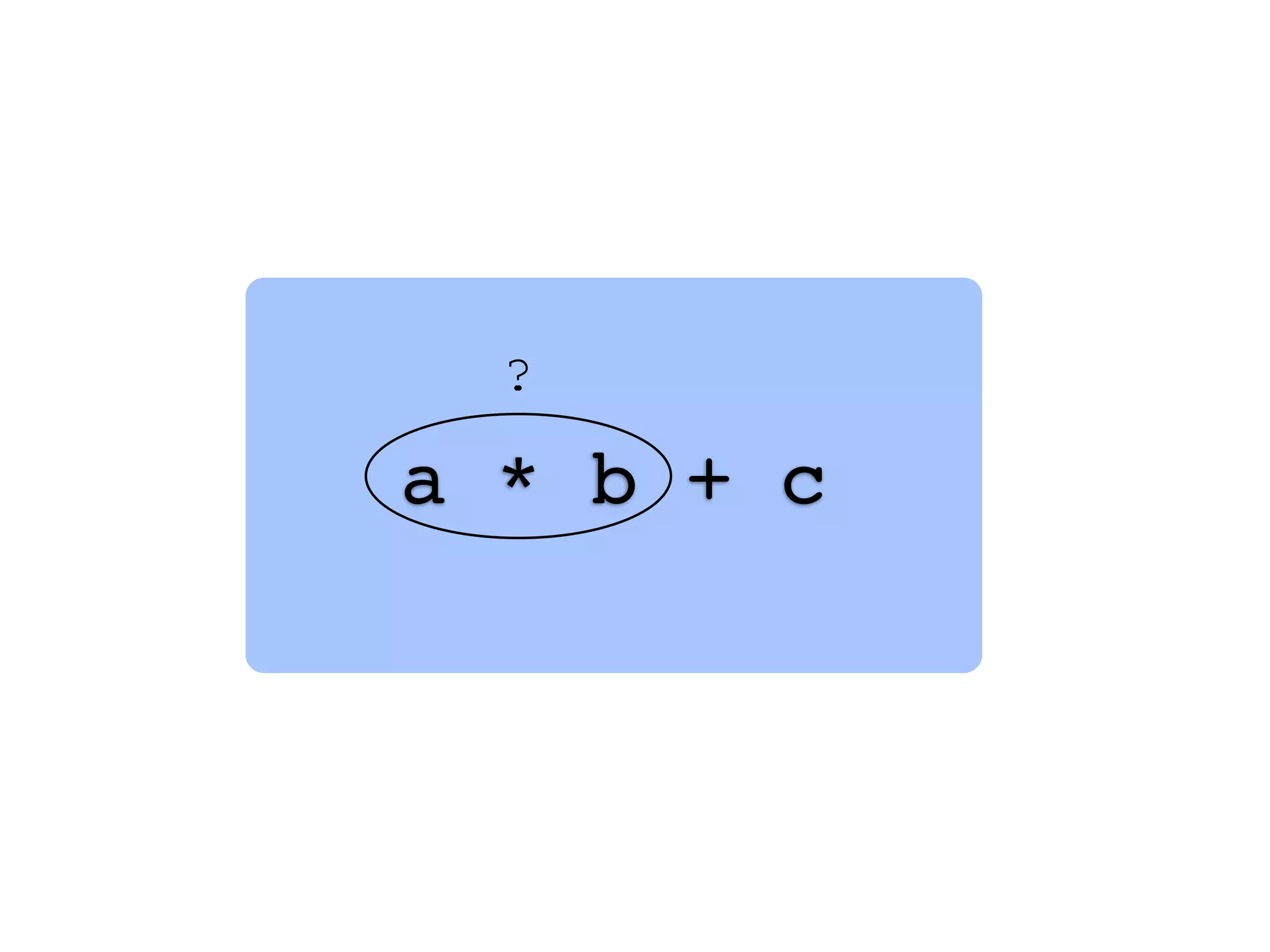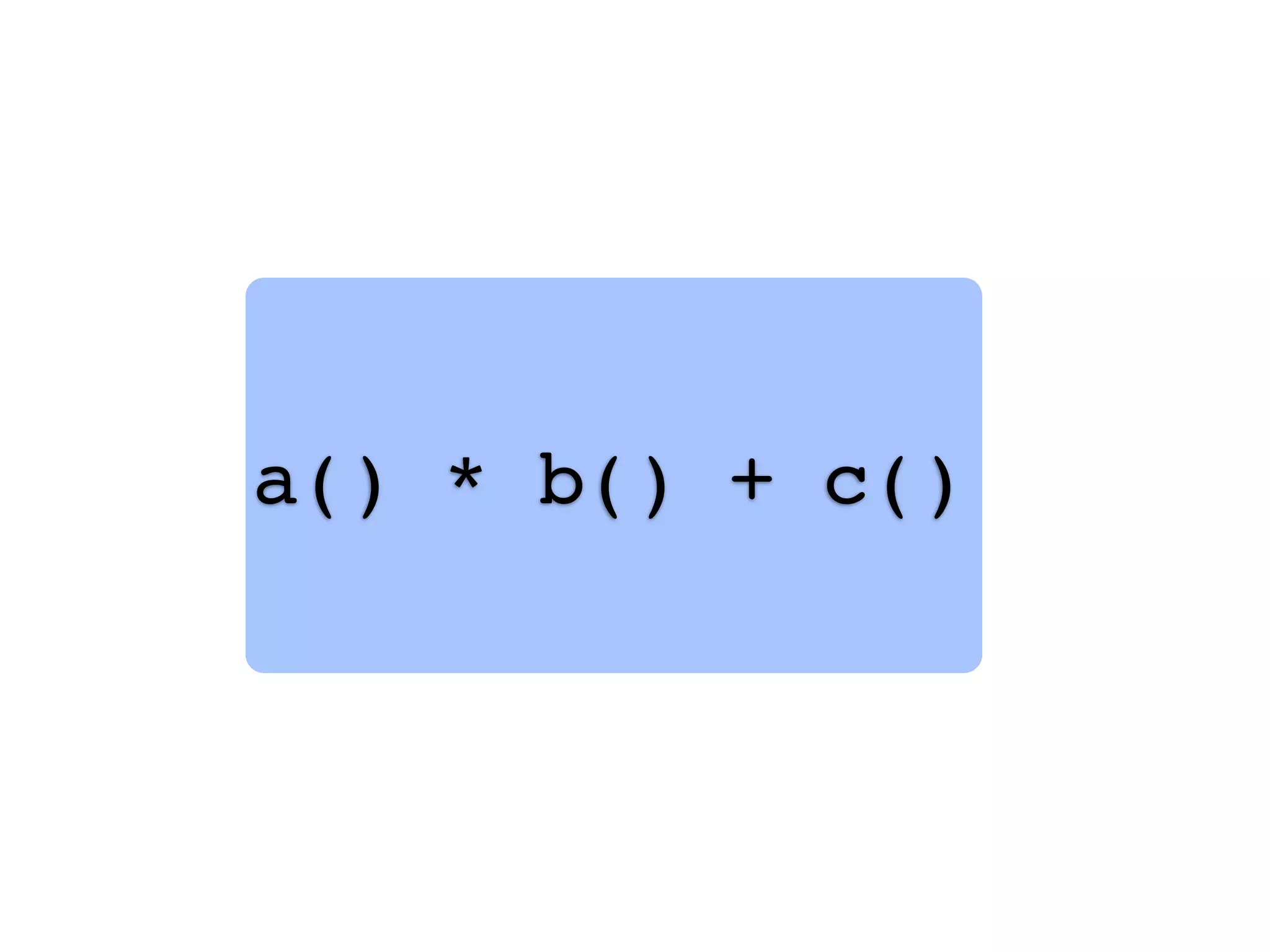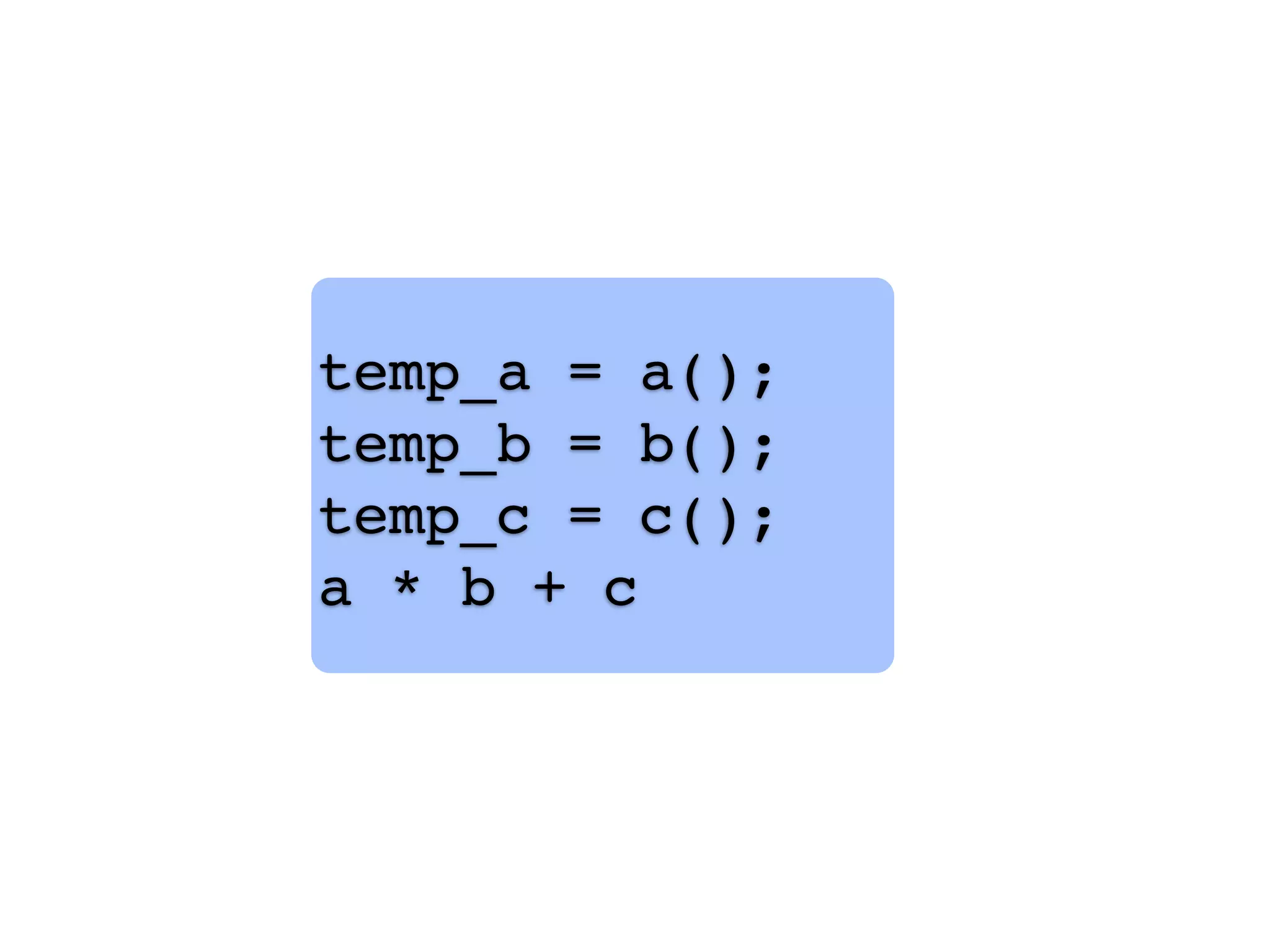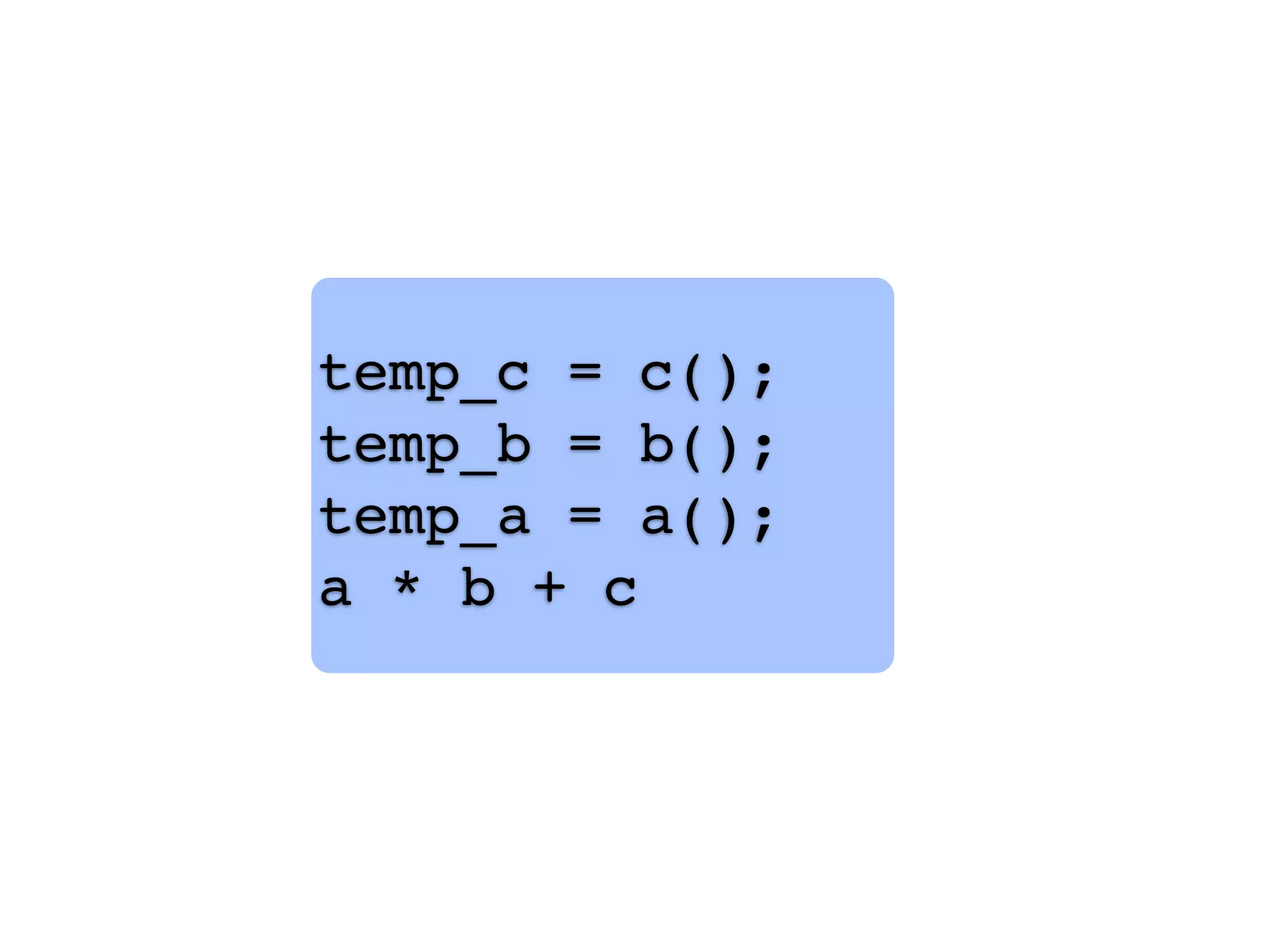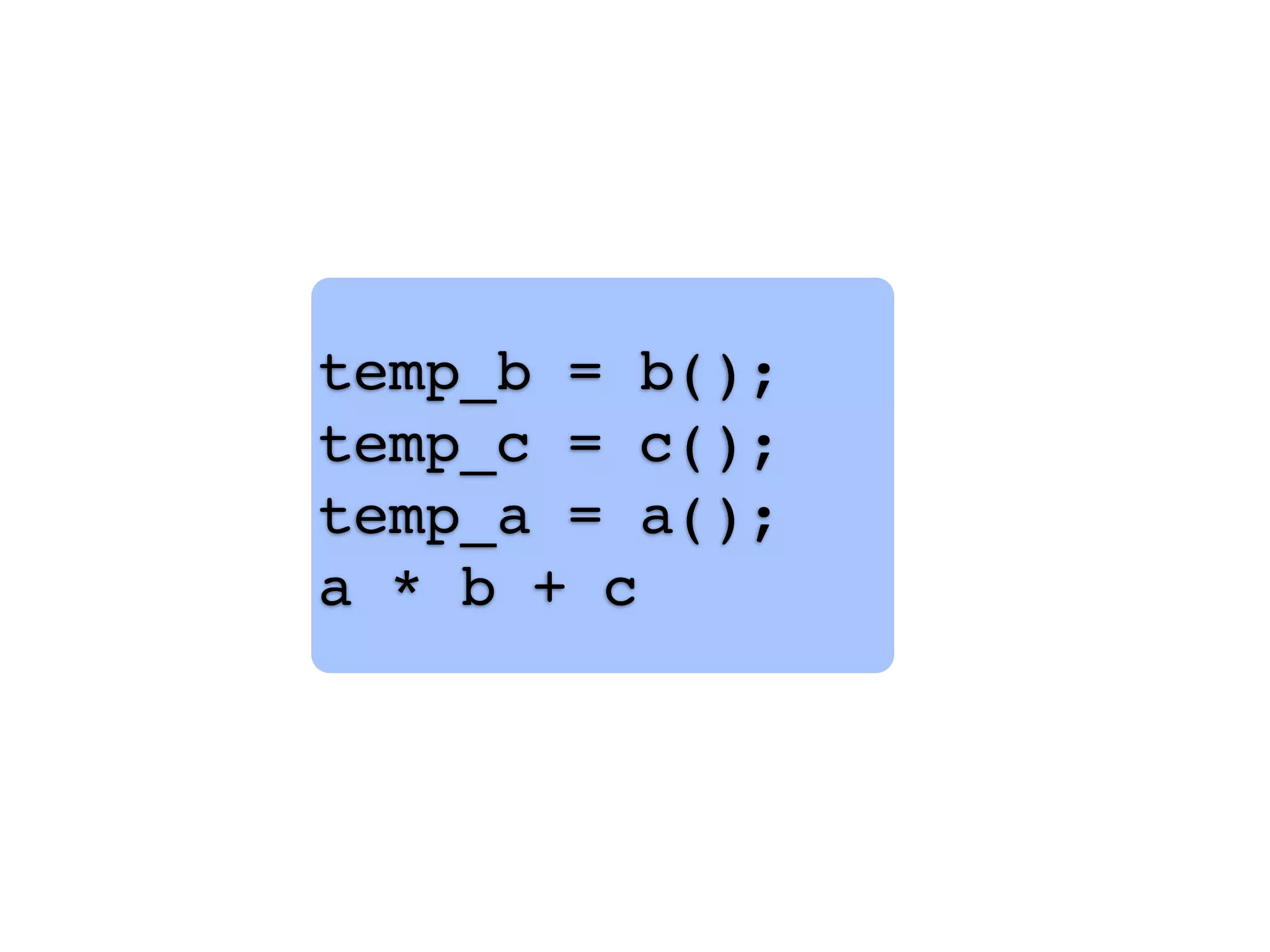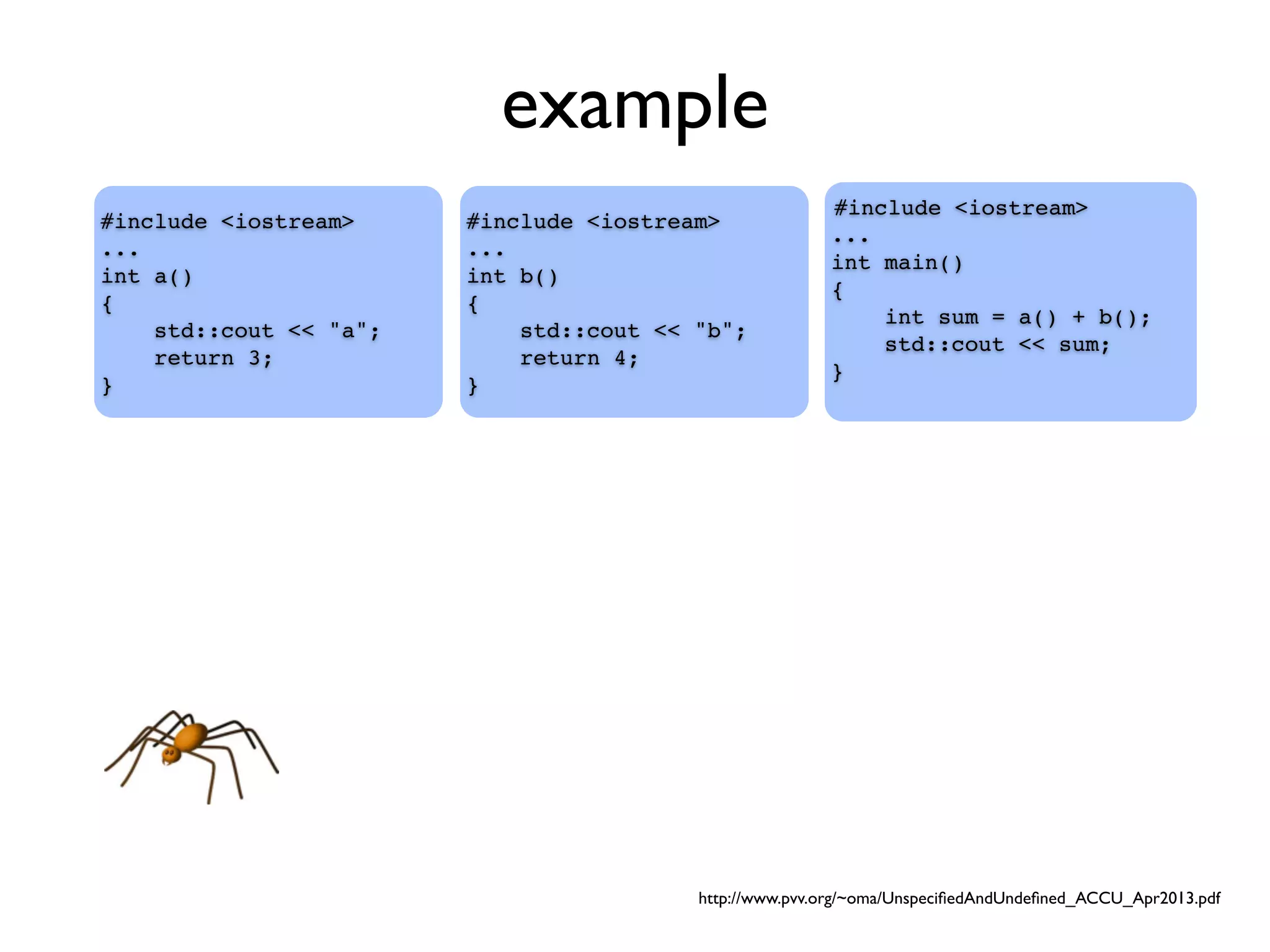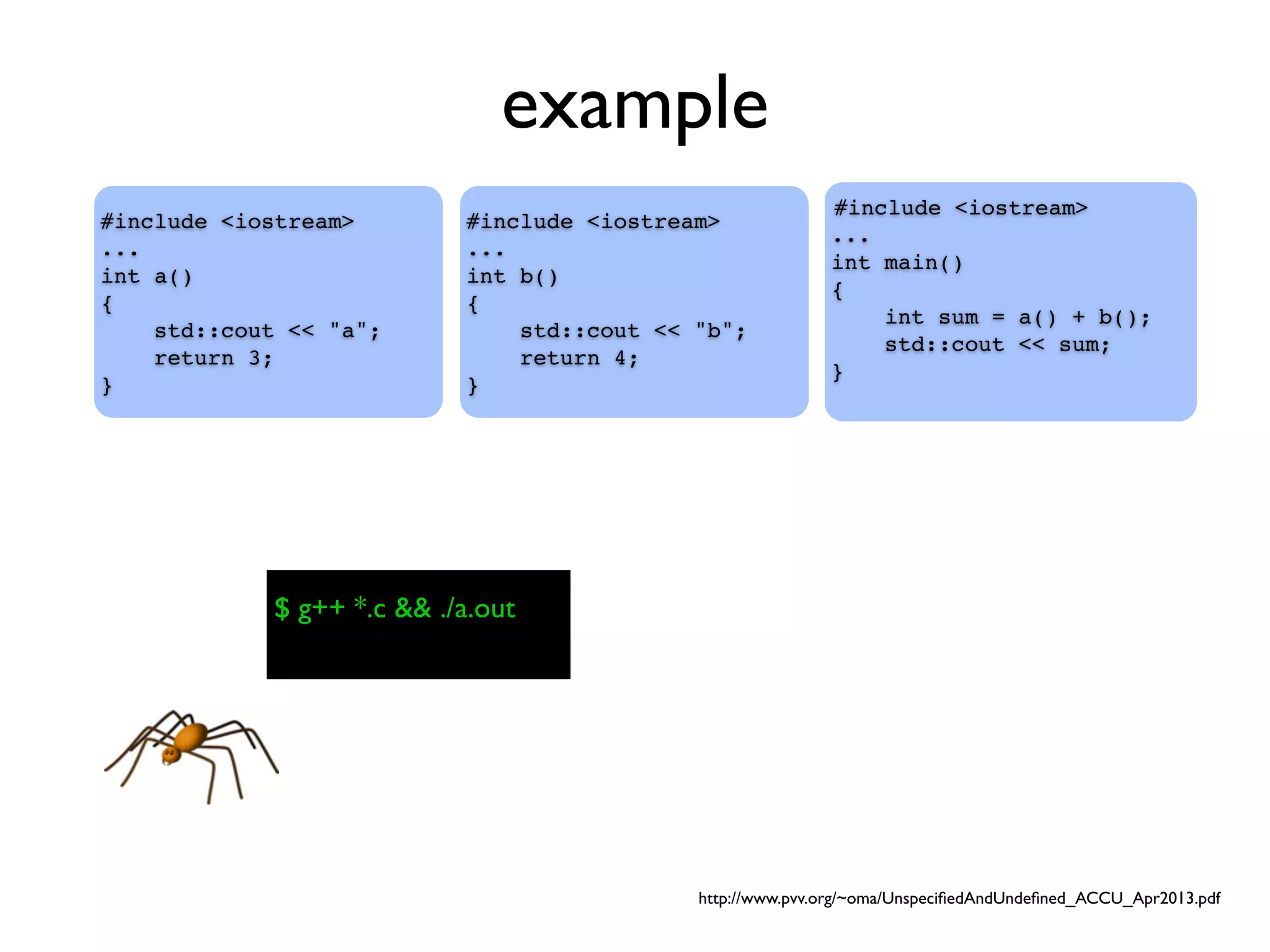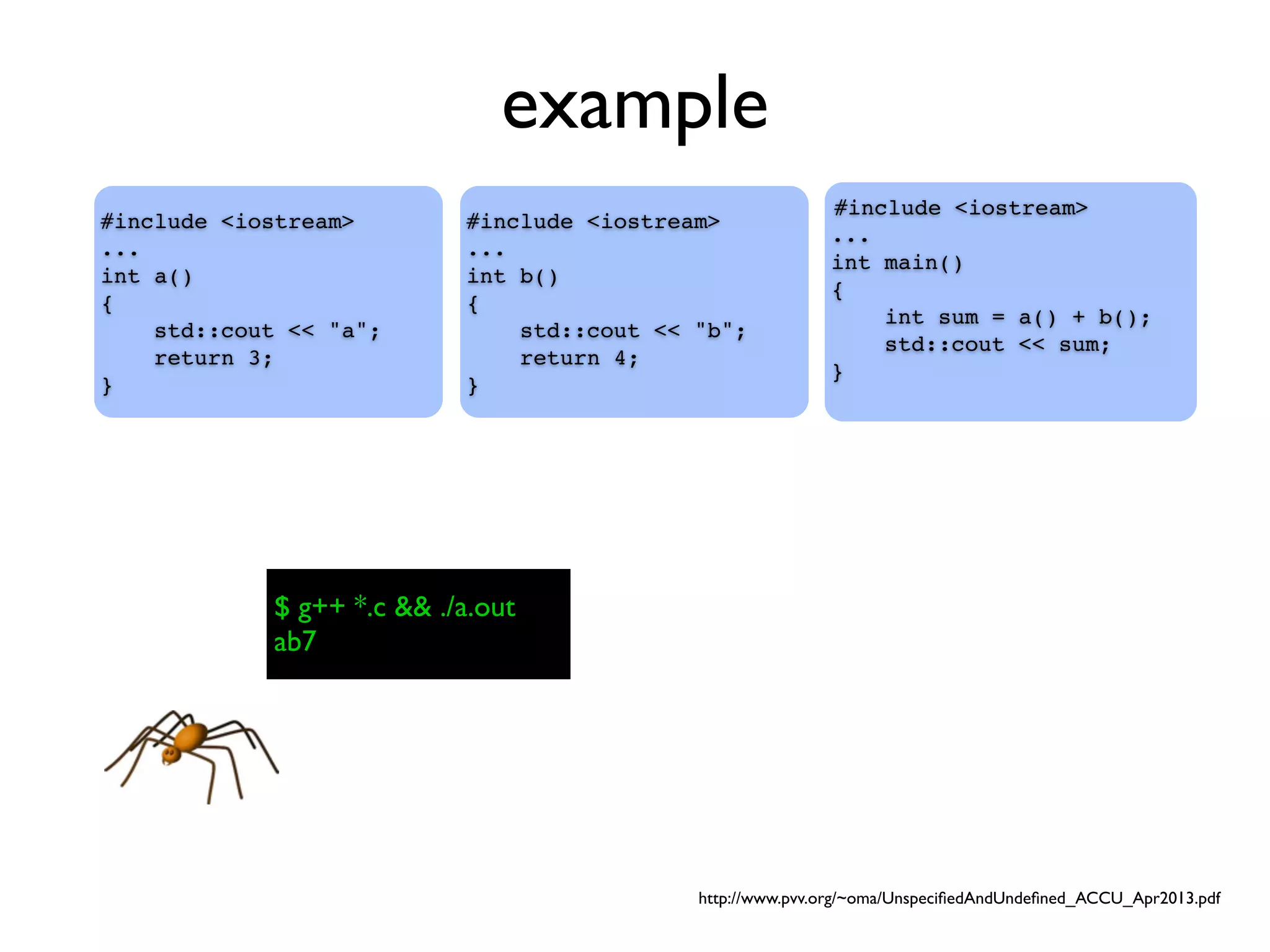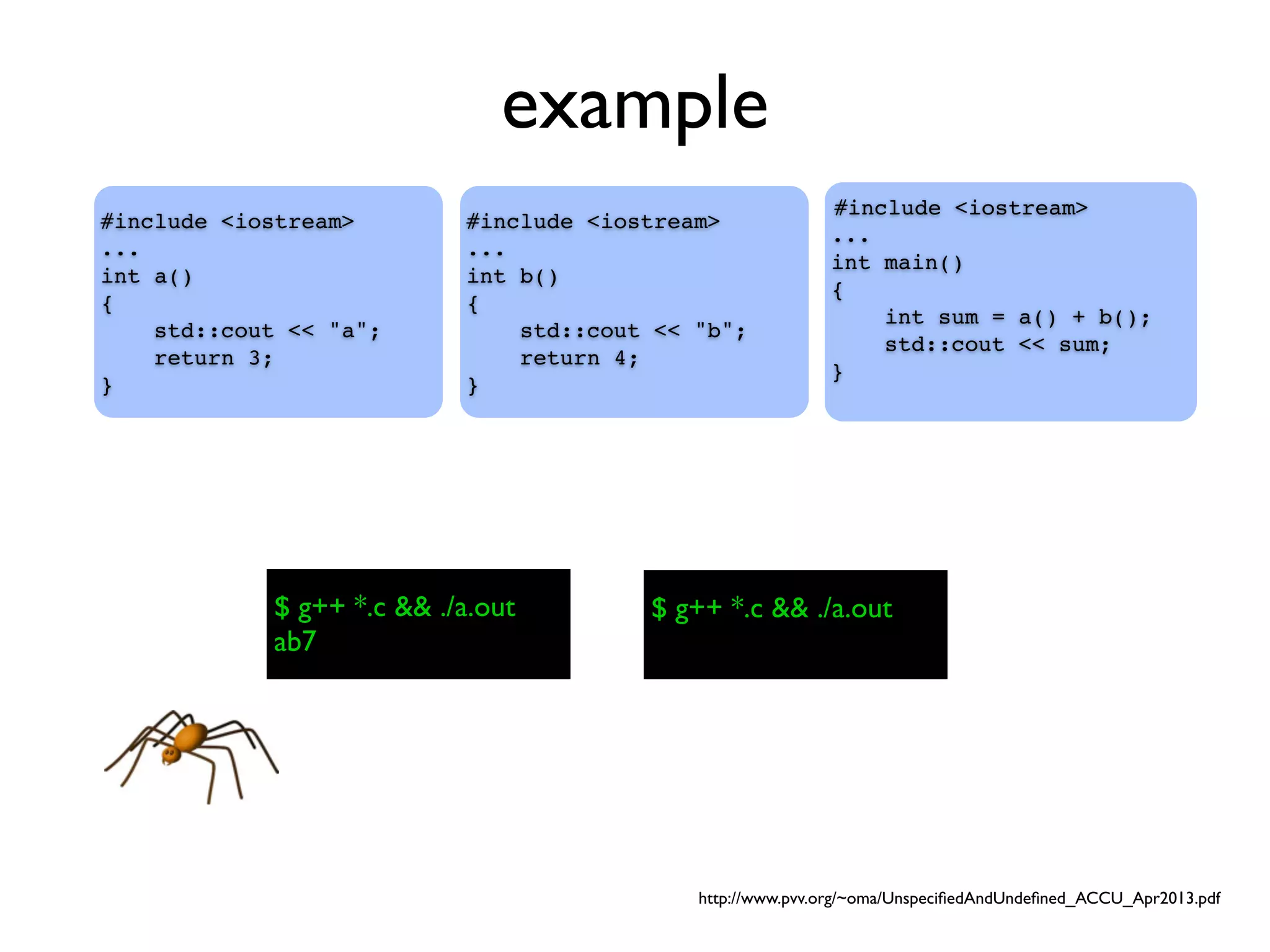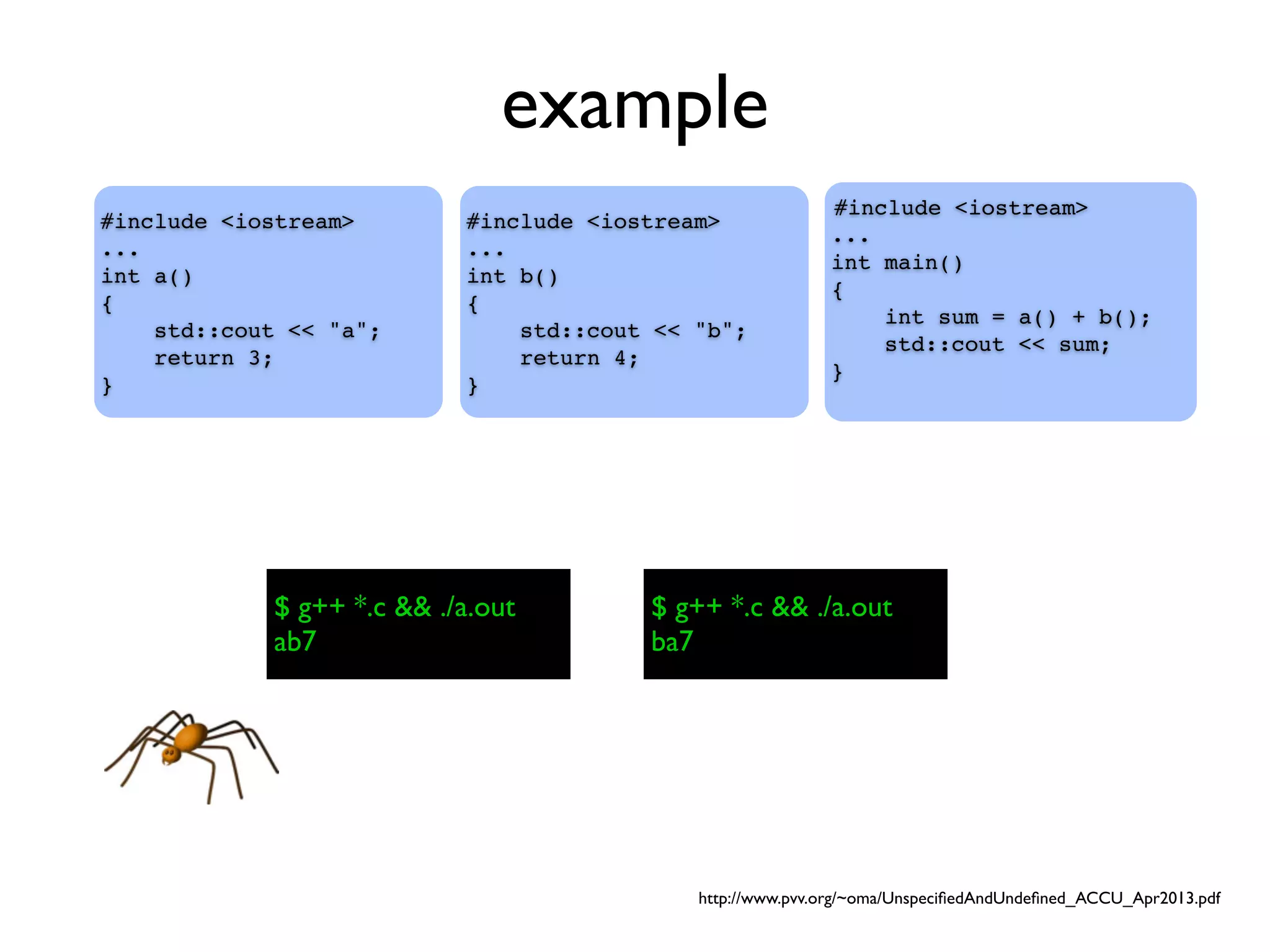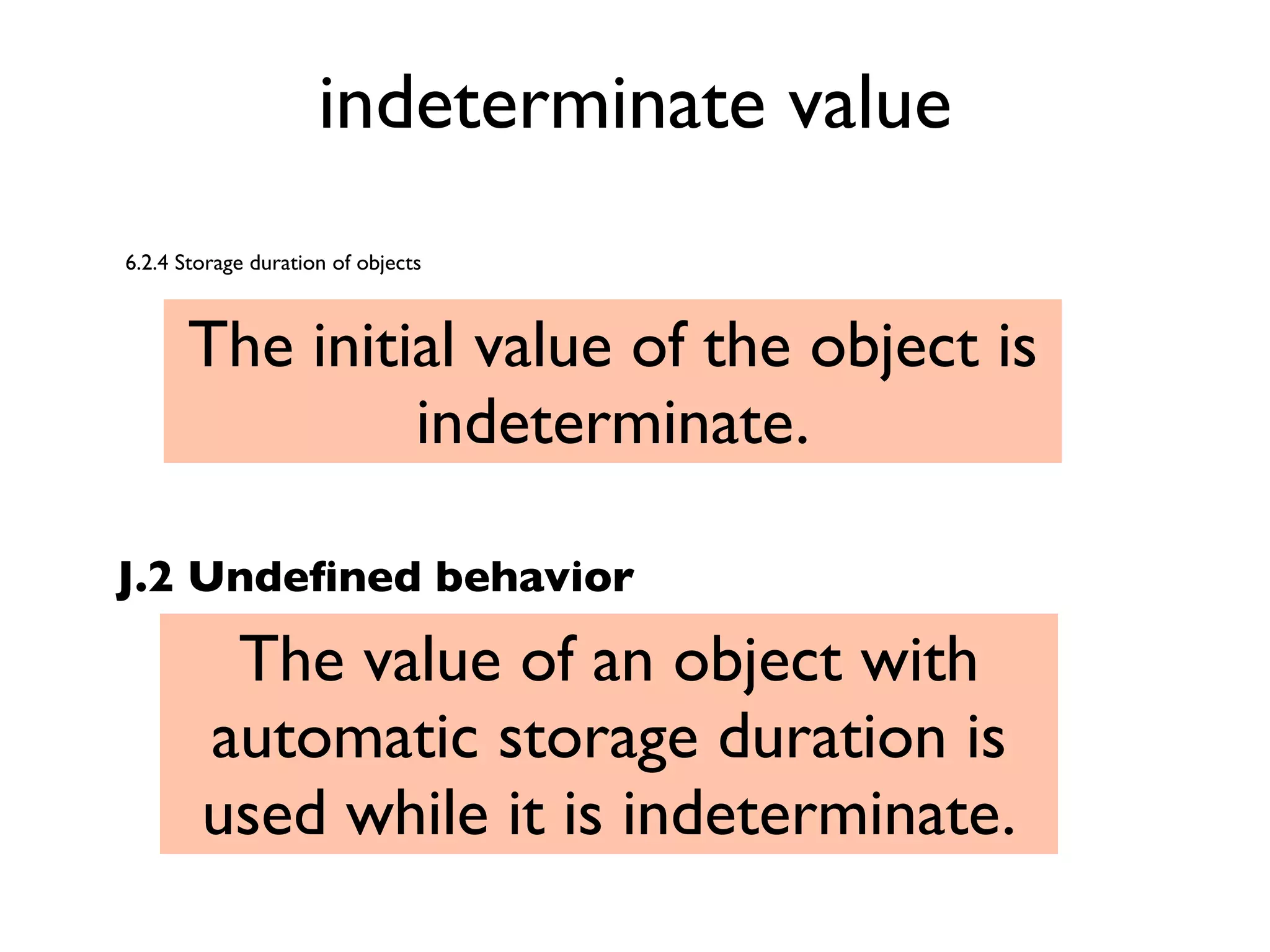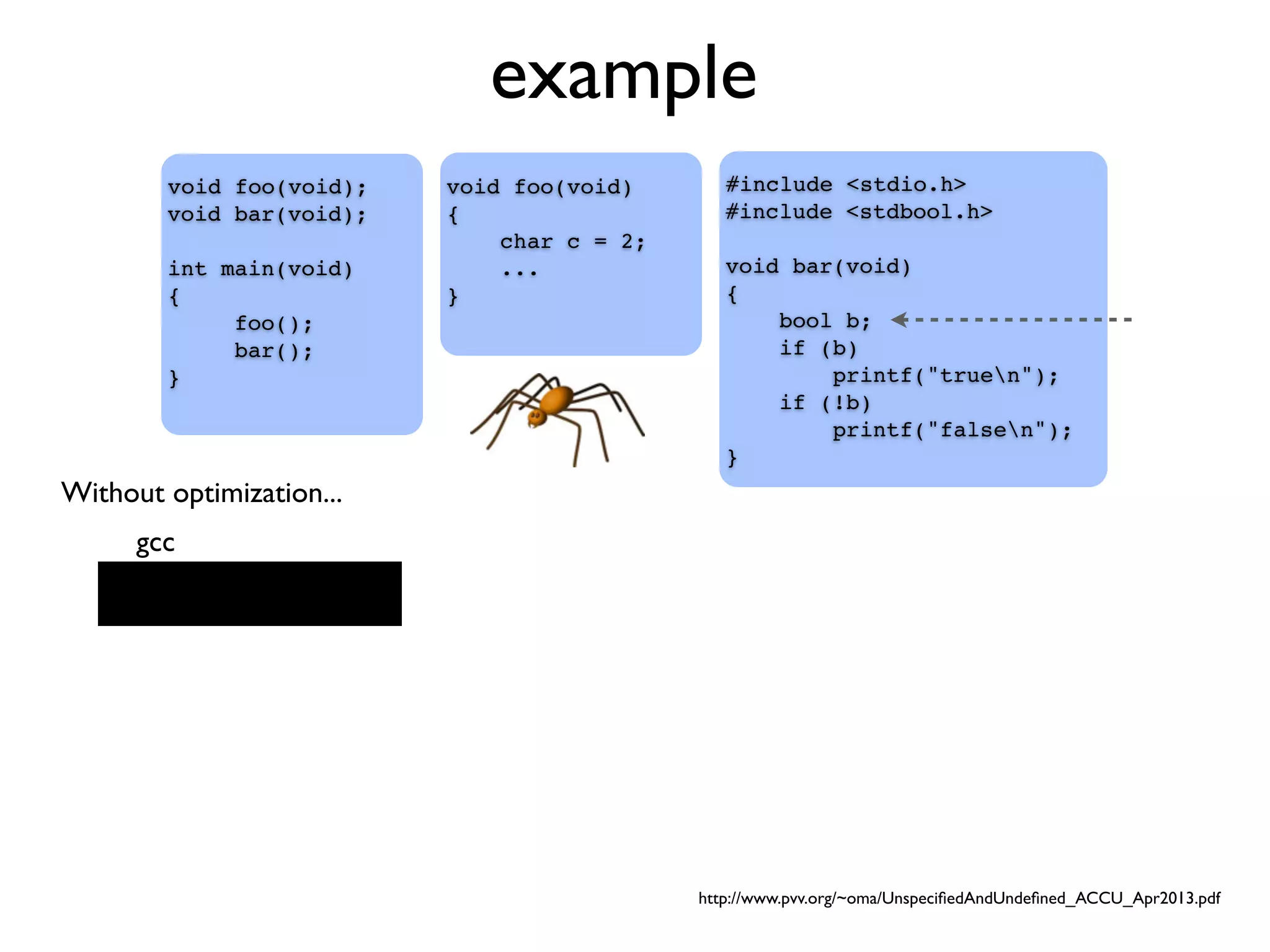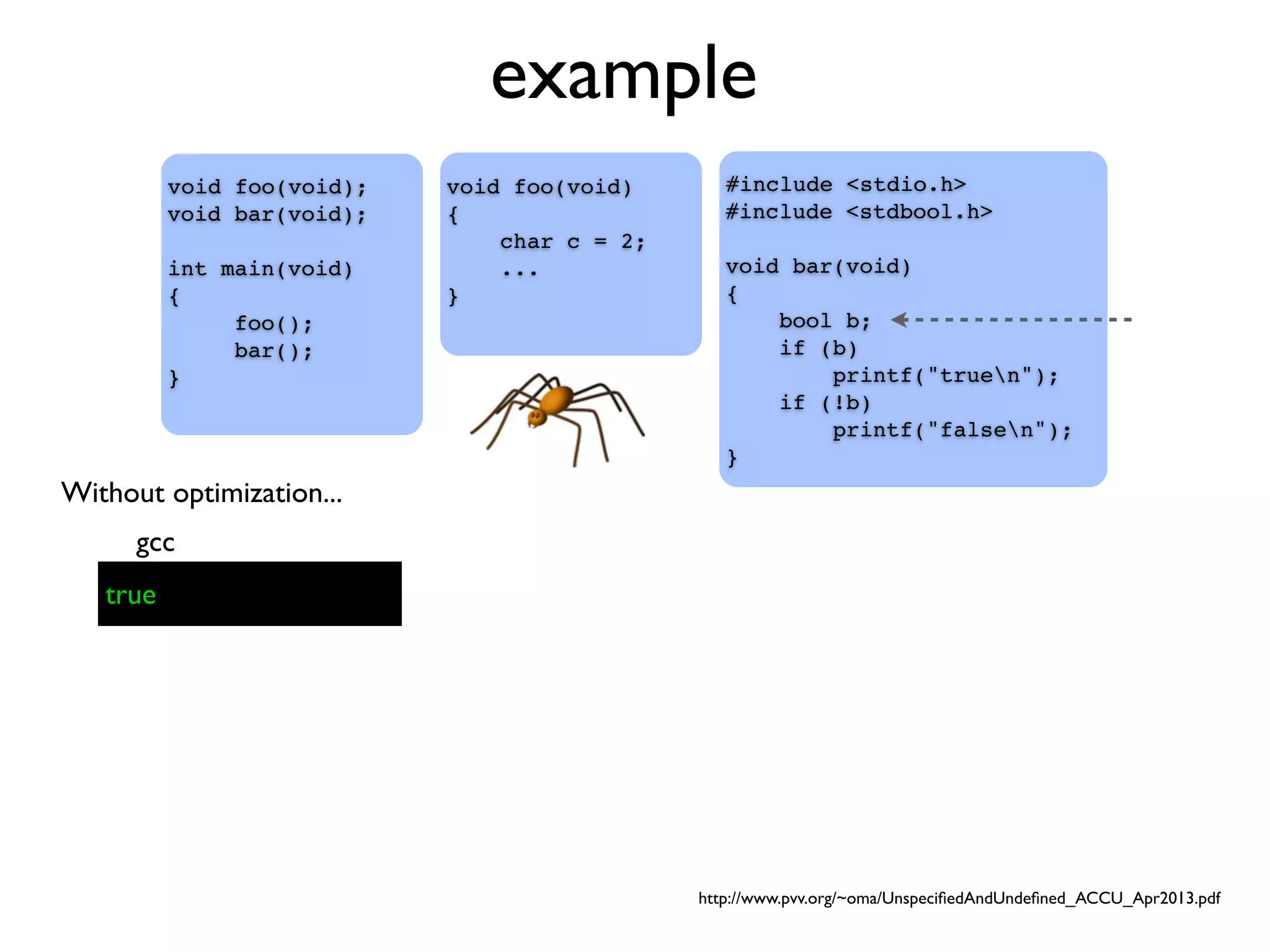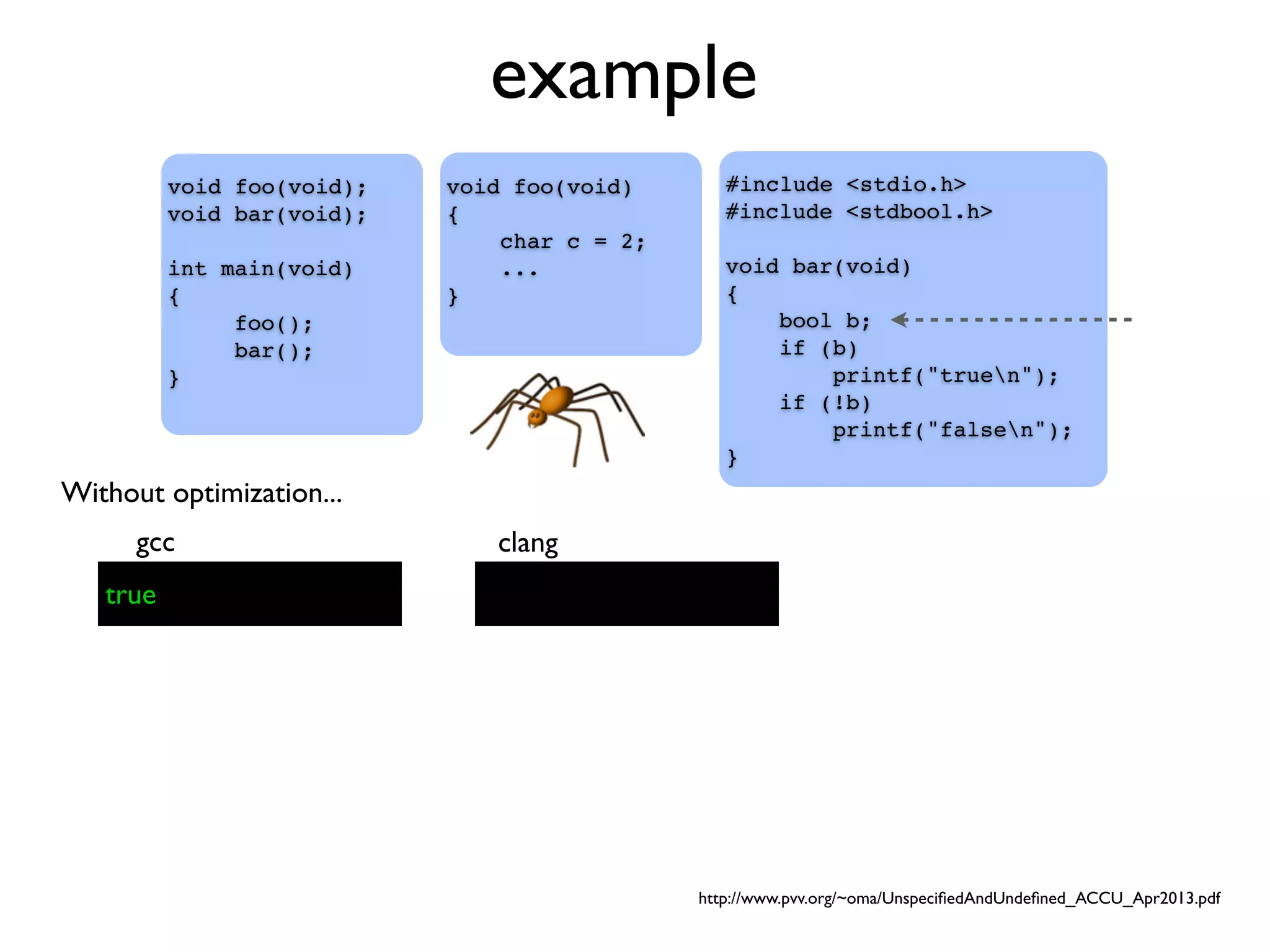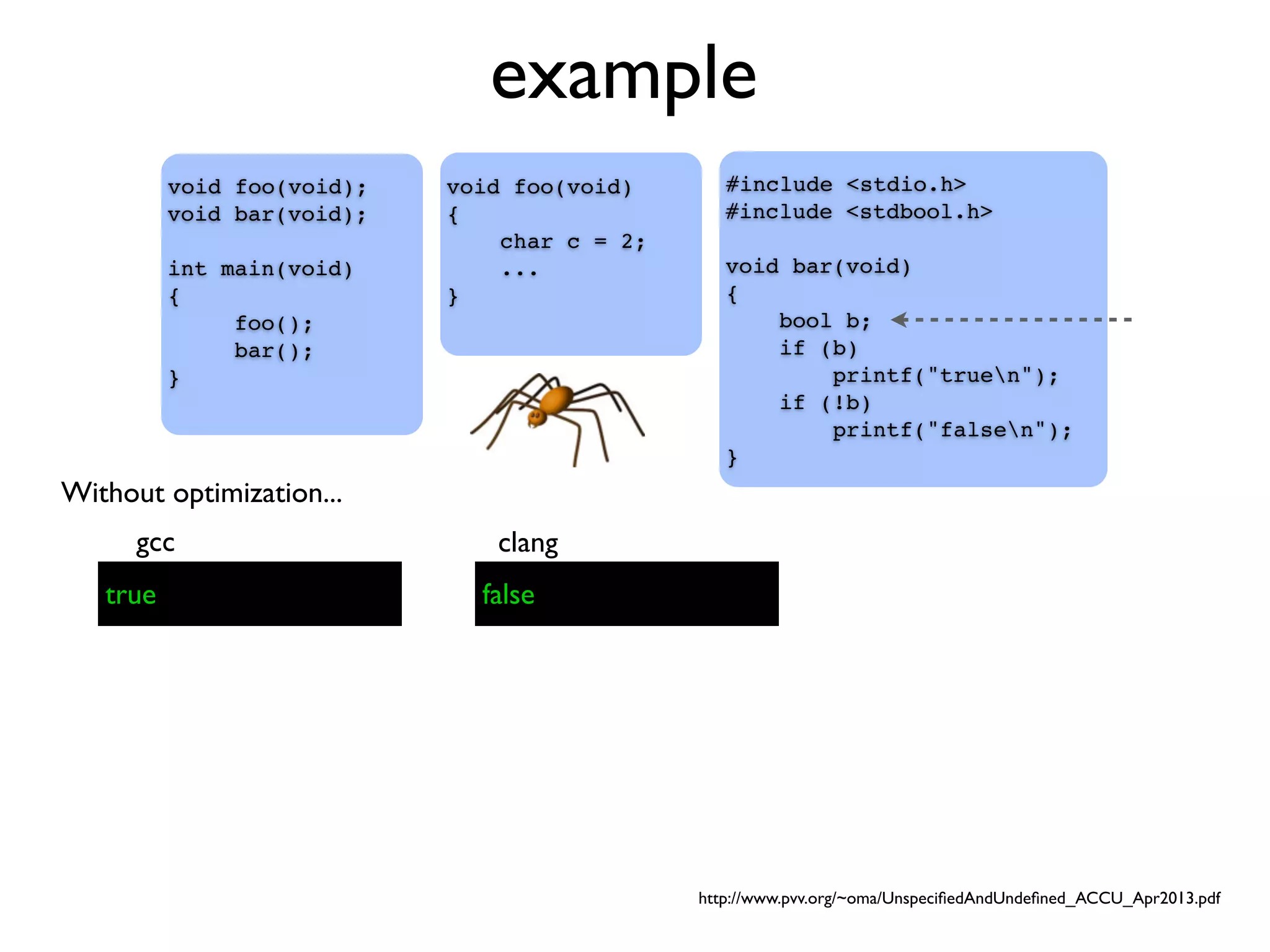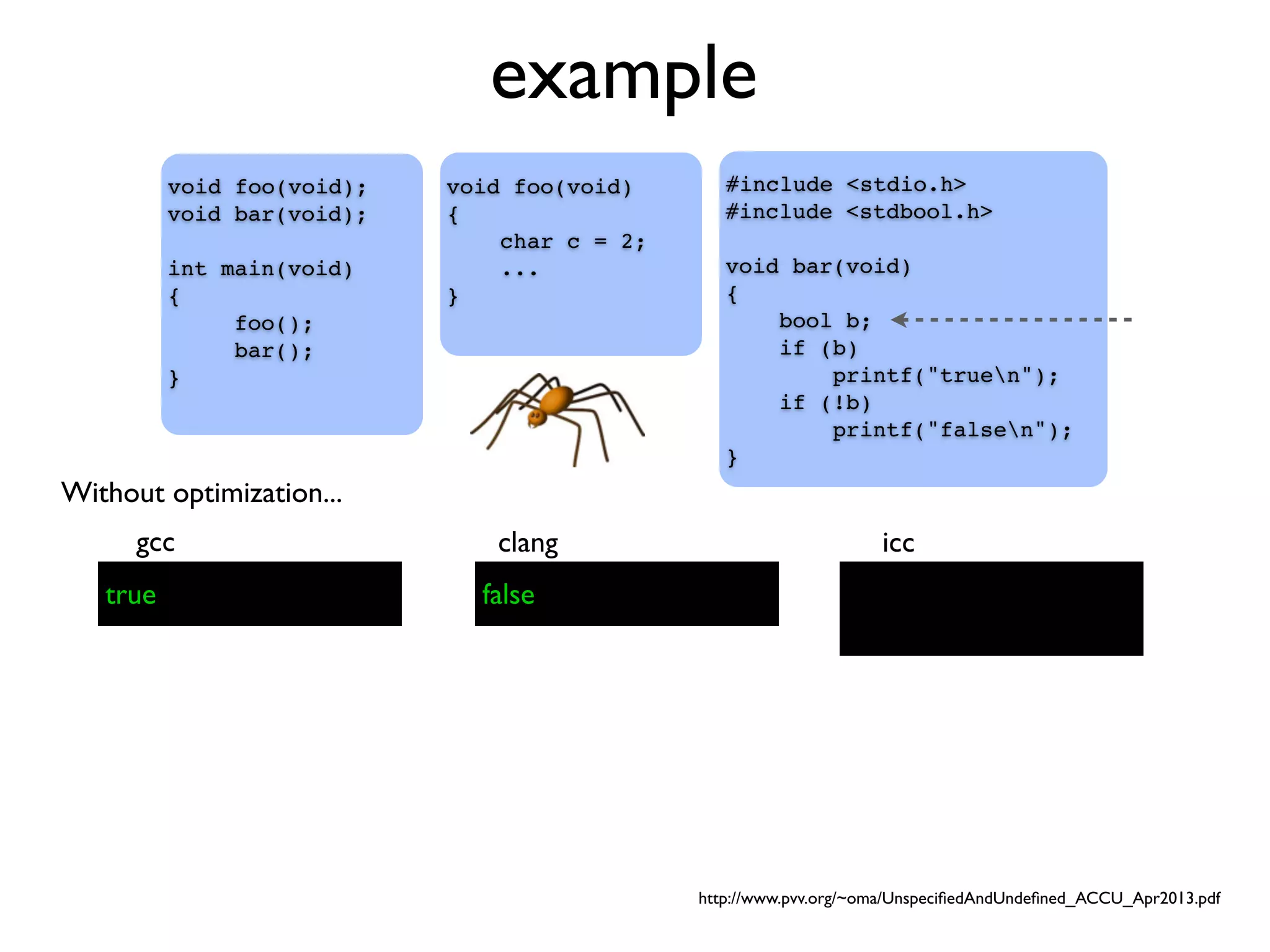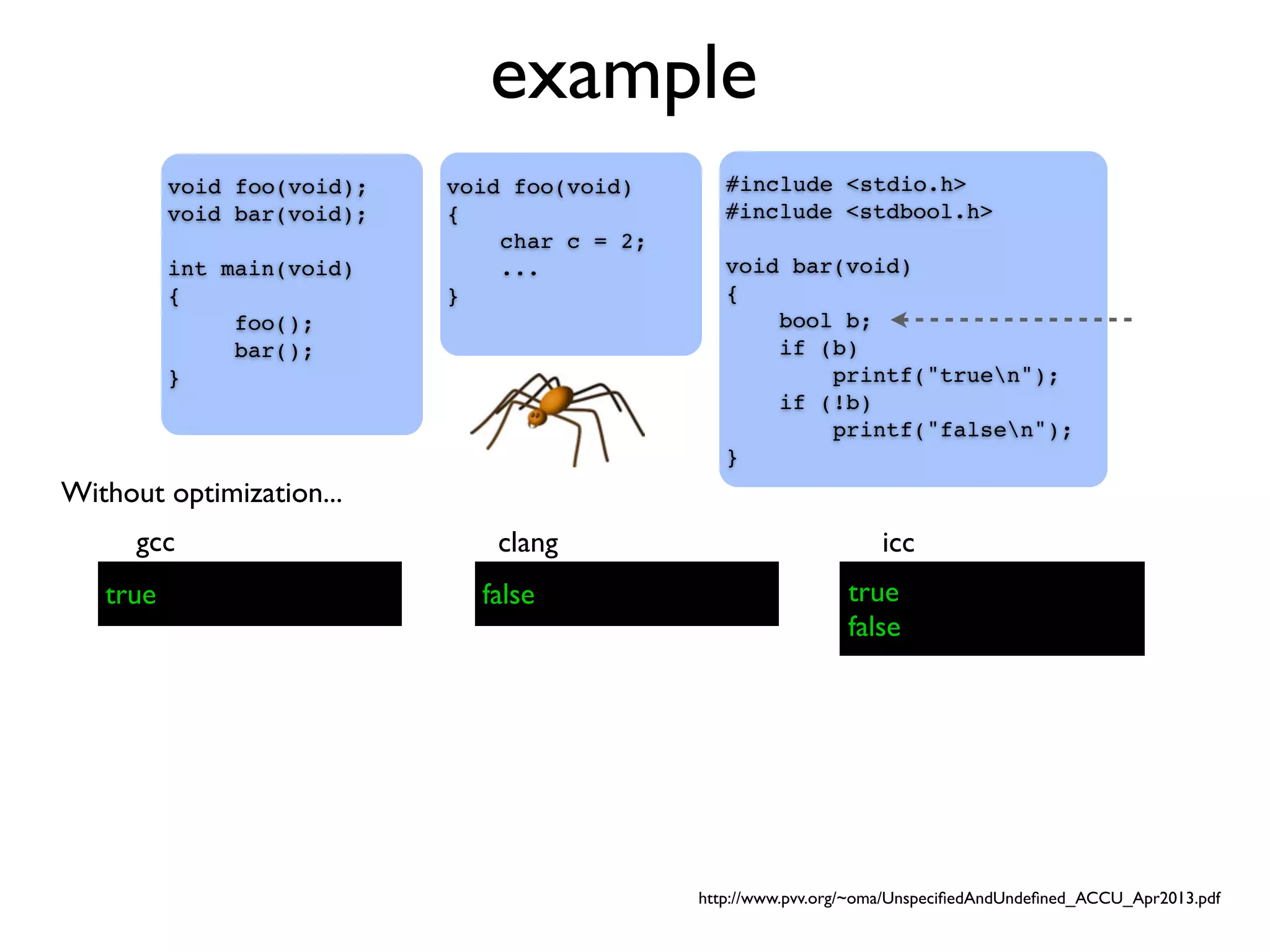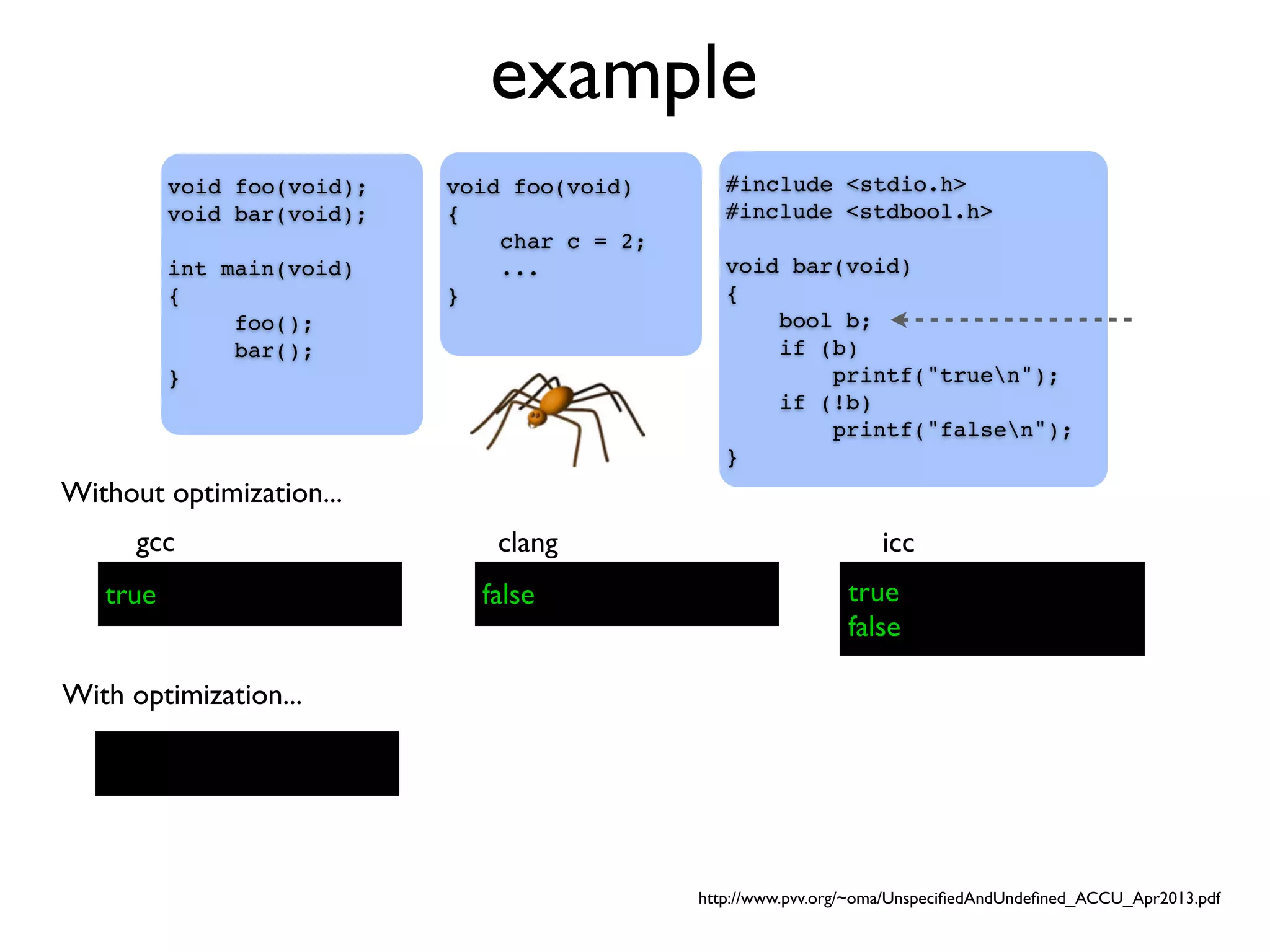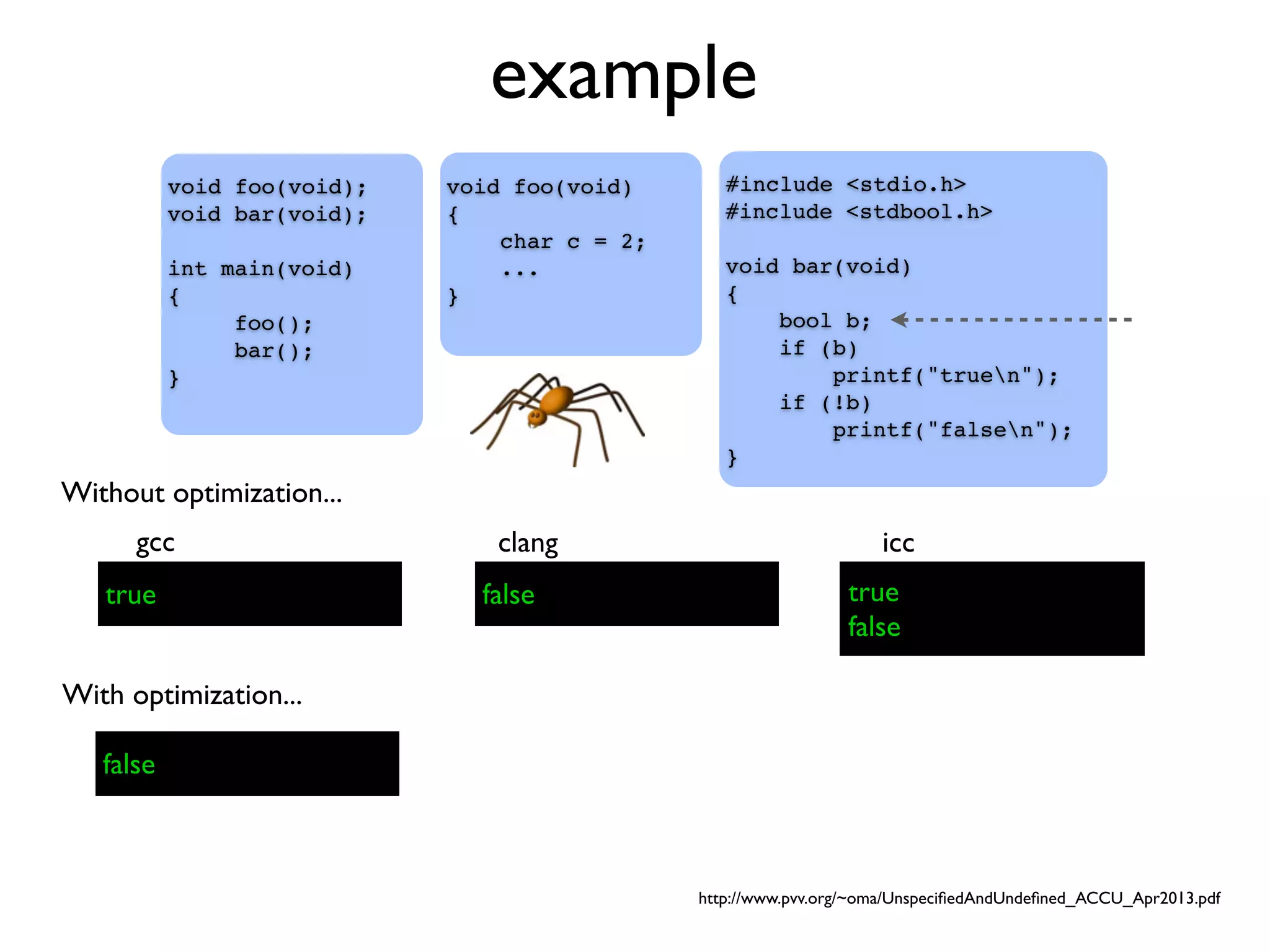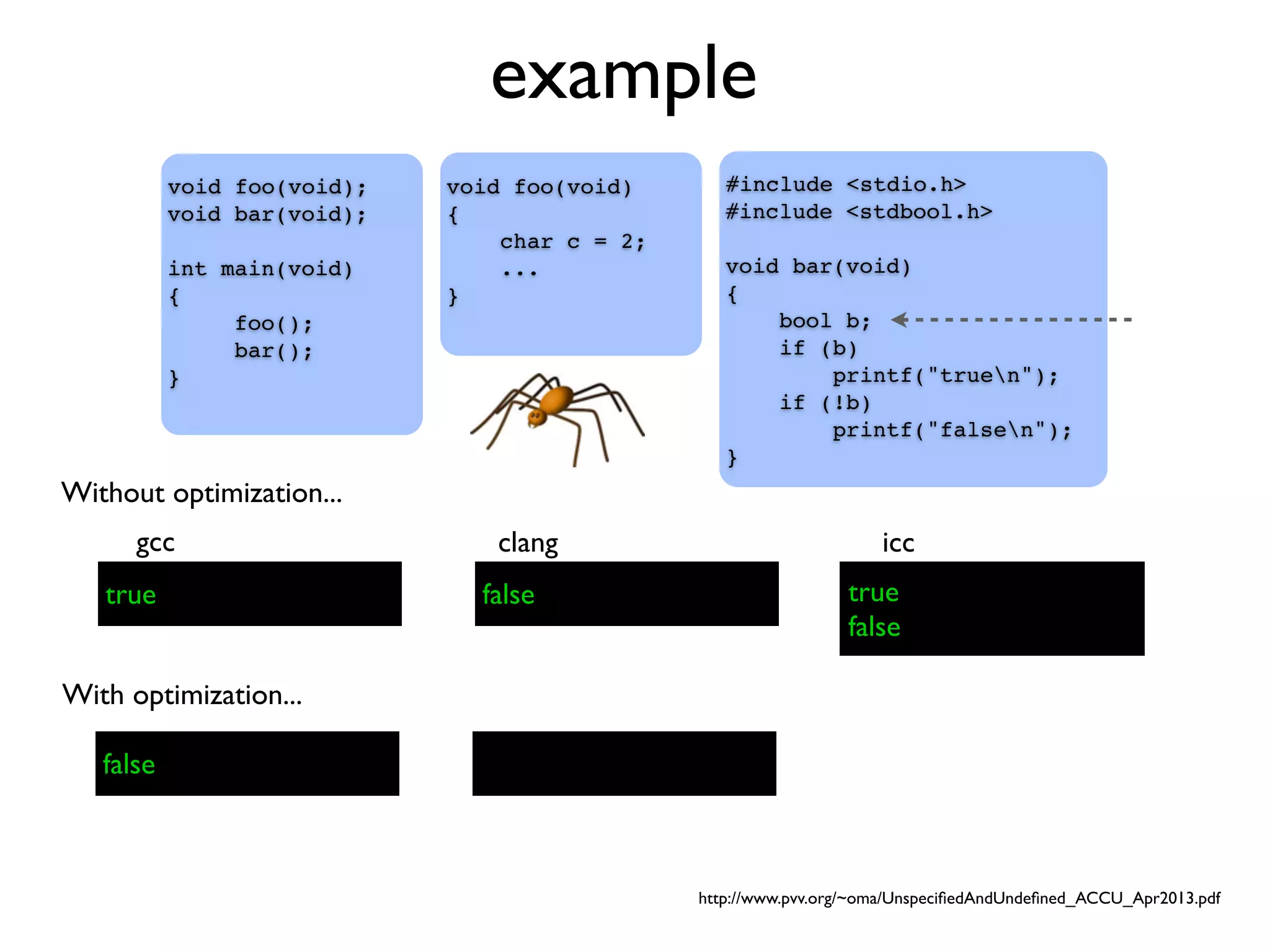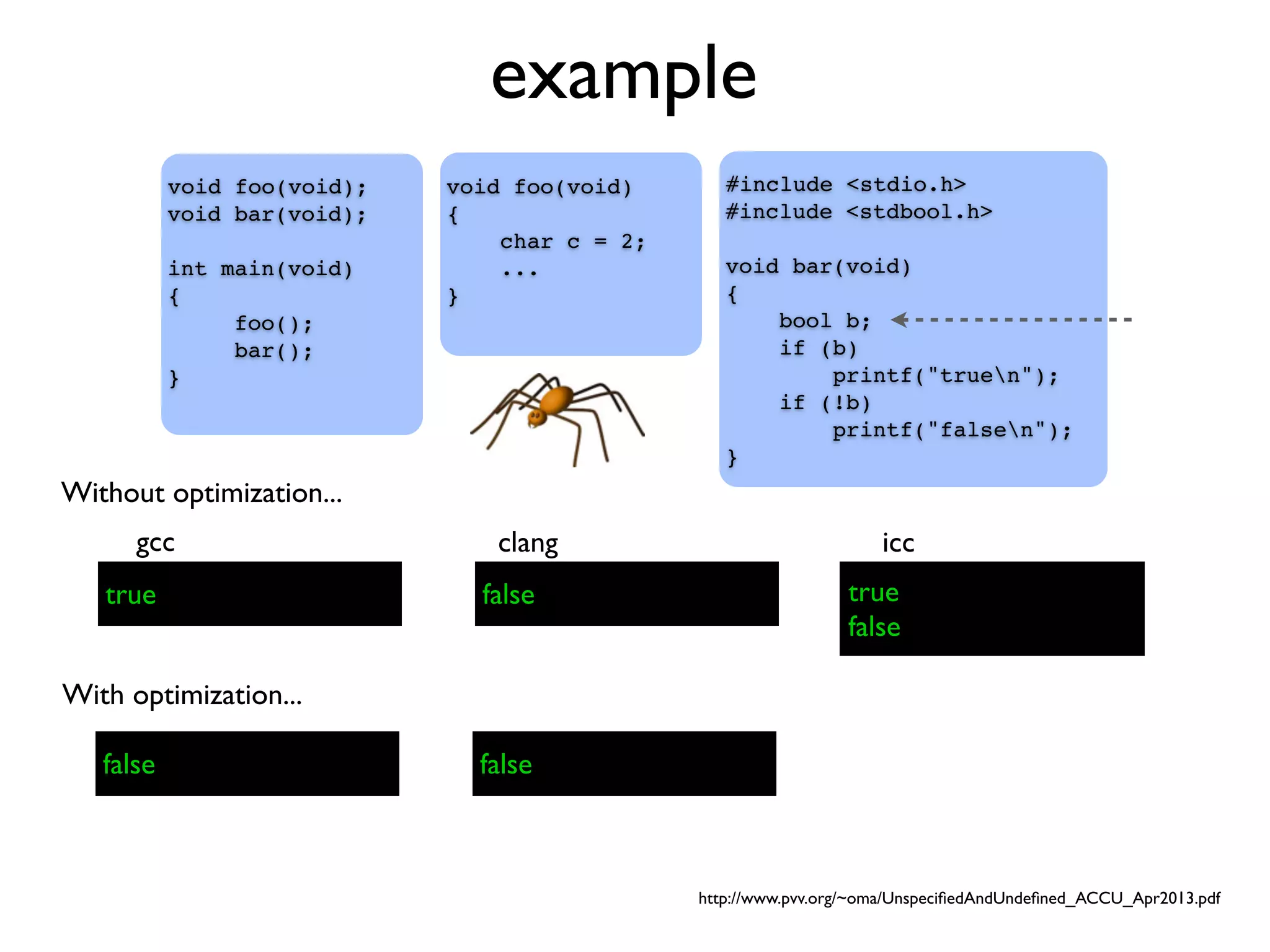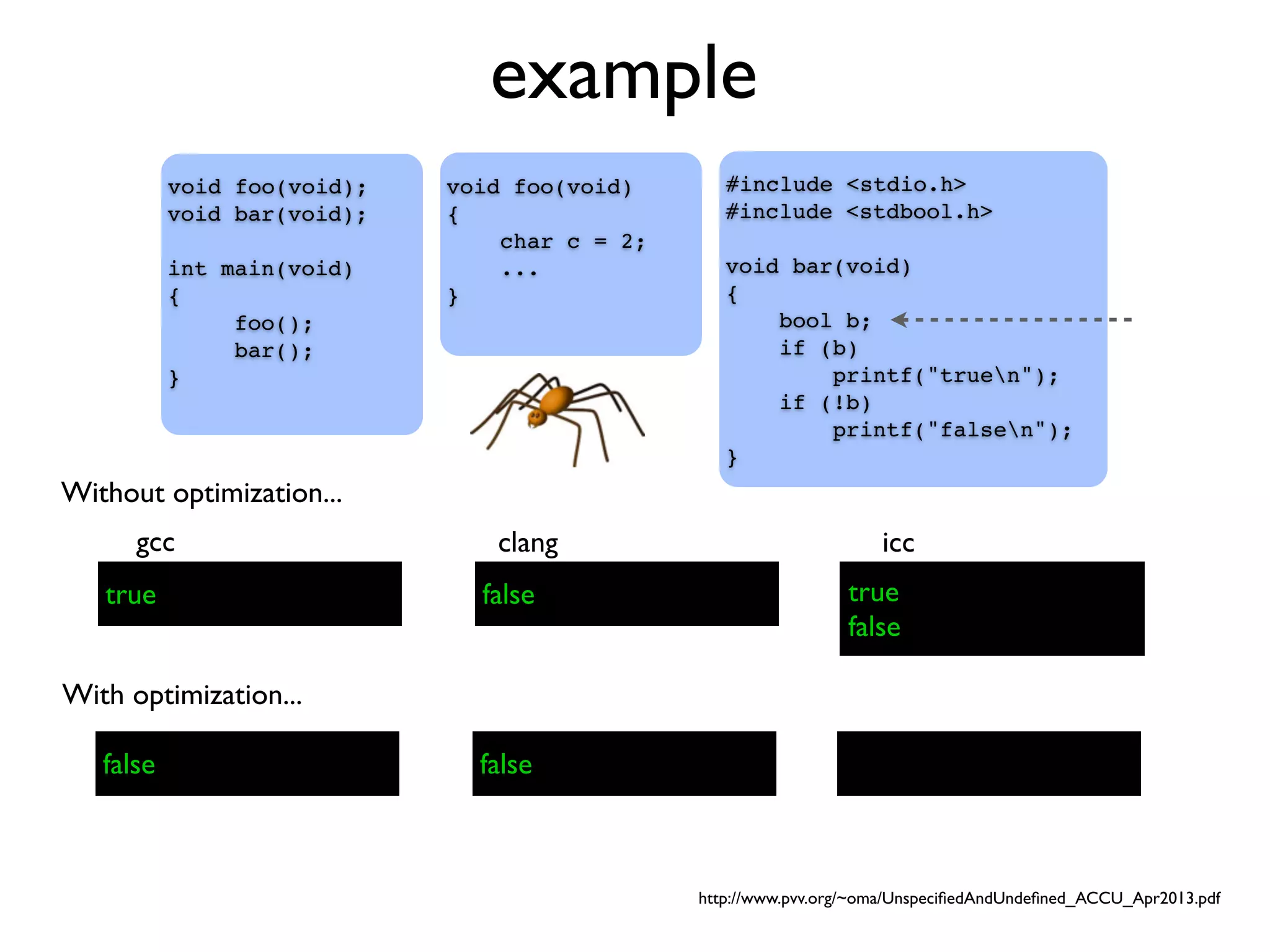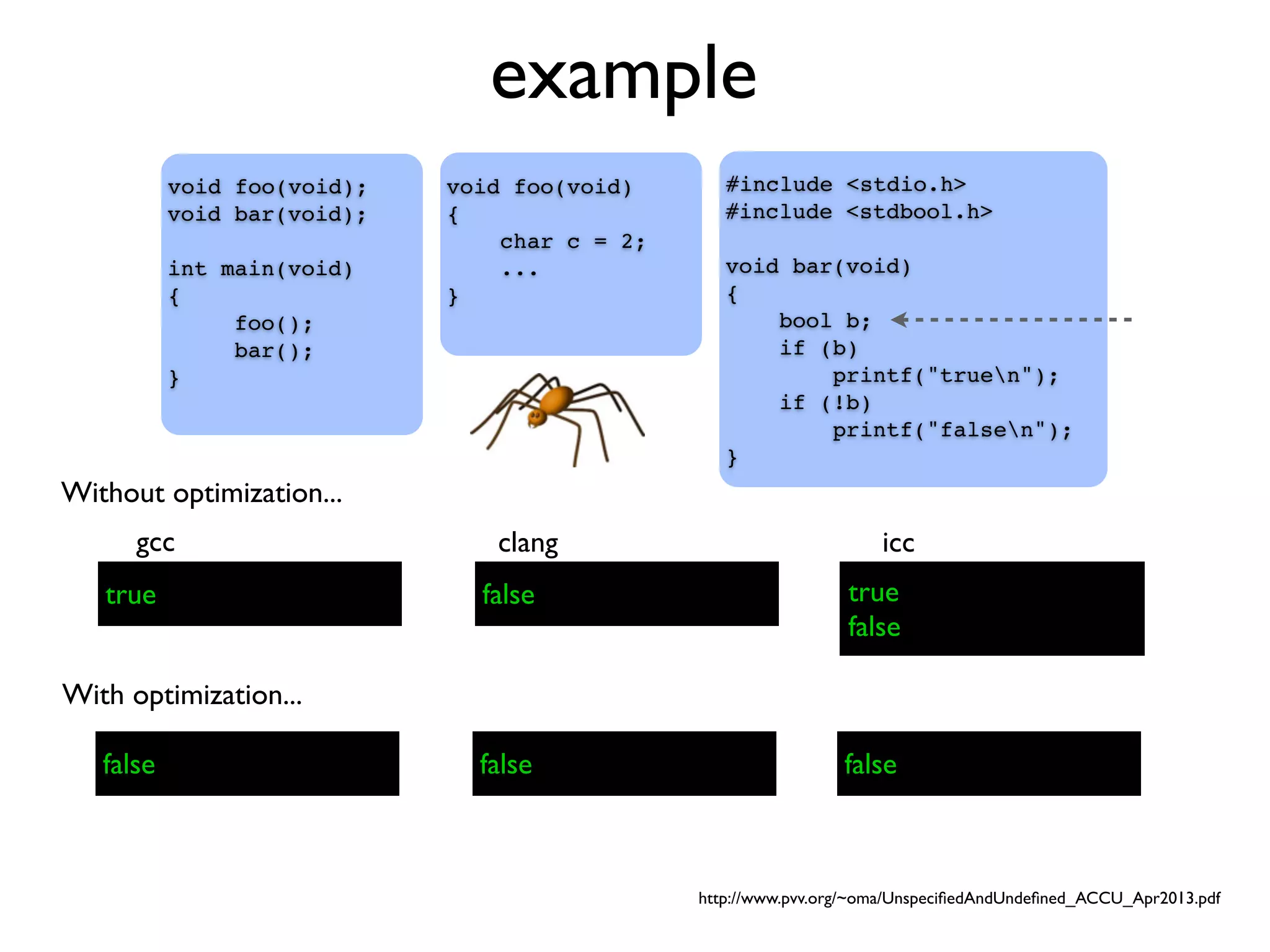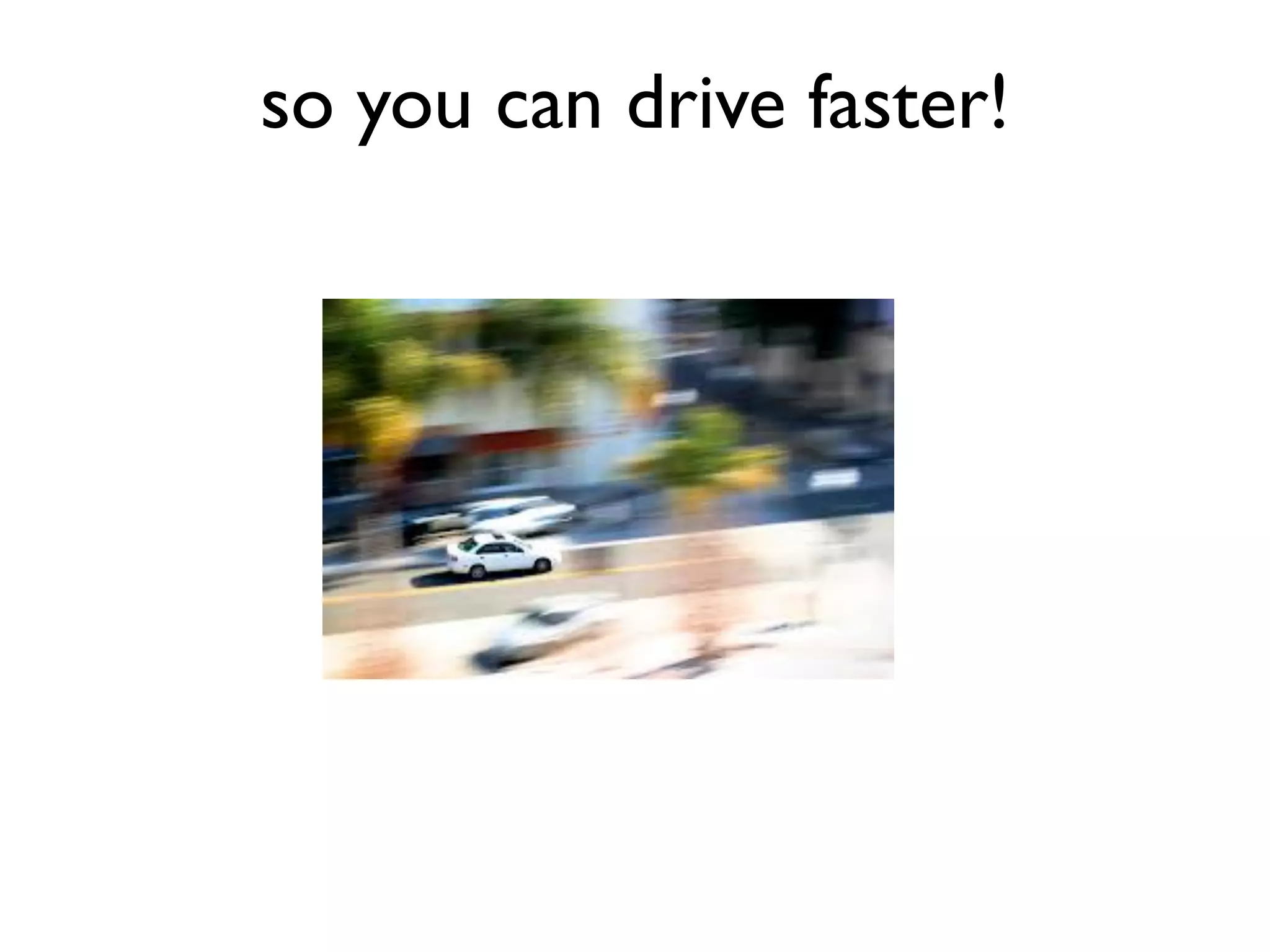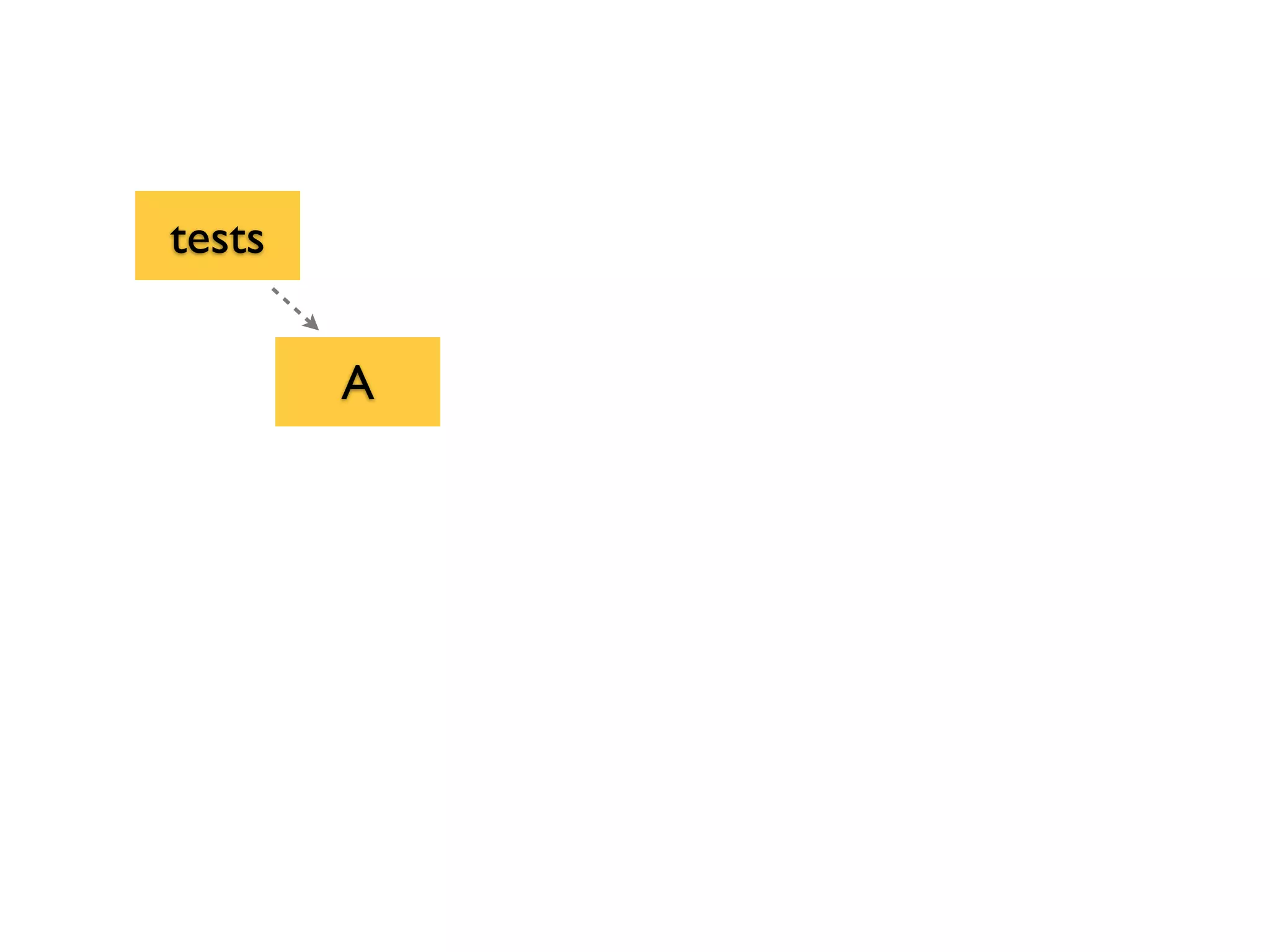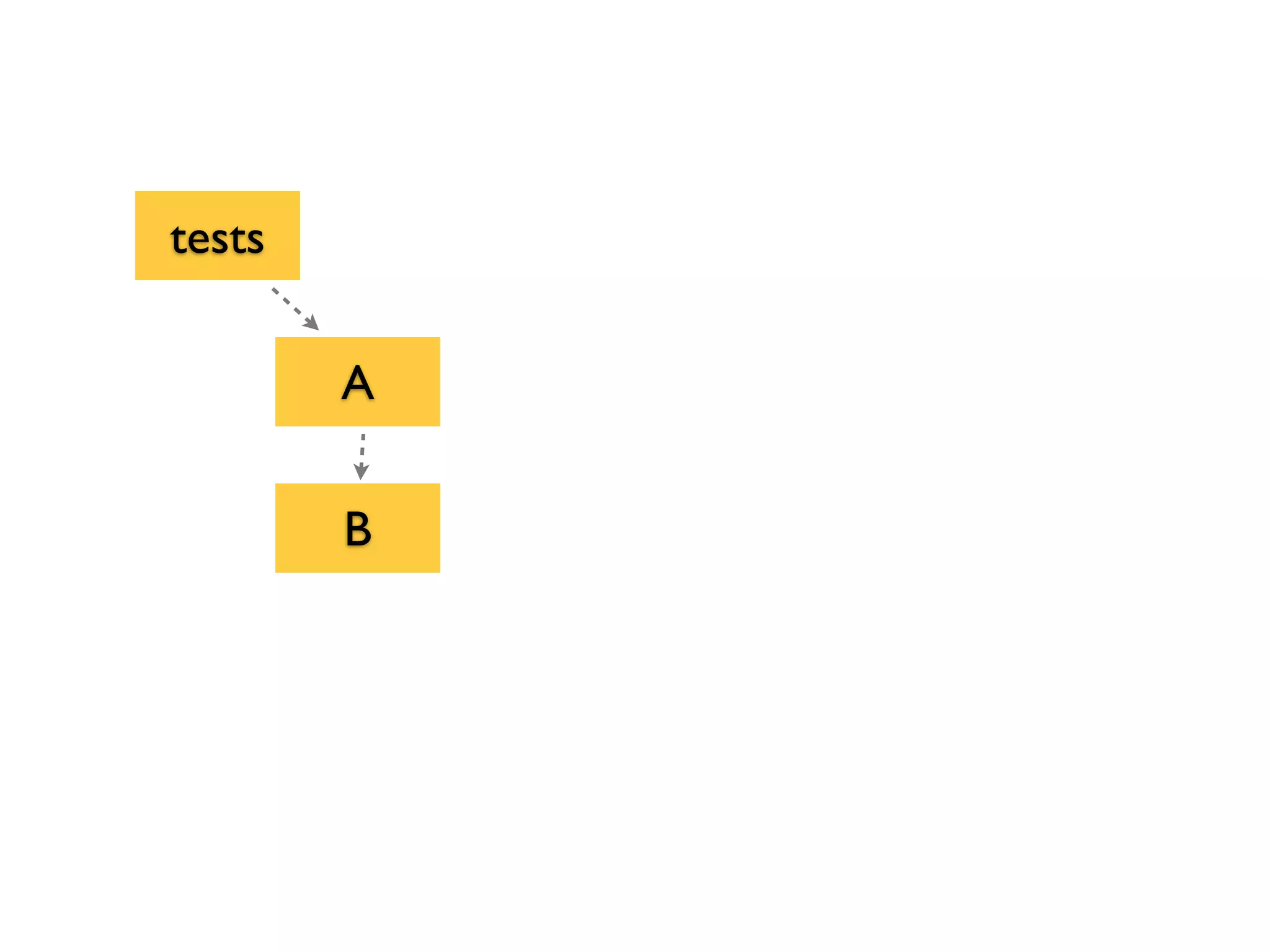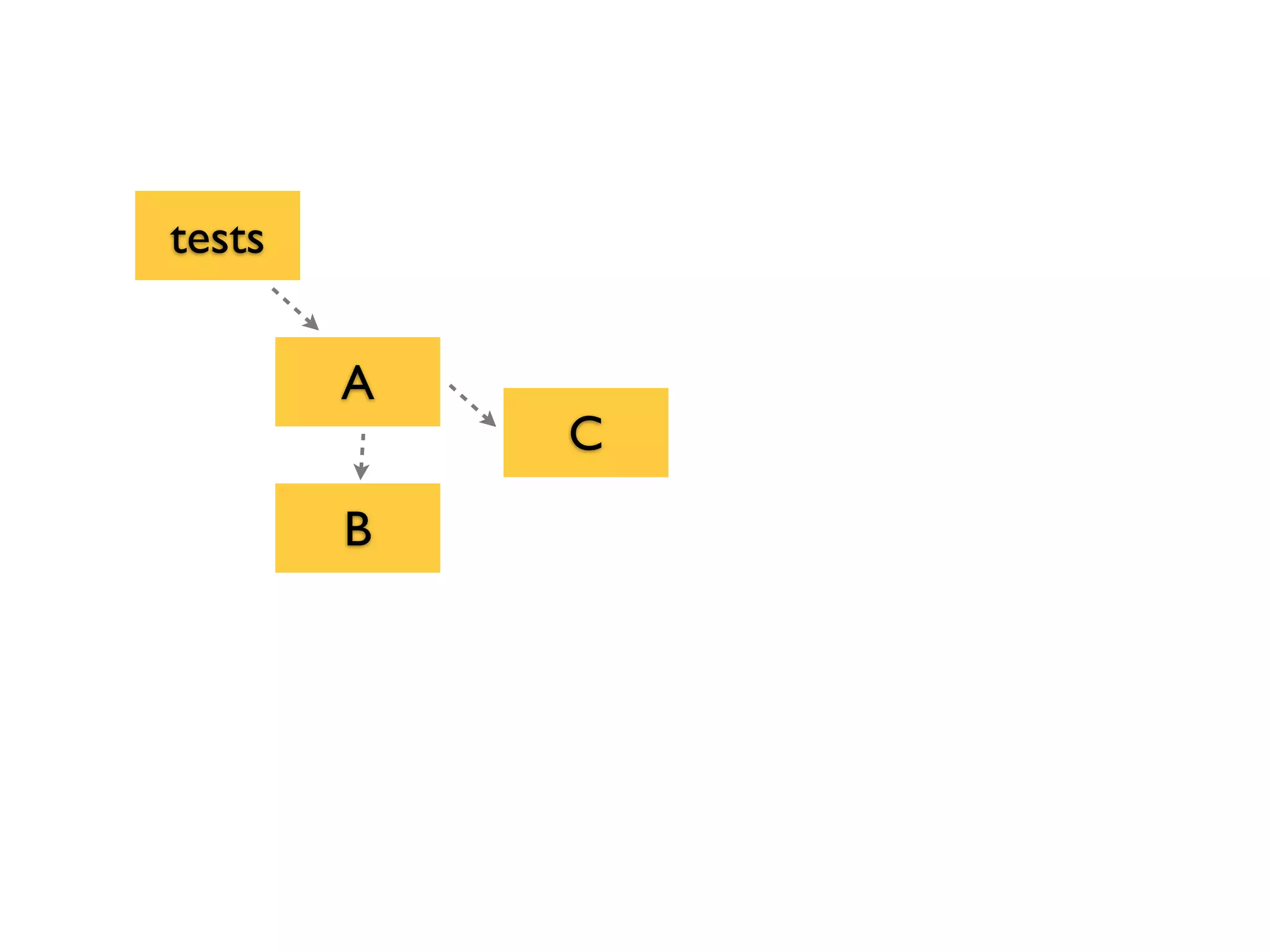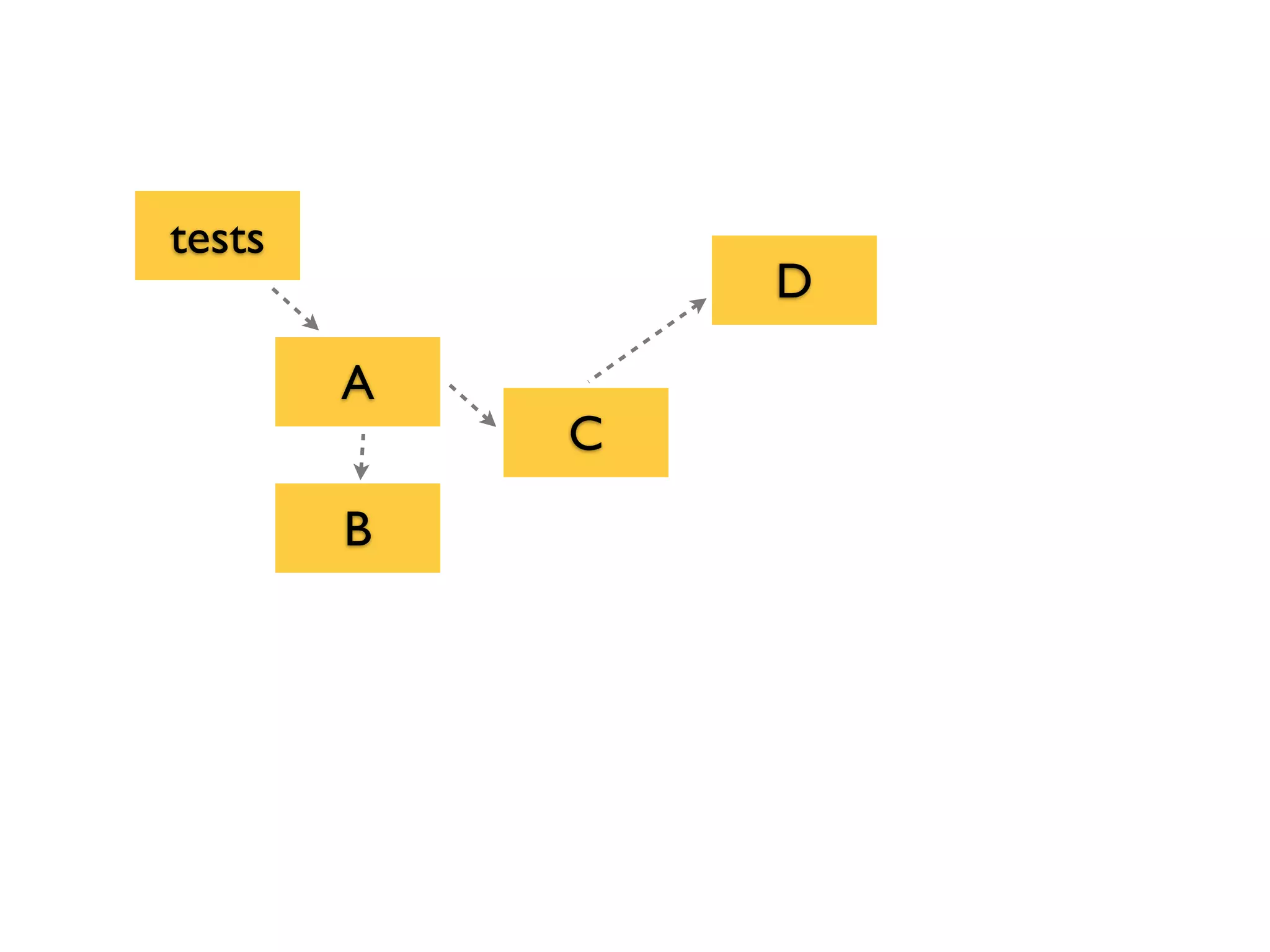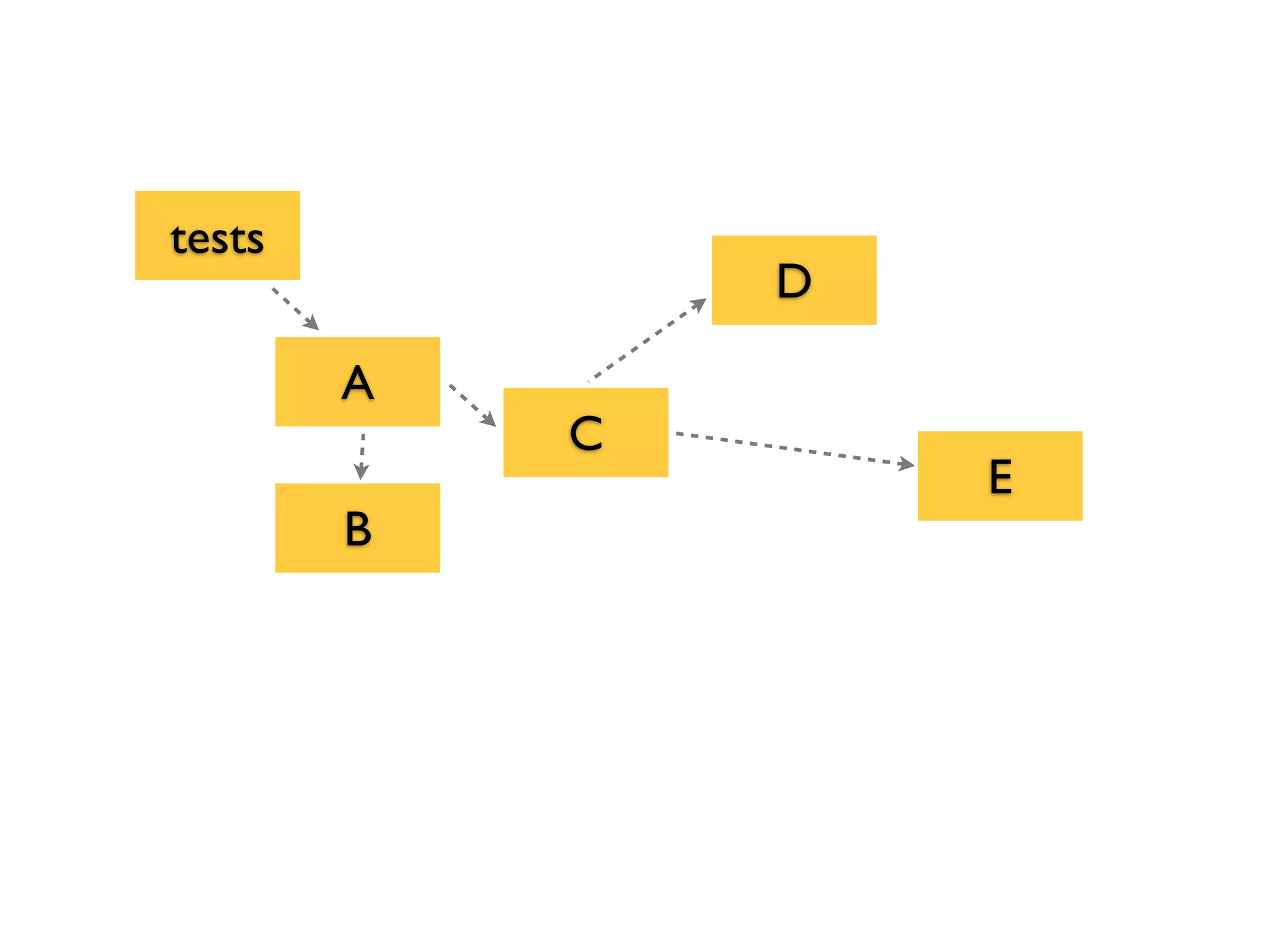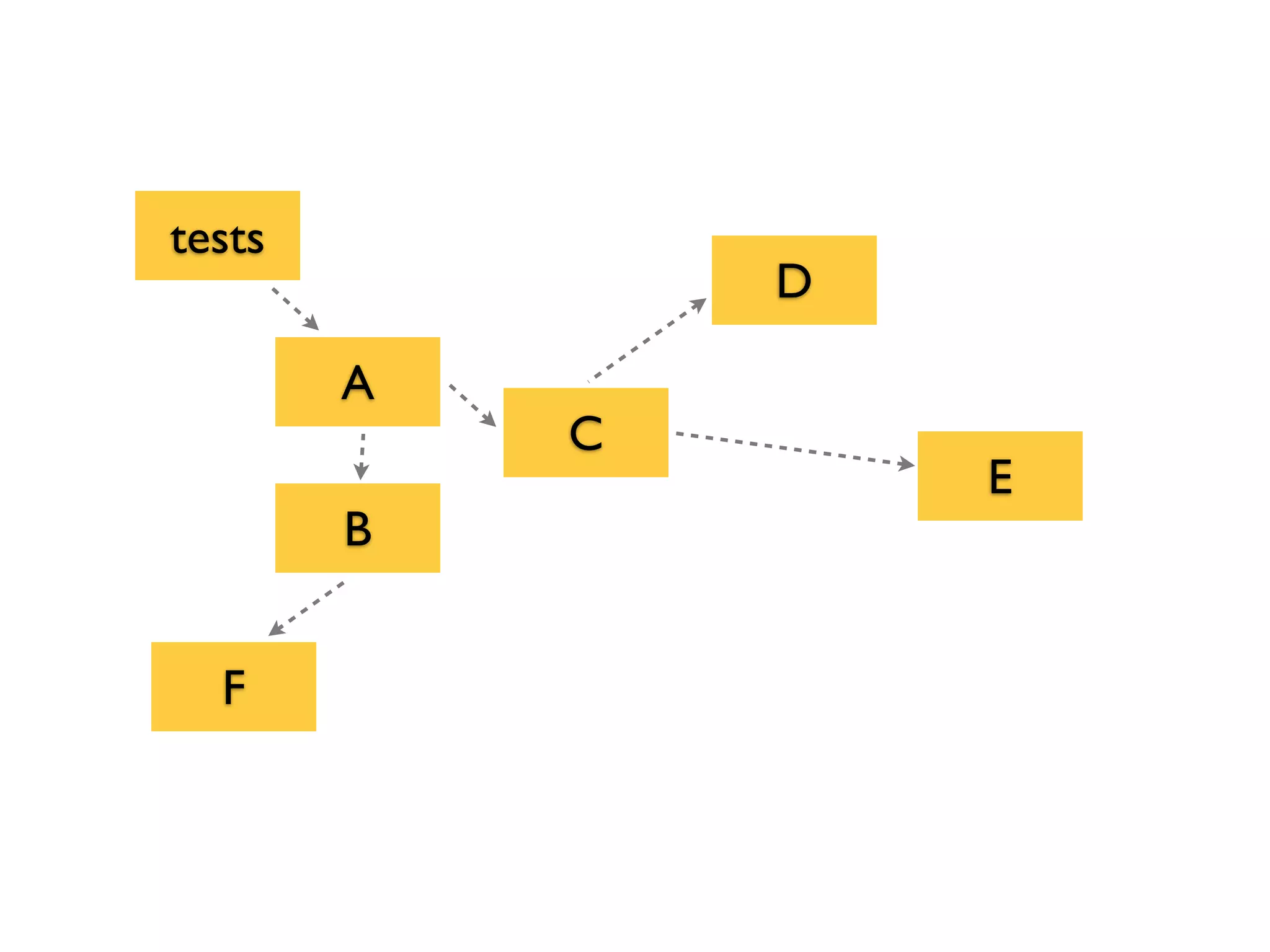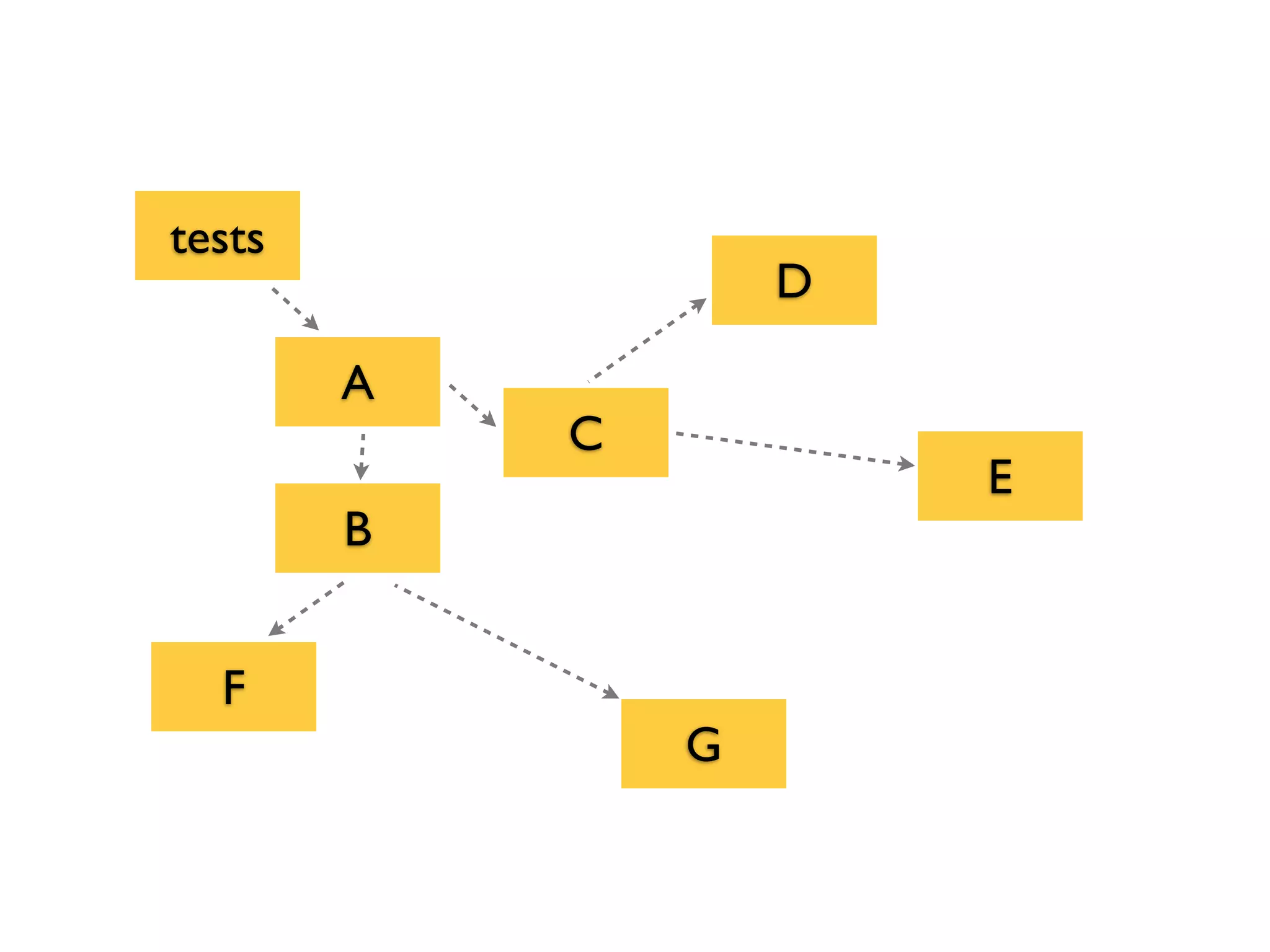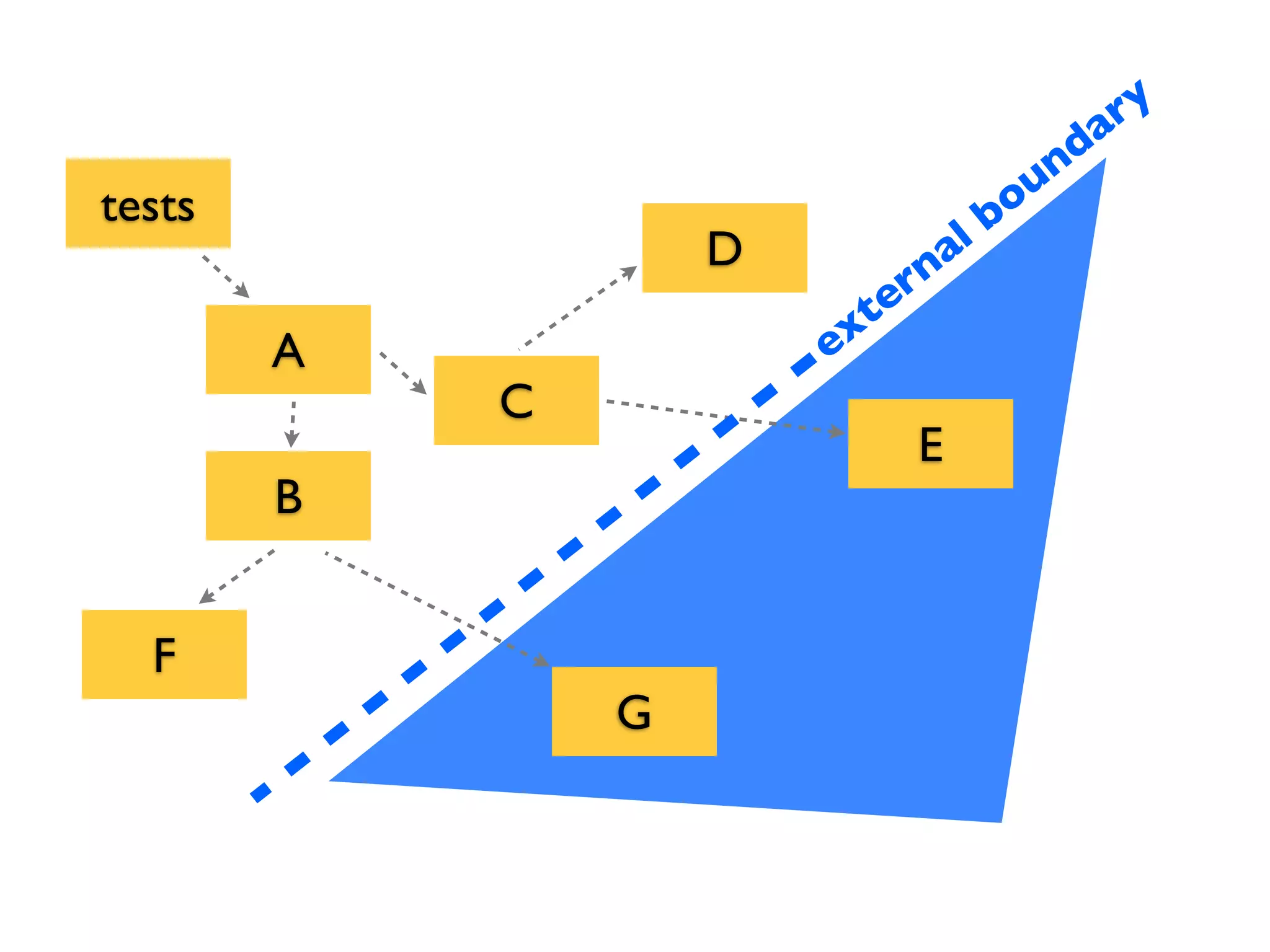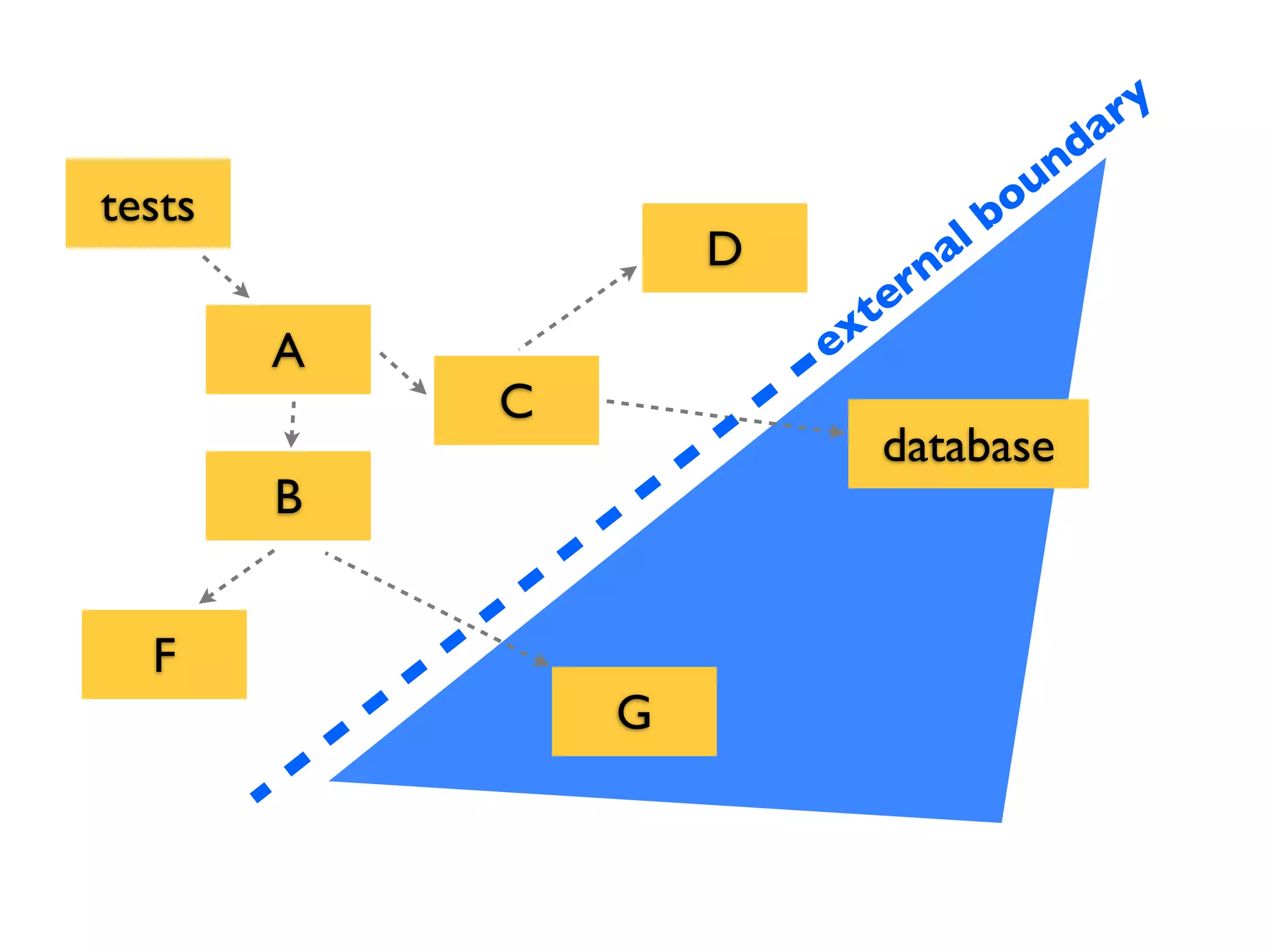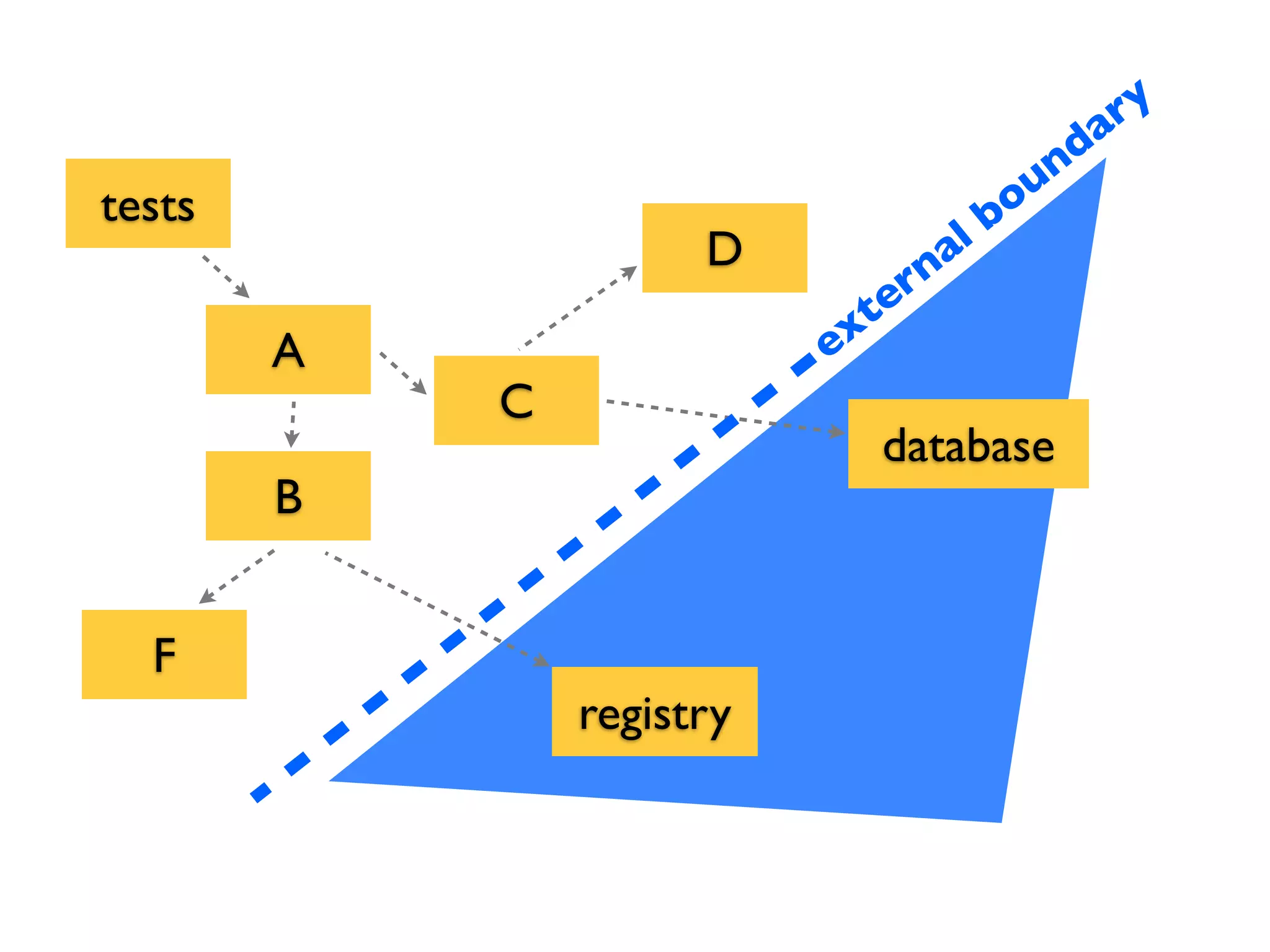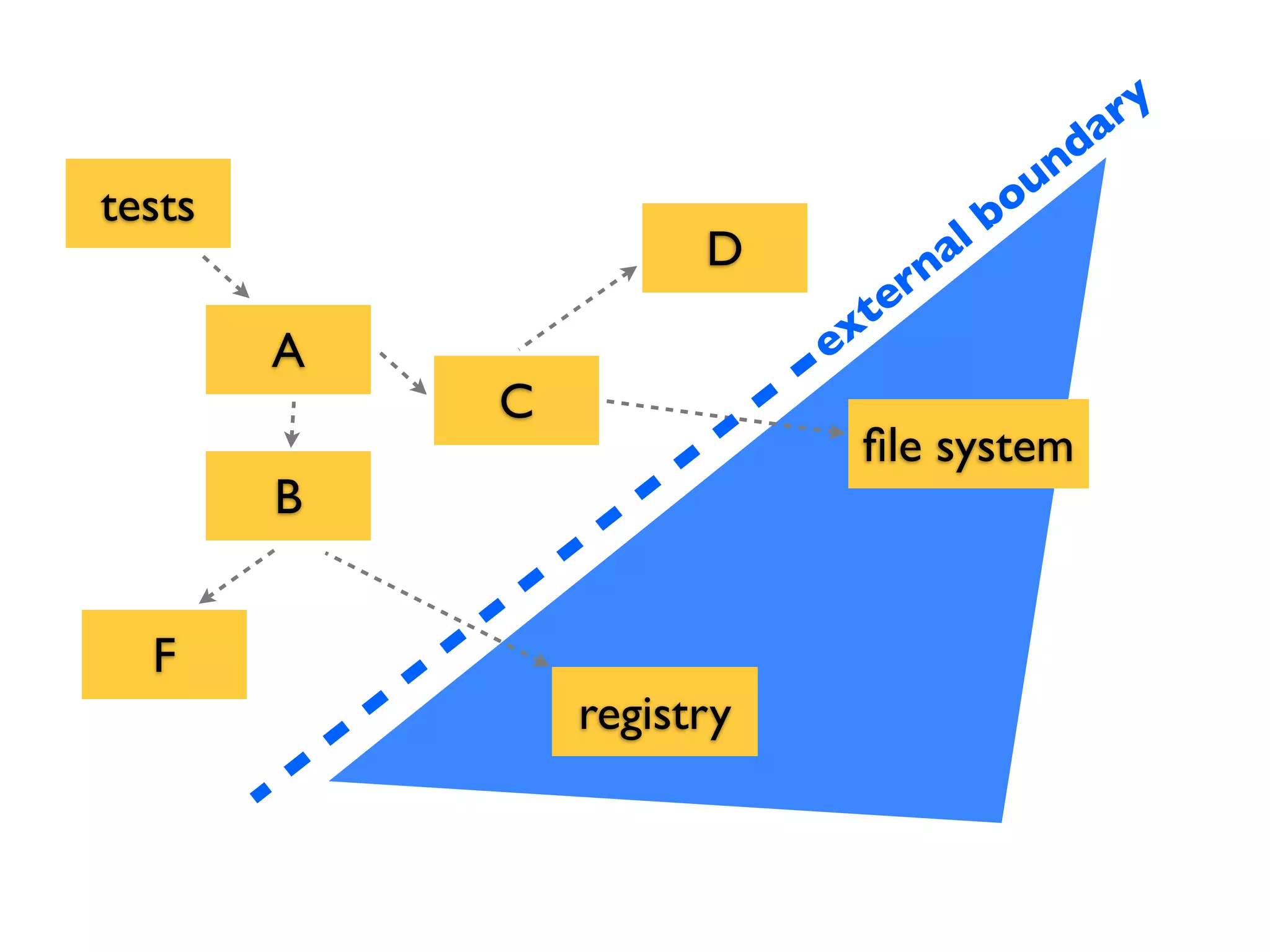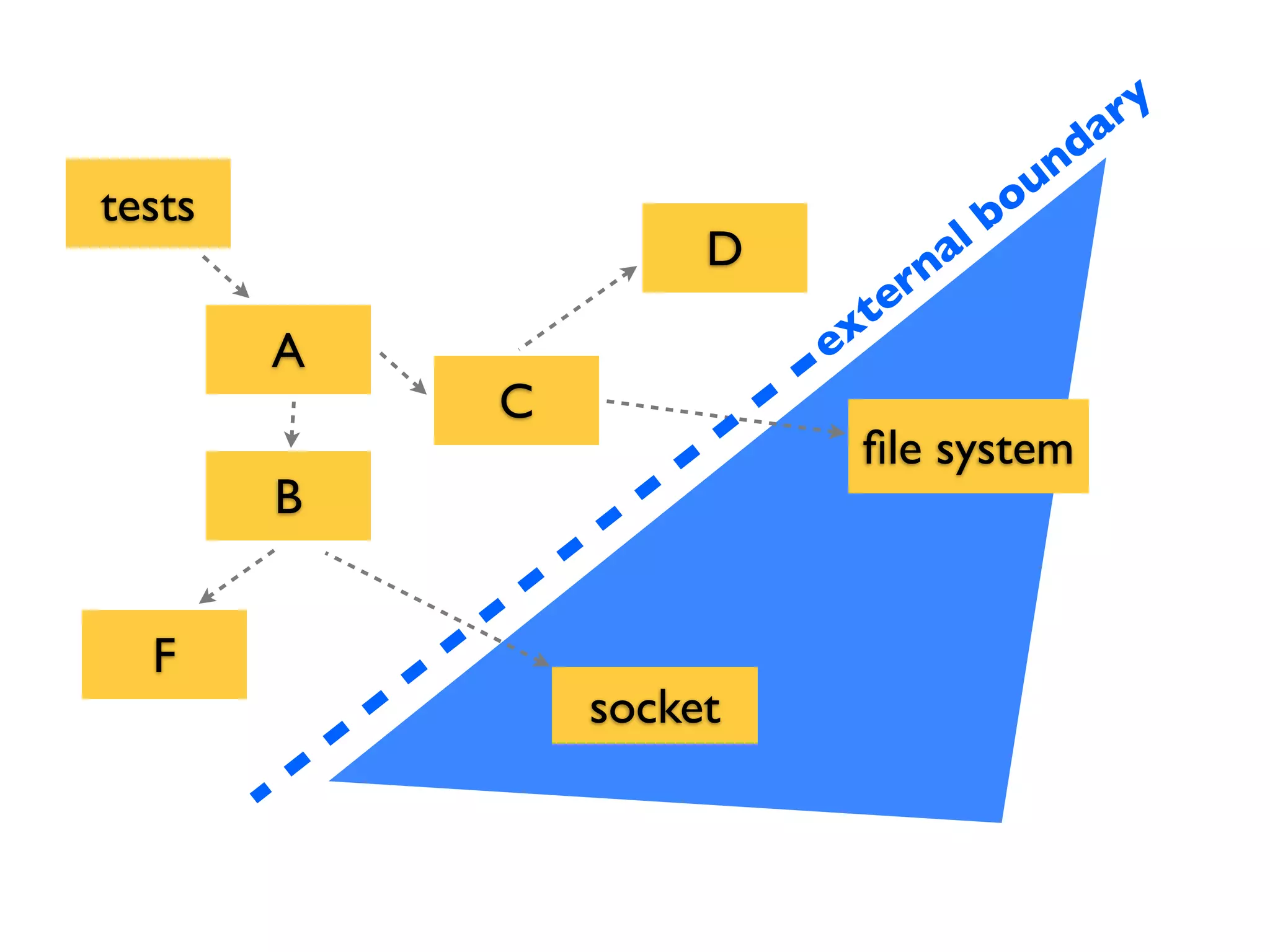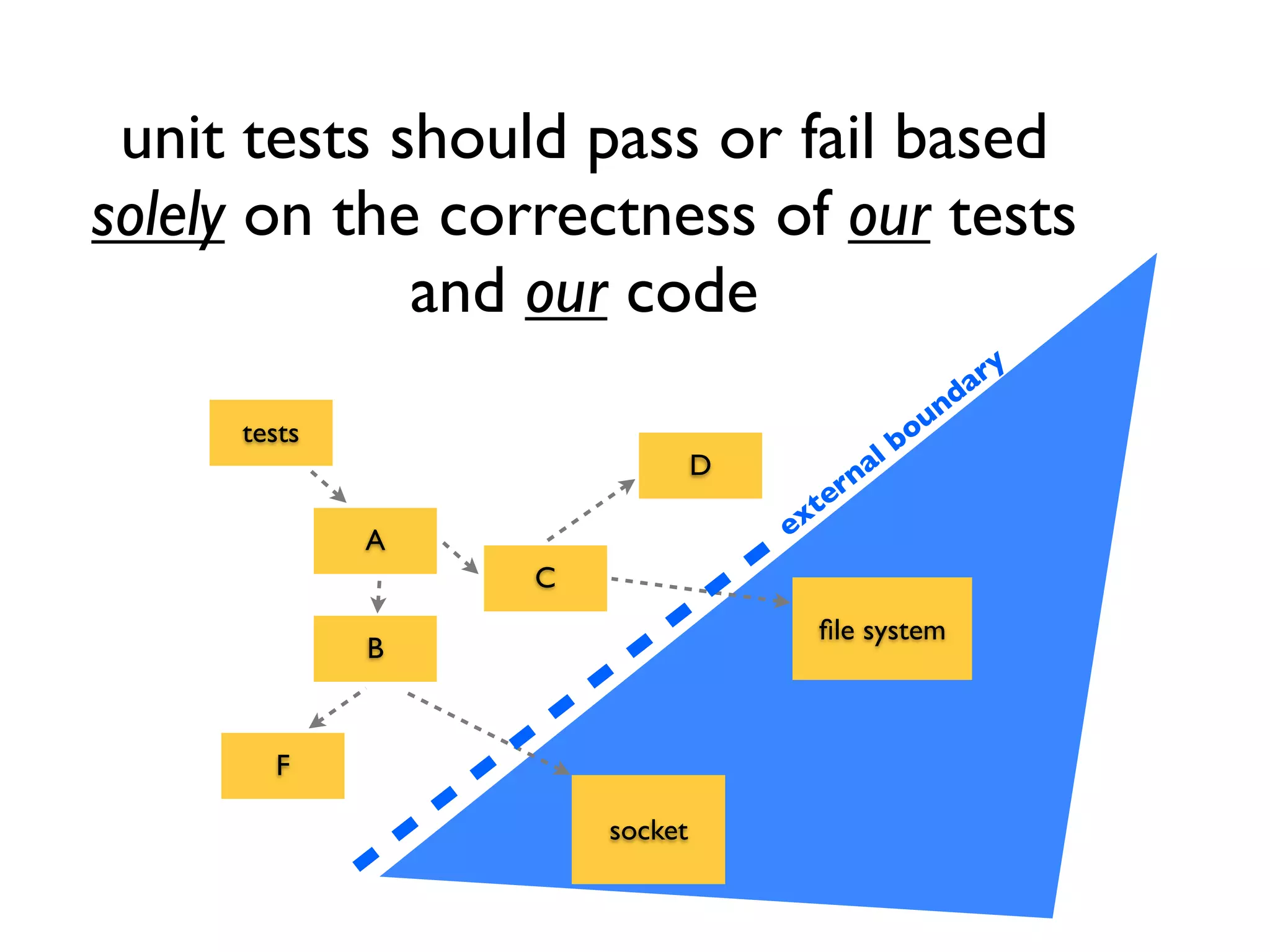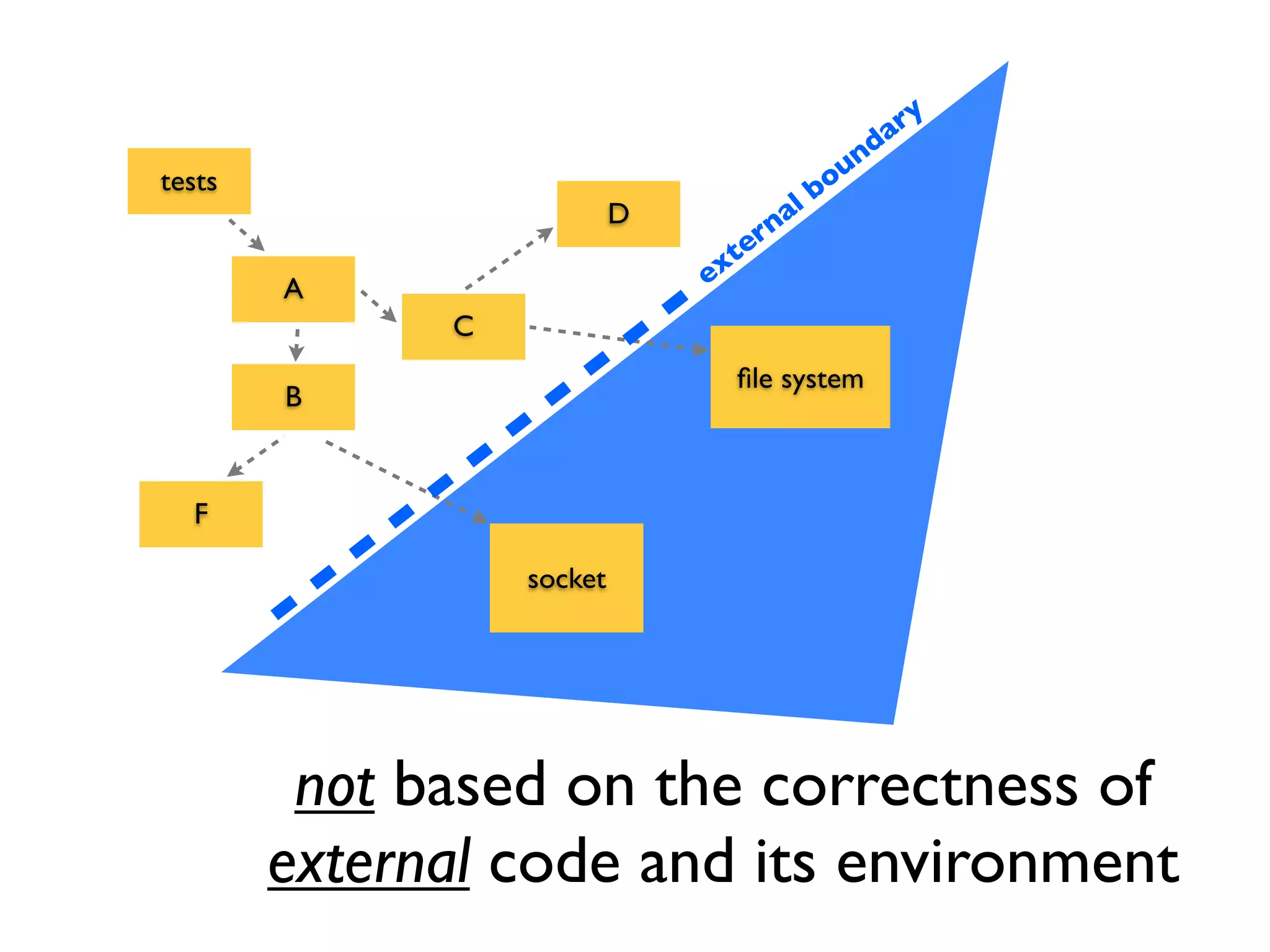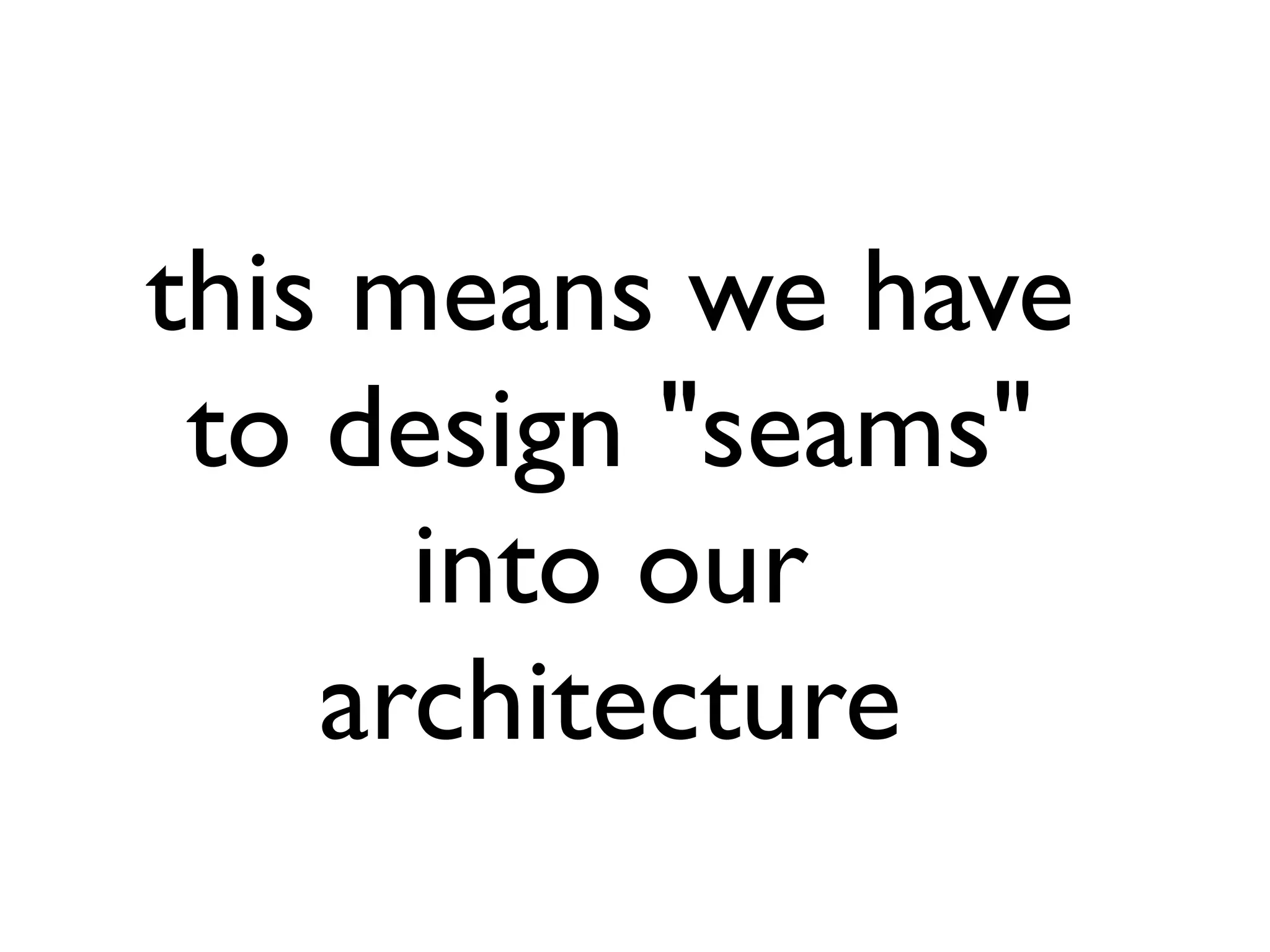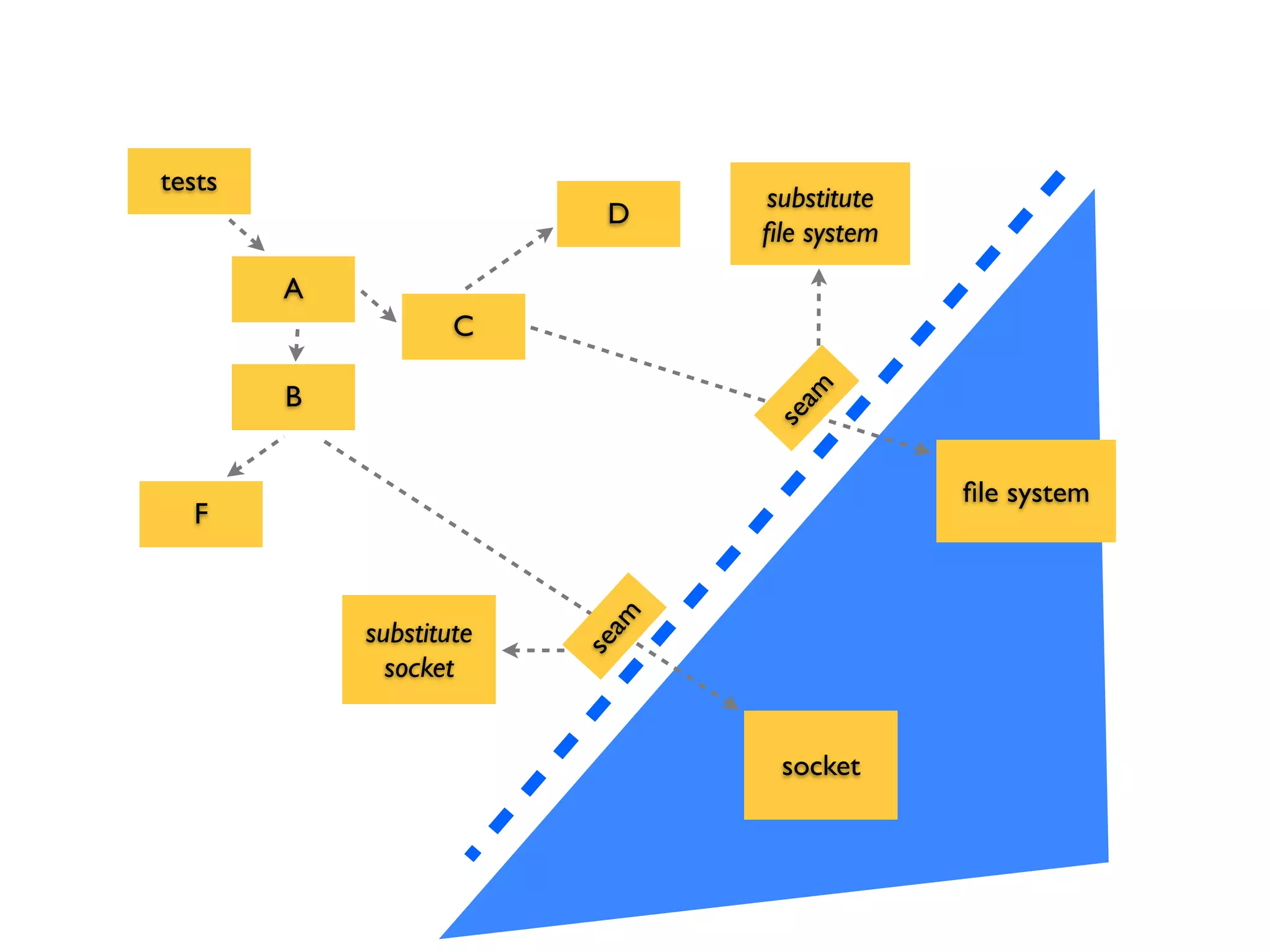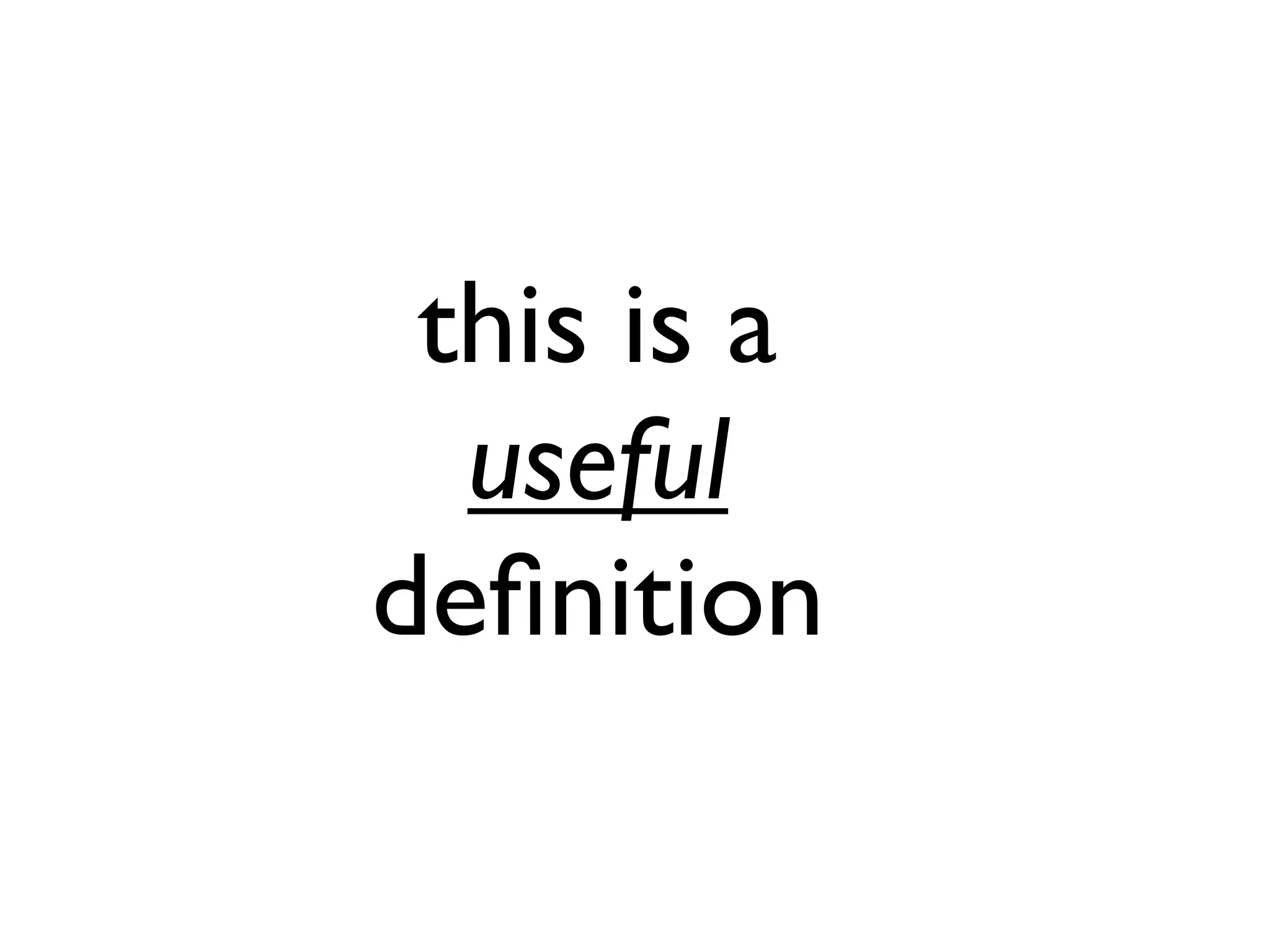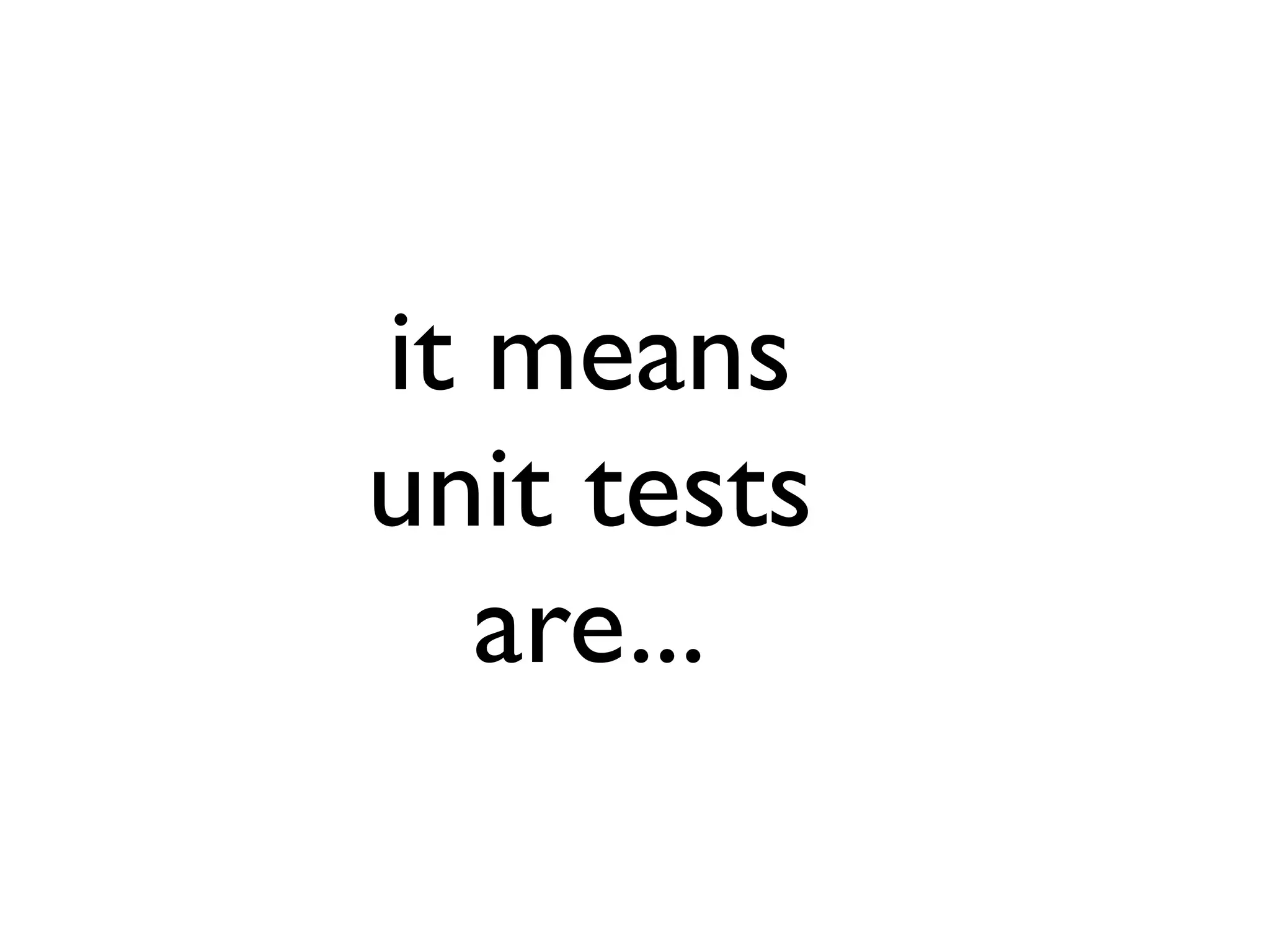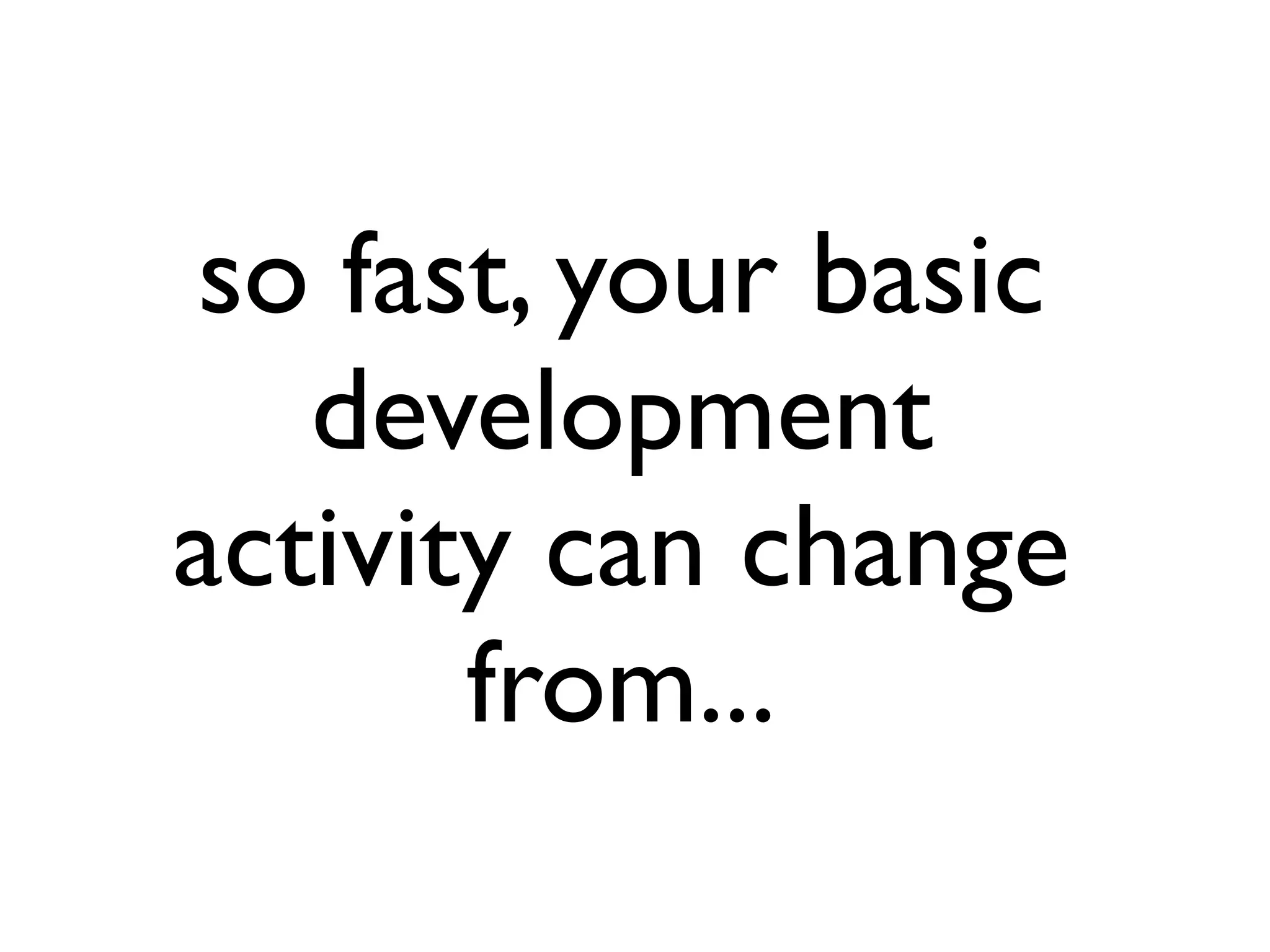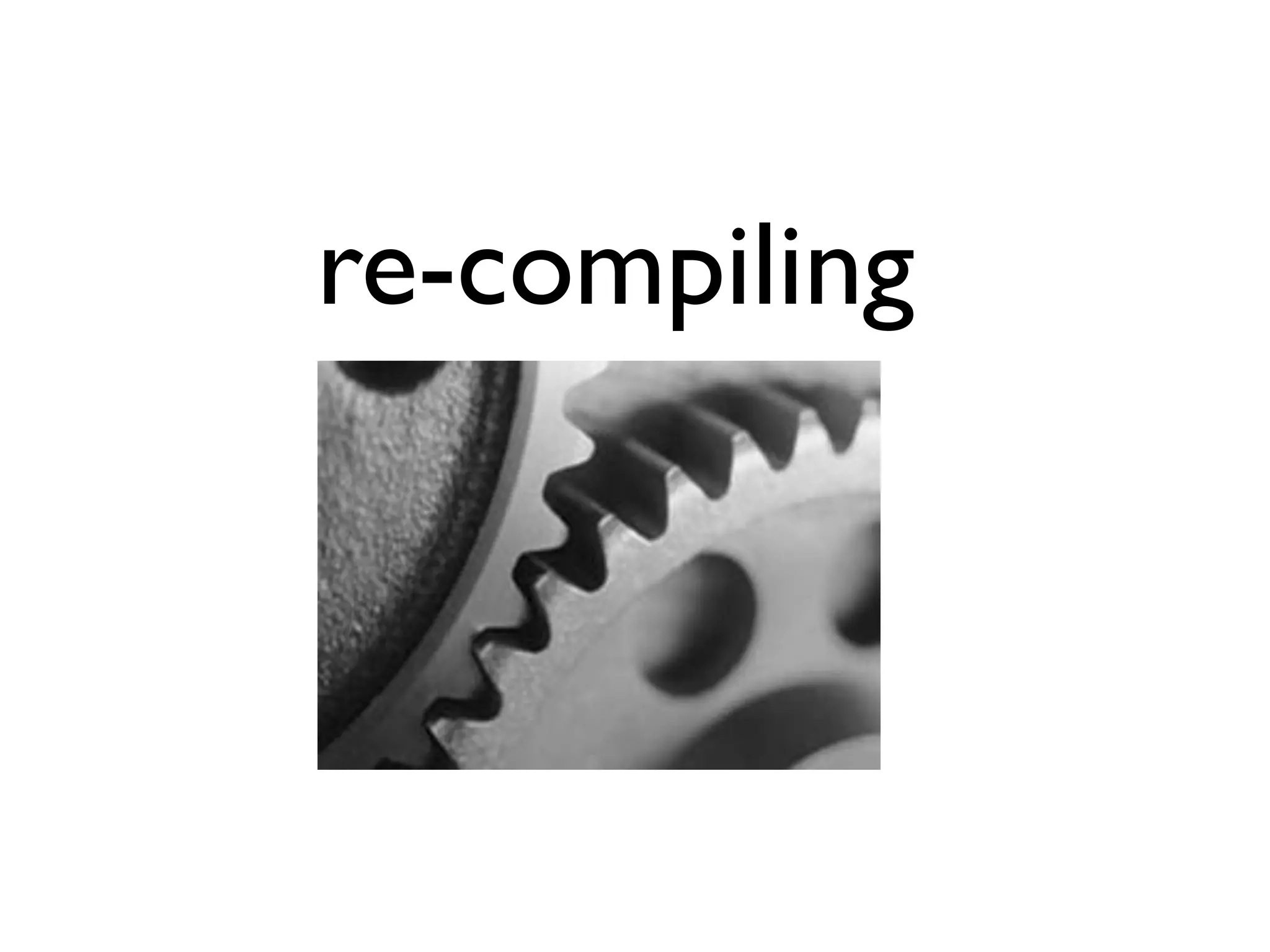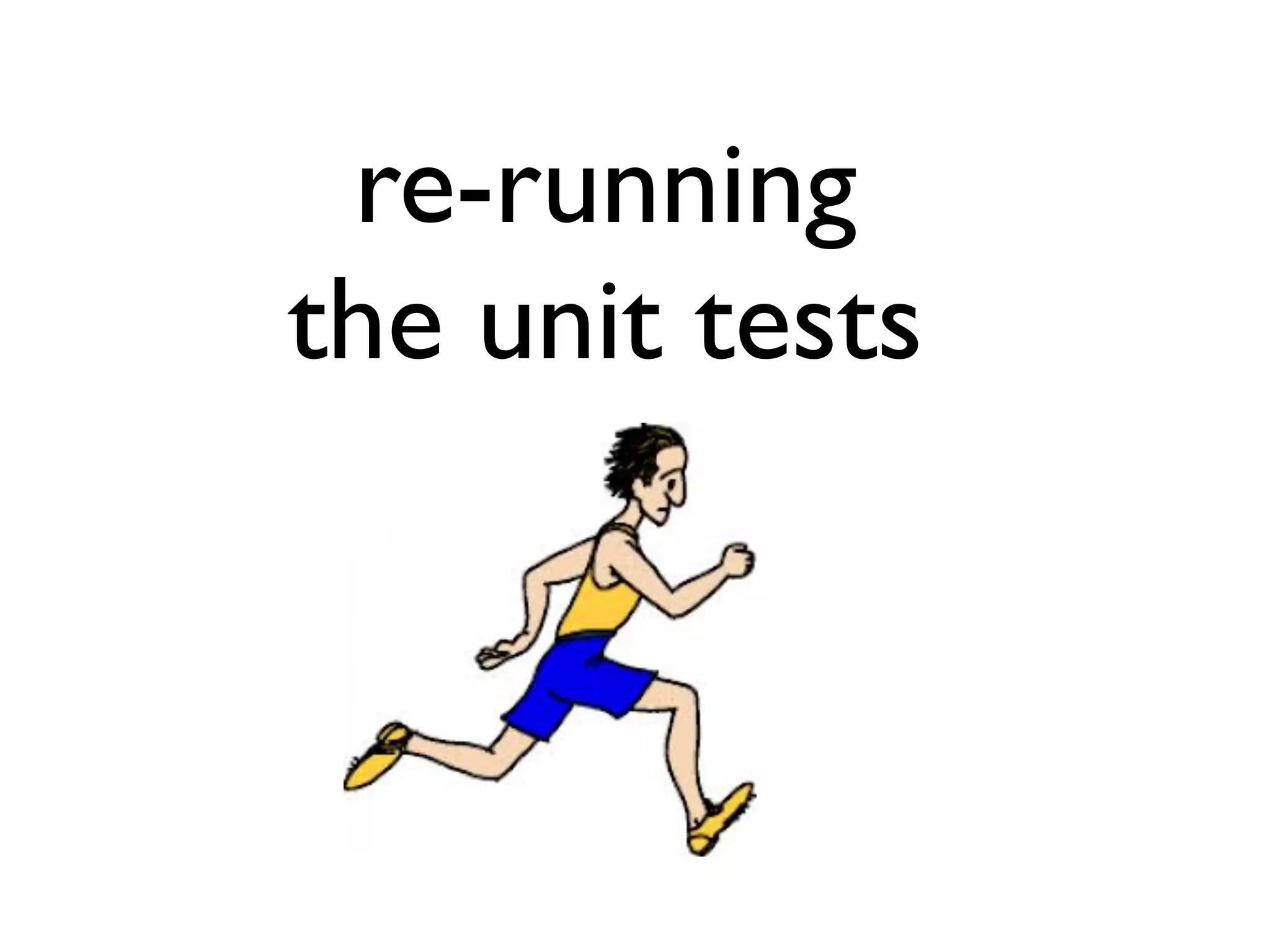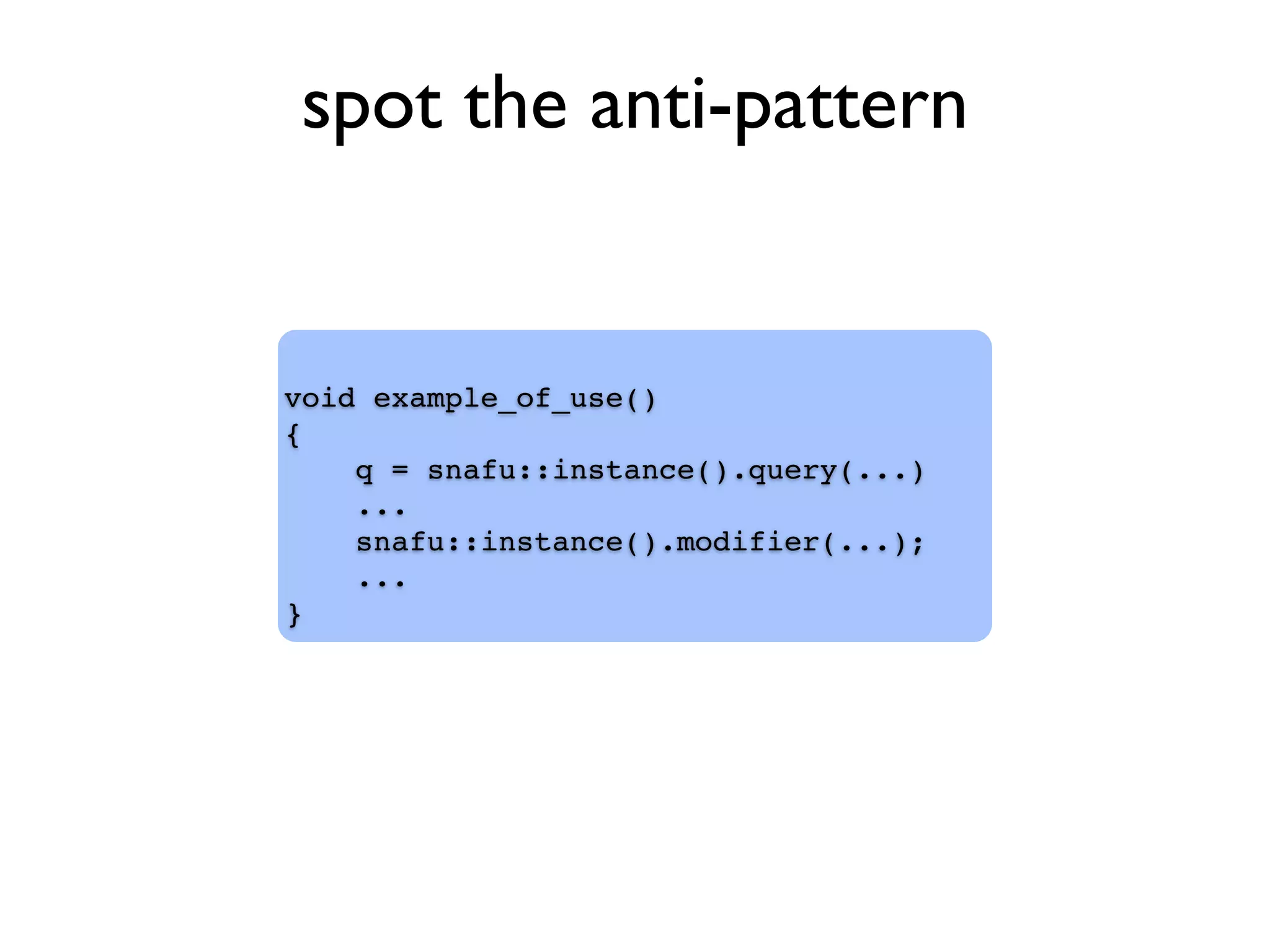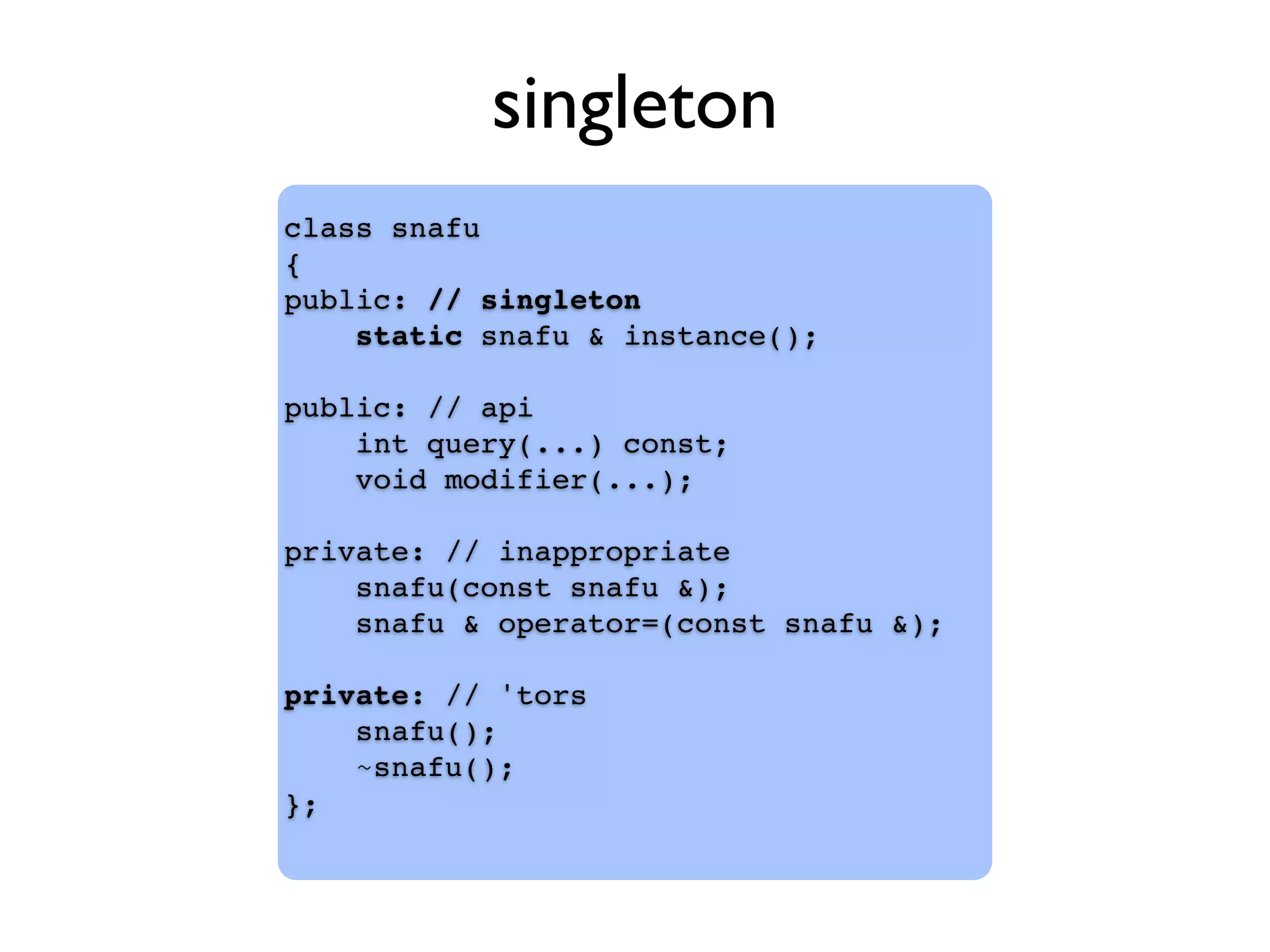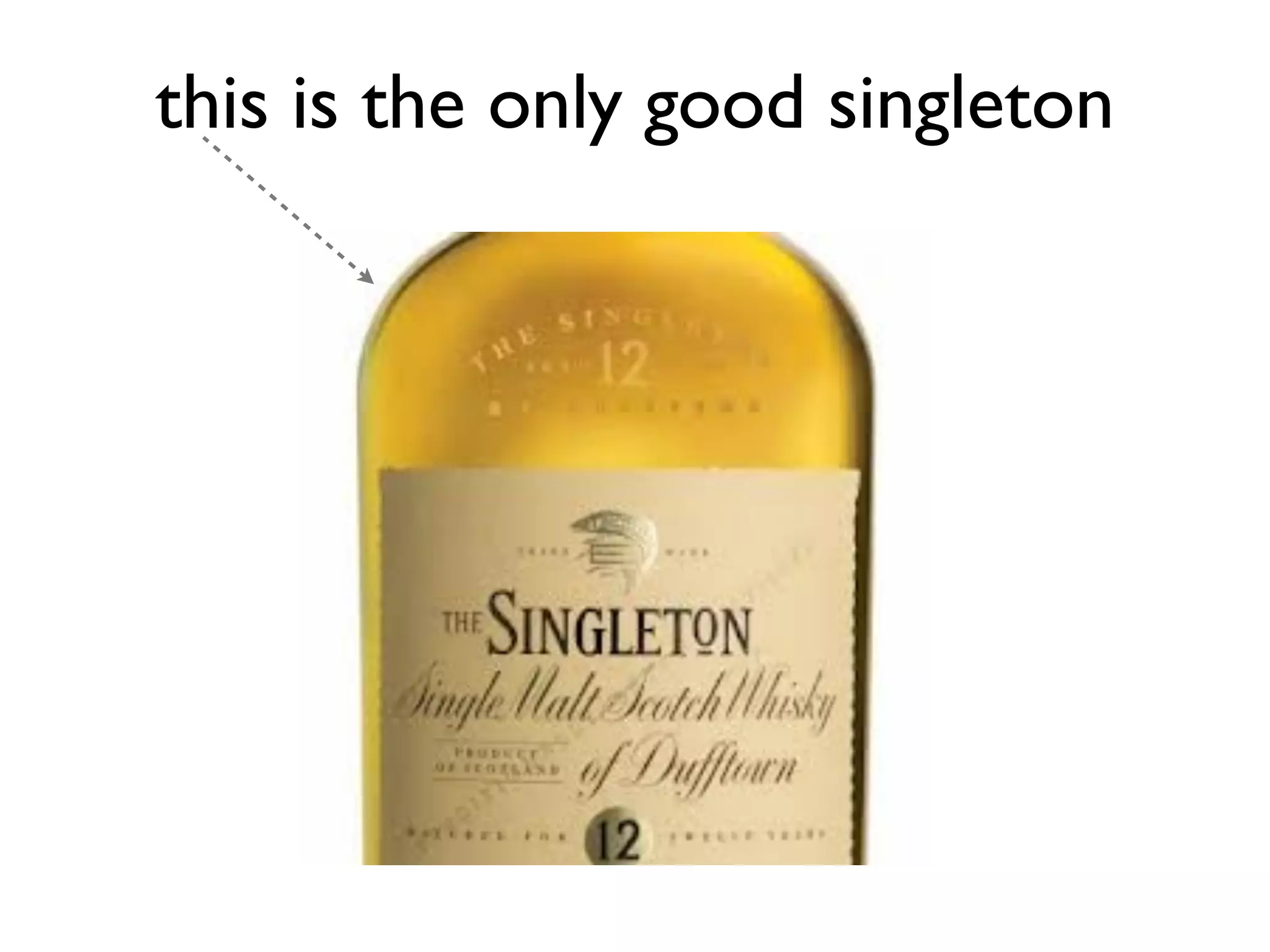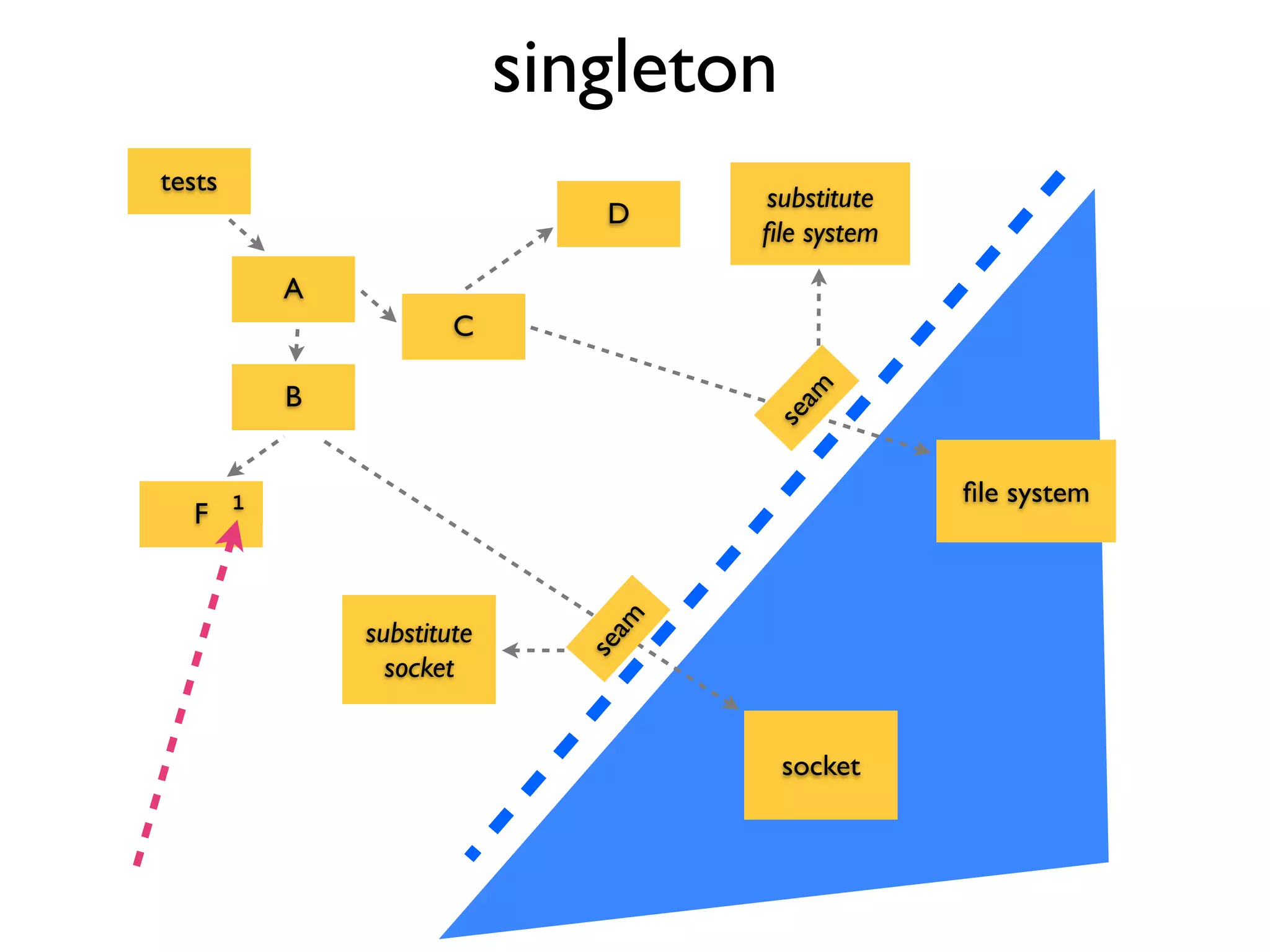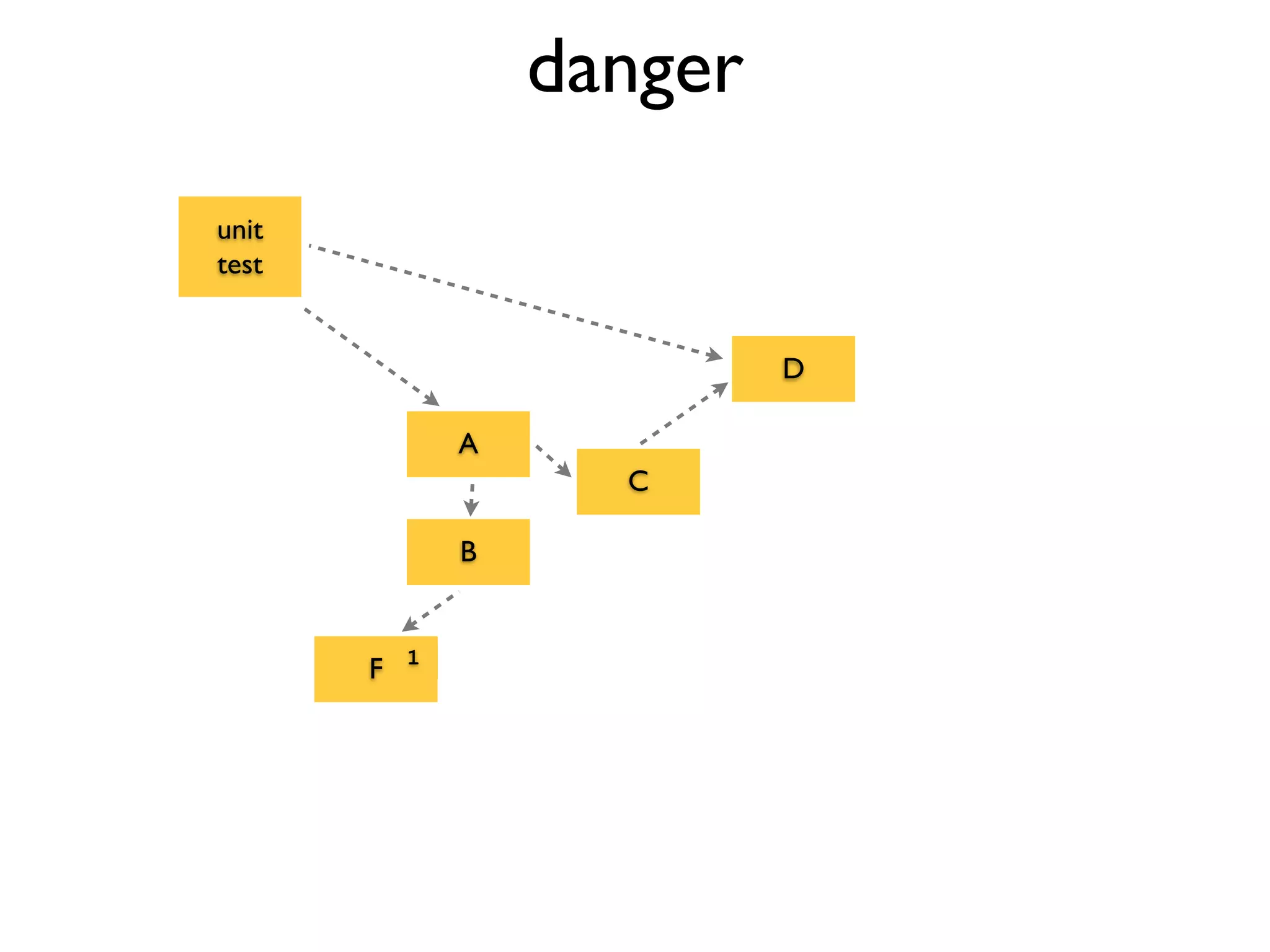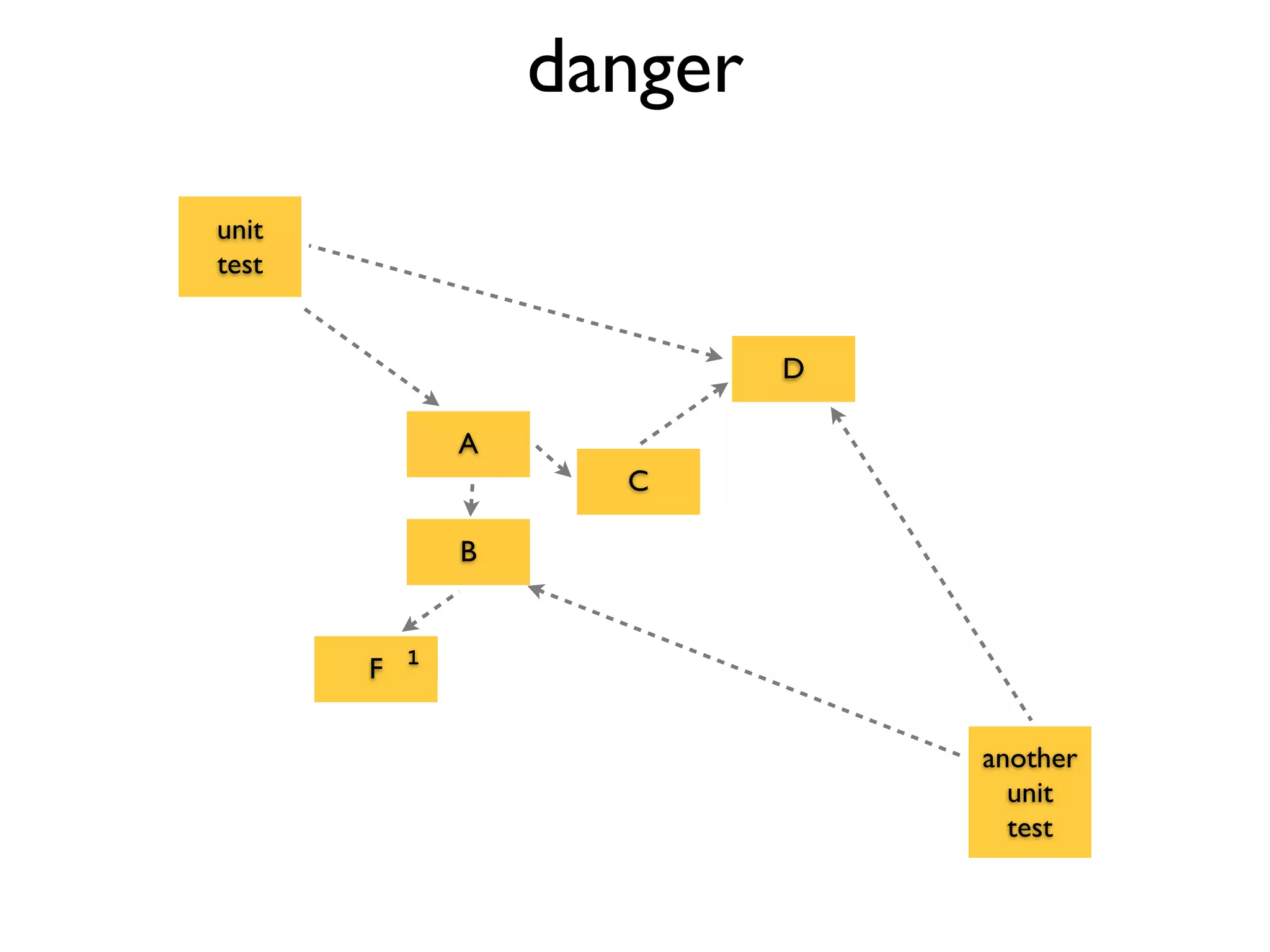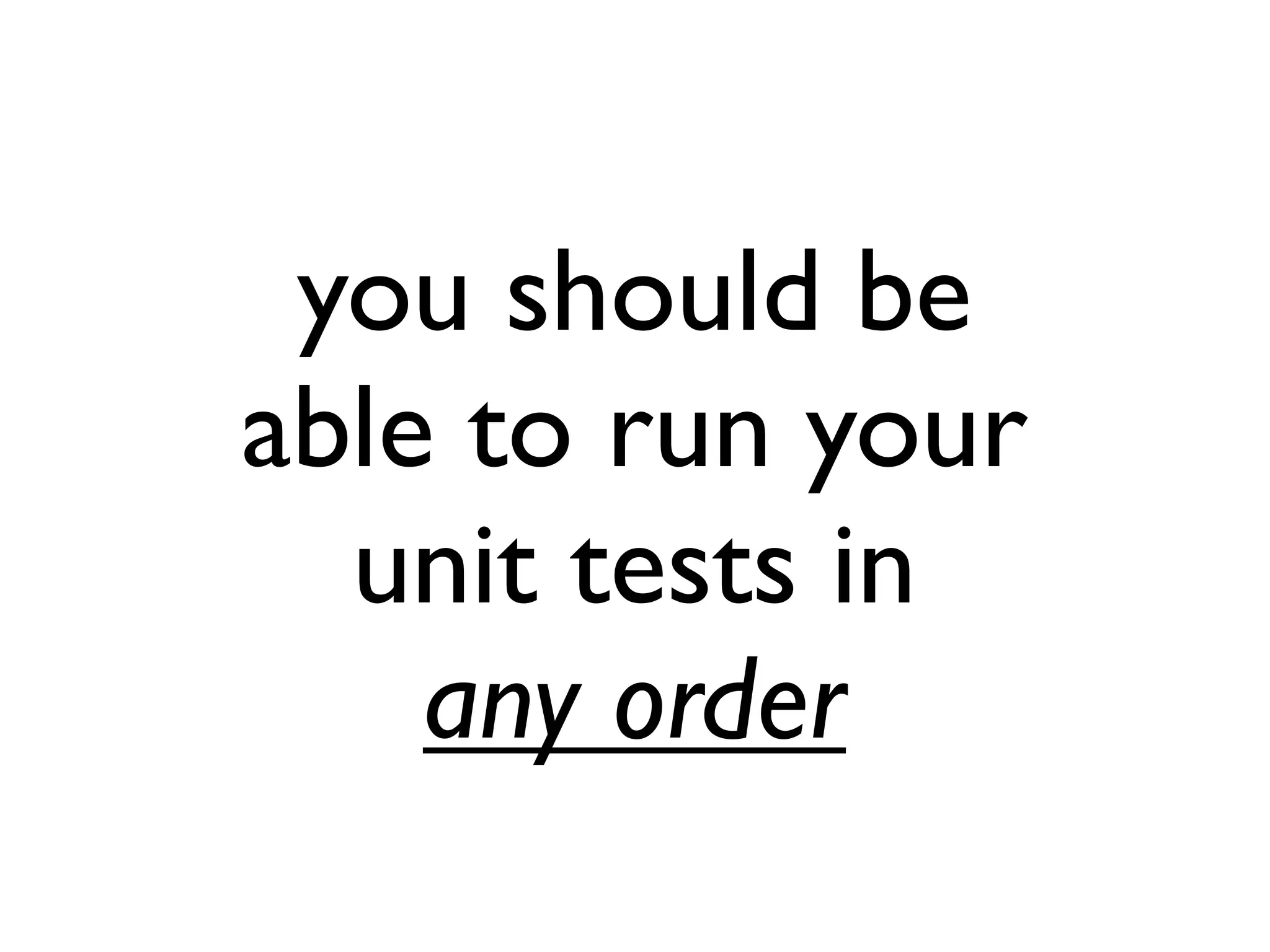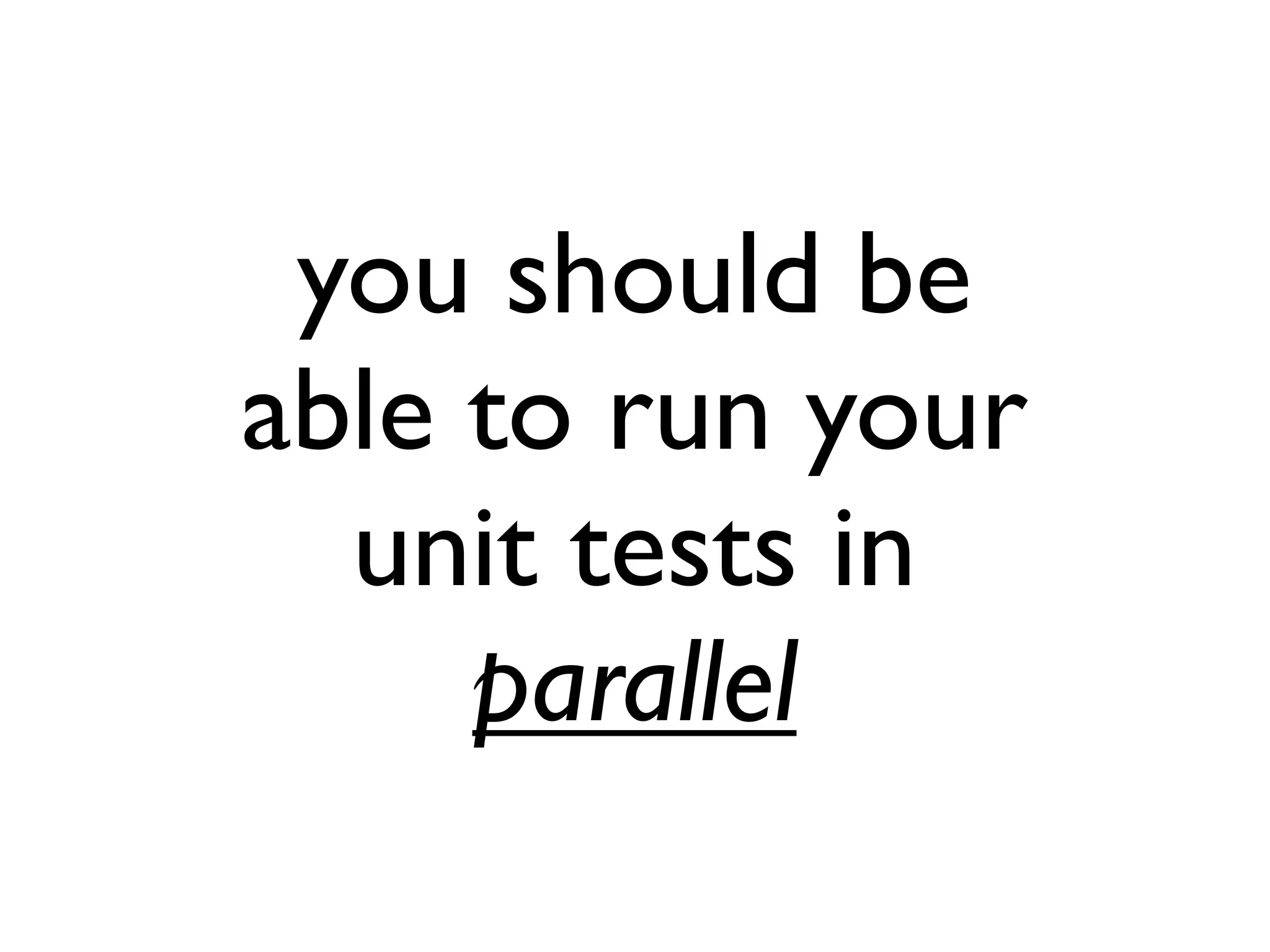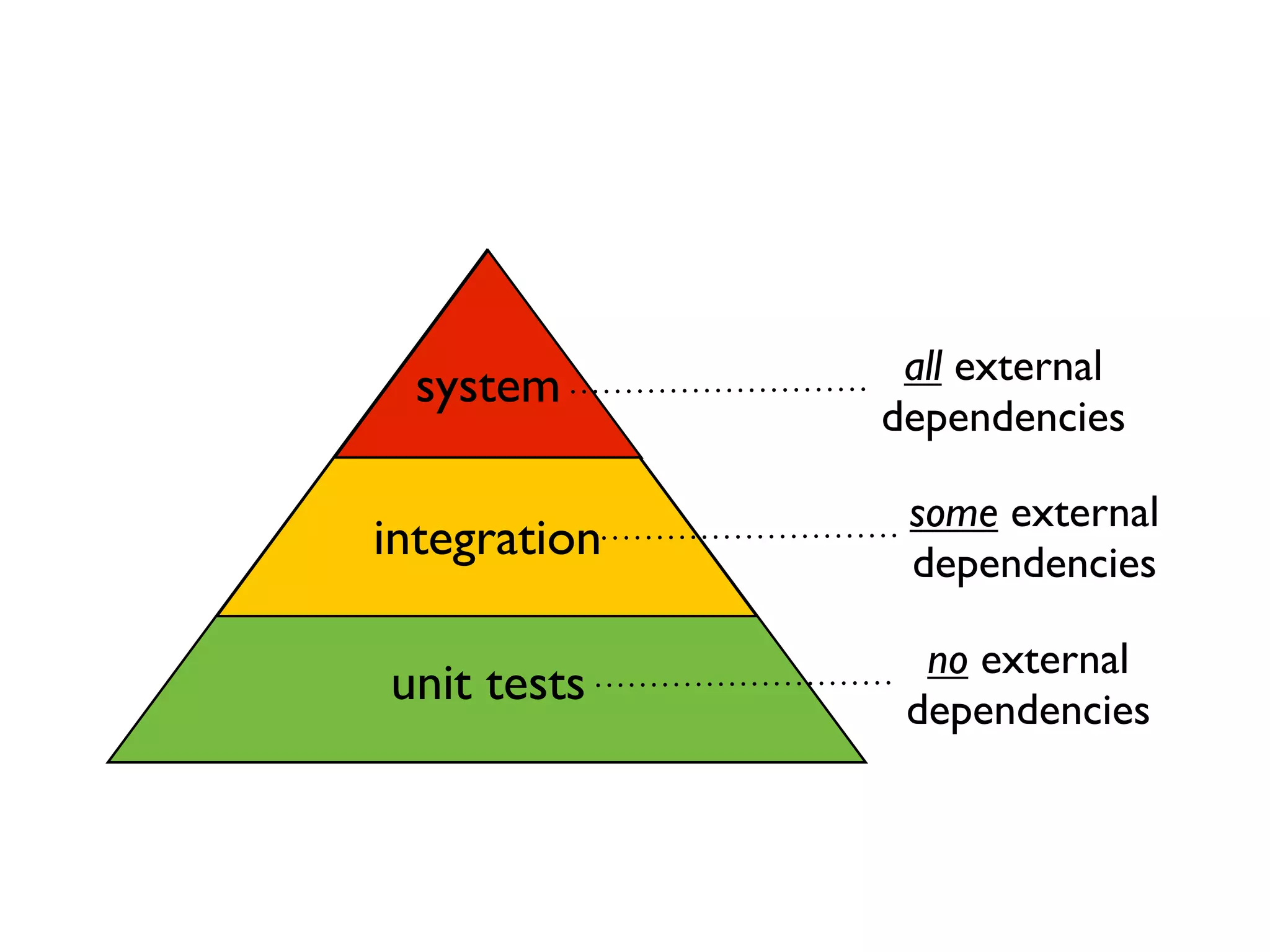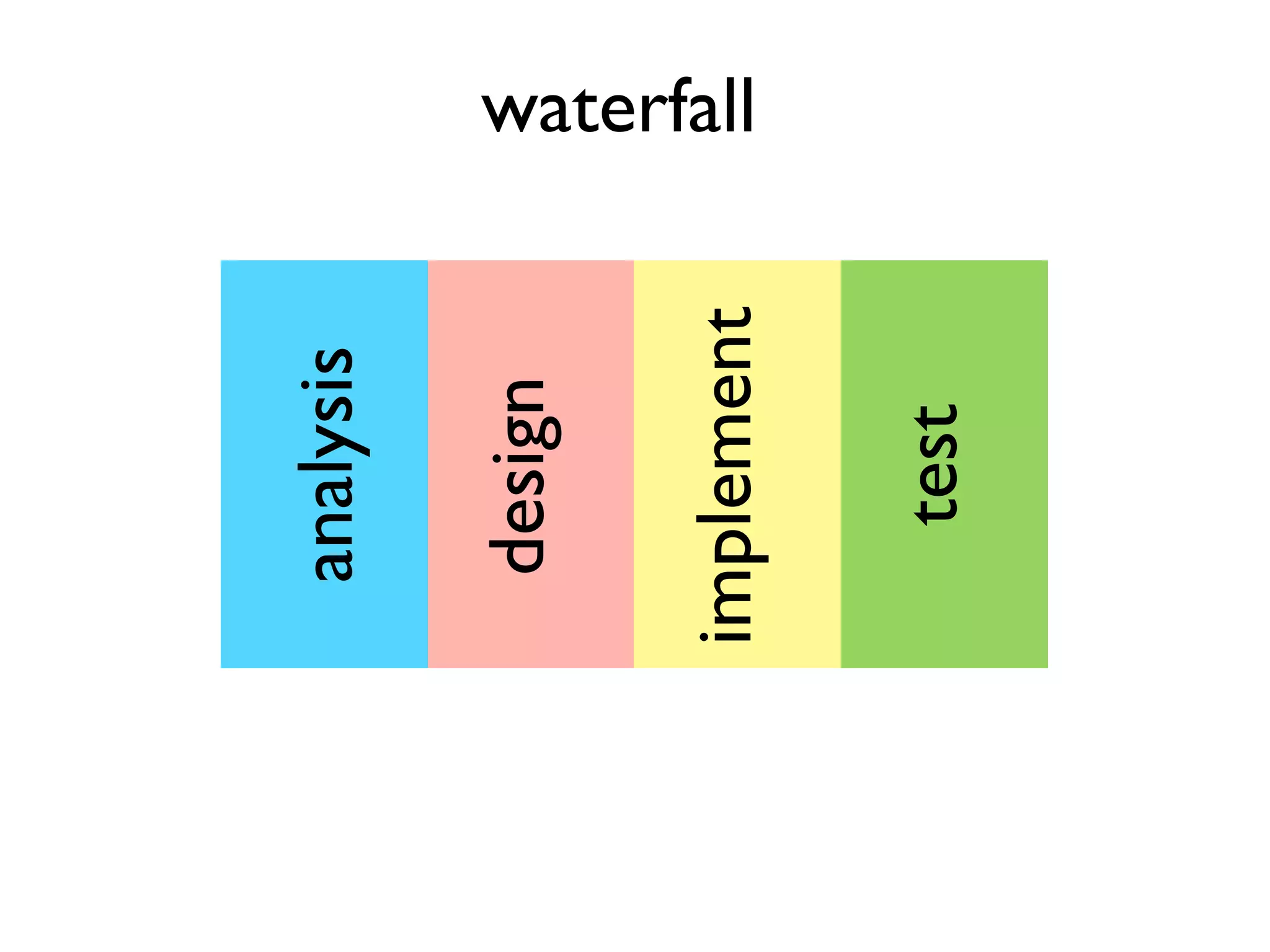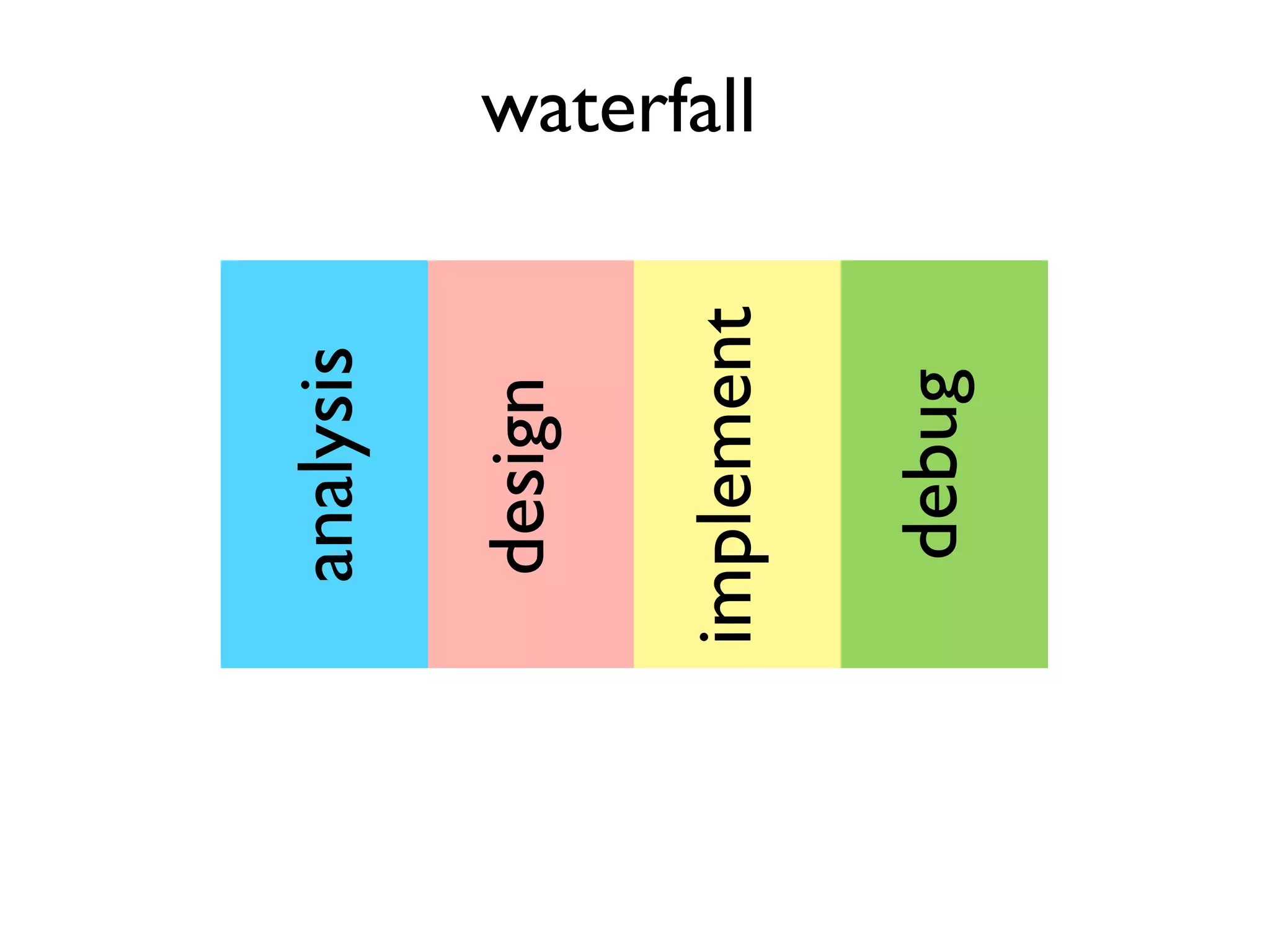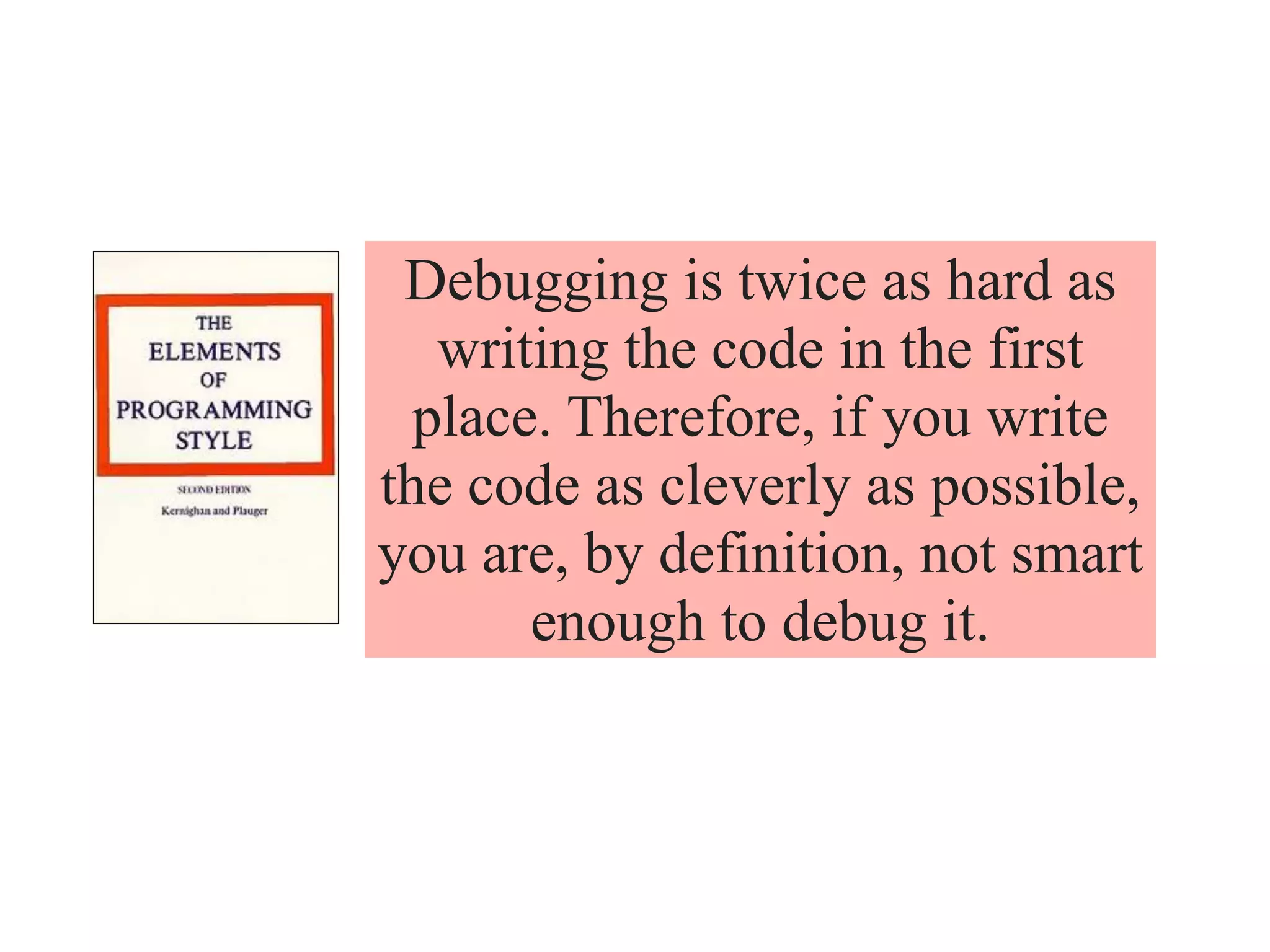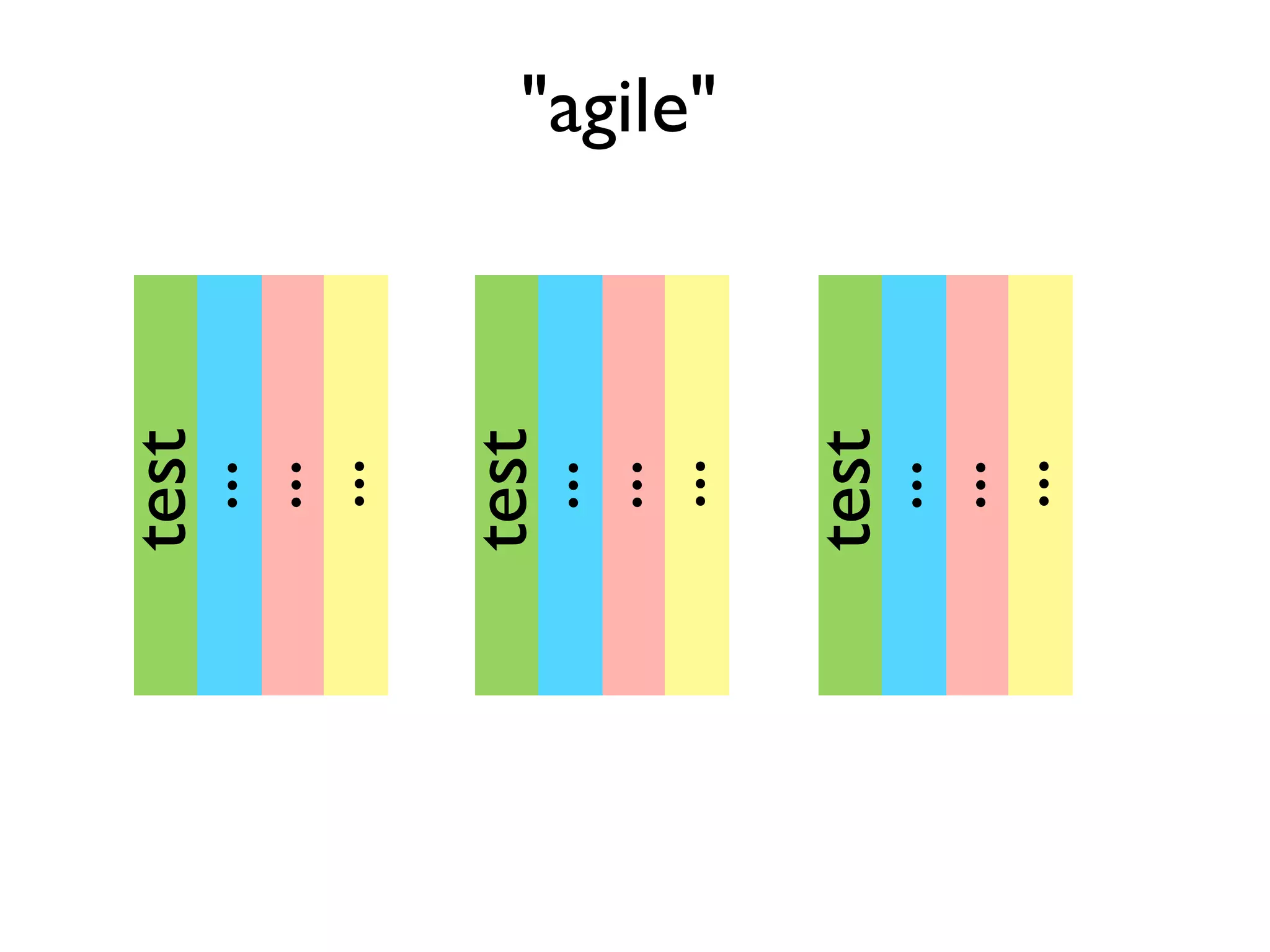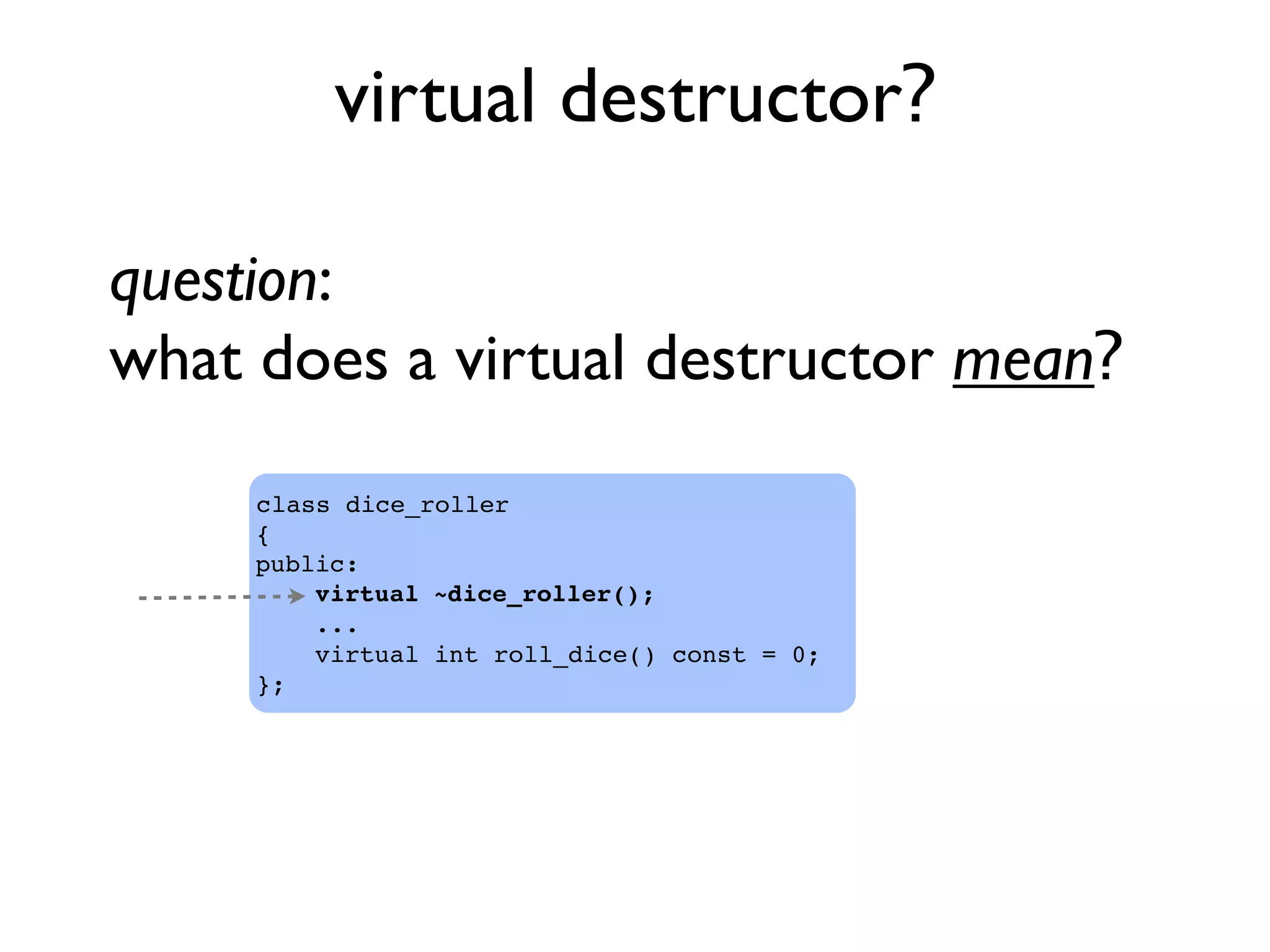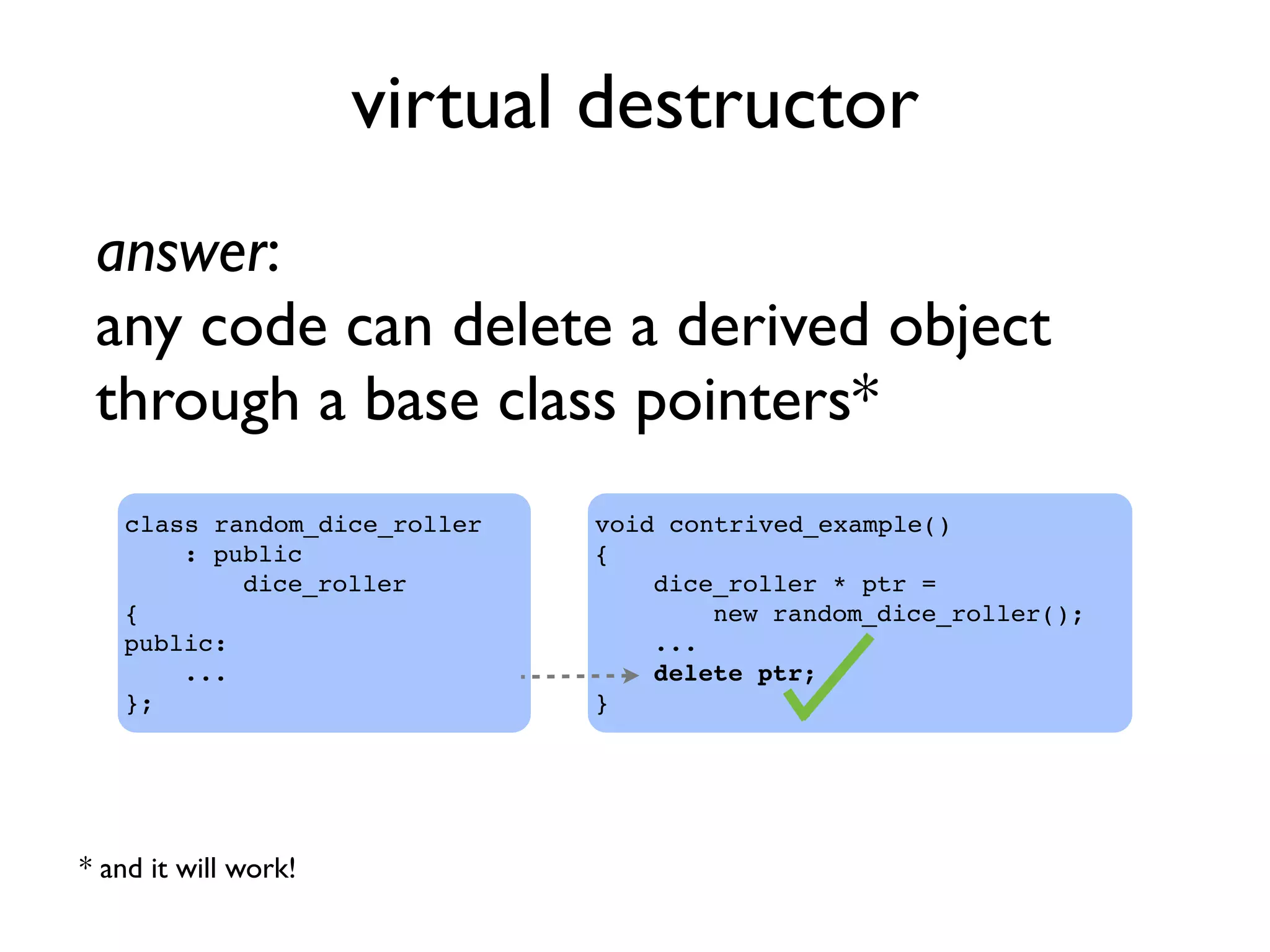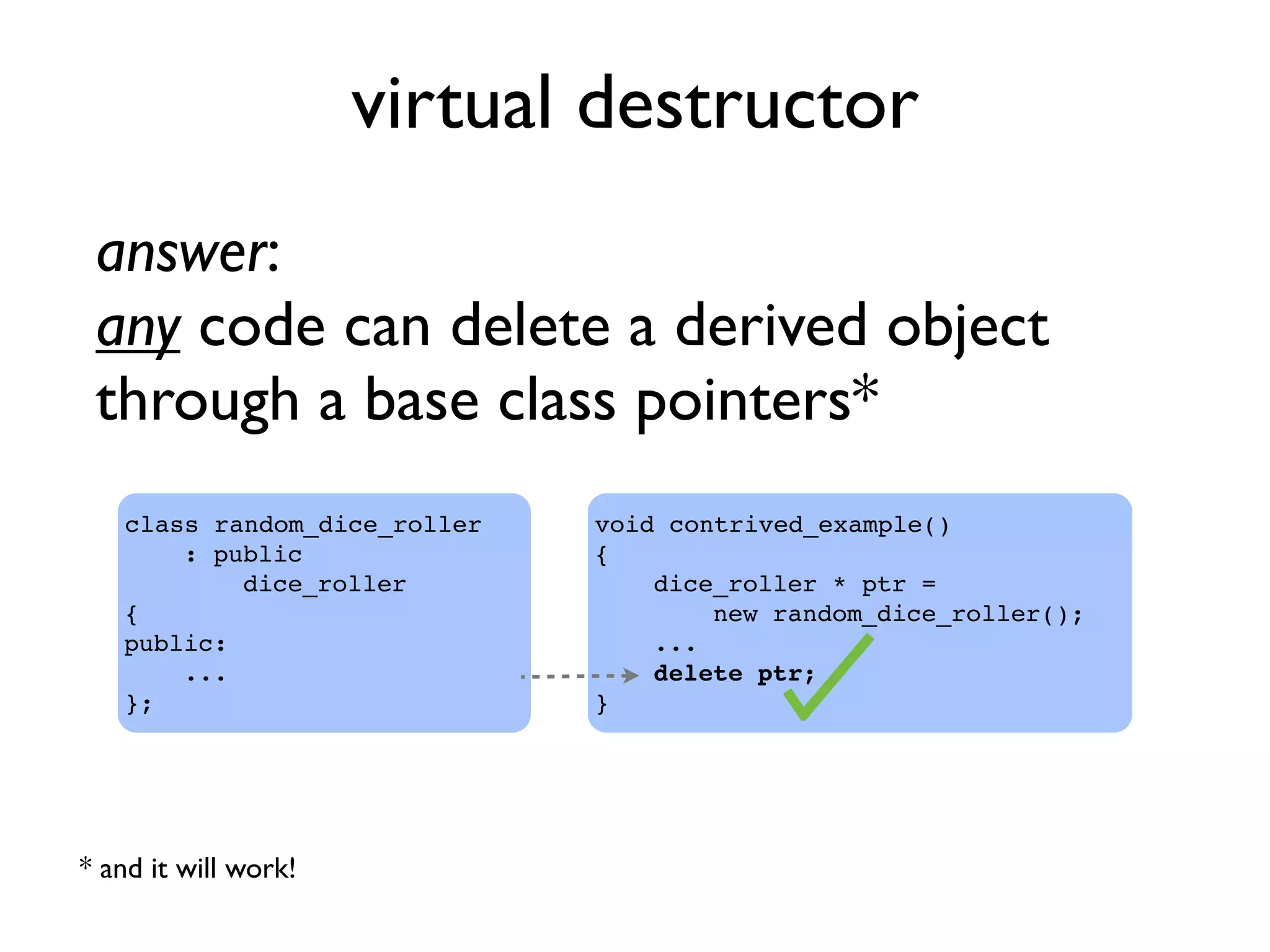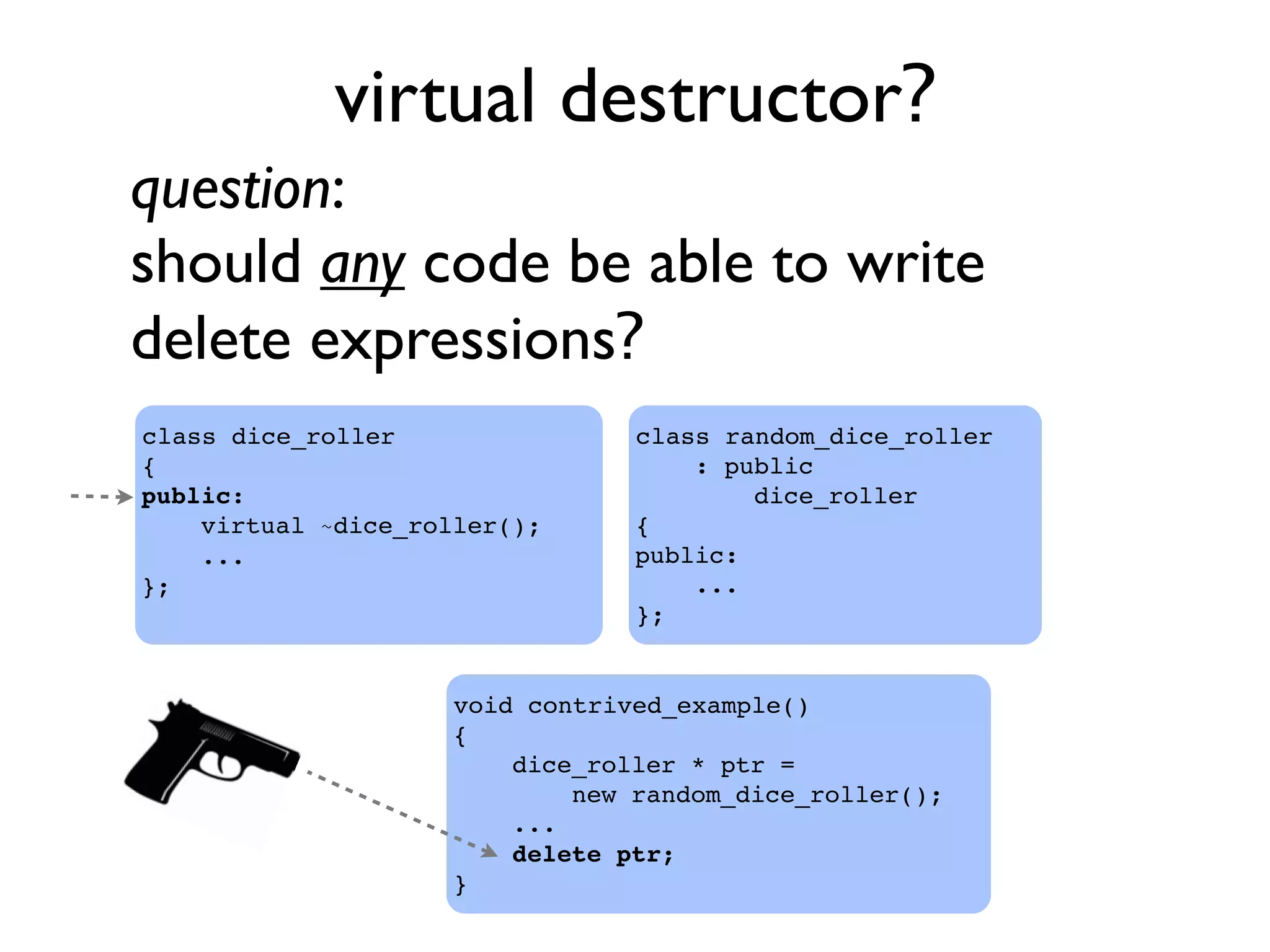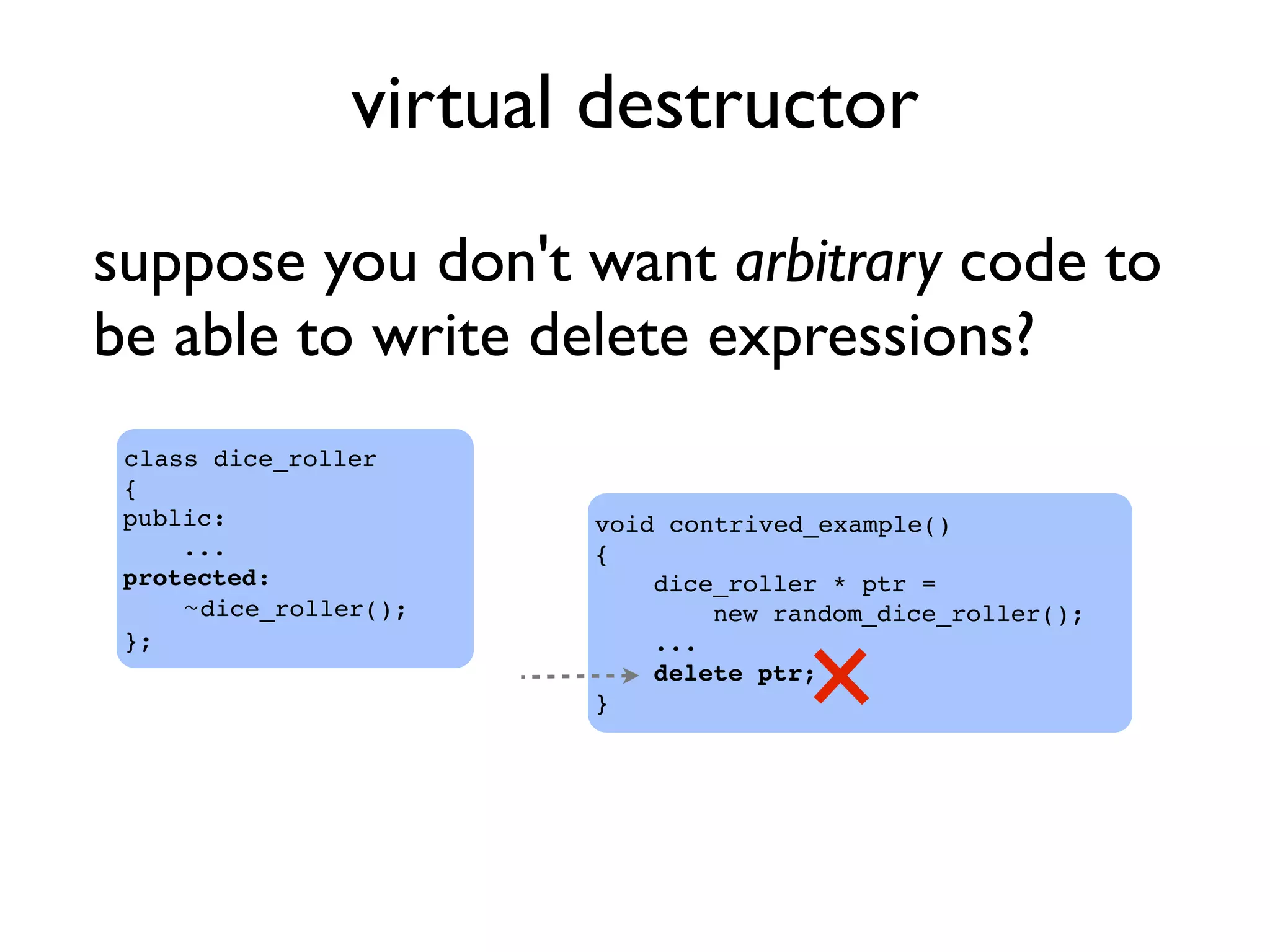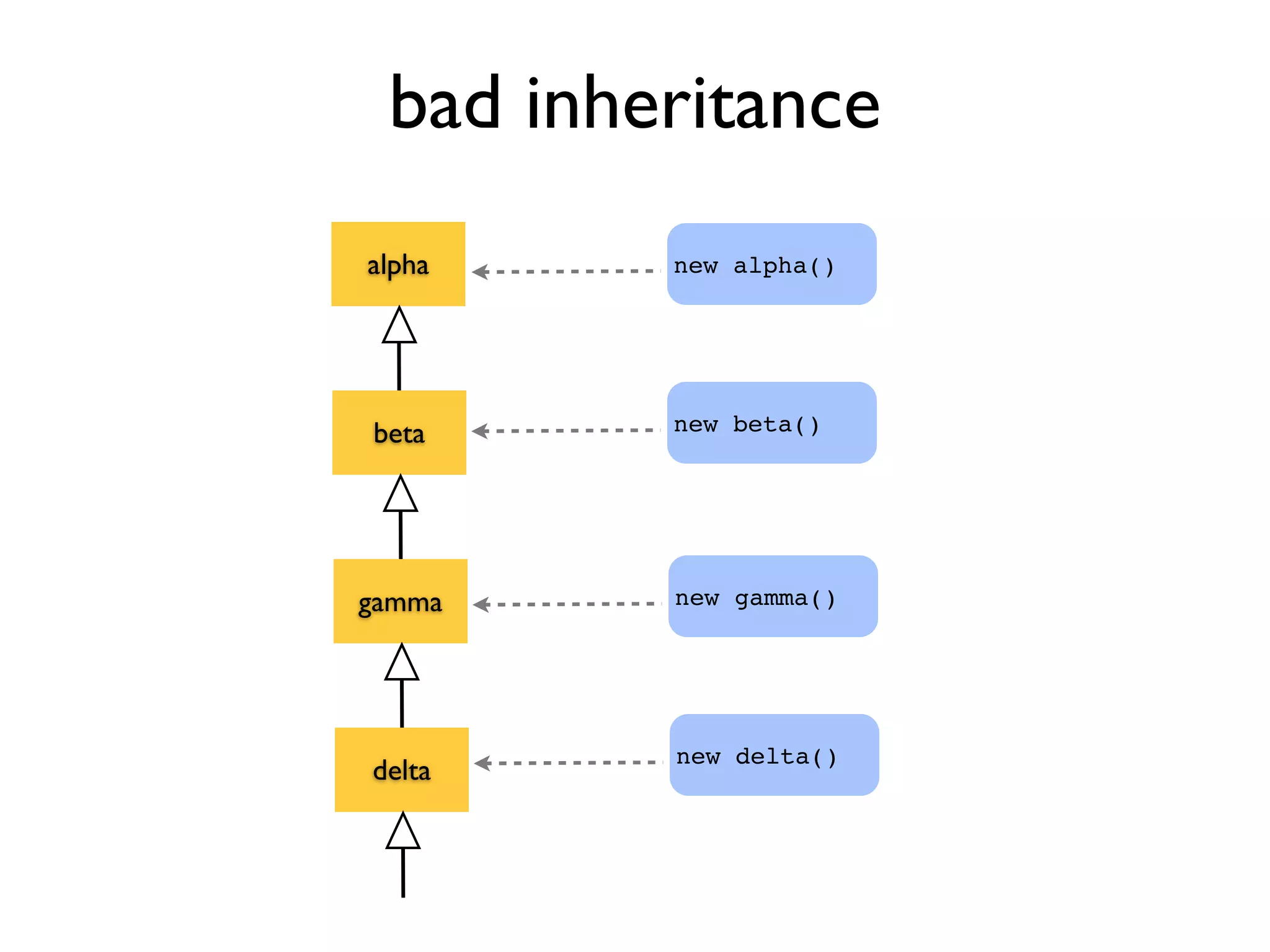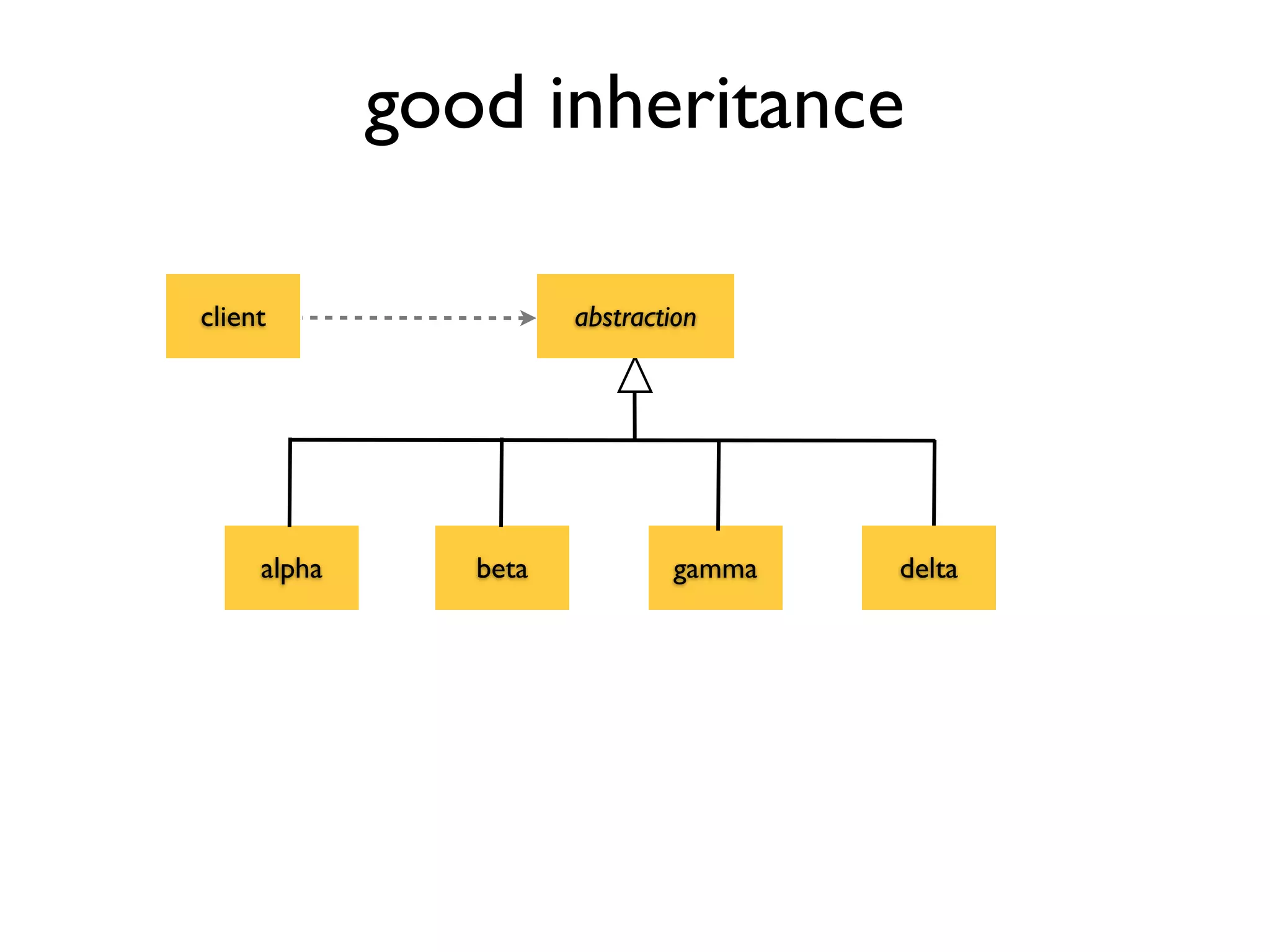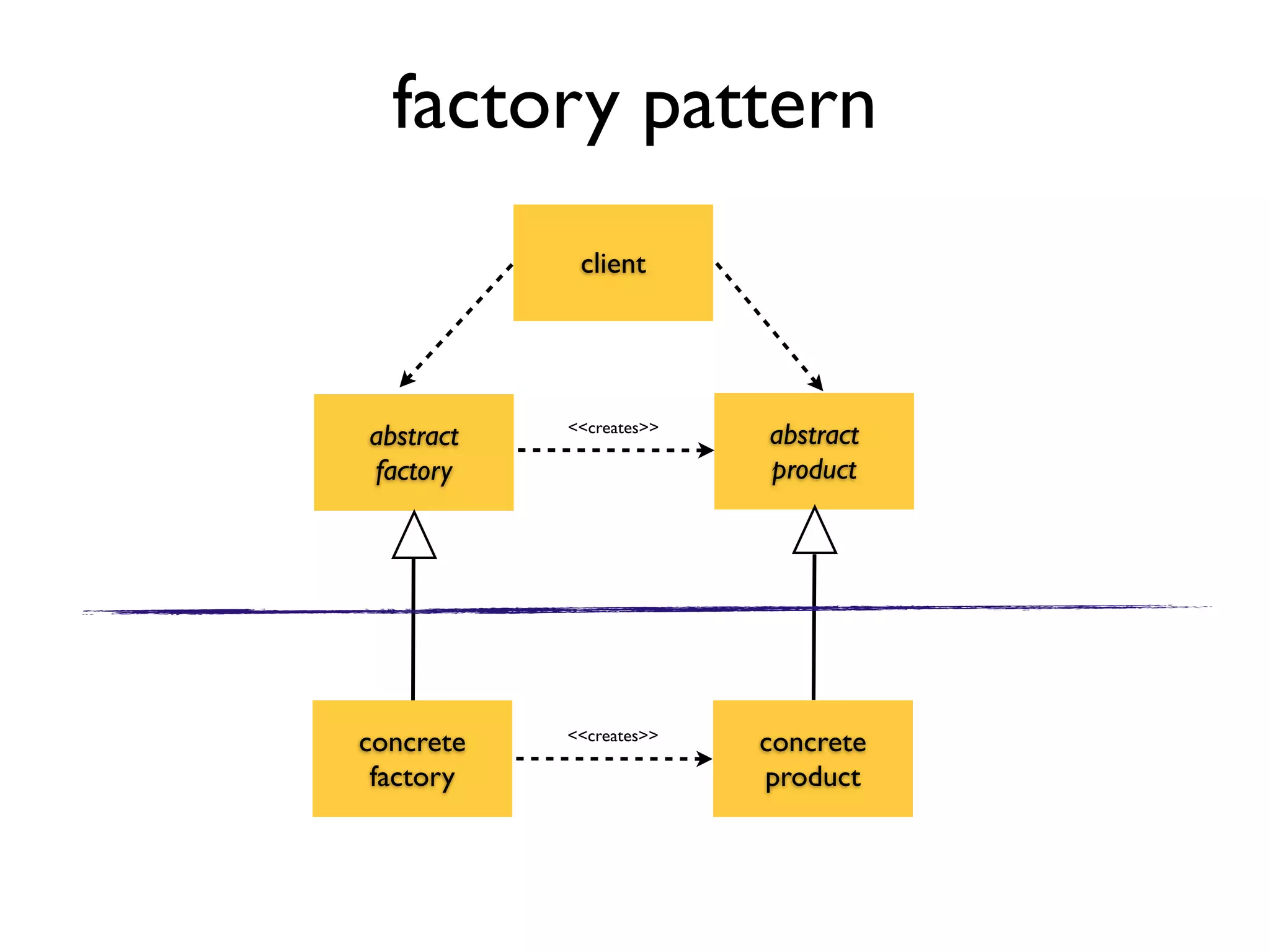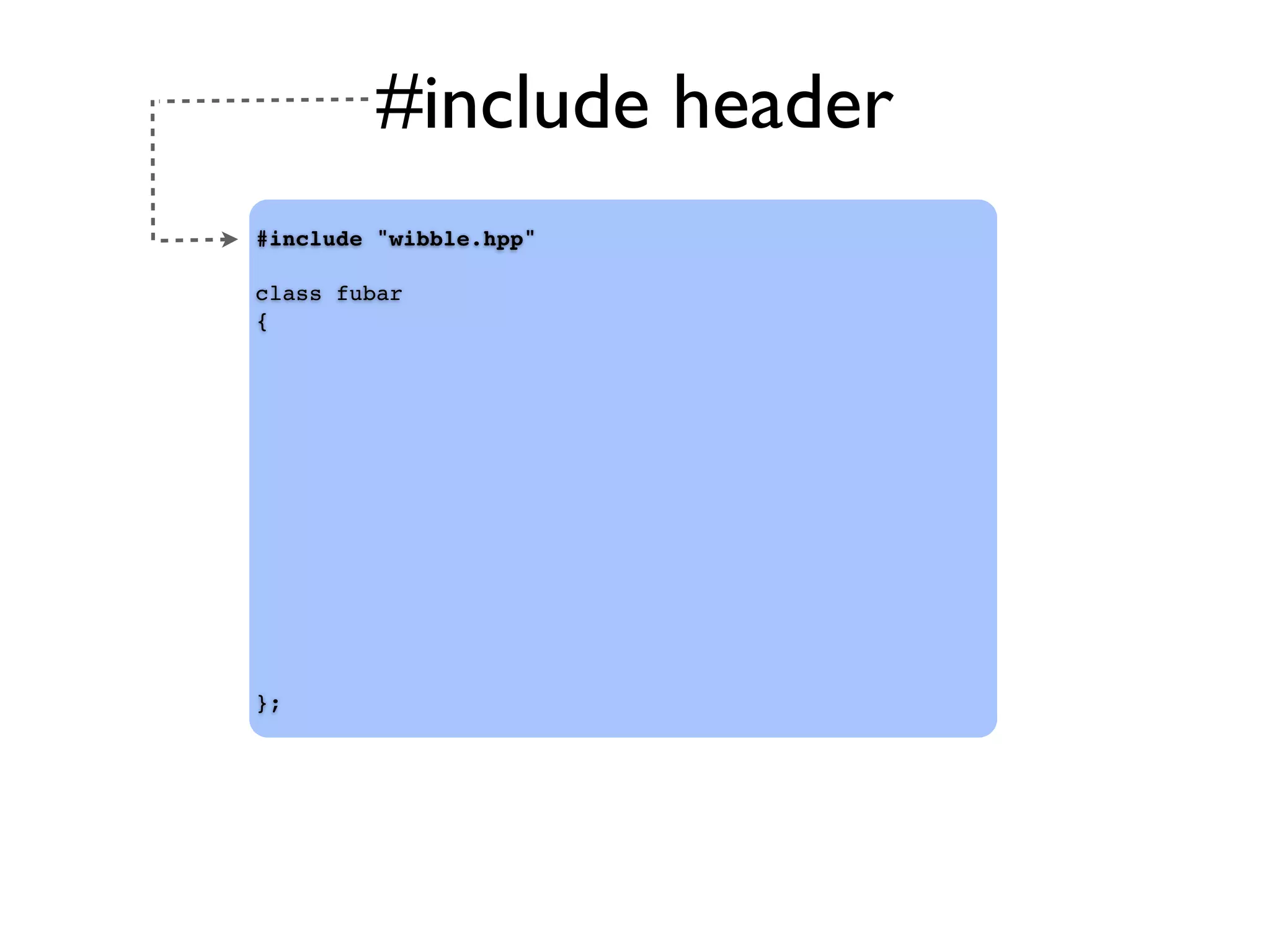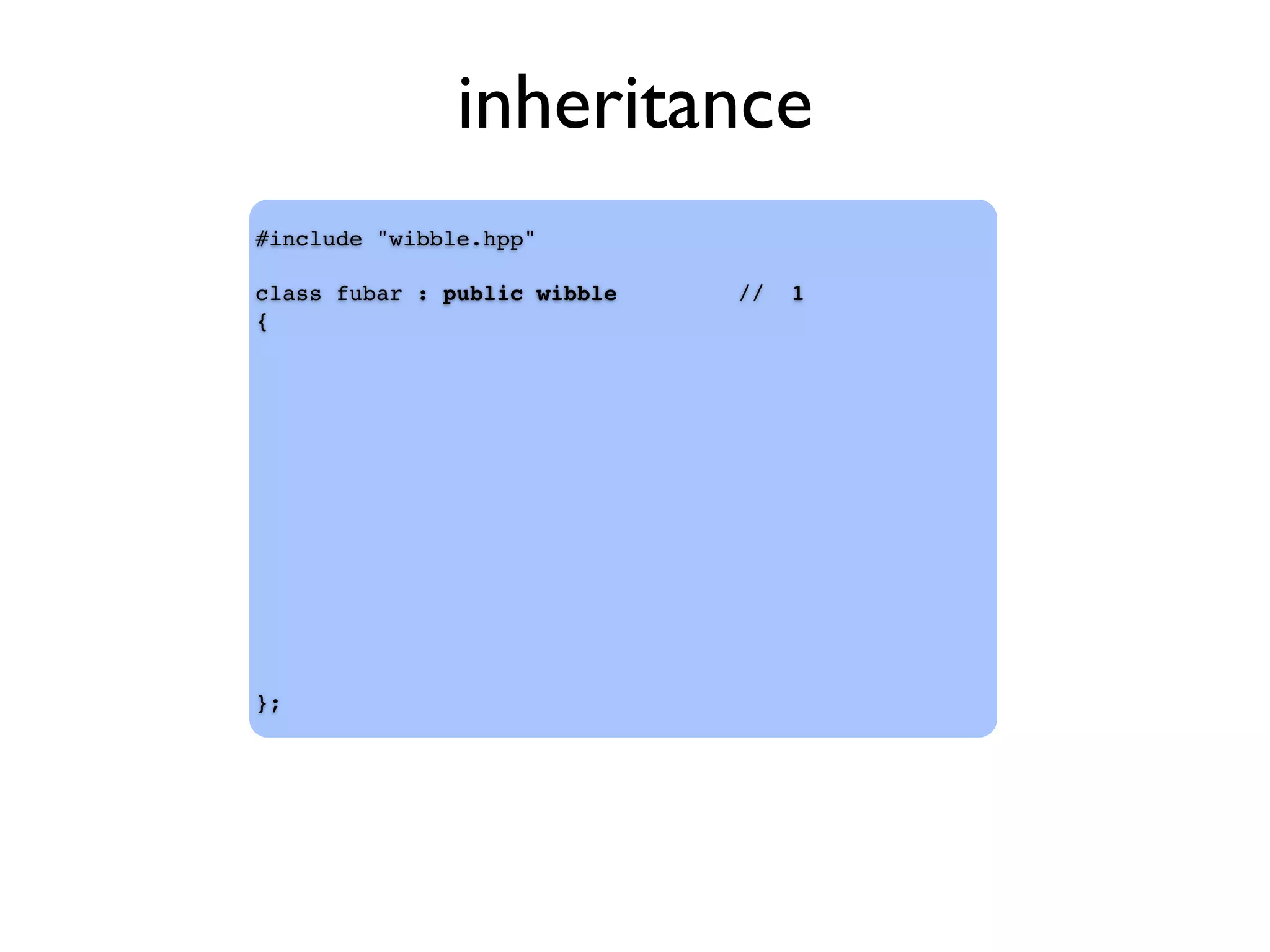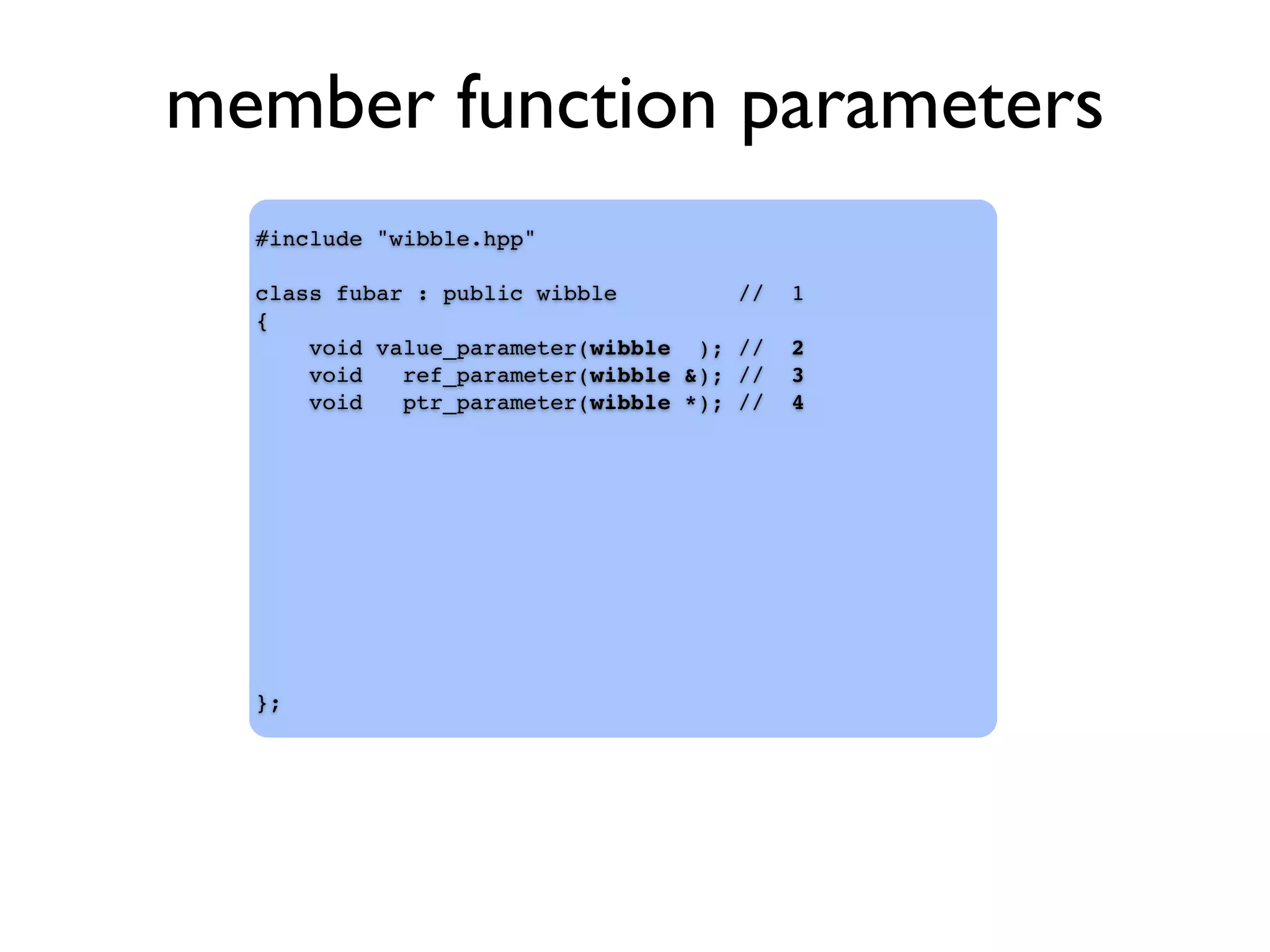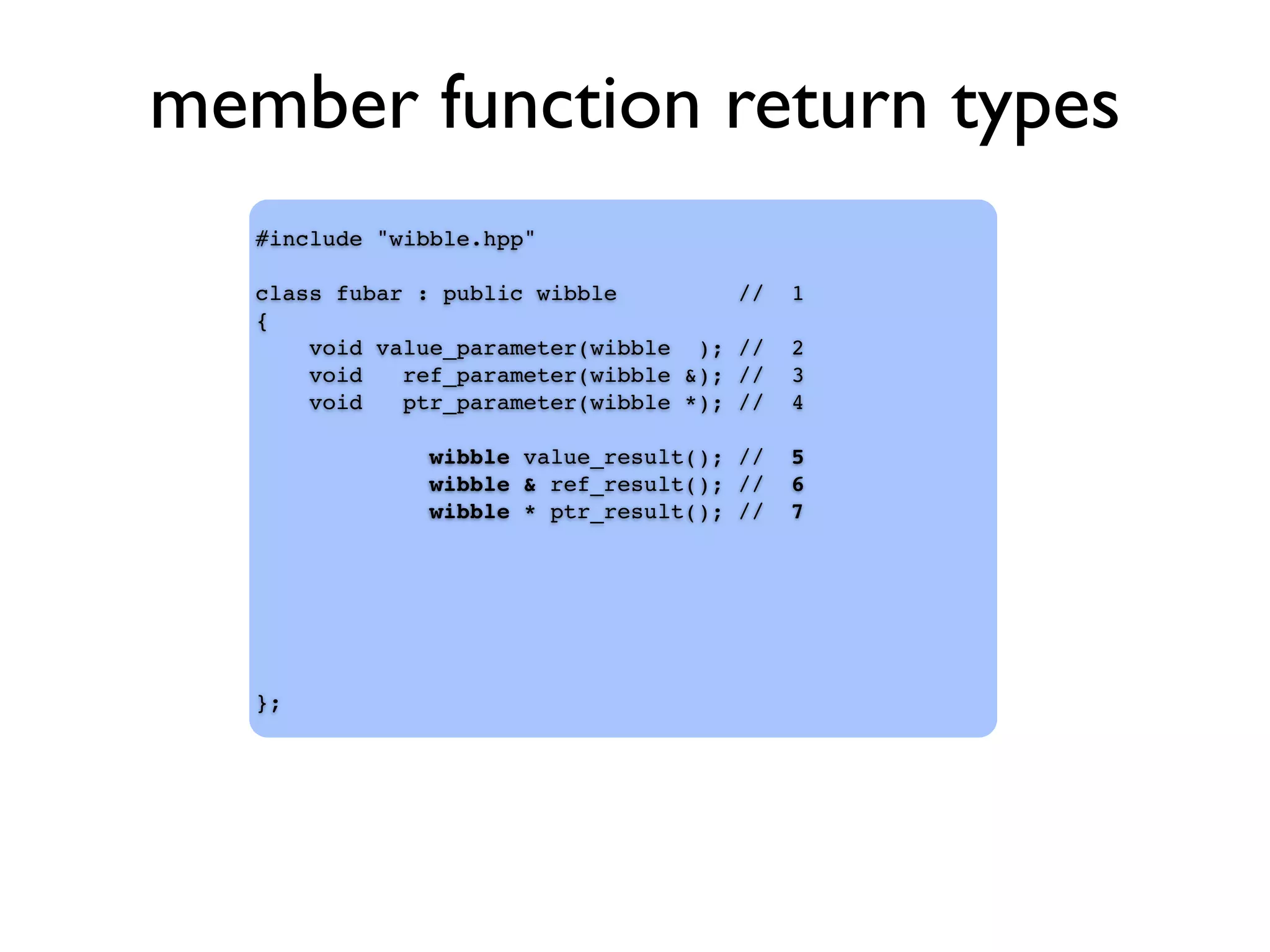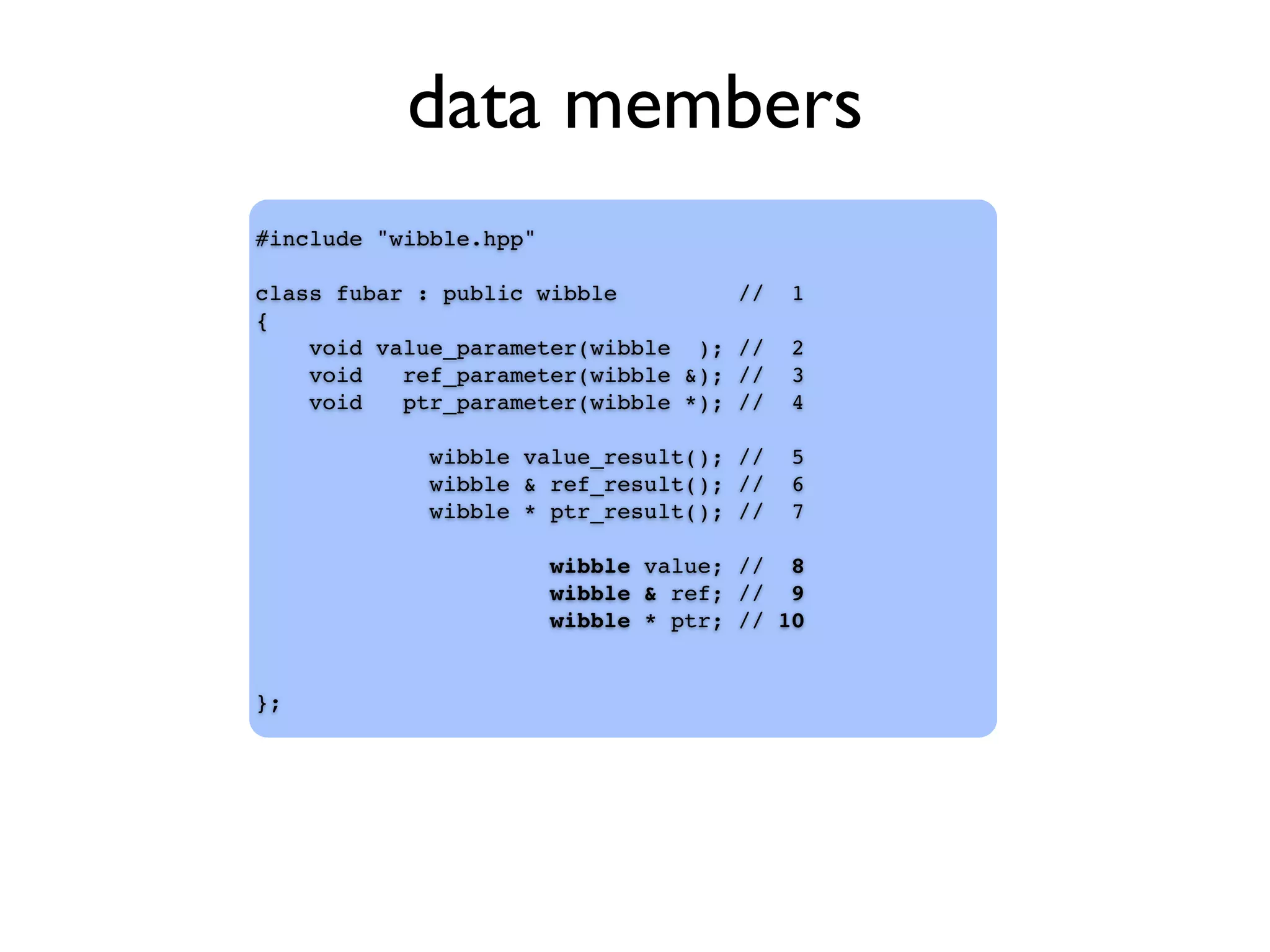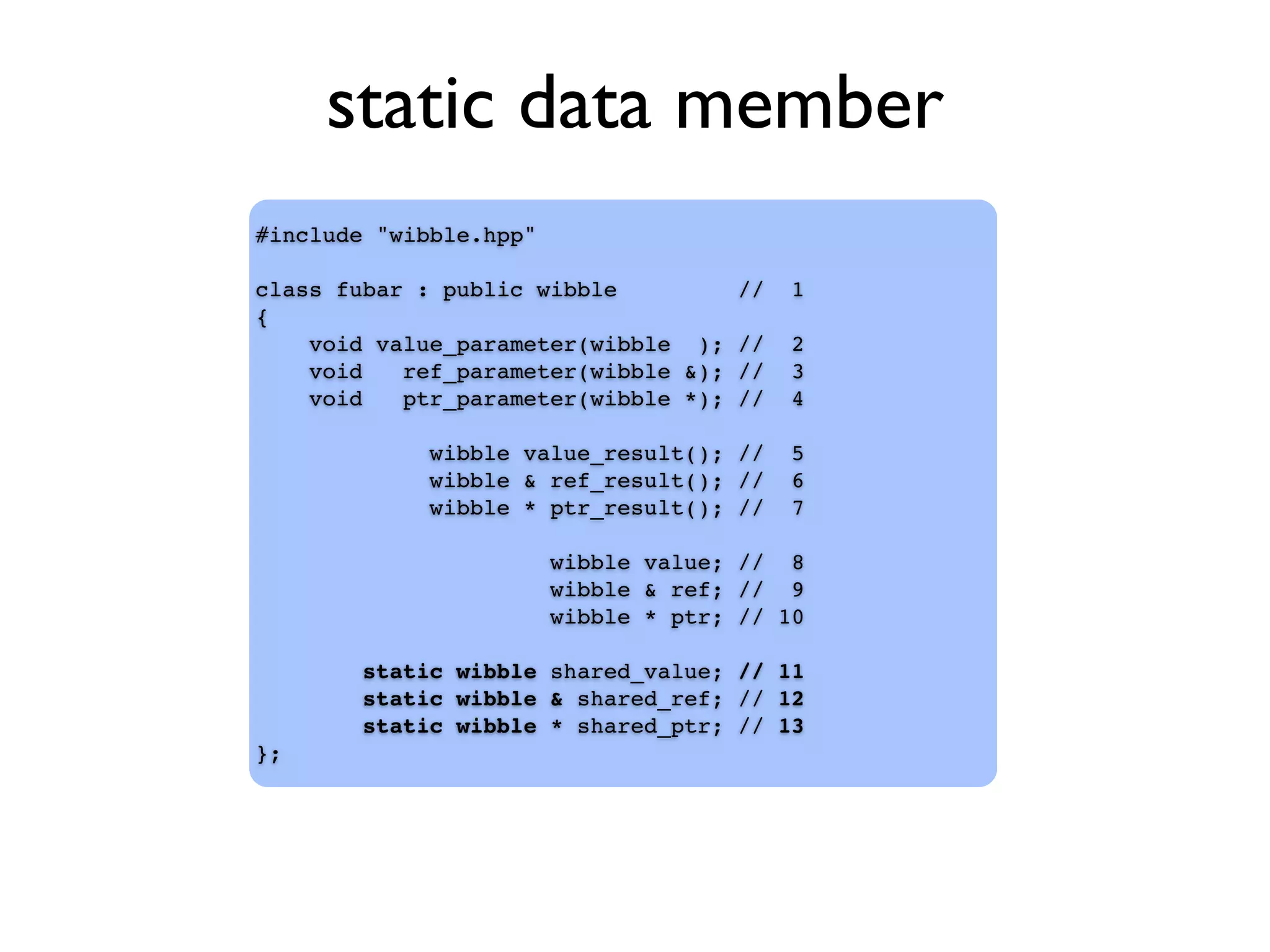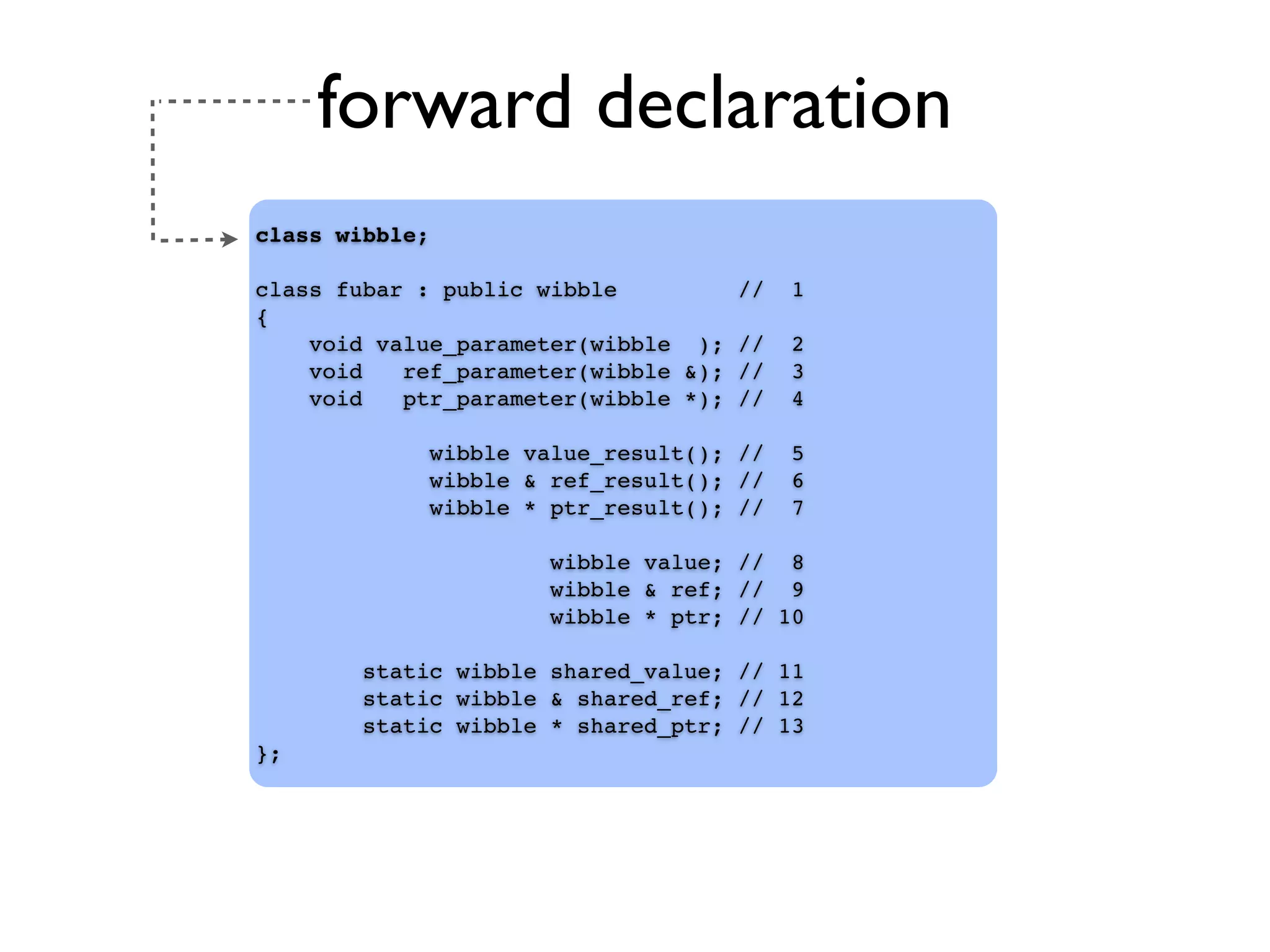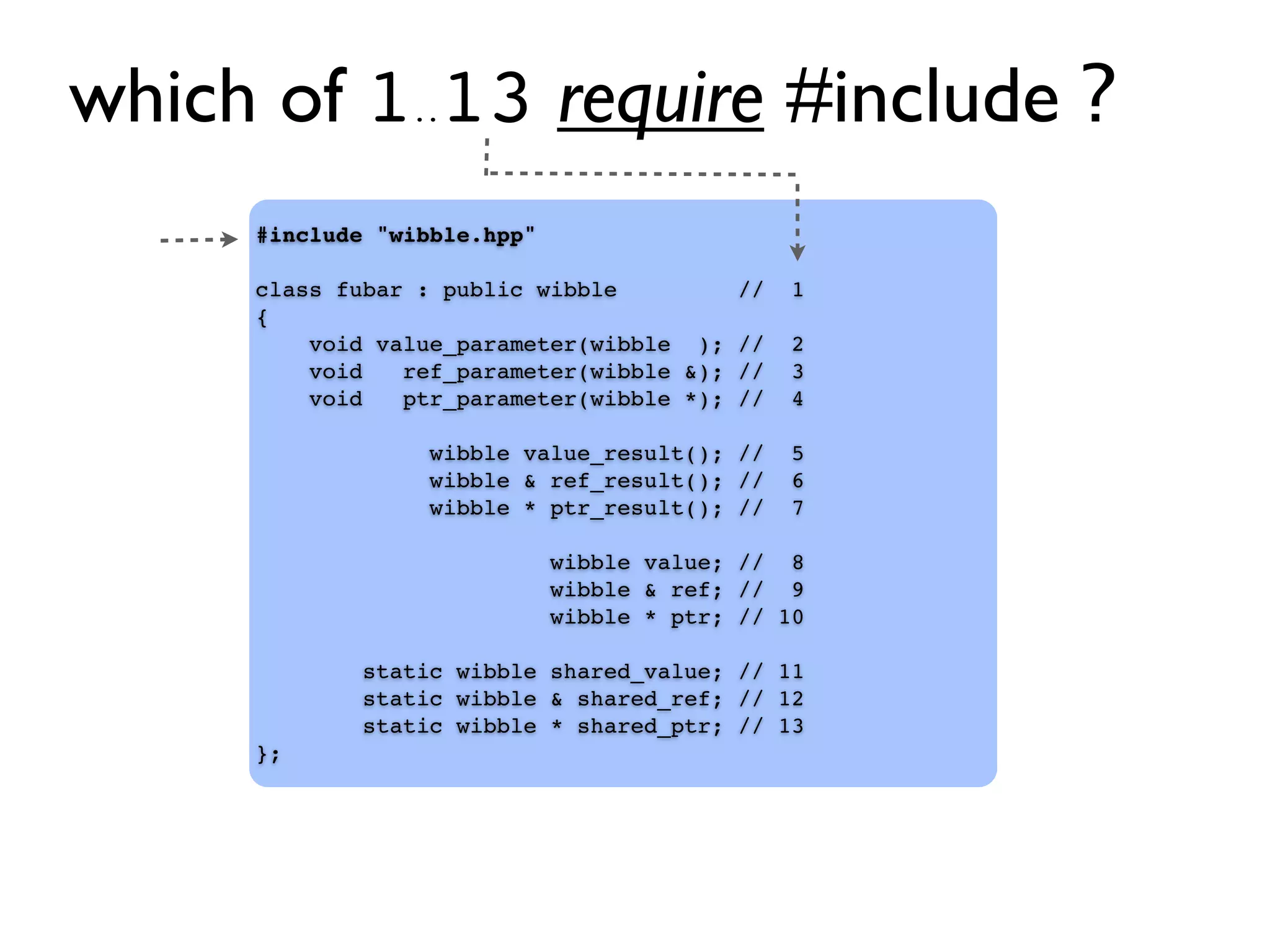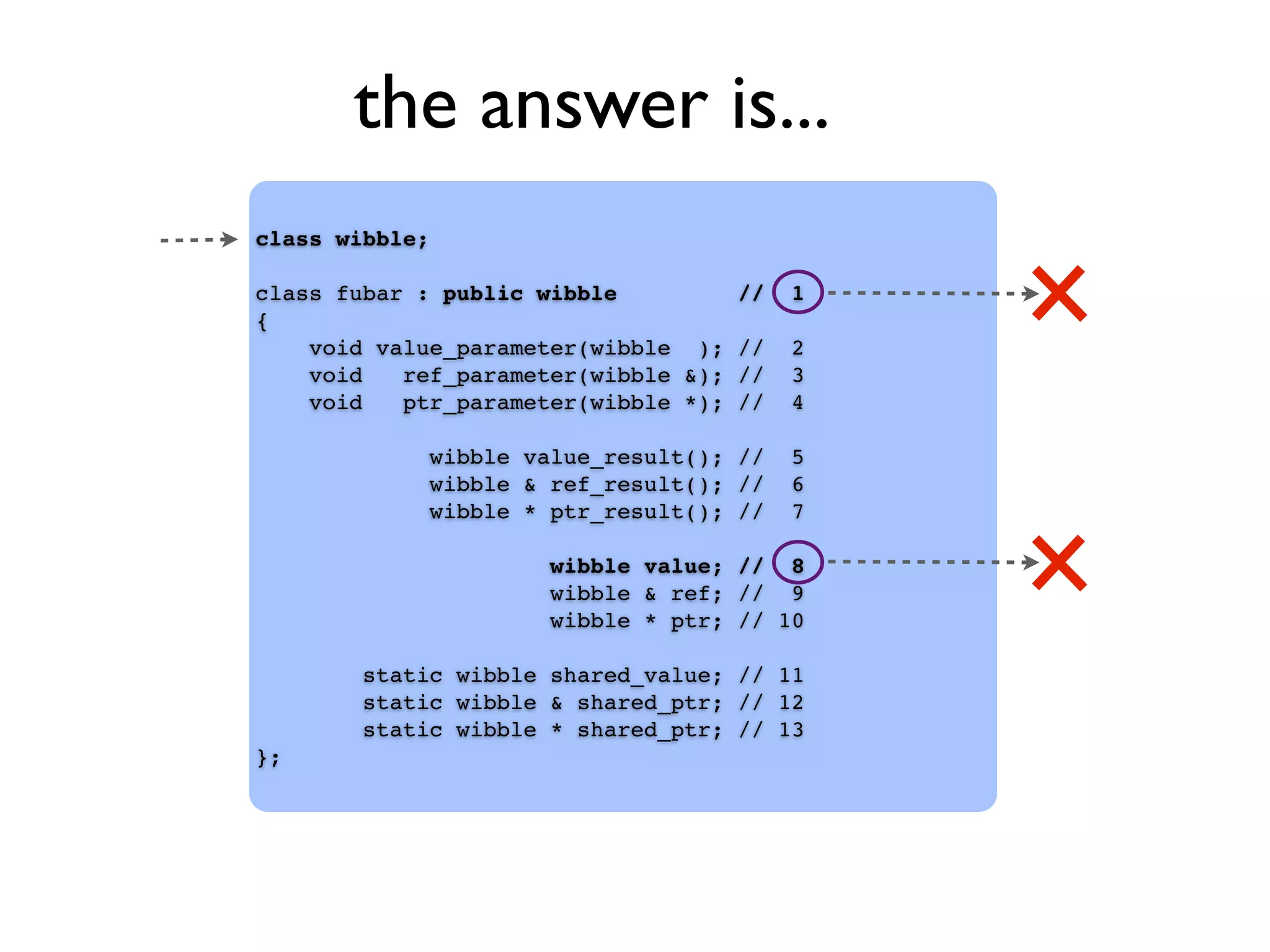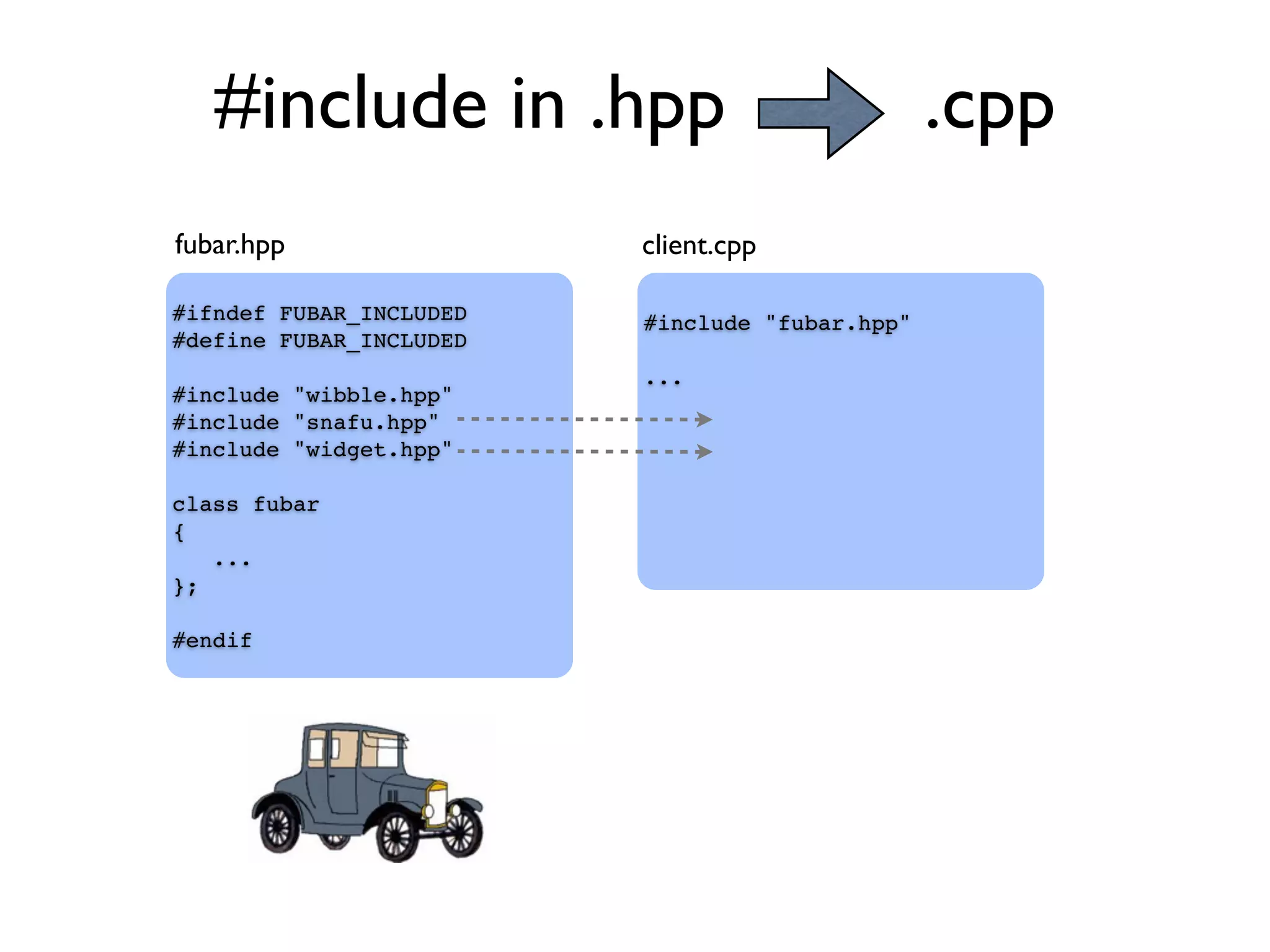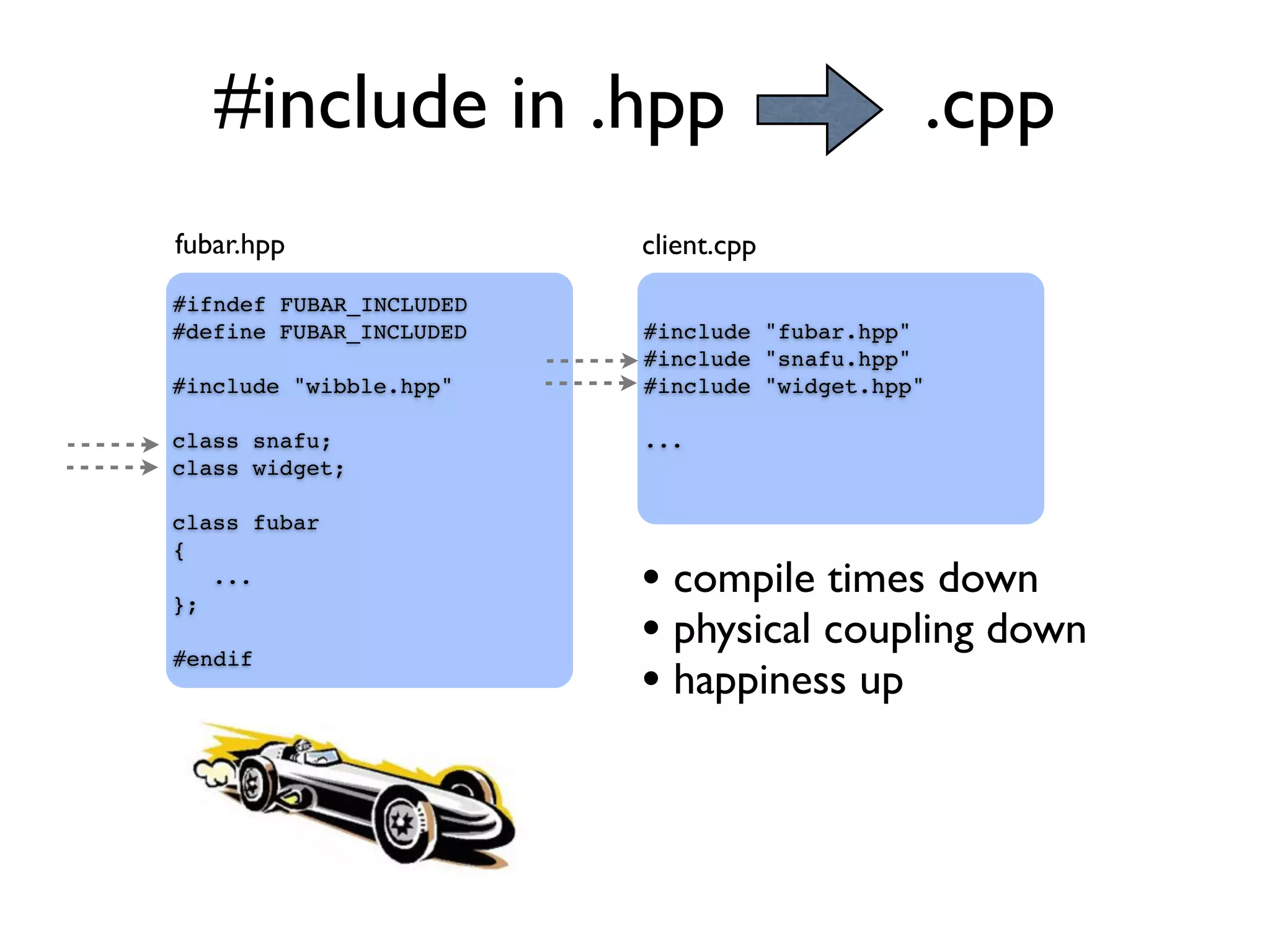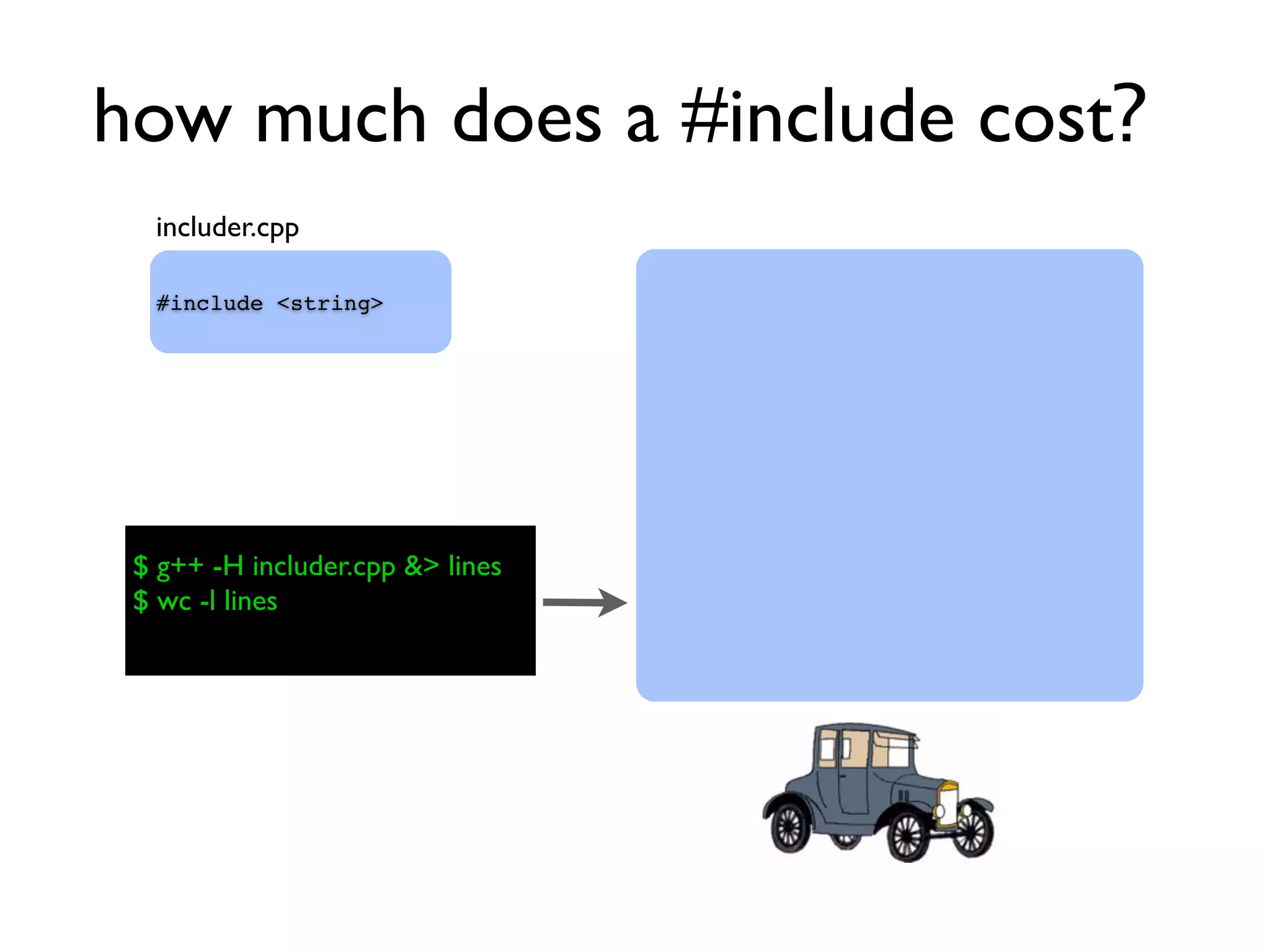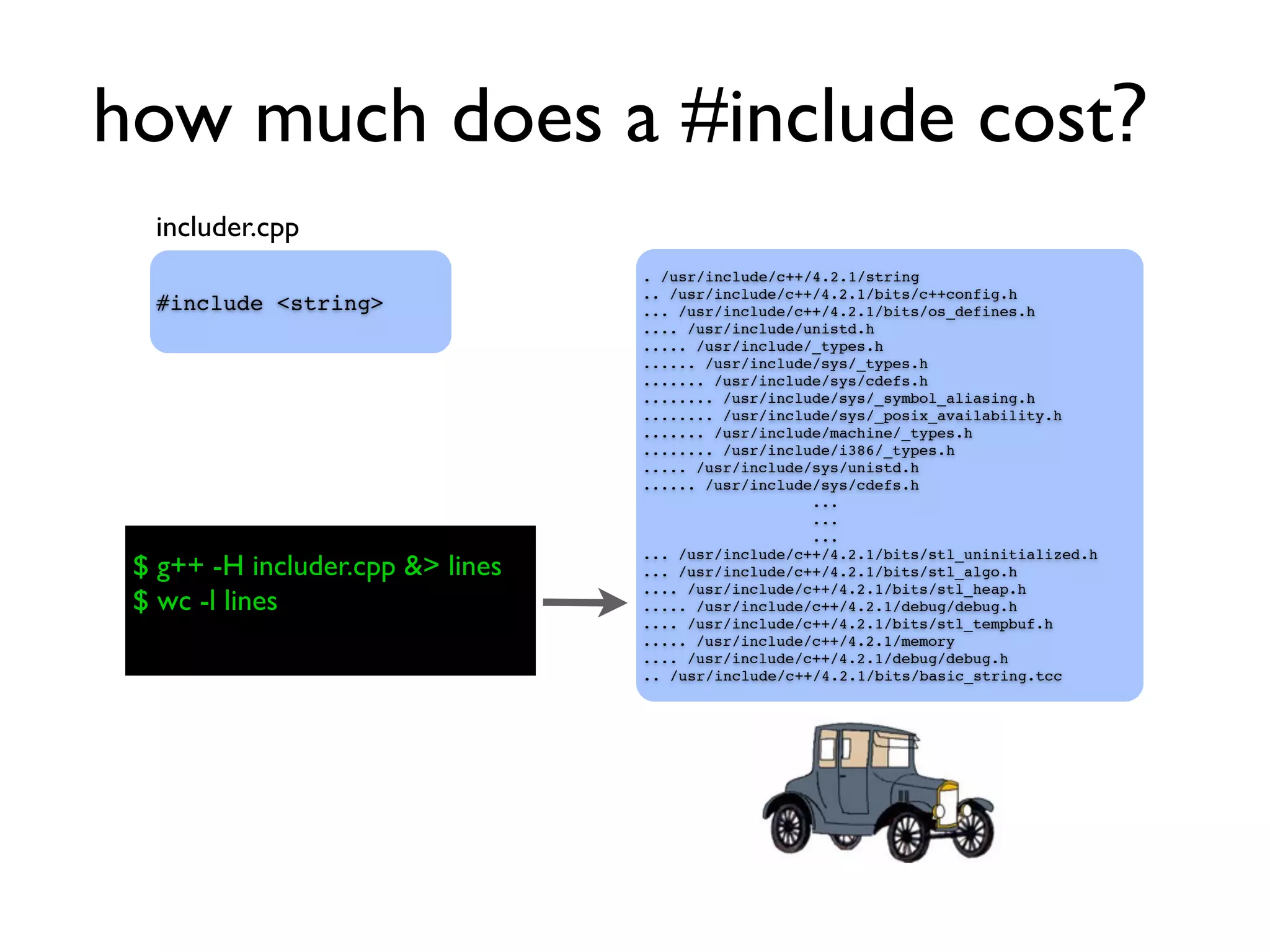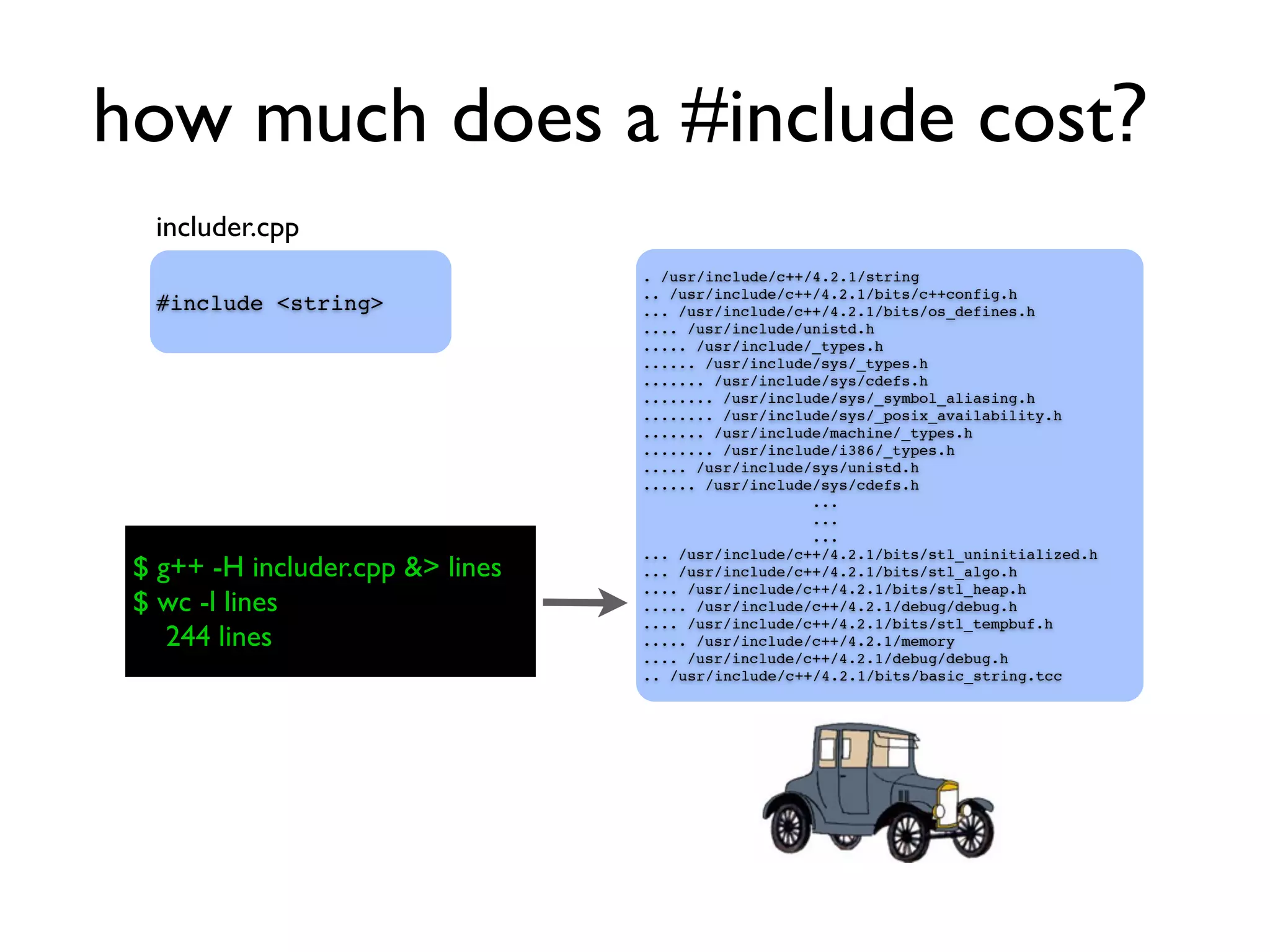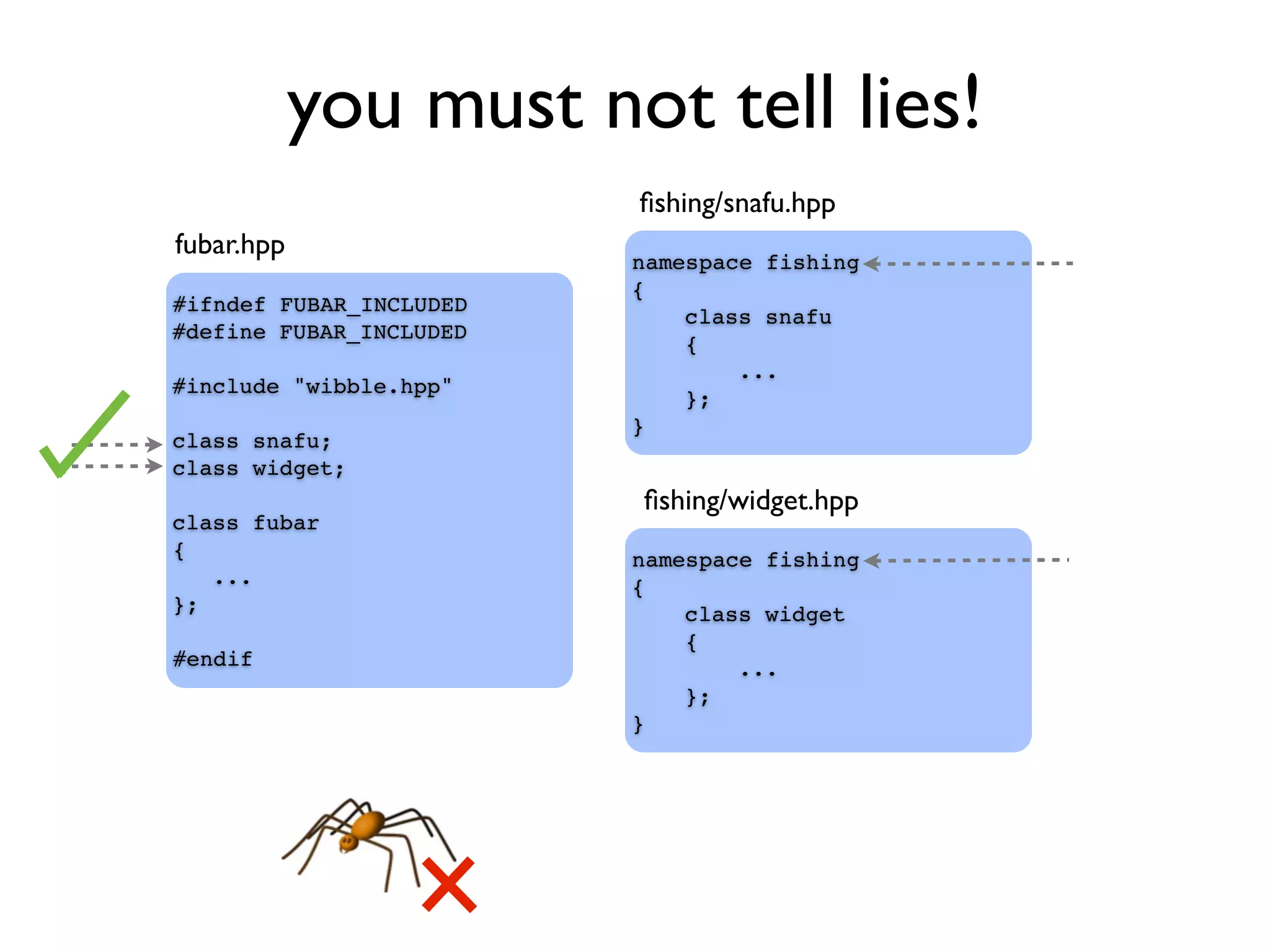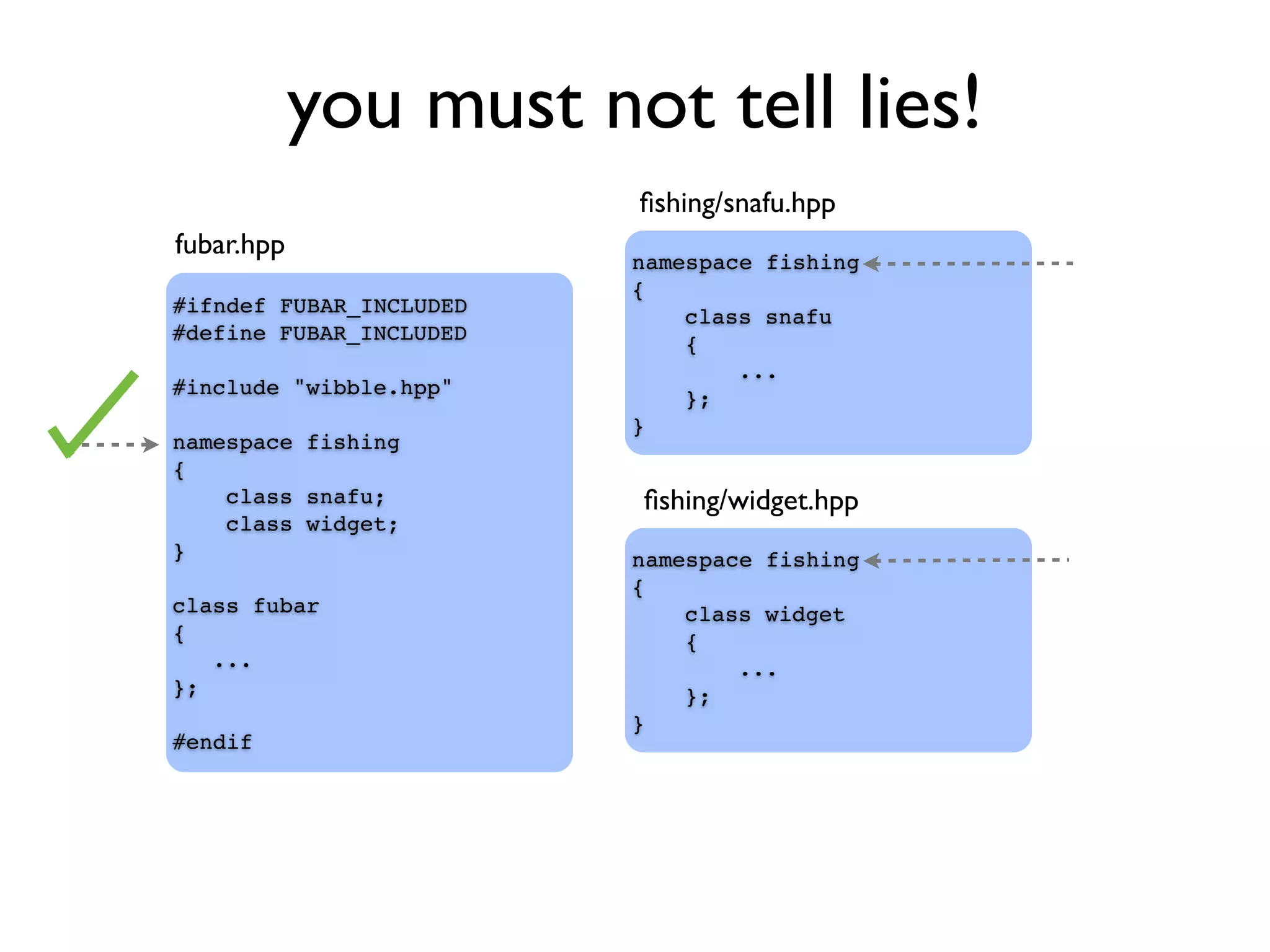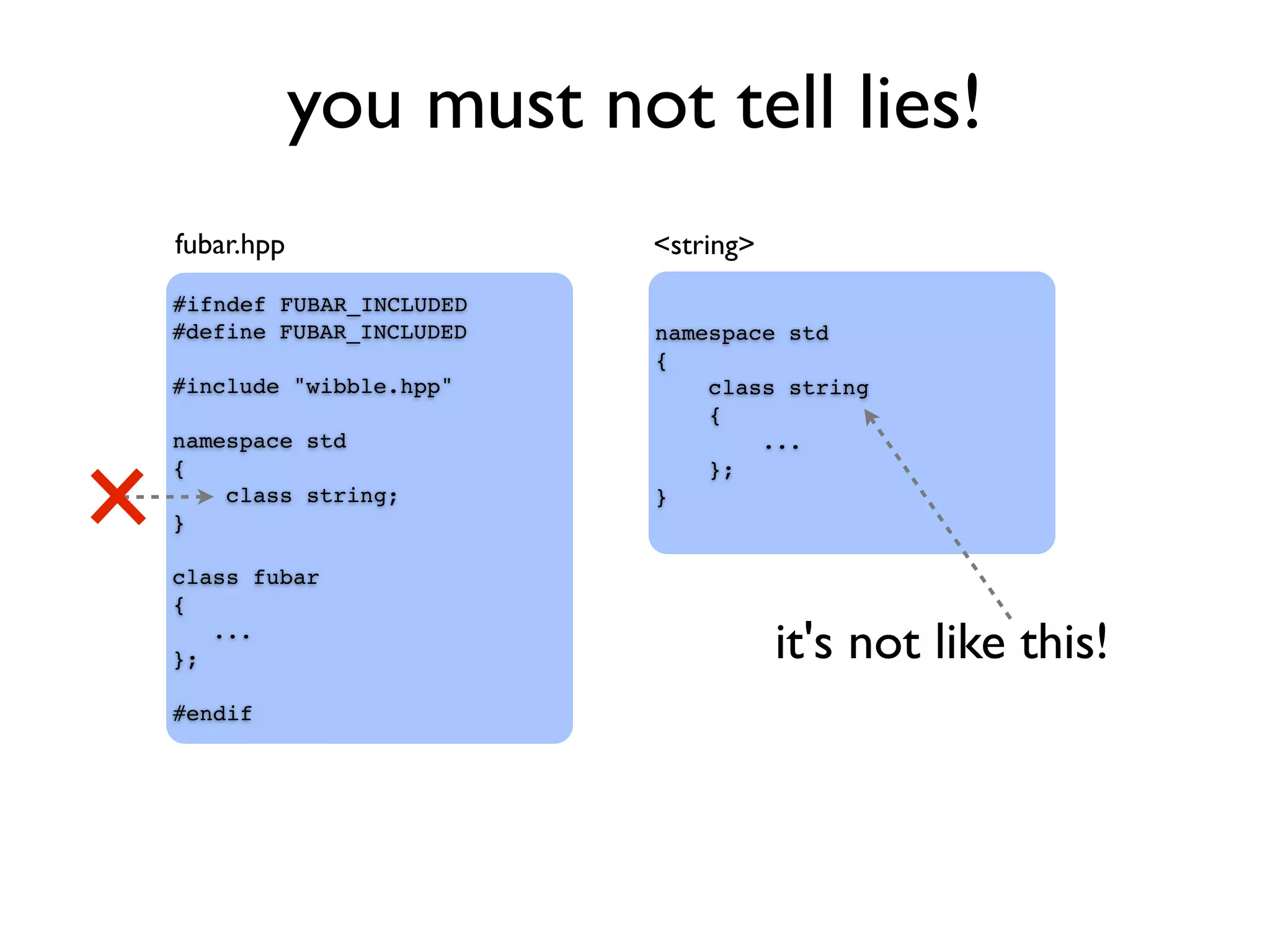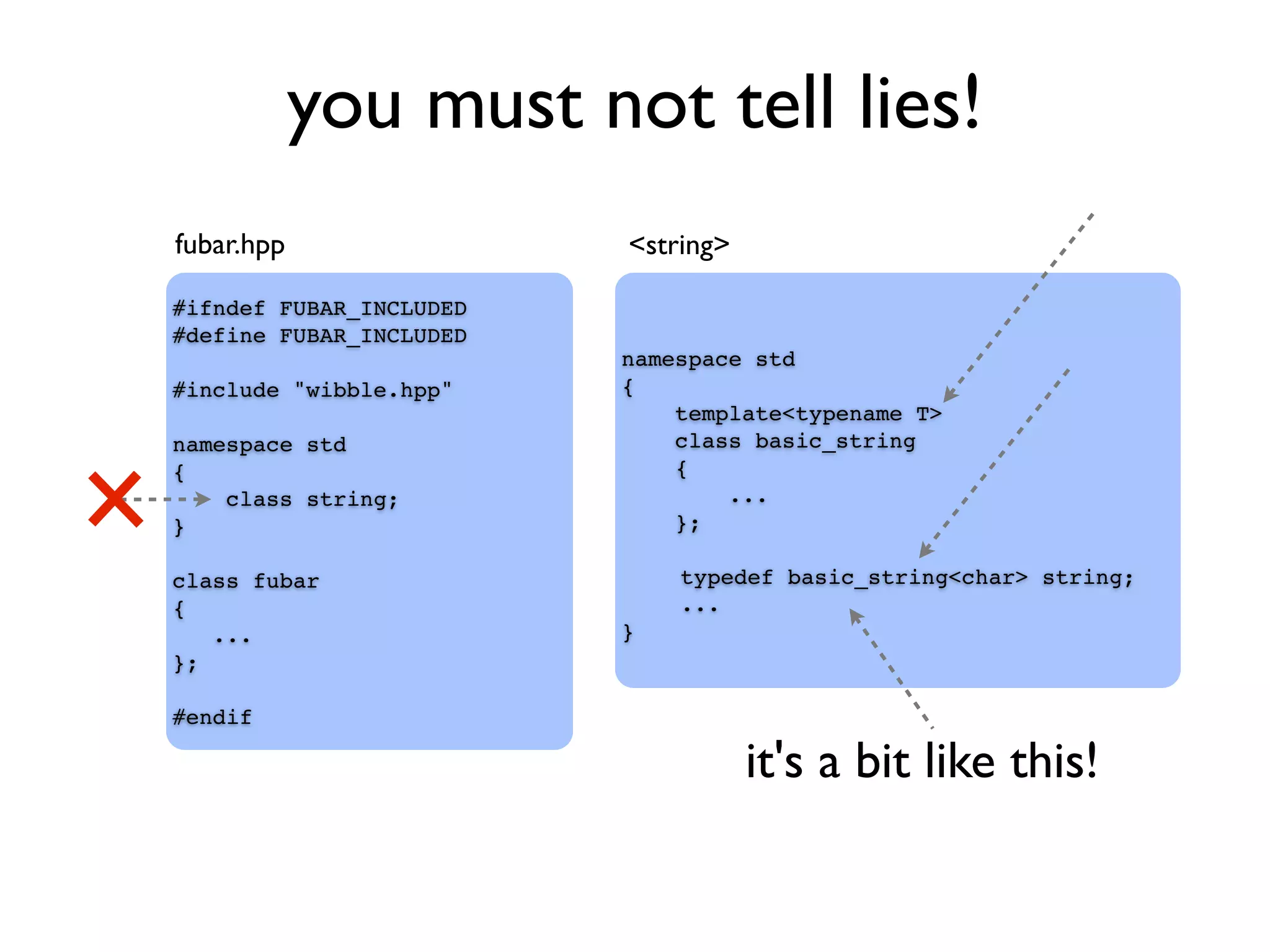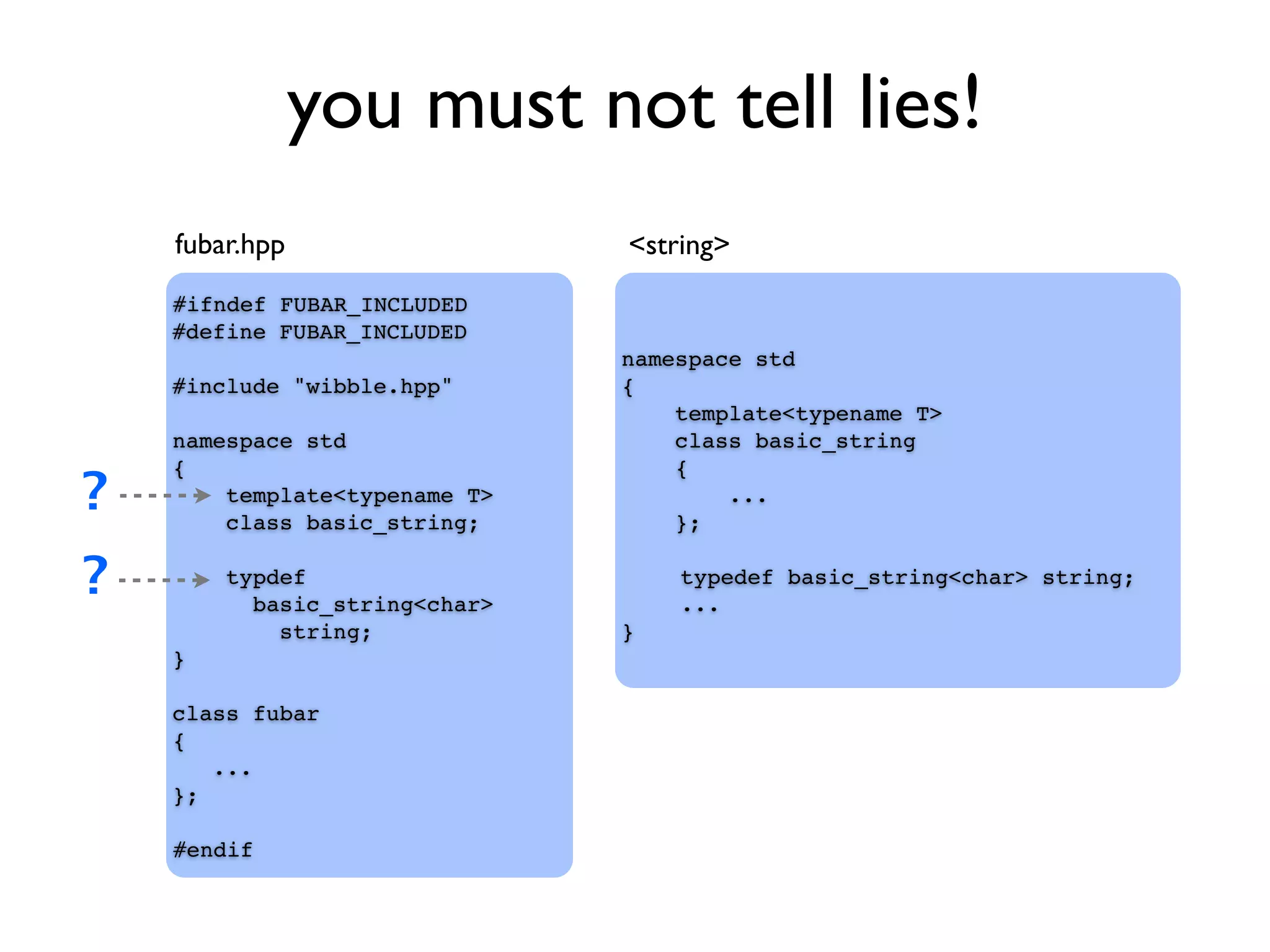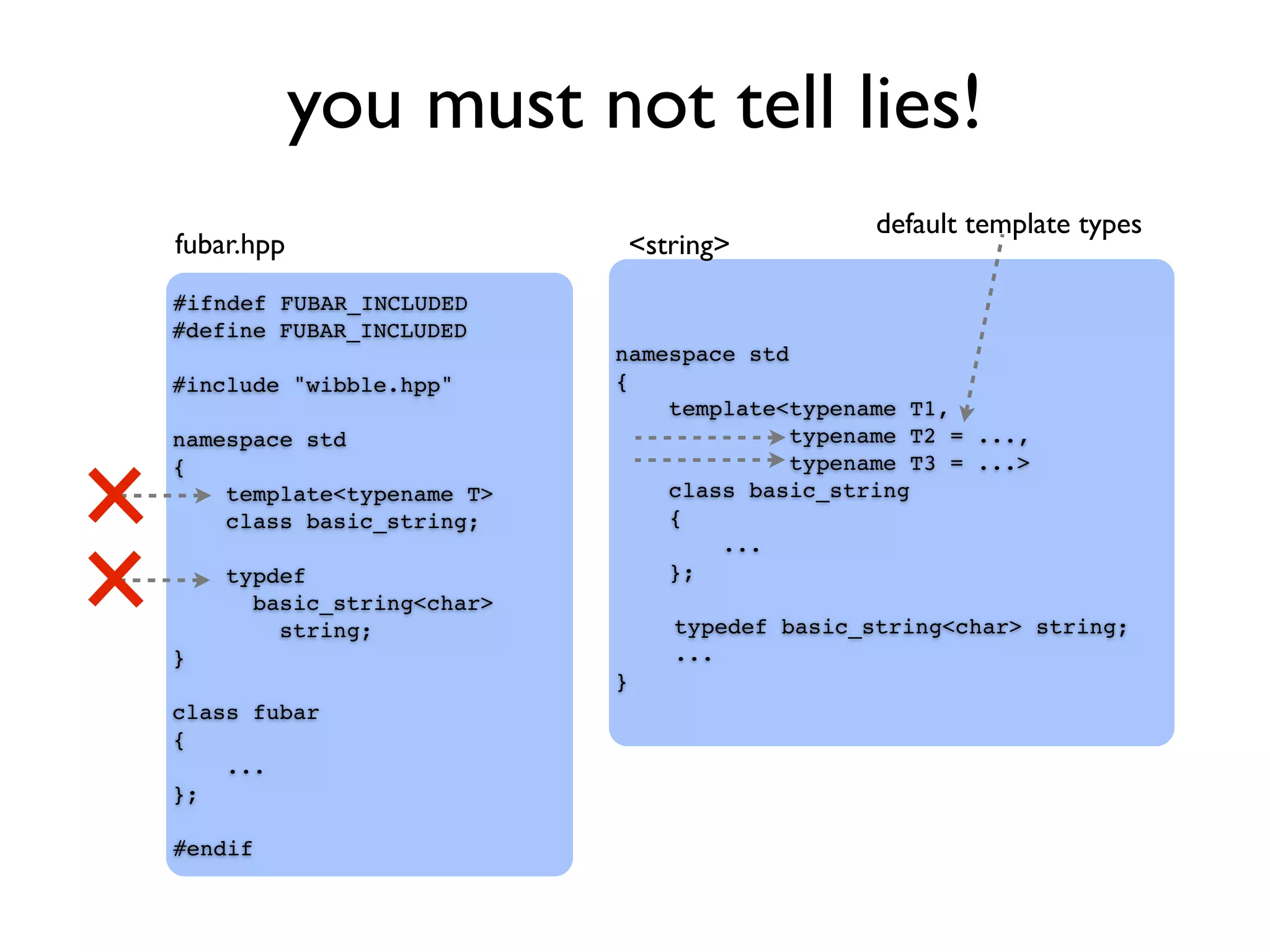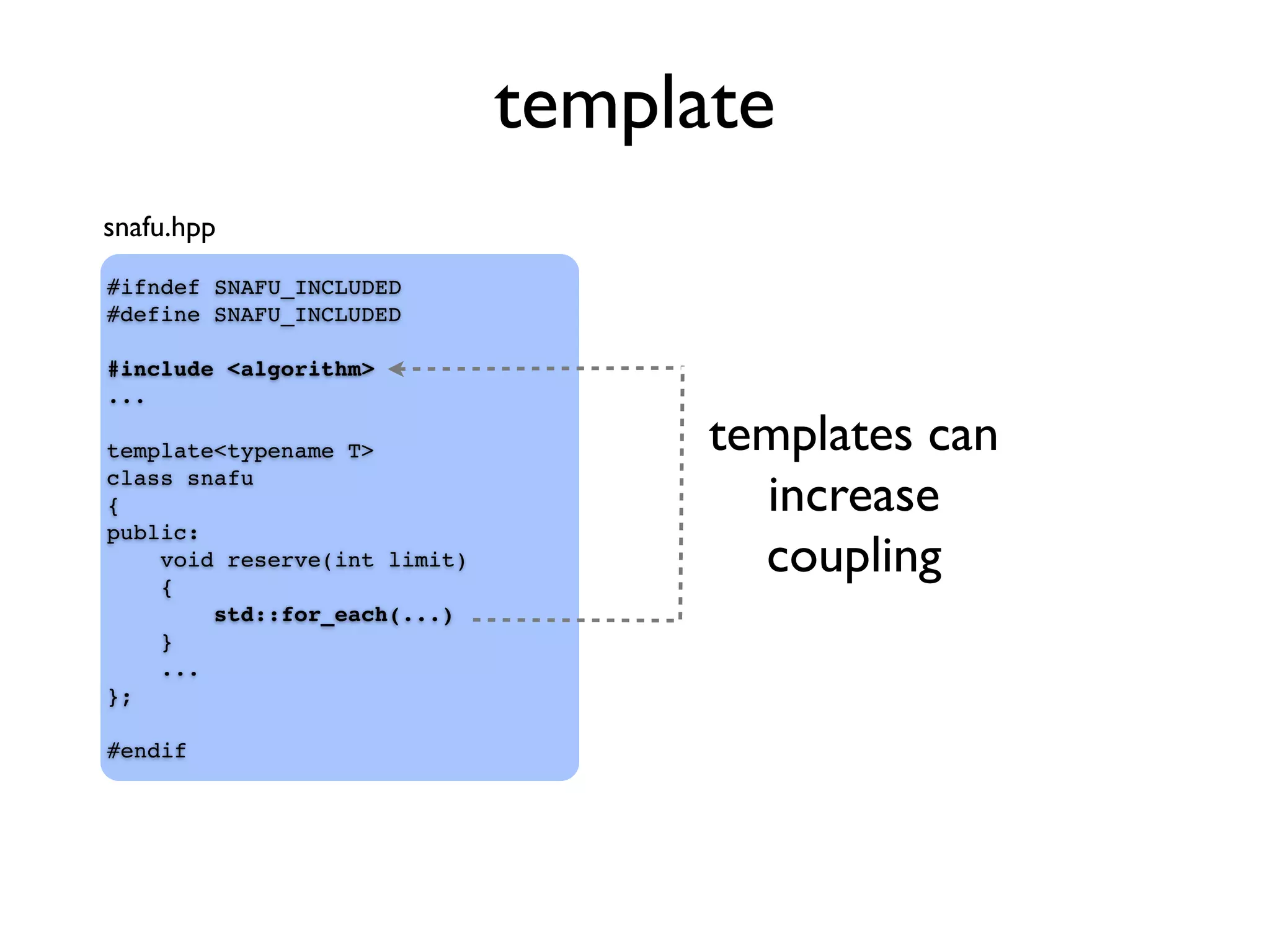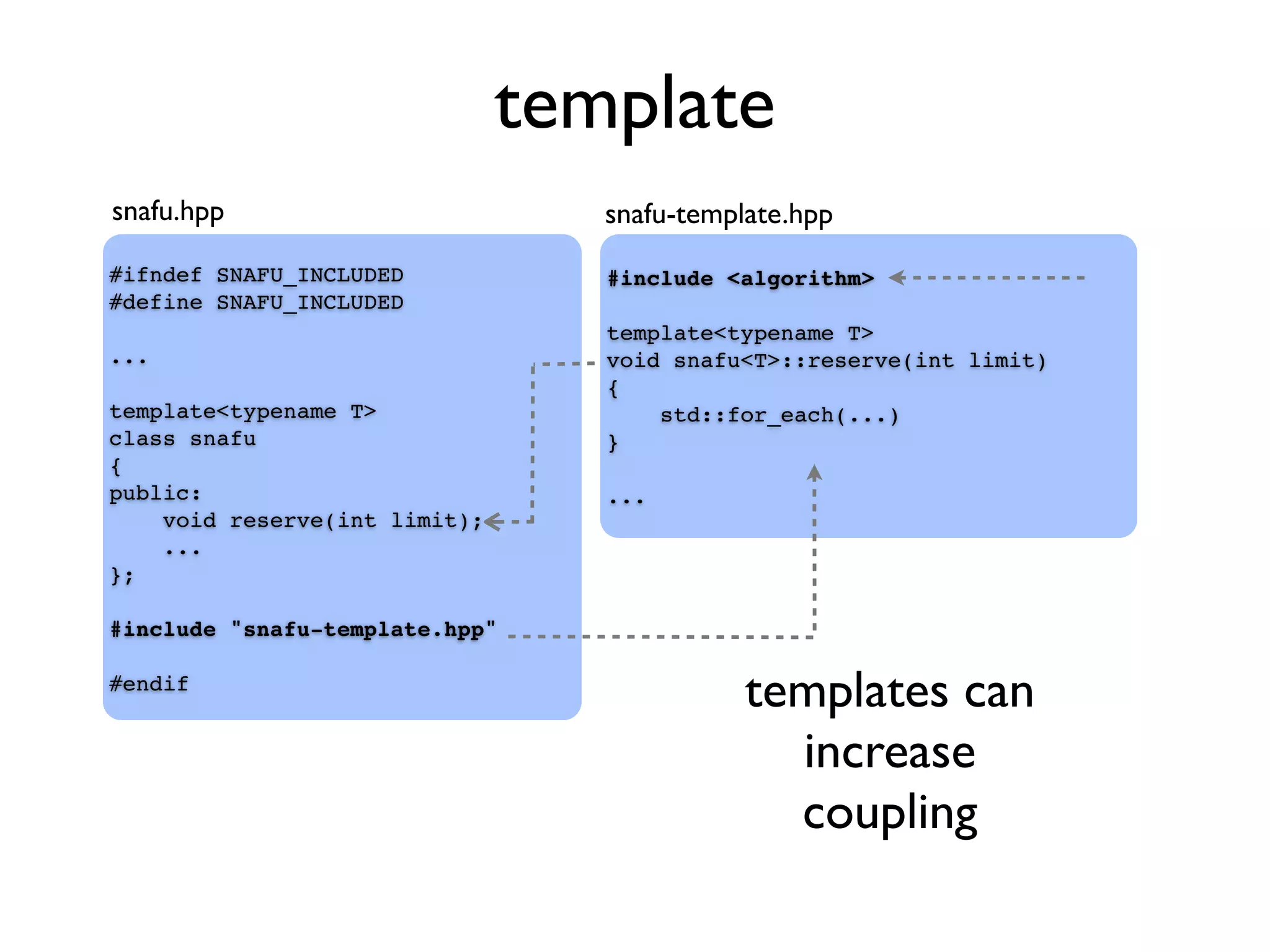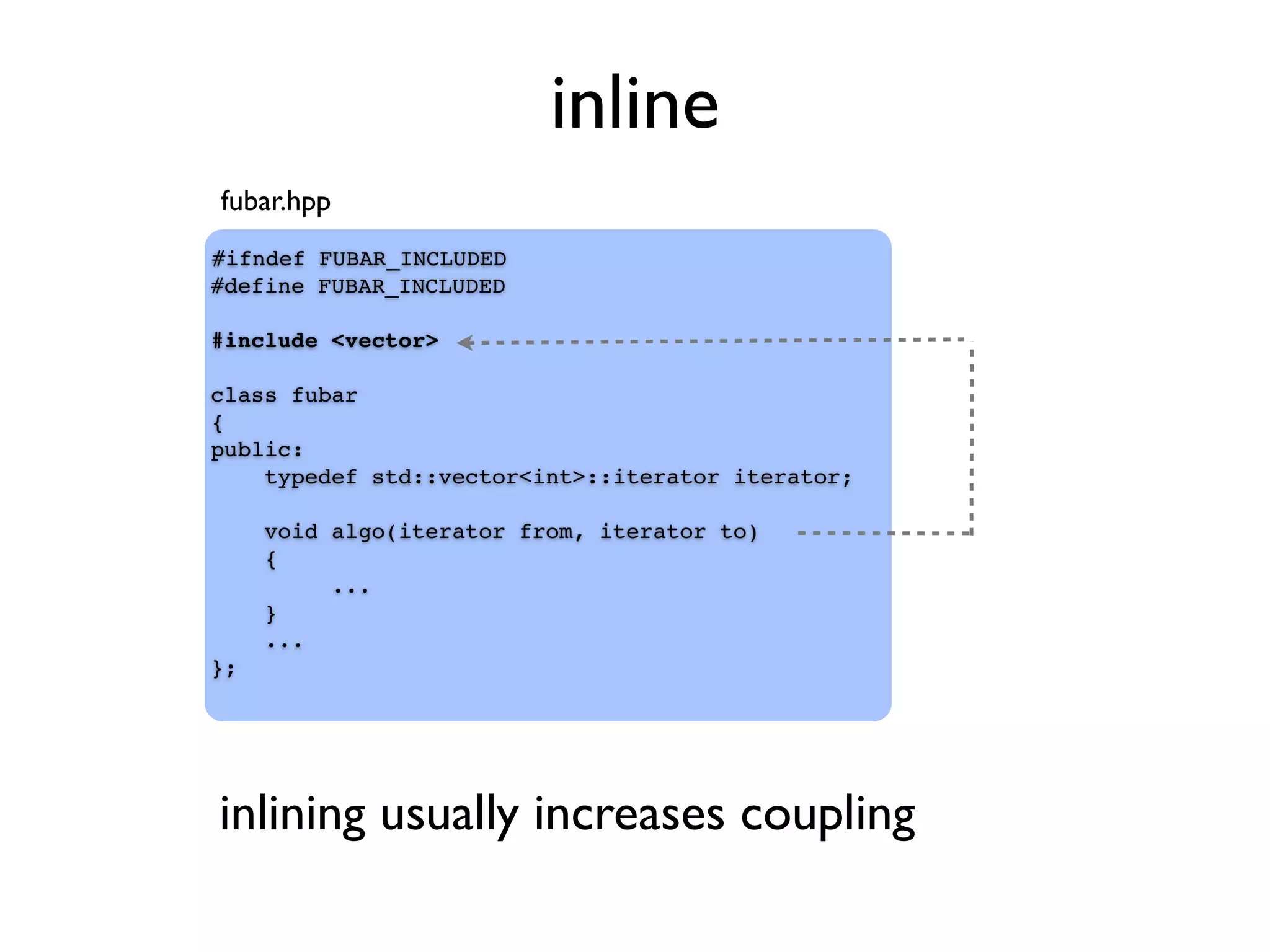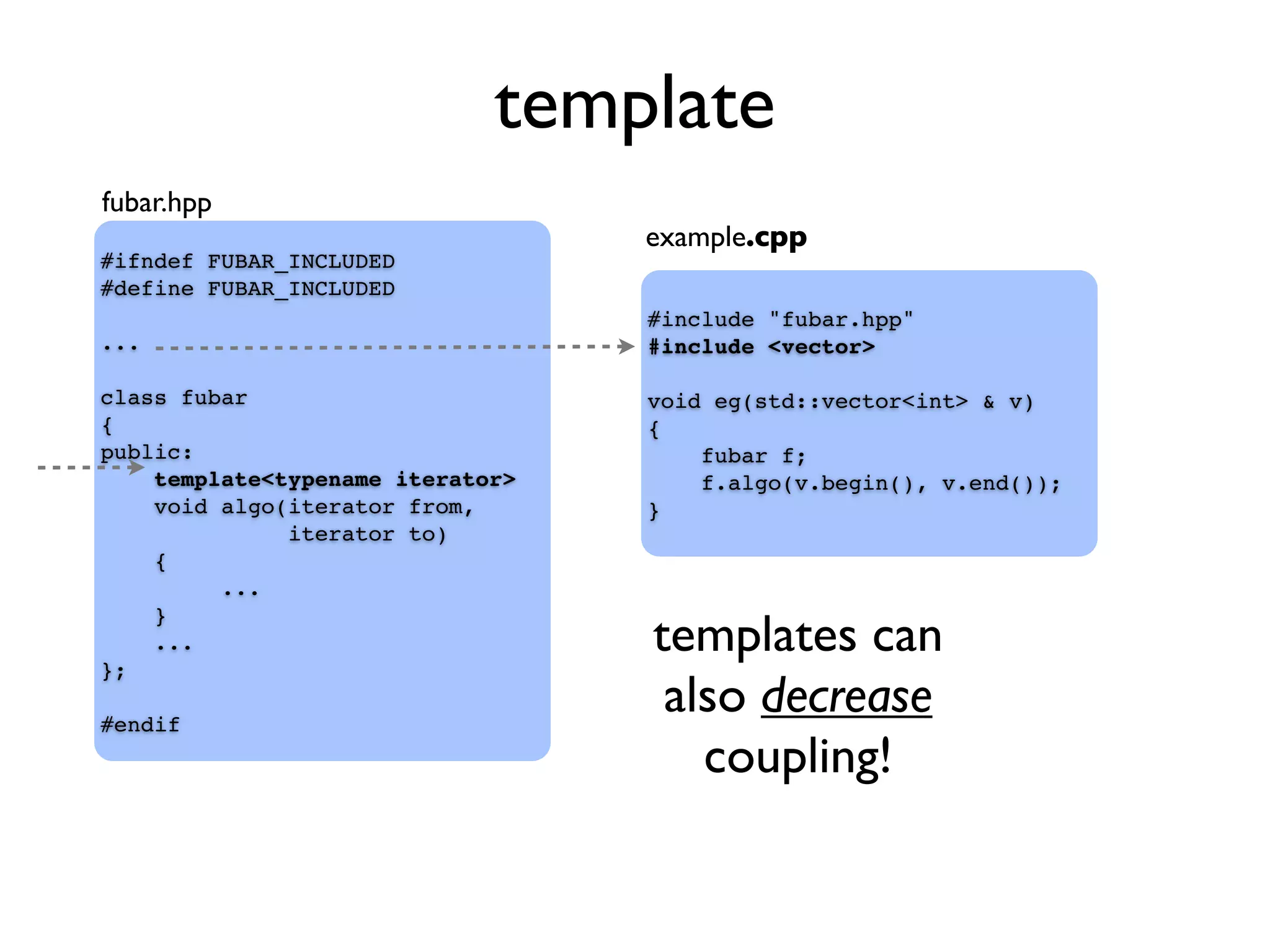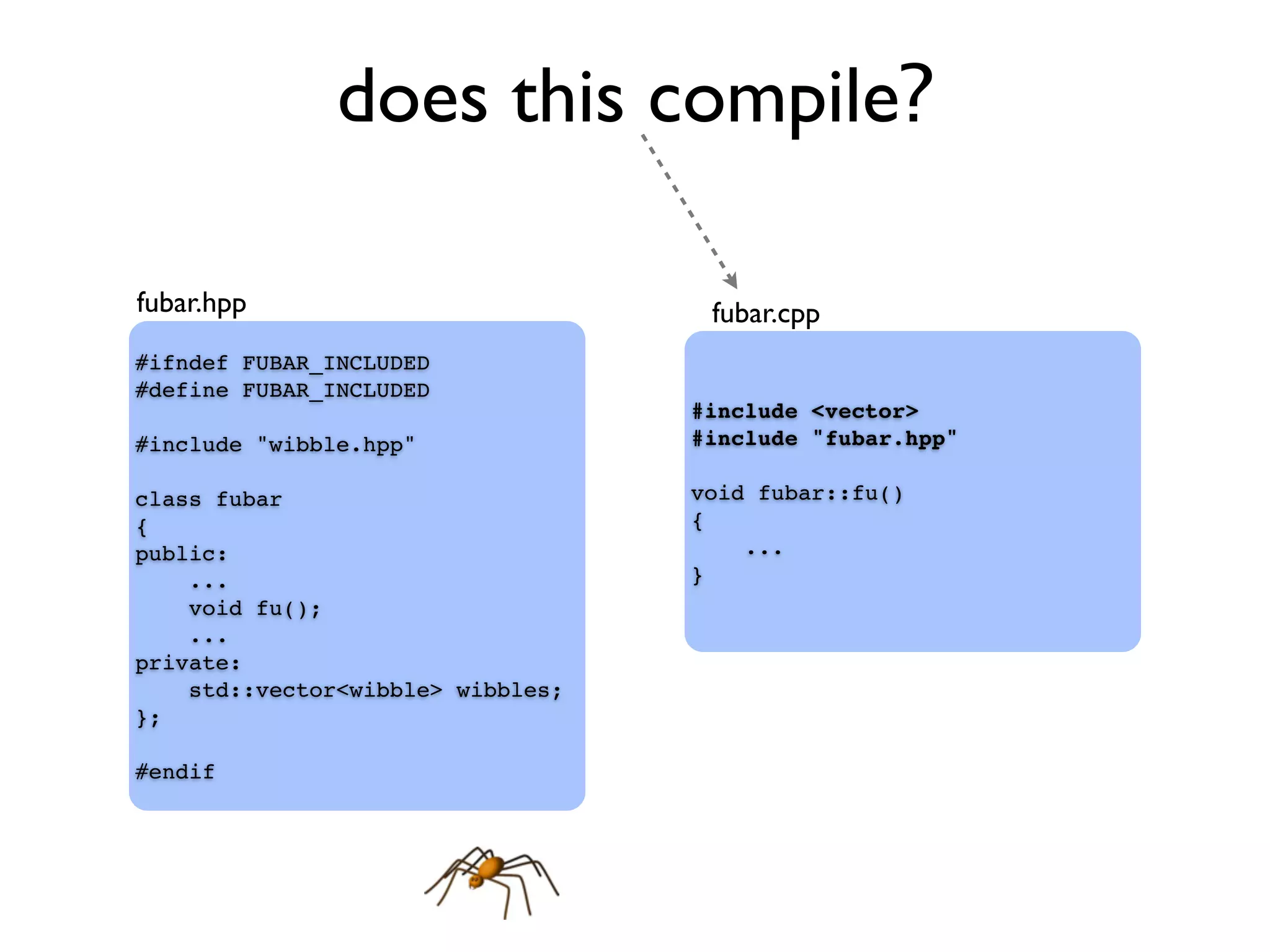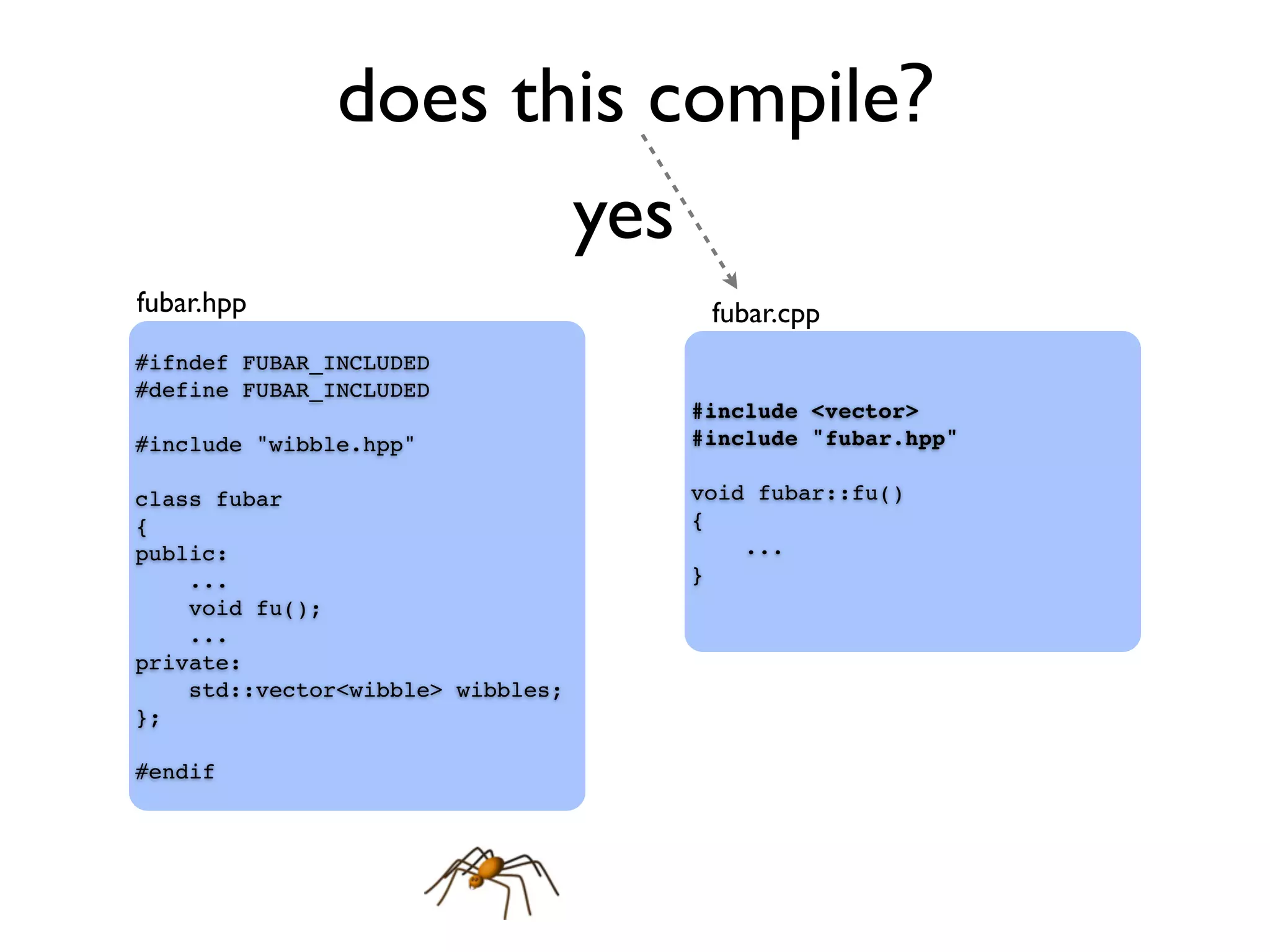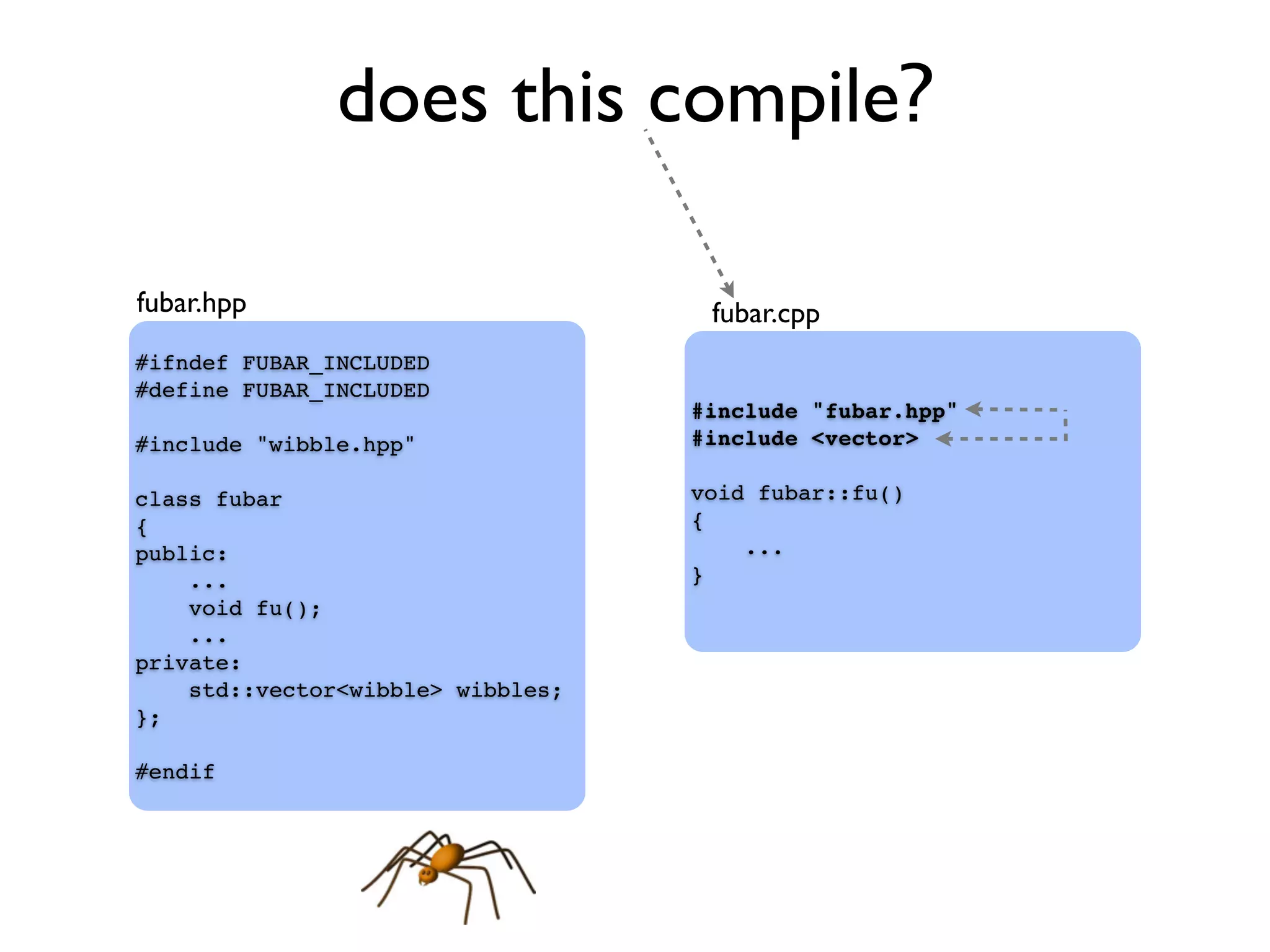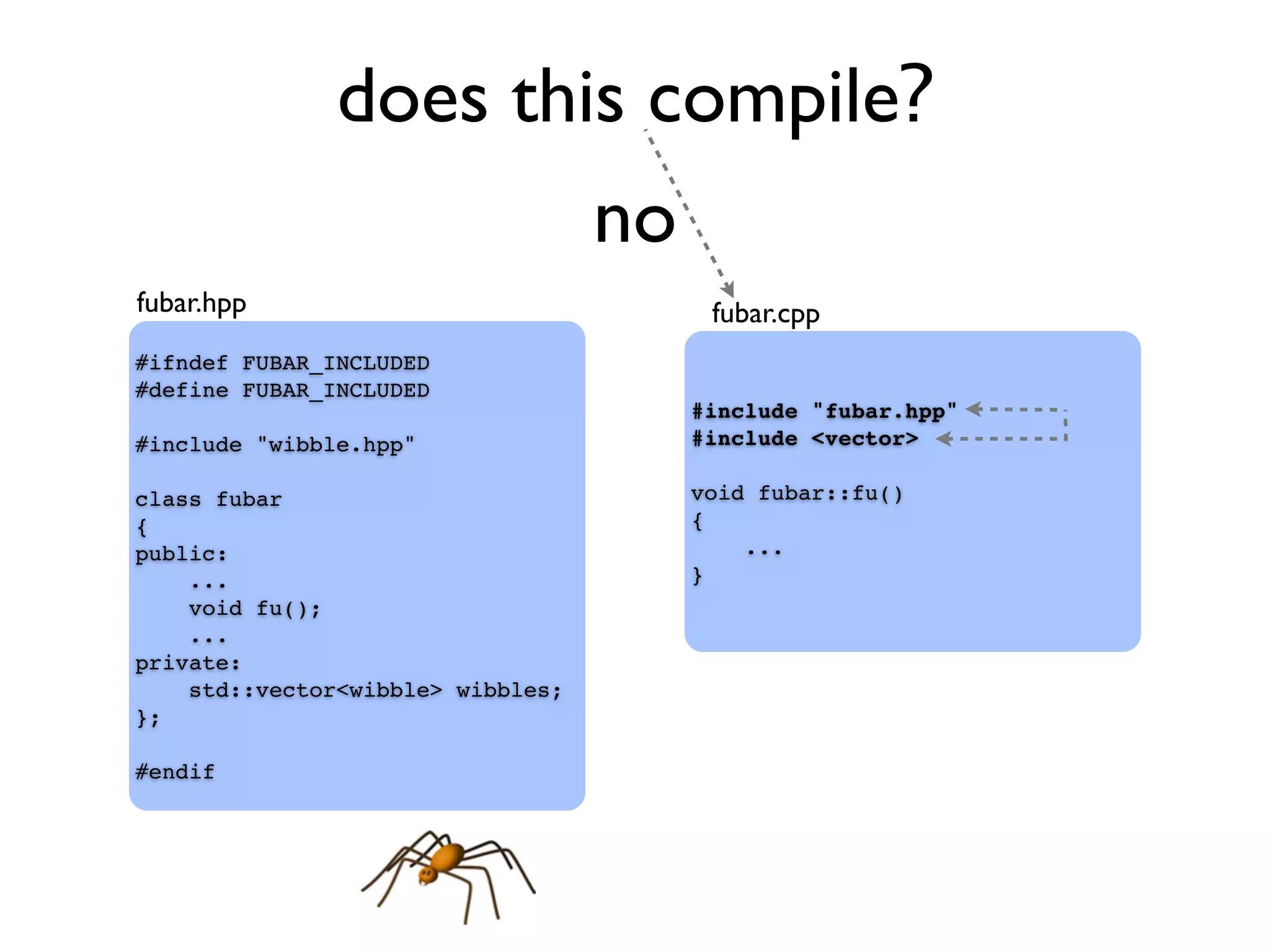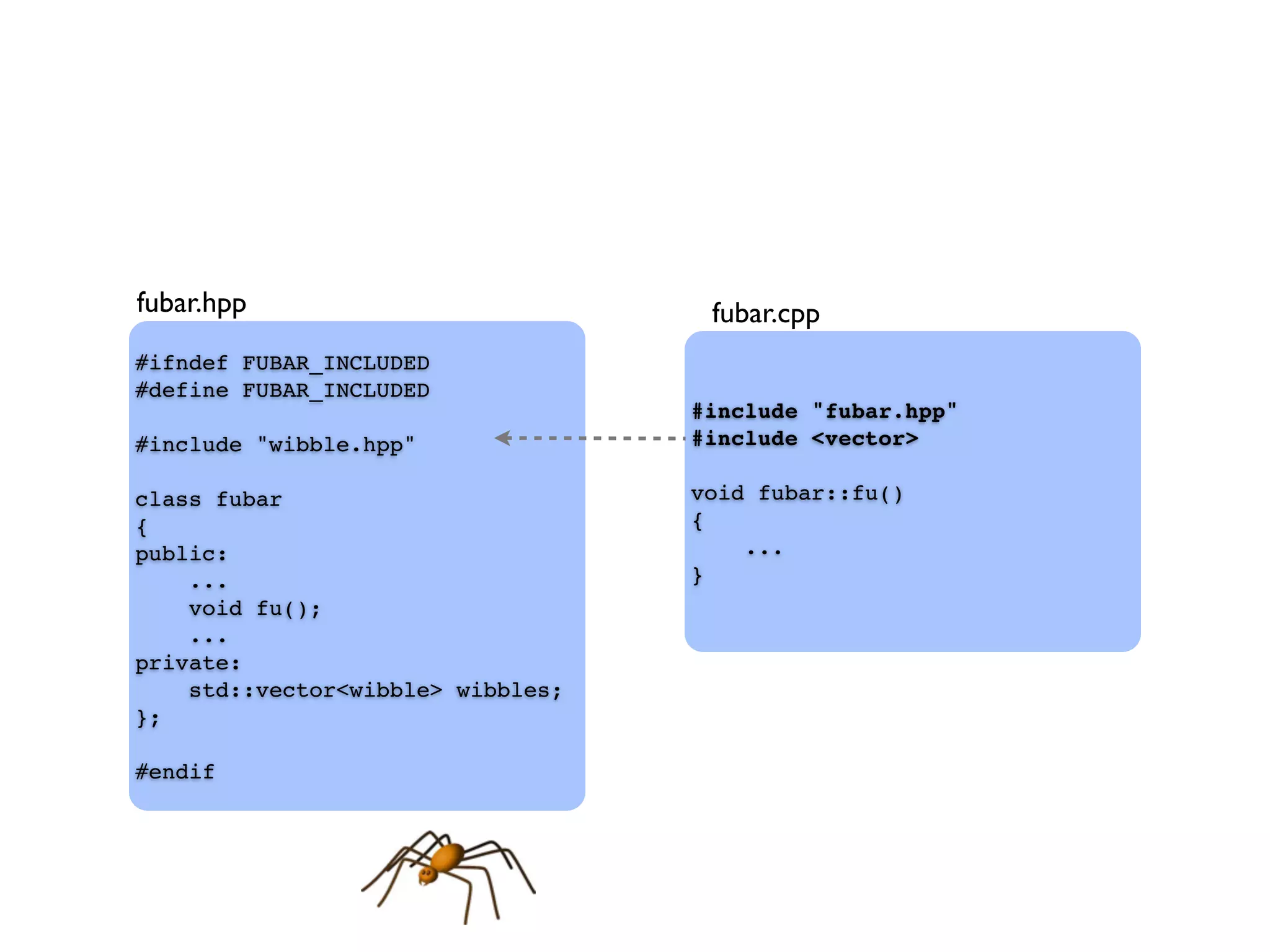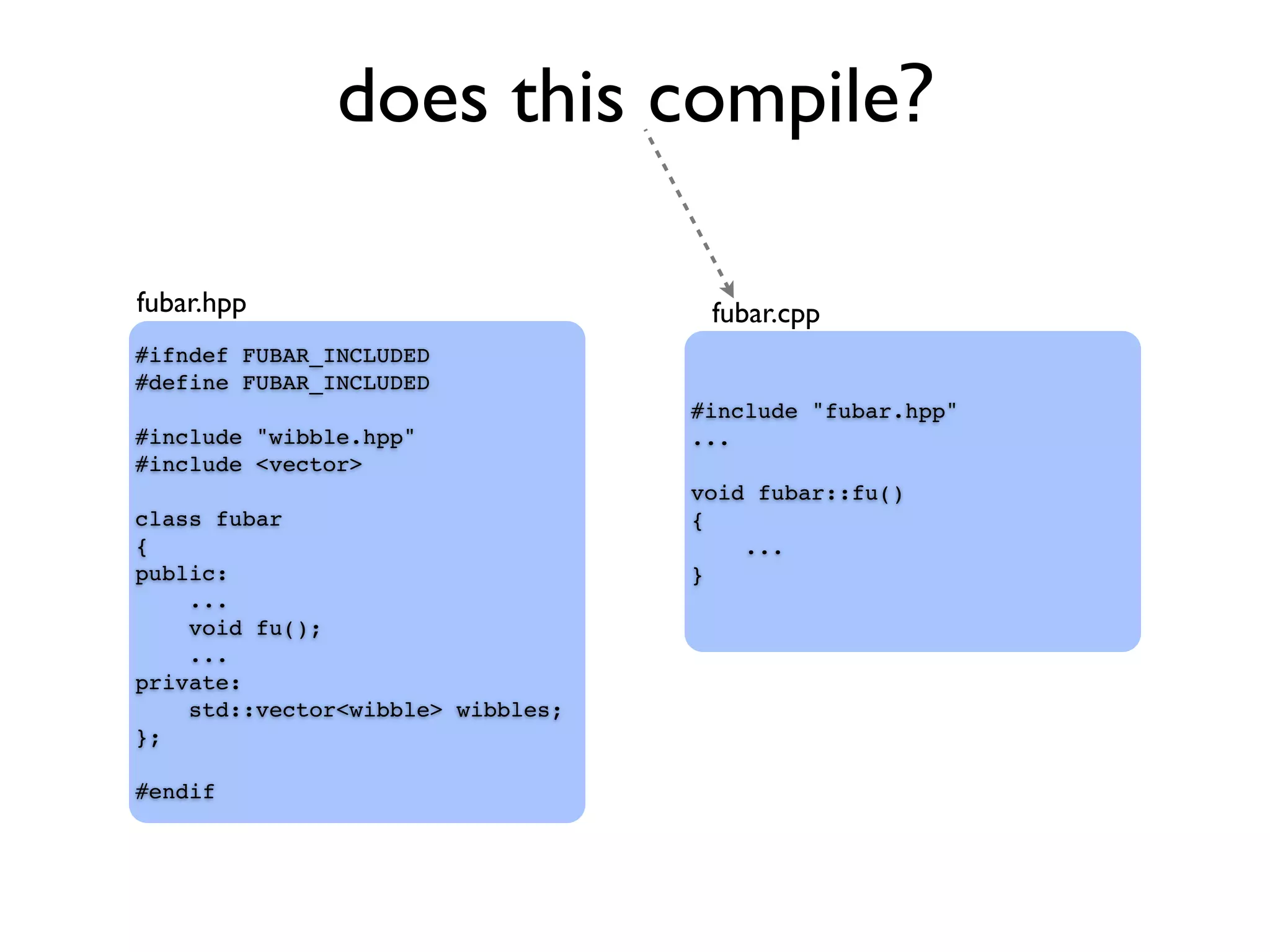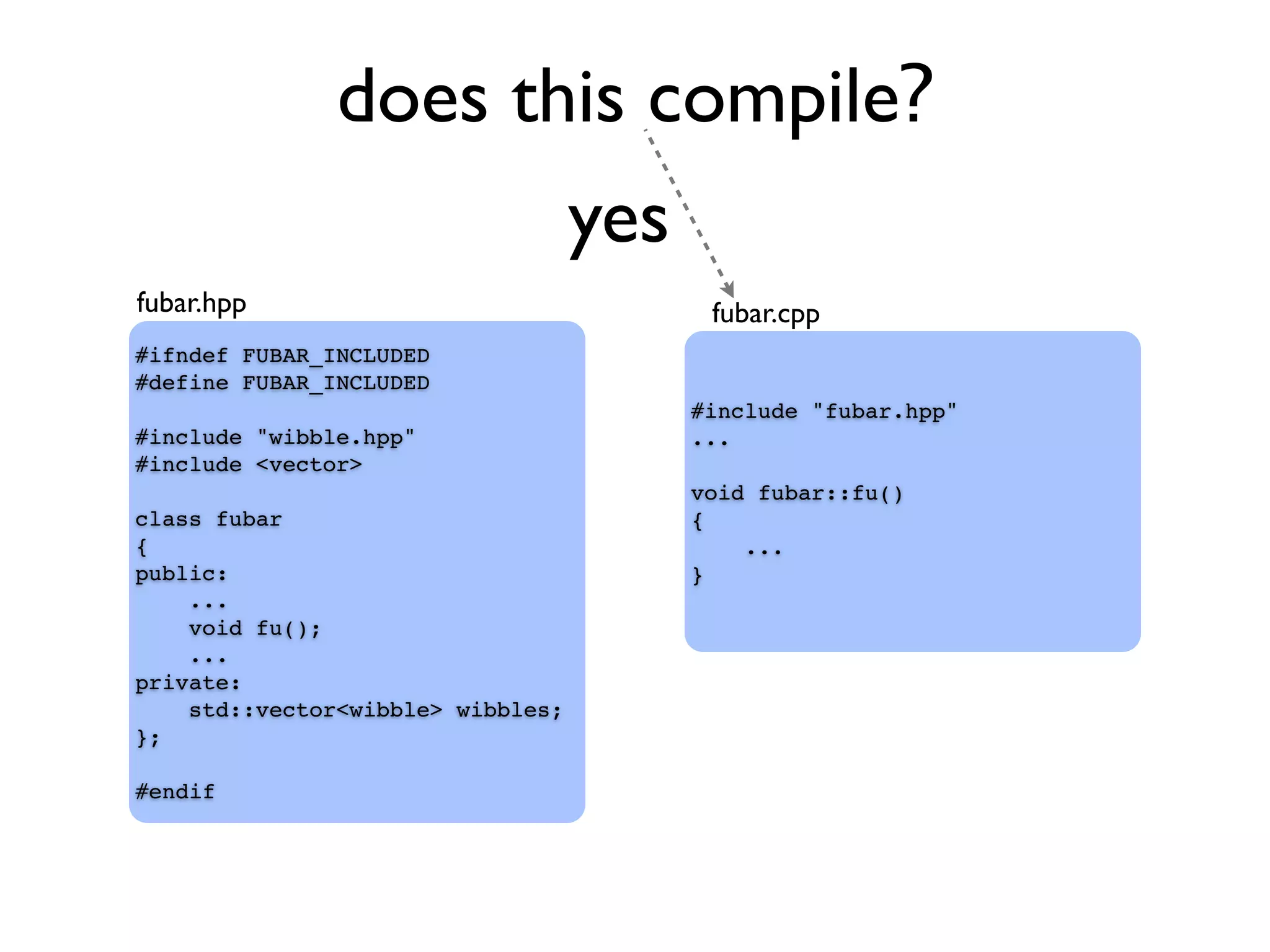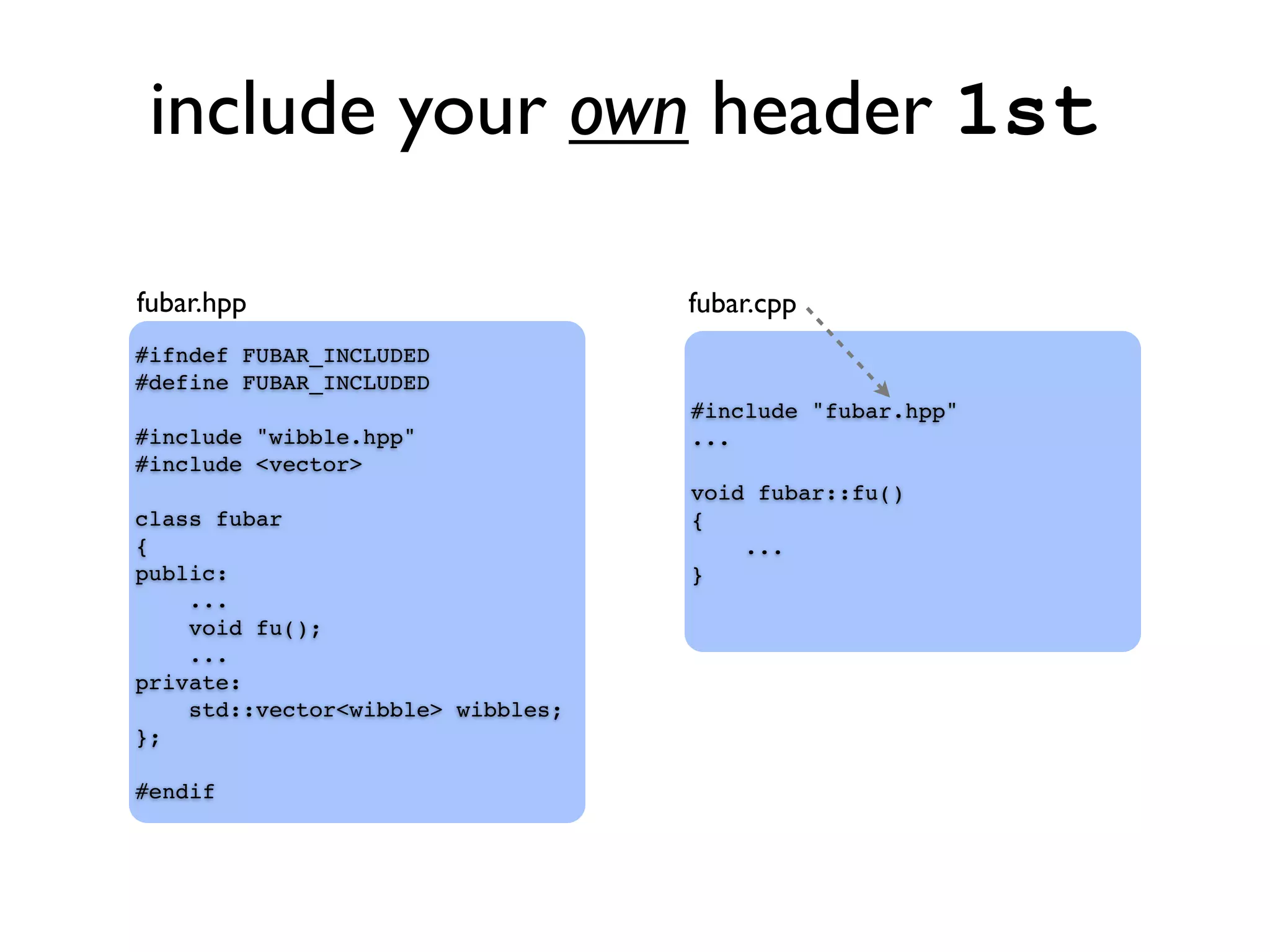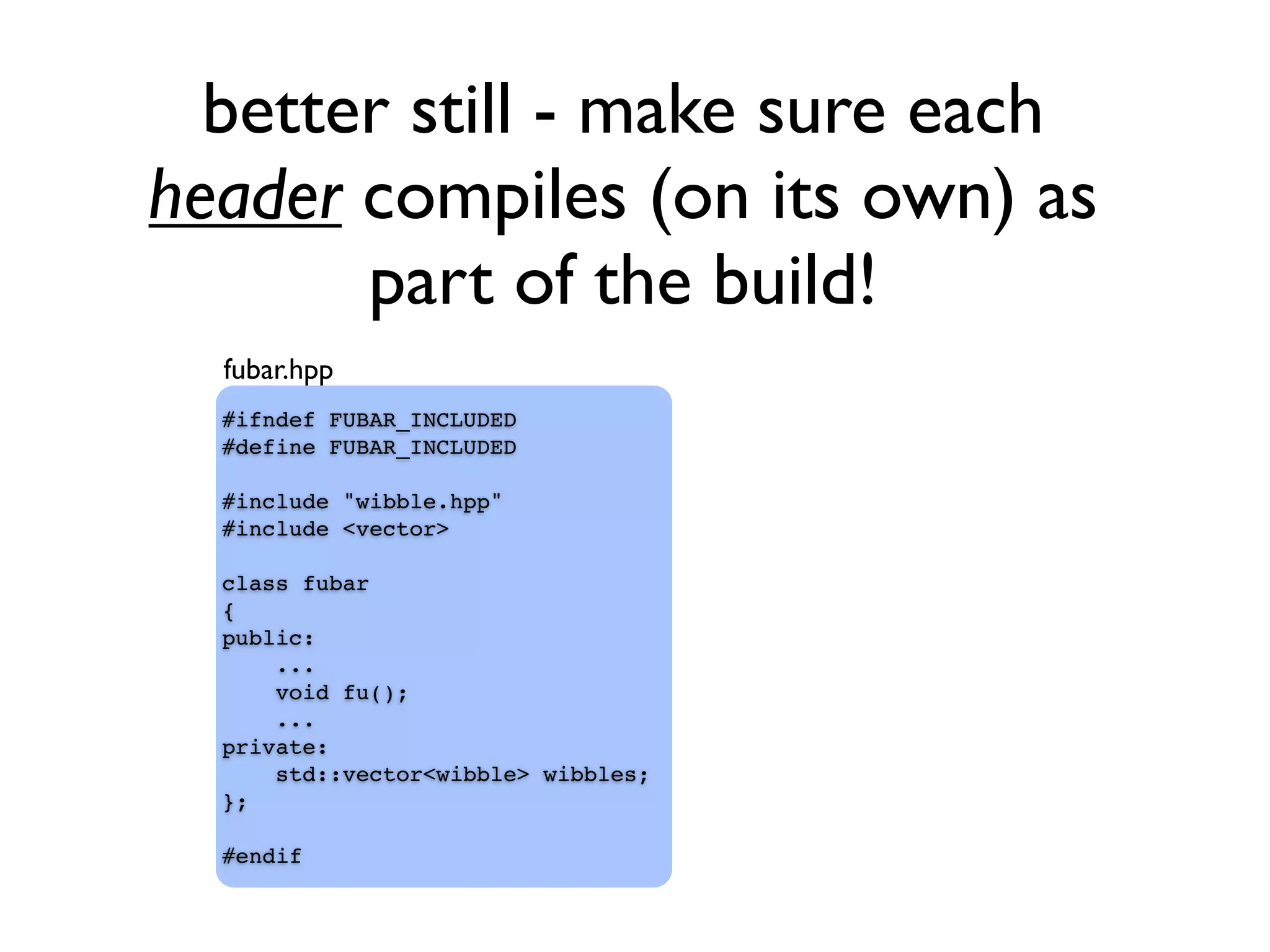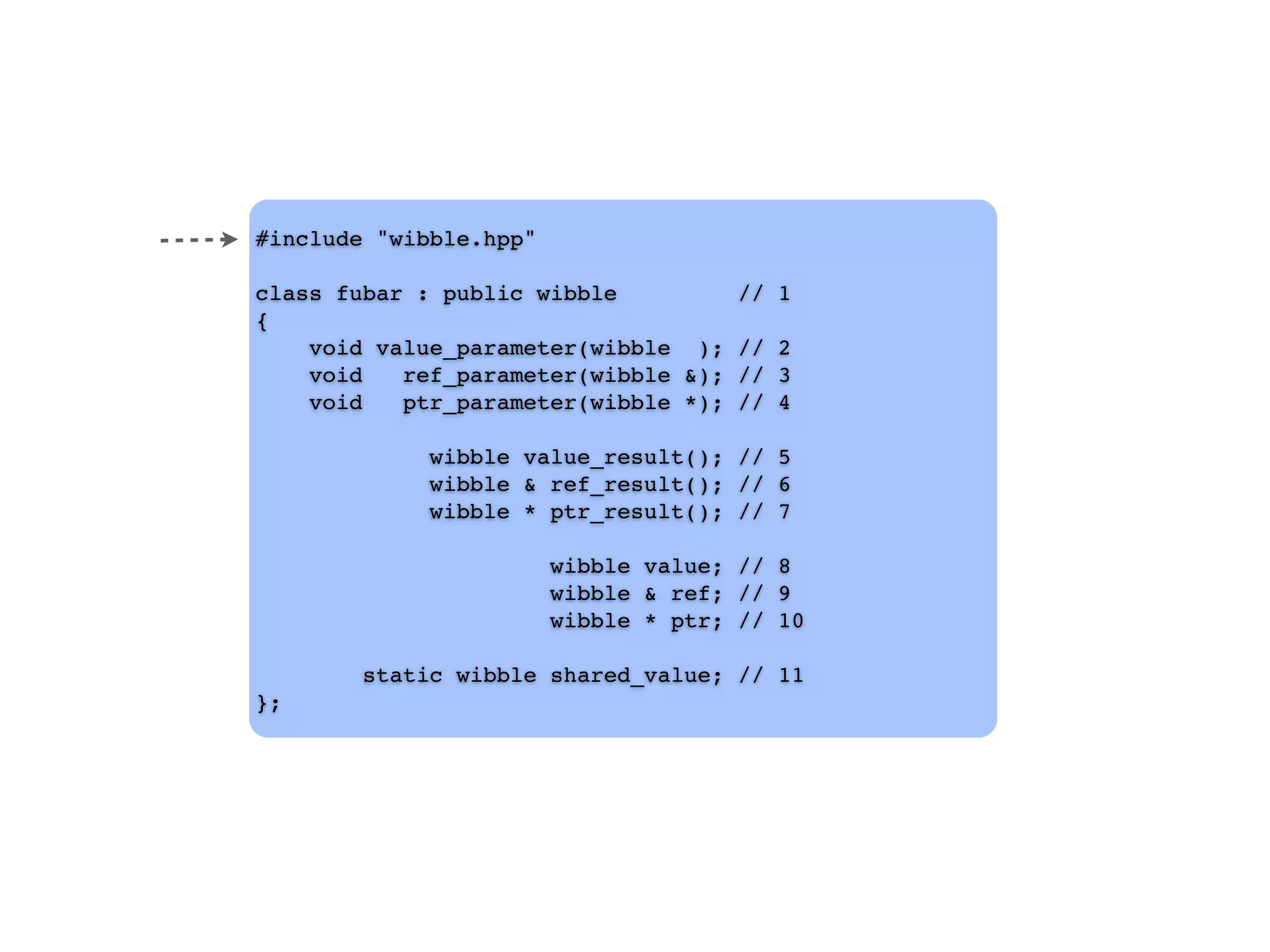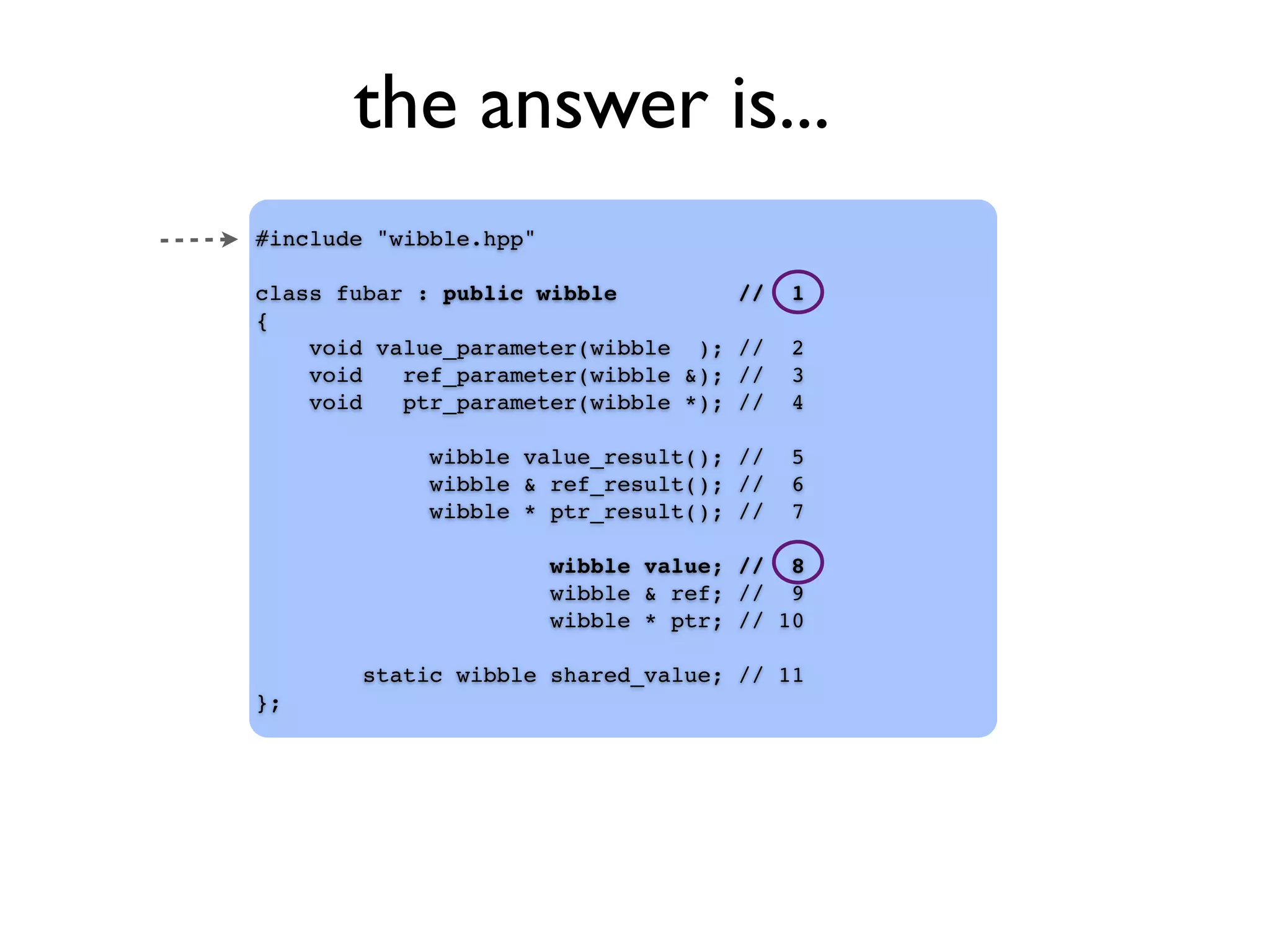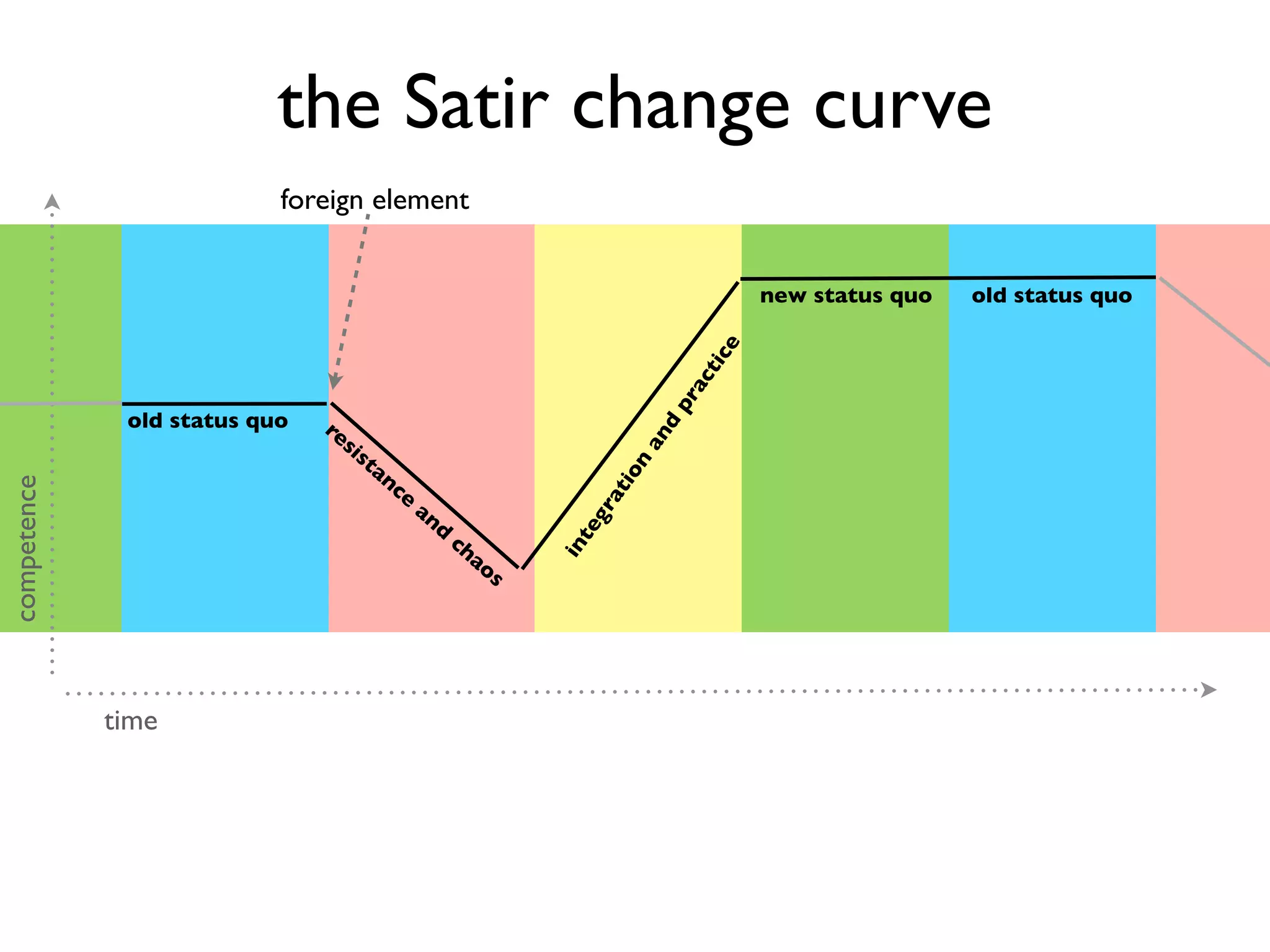The document discusses sequence points in C and C++ programming. It explains that sequence points govern the order of evaluation and side effects in a program. However, the order of evaluation between sequence points is unspecified, meaning compilers are free to rearrange operations as long as the observable behavior is consistent with the sequence points. This can lead to undefined behavior if a program relies on a specific evaluation order. Several examples are provided to illustrate this.

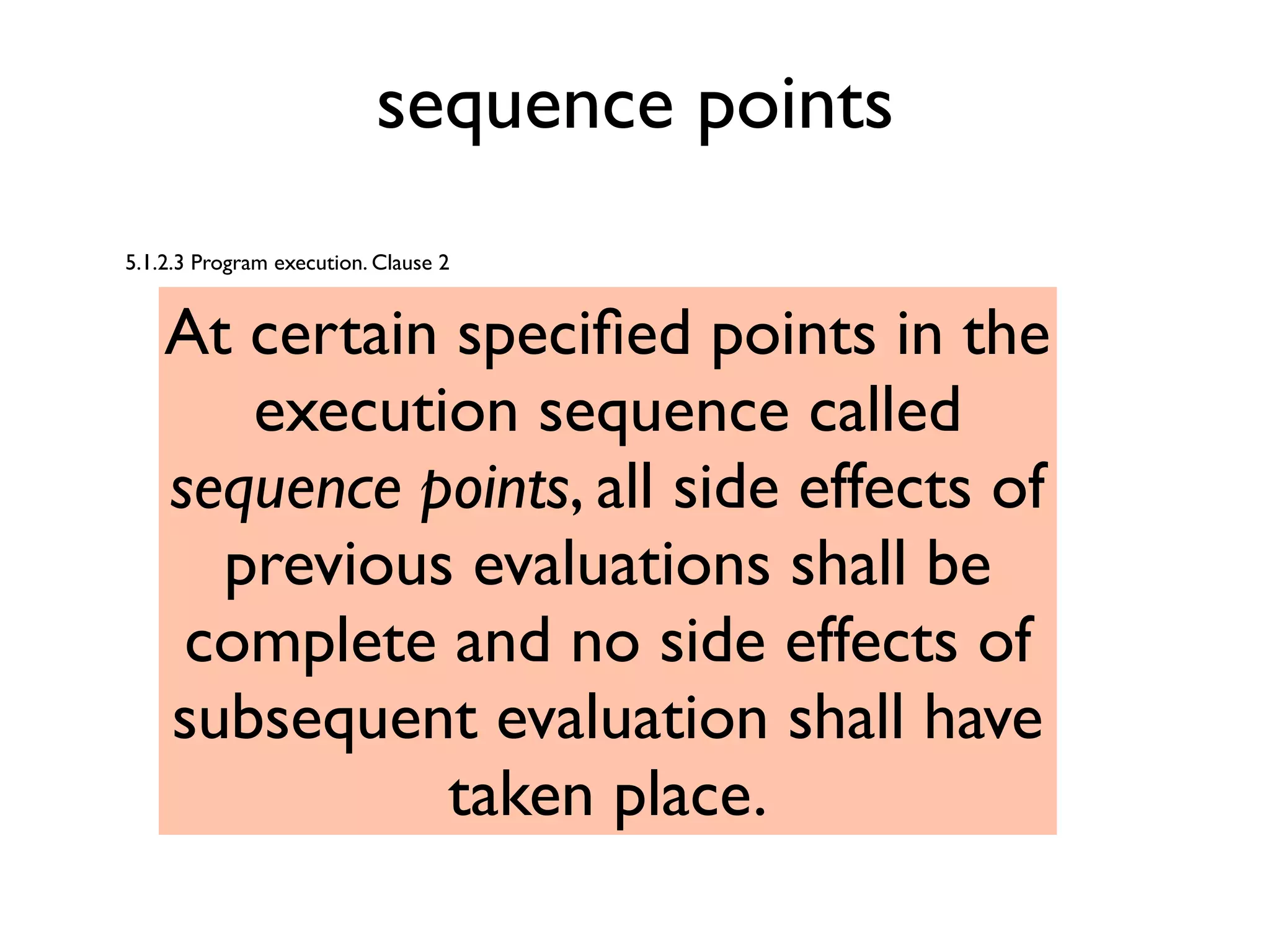
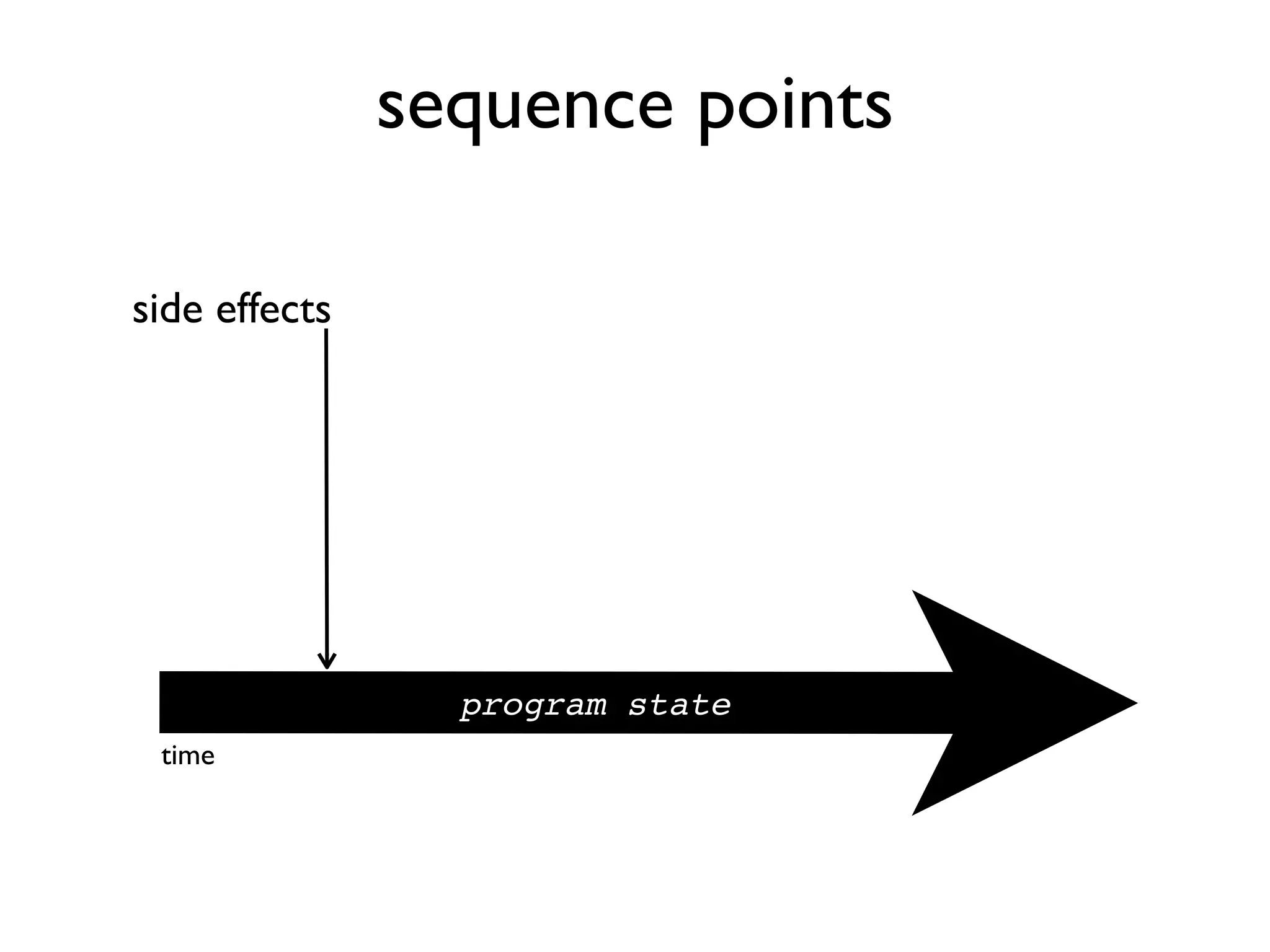
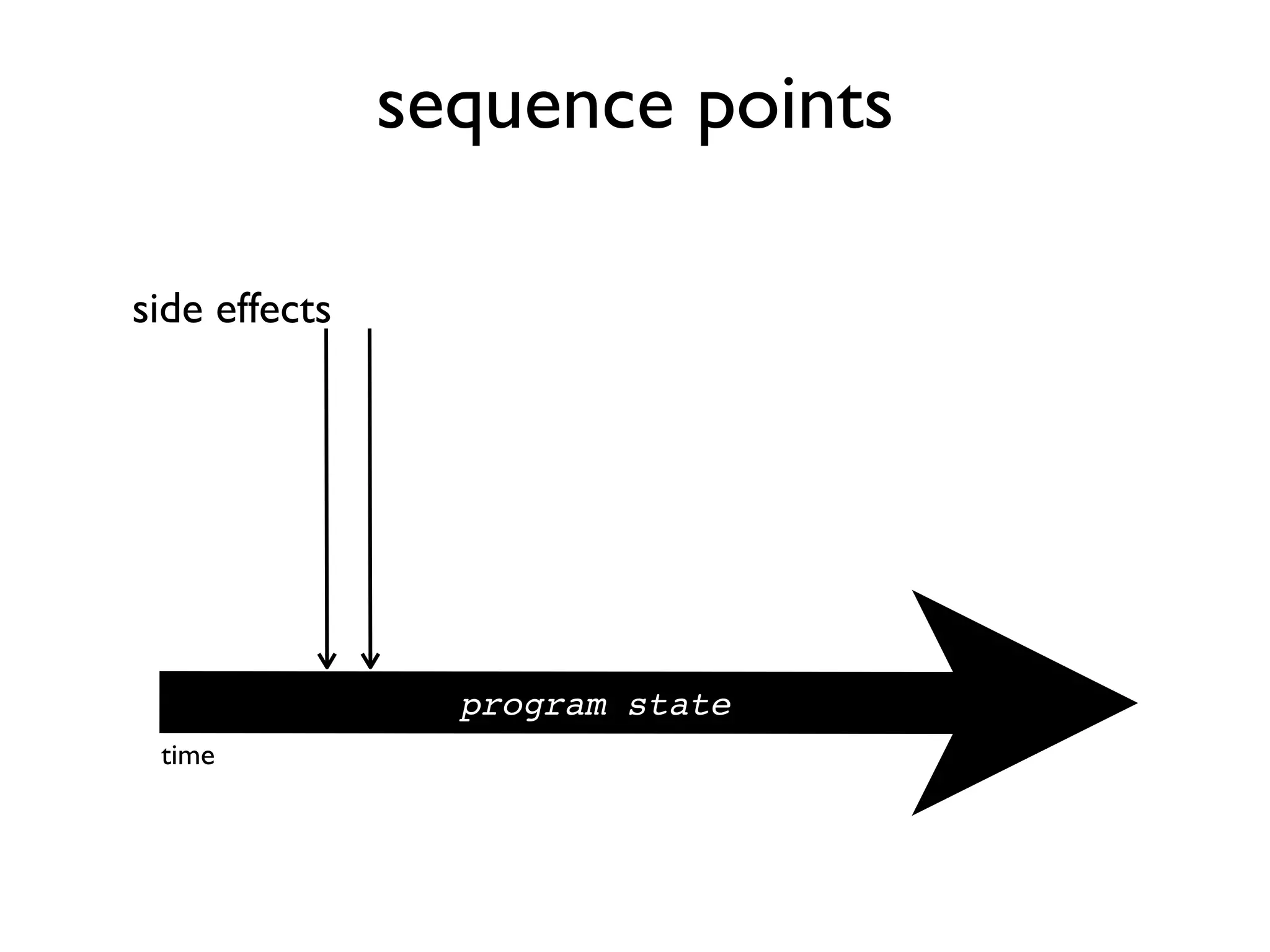
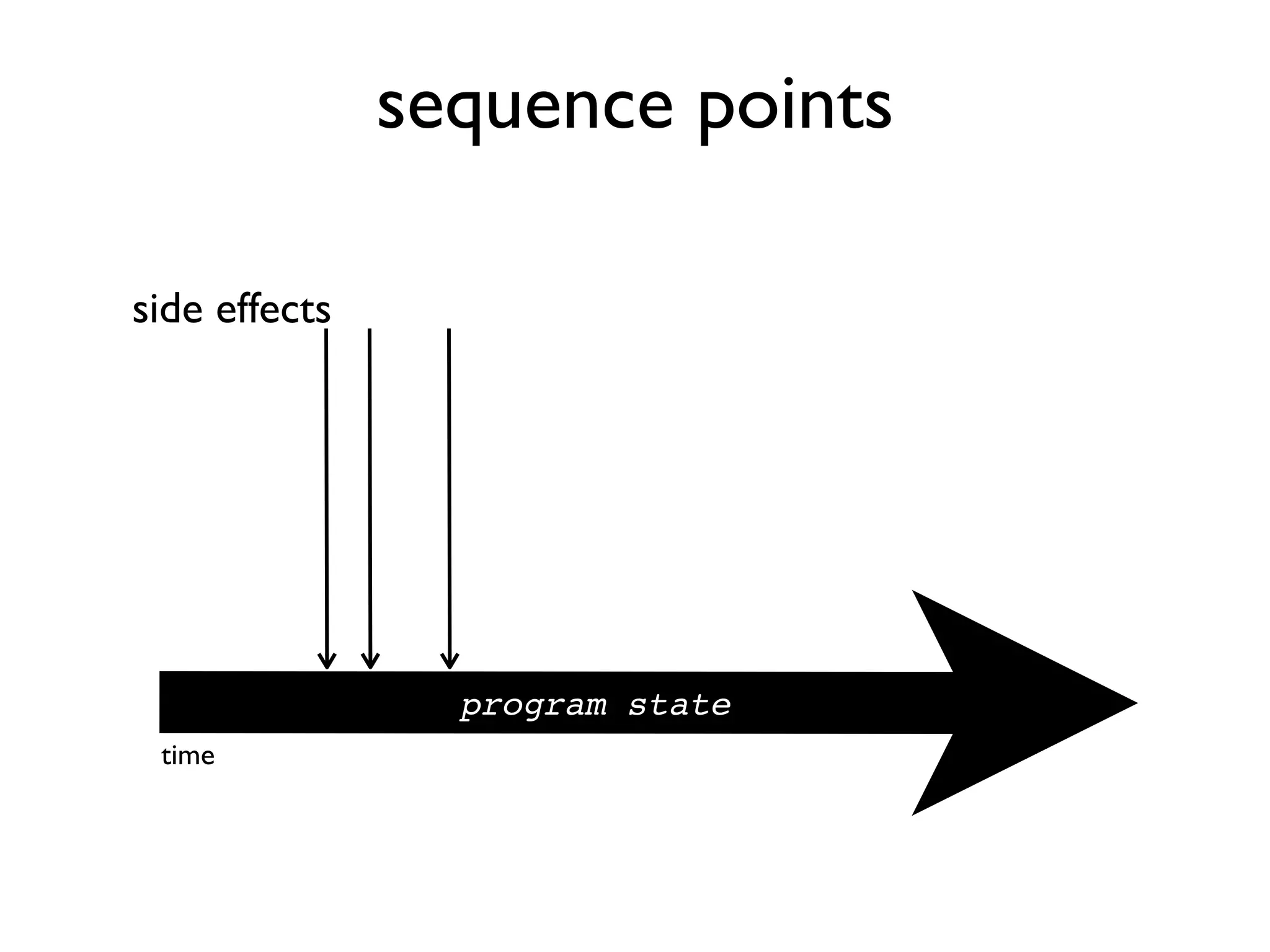
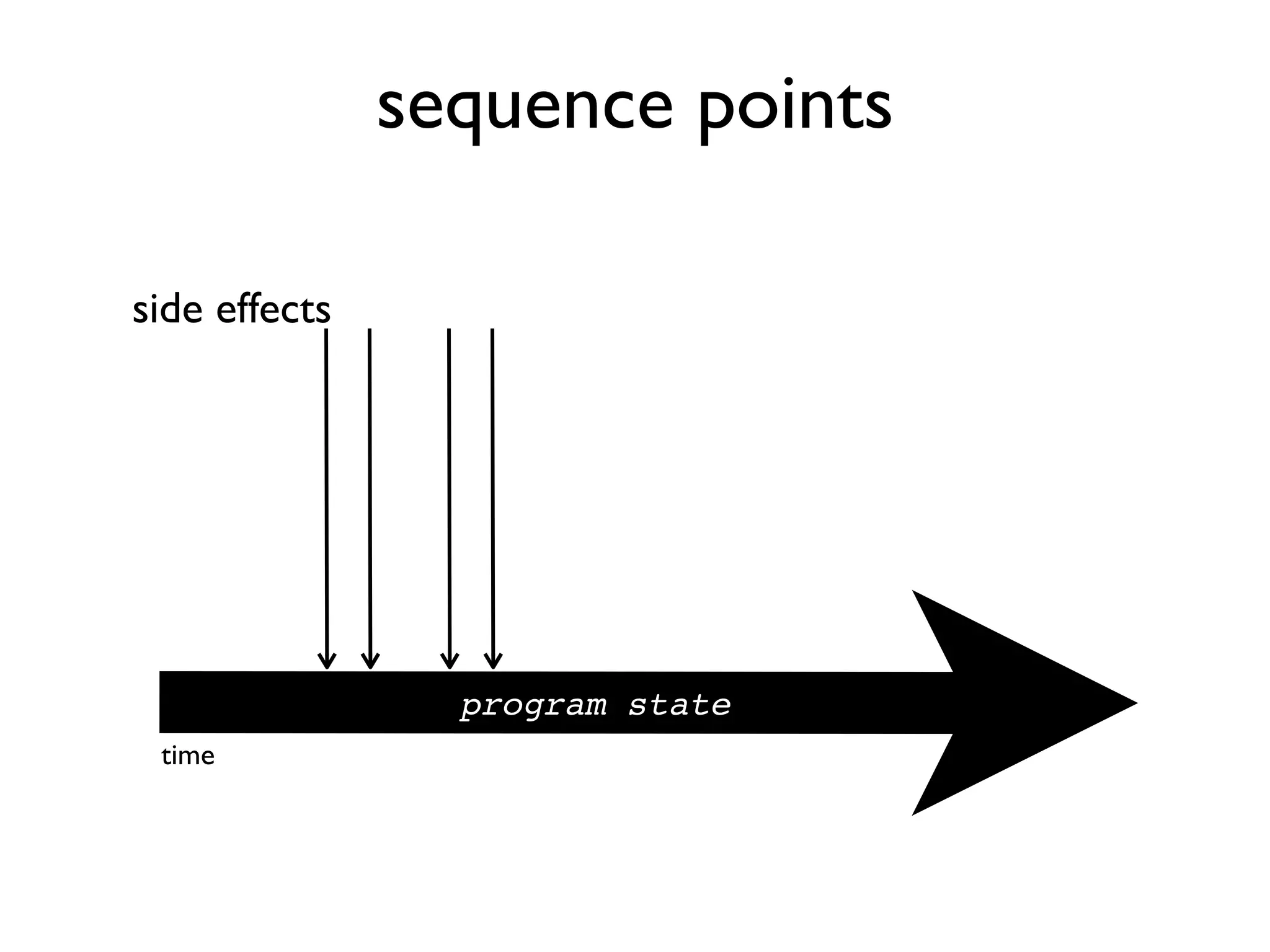
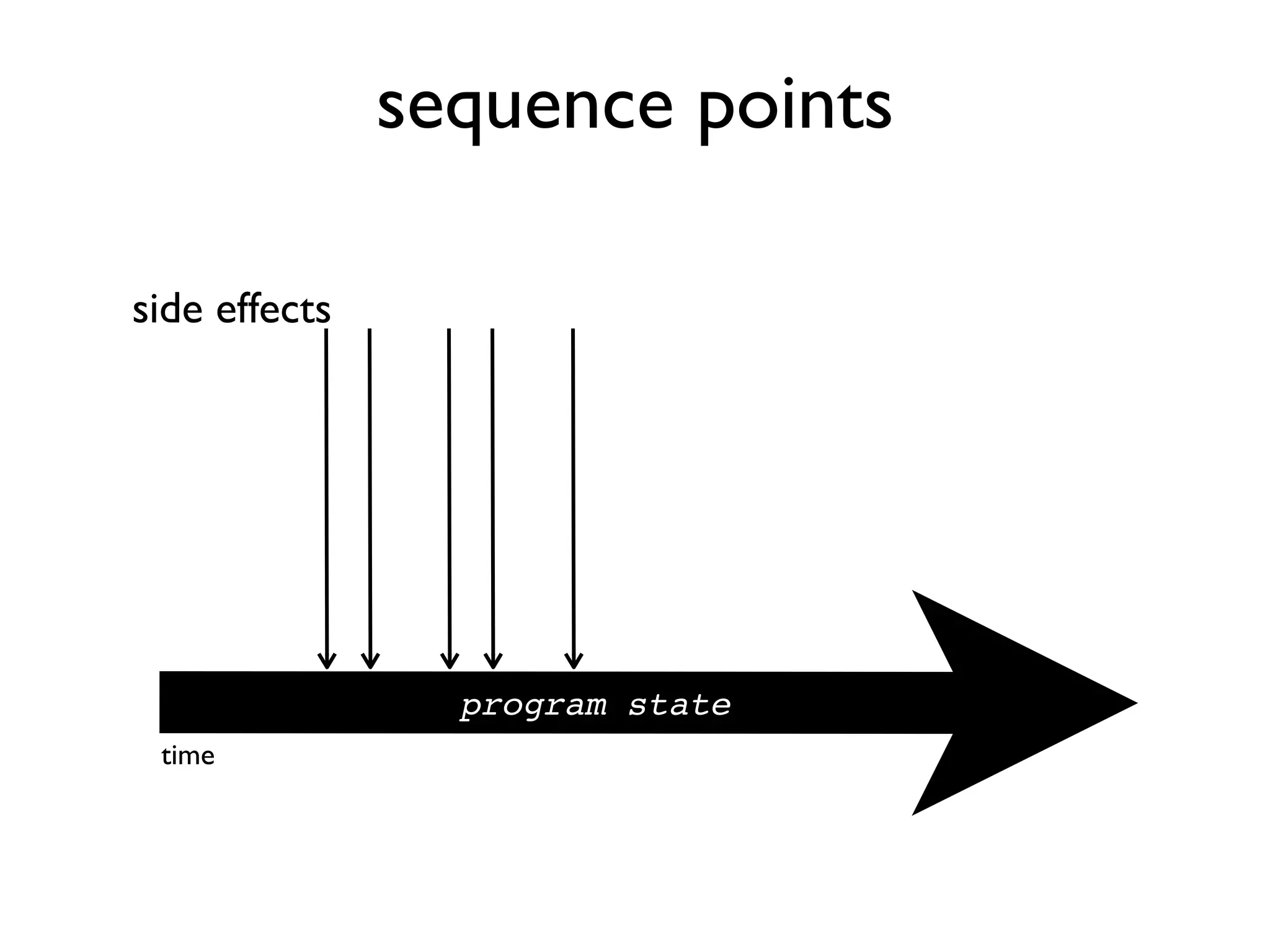
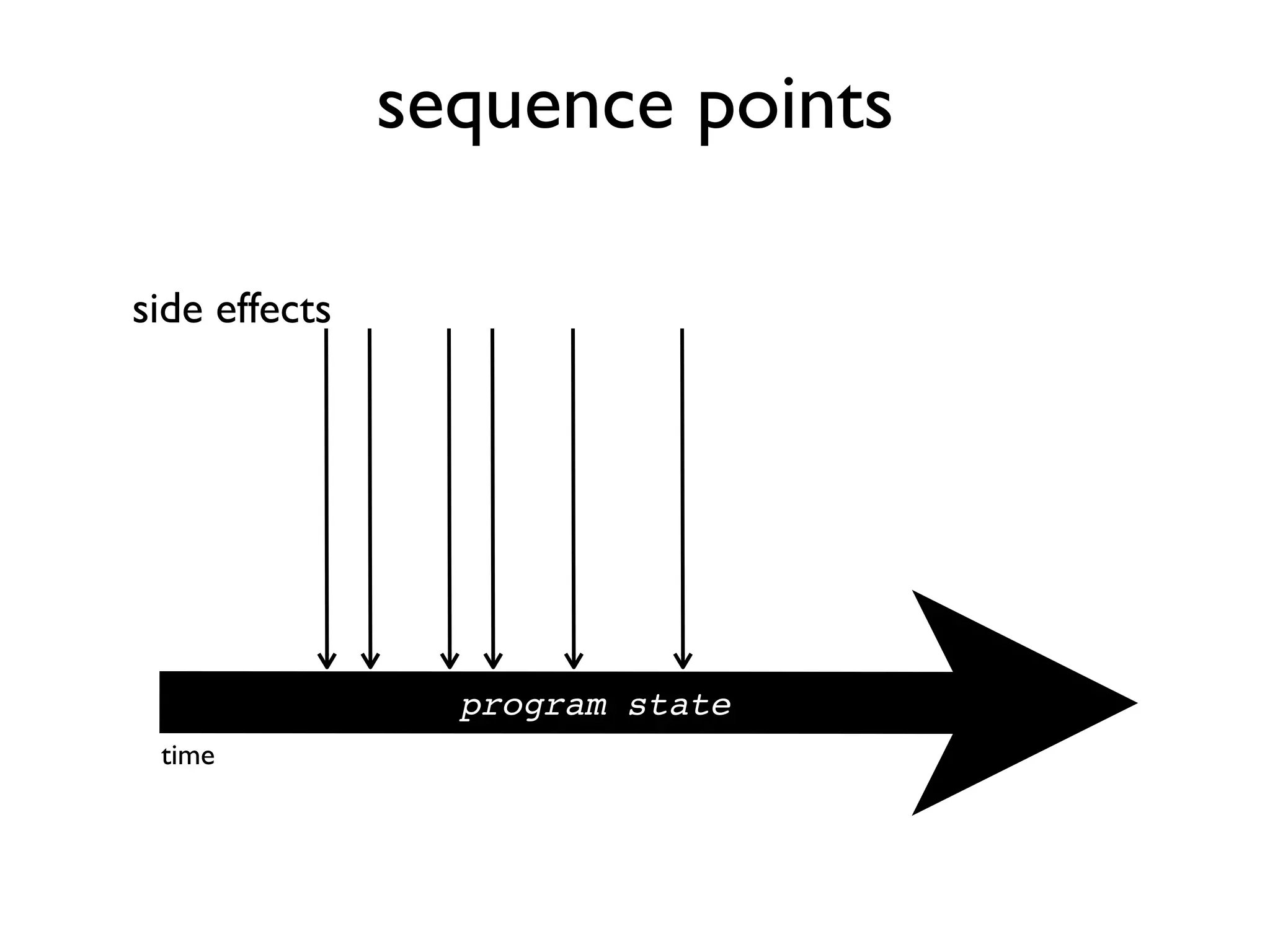
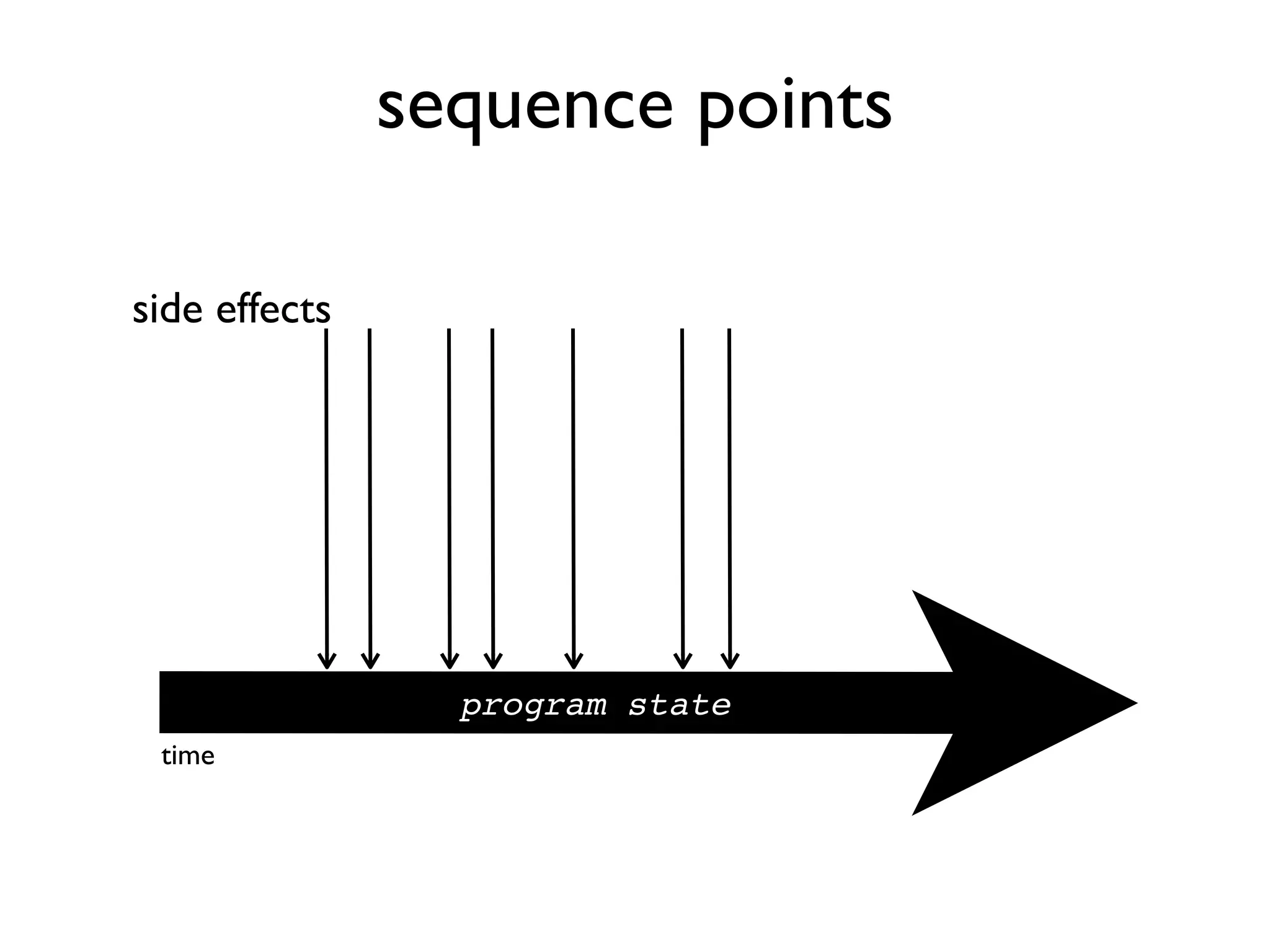
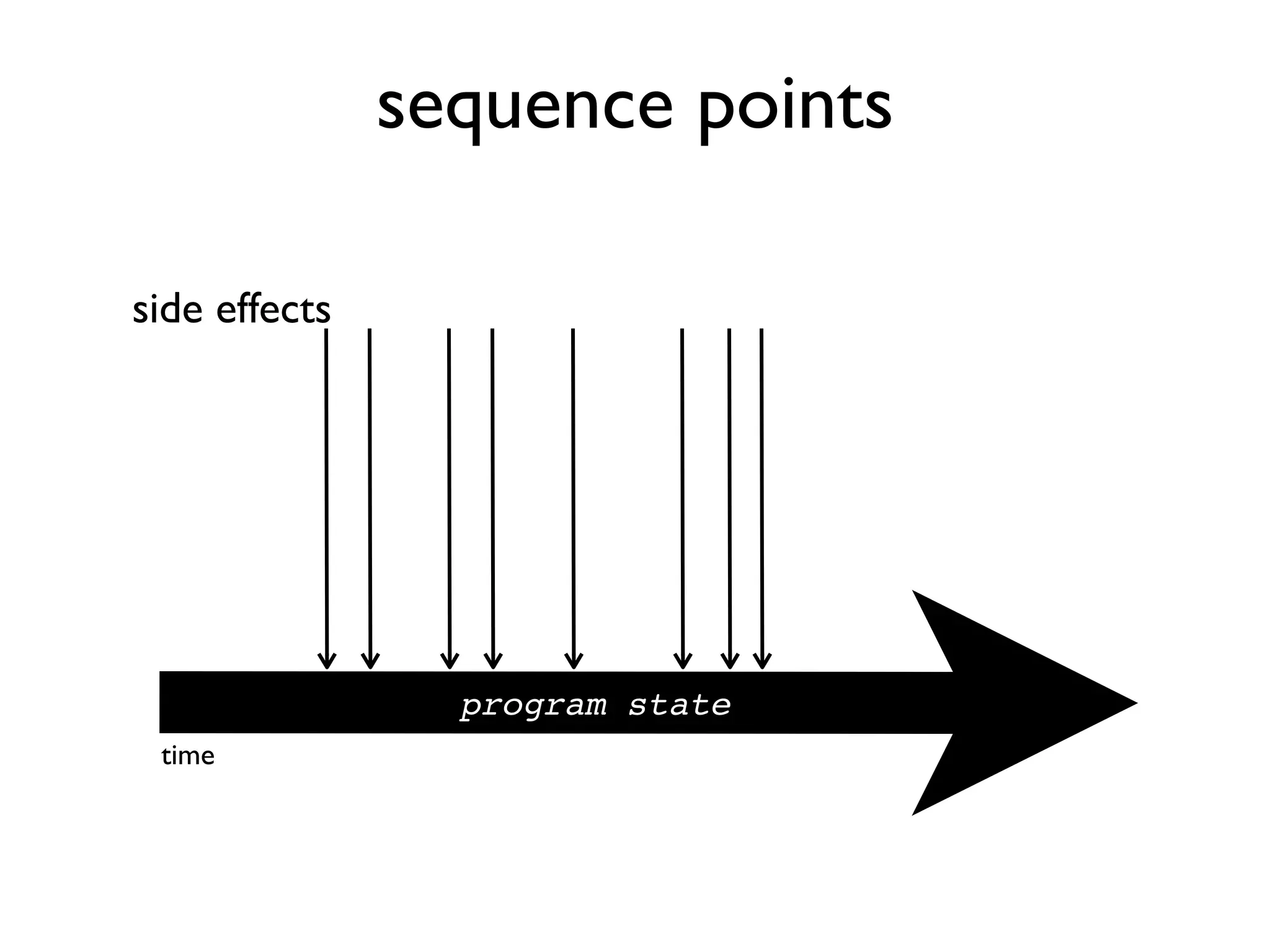
![sequence points
Most C and C++ programmers use an implicit
mental model made up of lots of sequence points,
progressing in a mostly left-to-right order.
i + v[++i] + v[++i]](https://image.slidesharecdn.com/cplusplusdevelopment-130516020503-phpapp01/75/Some-stuff-about-C-and-development-11-2048.jpg)
![sequence points
Most C and C++ programmers use an implicit
mental model made up of lots of sequence points,
progressing in a mostly left-to-right order.
i + v[++i] + v[++i]](https://image.slidesharecdn.com/cplusplusdevelopment-130516020503-phpapp01/75/Some-stuff-about-C-and-development-12-2048.jpg)
![sequence points
Most C and C++ programmers use an implicit
mental model made up of lots of sequence points,
progressing in a mostly left-to-right order.
i + v[++i] + v[++i]](https://image.slidesharecdn.com/cplusplusdevelopment-130516020503-phpapp01/75/Some-stuff-about-C-and-development-13-2048.jpg)
![sequence points
Most C and C++ programmers use an implicit
mental model made up of lots of sequence points,
progressing in a mostly left-to-right order.
i + v[++i] + v[++i]](https://image.slidesharecdn.com/cplusplusdevelopment-130516020503-phpapp01/75/Some-stuff-about-C-and-development-14-2048.jpg)
![sequence points
Most C and C++ programmers use an implicit
mental model made up of lots of sequence points,
progressing in a mostly left-to-right order.
i + v[++i] + v[++i]](https://image.slidesharecdn.com/cplusplusdevelopment-130516020503-phpapp01/75/Some-stuff-about-C-and-development-15-2048.jpg)
![sequence points
Most C and C++ programmers use an implicit
mental model made up of lots of sequence points,
progressing in a mostly left-to-right order.
i + v[++i] + v[++i]](https://image.slidesharecdn.com/cplusplusdevelopment-130516020503-phpapp01/75/Some-stuff-about-C-and-development-16-2048.jpg)
![sequence points
Most C and C++ programmers use an implicit
mental model made up of lots of sequence points,
progressing in a mostly left-to-right order.
i + v[++i] + v[++i]](https://image.slidesharecdn.com/cplusplusdevelopment-130516020503-phpapp01/75/Some-stuff-about-C-and-development-17-2048.jpg)
![sequence points
Most C and C++ programmers use an implicit
mental model made up of lots of sequence points,
progressing in a mostly left-to-right order.
i + v[++i] + v[++i]](https://image.slidesharecdn.com/cplusplusdevelopment-130516020503-phpapp01/75/Some-stuff-about-C-and-development-18-2048.jpg)
![sequence points
Most C and C++ programmers use an implicit
mental model made up of lots of sequence points,
progressing in a mostly left-to-right order.
i + v[++i] + v[++i]](https://image.slidesharecdn.com/cplusplusdevelopment-130516020503-phpapp01/75/Some-stuff-about-C-and-development-19-2048.jpg)
![sequence points
Most C and C++ programmers use an implicit
mental model made up of lots of sequence points,
progressing in a mostly left-to-right order.
i + v[++i] + v[++i]](https://image.slidesharecdn.com/cplusplusdevelopment-130516020503-phpapp01/75/Some-stuff-about-C-and-development-20-2048.jpg)
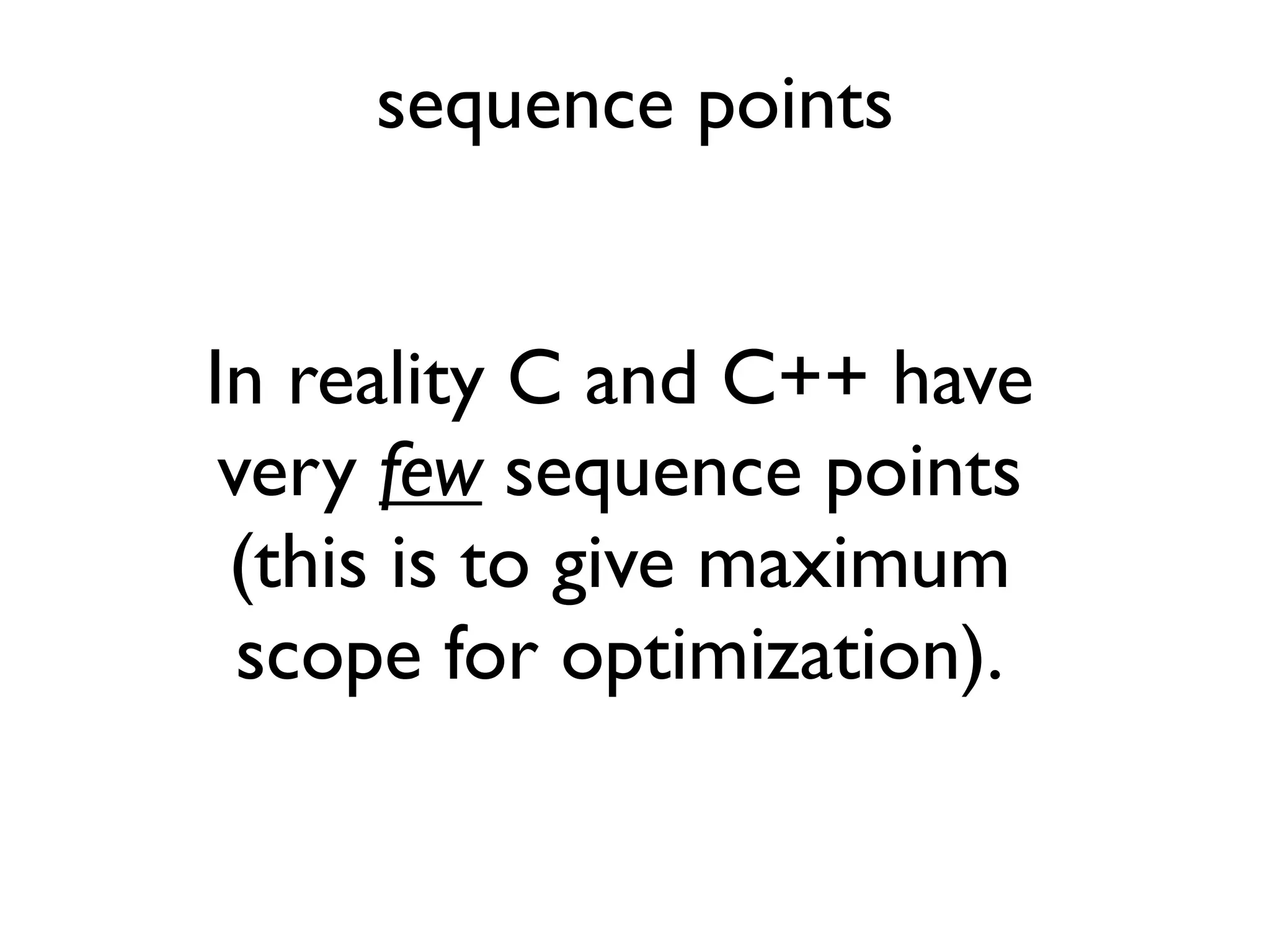
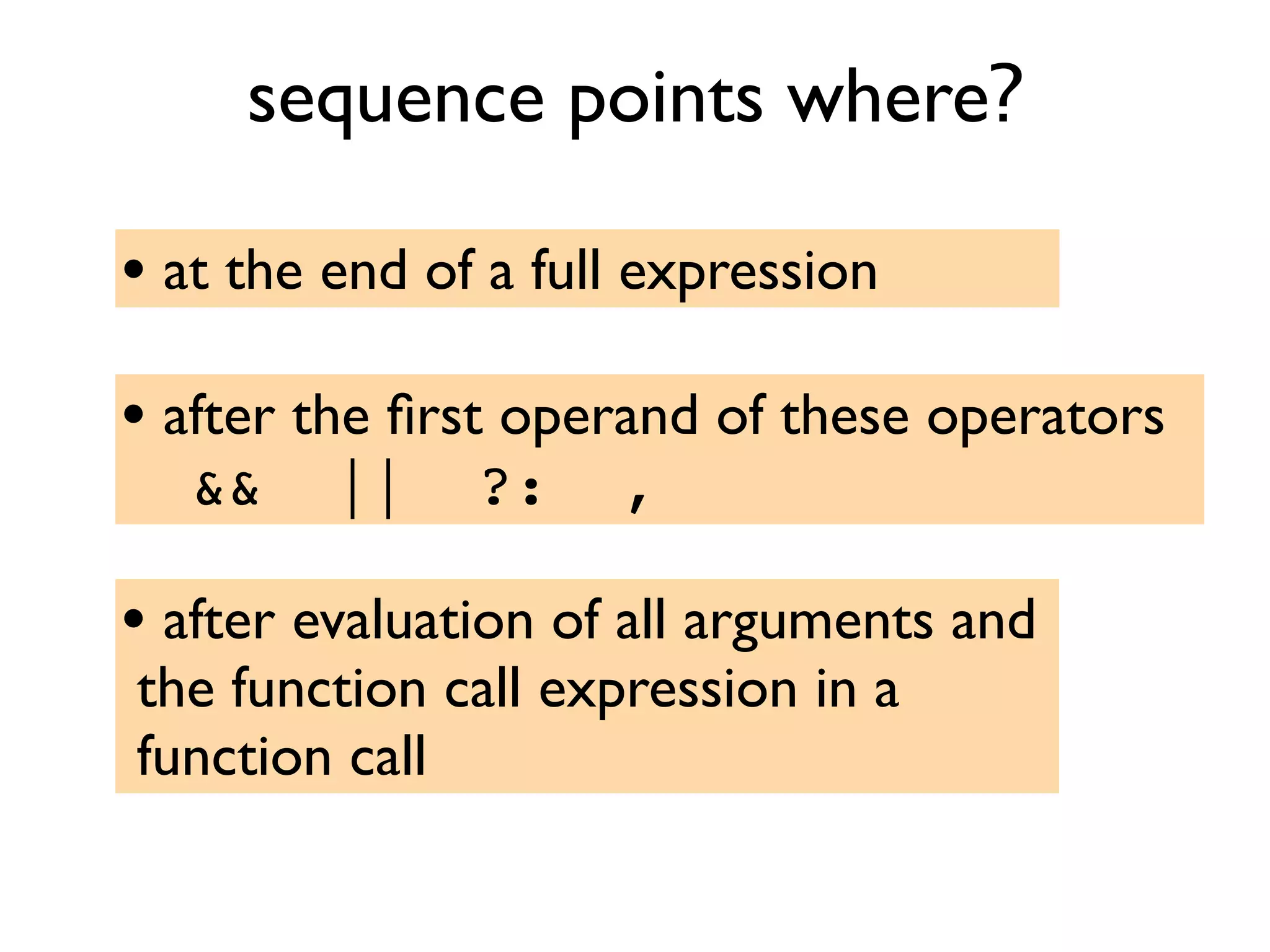
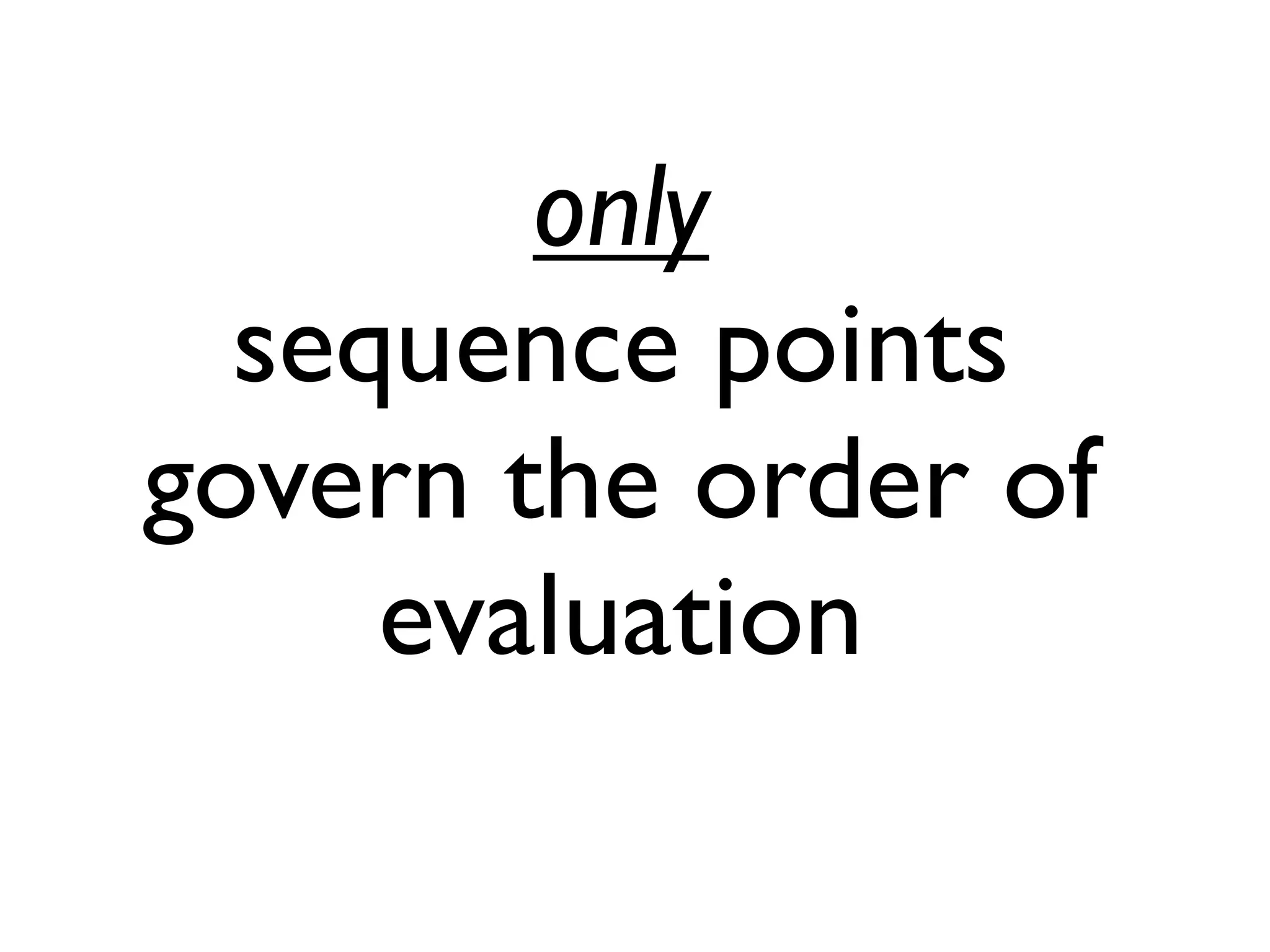

![sequence points
i = v[++i] + v[++i];
question: where are the
sequence points
in this statement ?](https://image.slidesharecdn.com/cplusplusdevelopment-130516020503-phpapp01/75/Some-stuff-about-C-and-development-25-2048.jpg)
![sequence points
i = v[++i] + v[++i];
answer: here!](https://image.slidesharecdn.com/cplusplusdevelopment-130516020503-phpapp01/75/Some-stuff-about-C-and-development-26-2048.jpg)
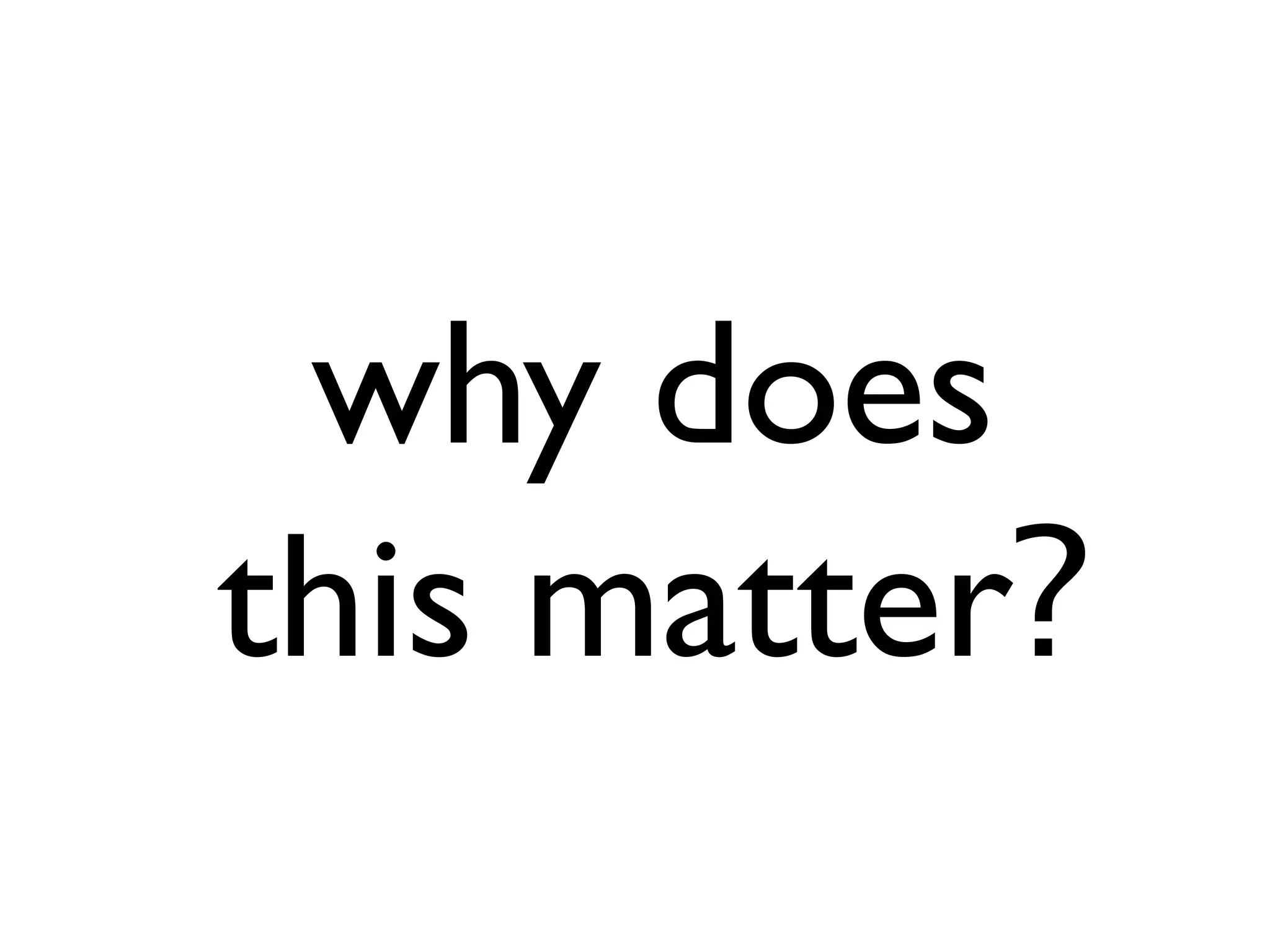


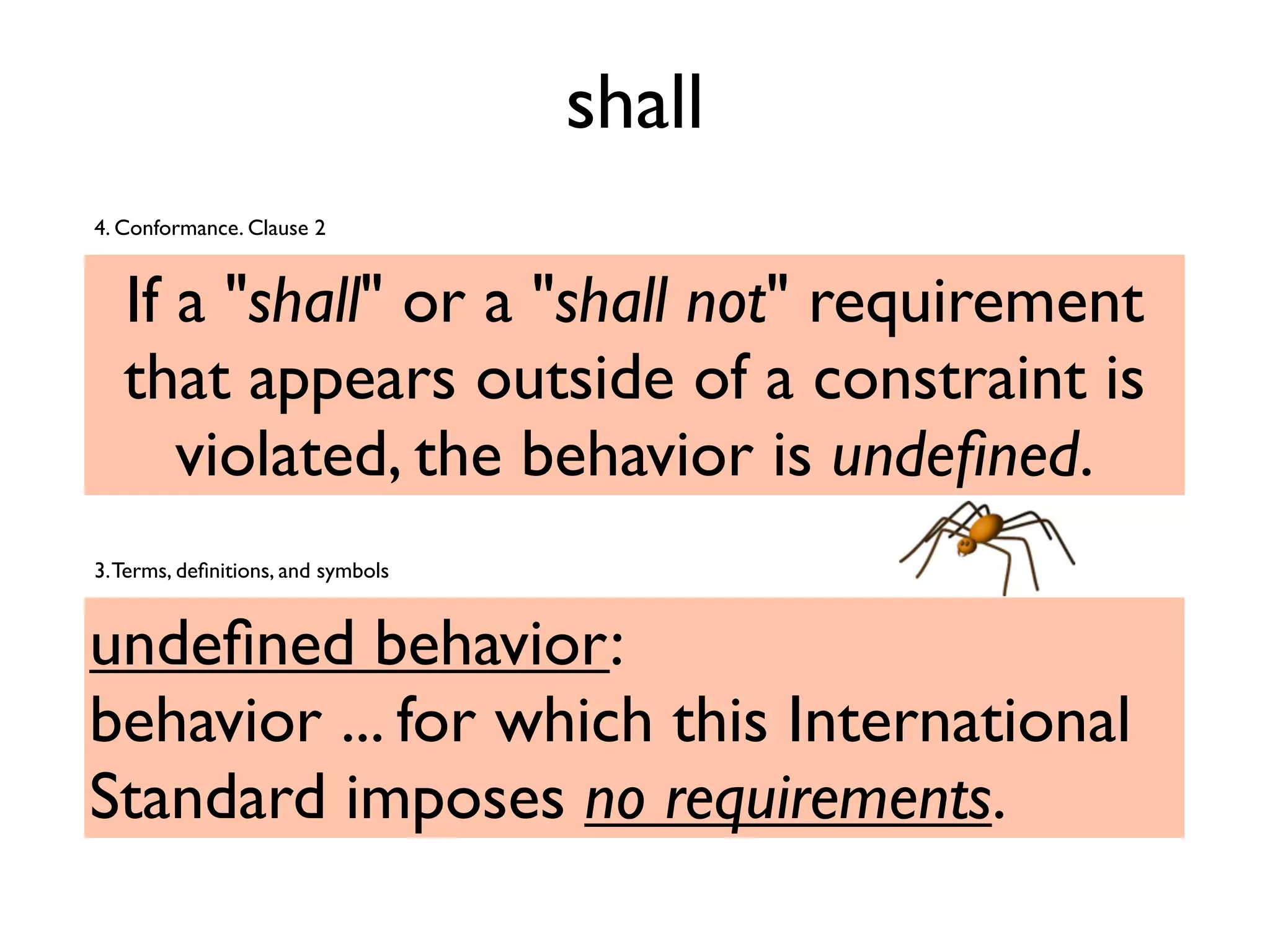
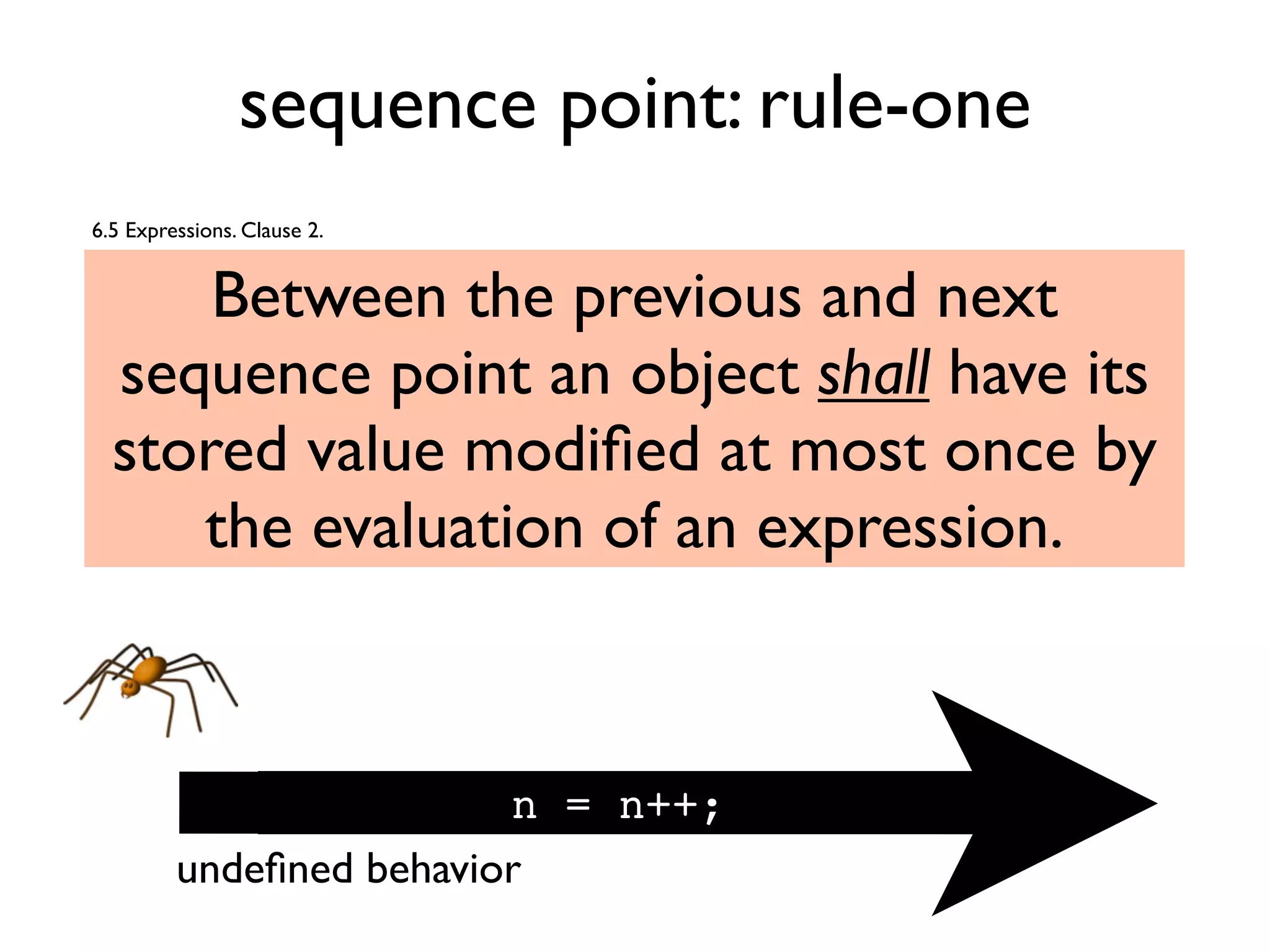
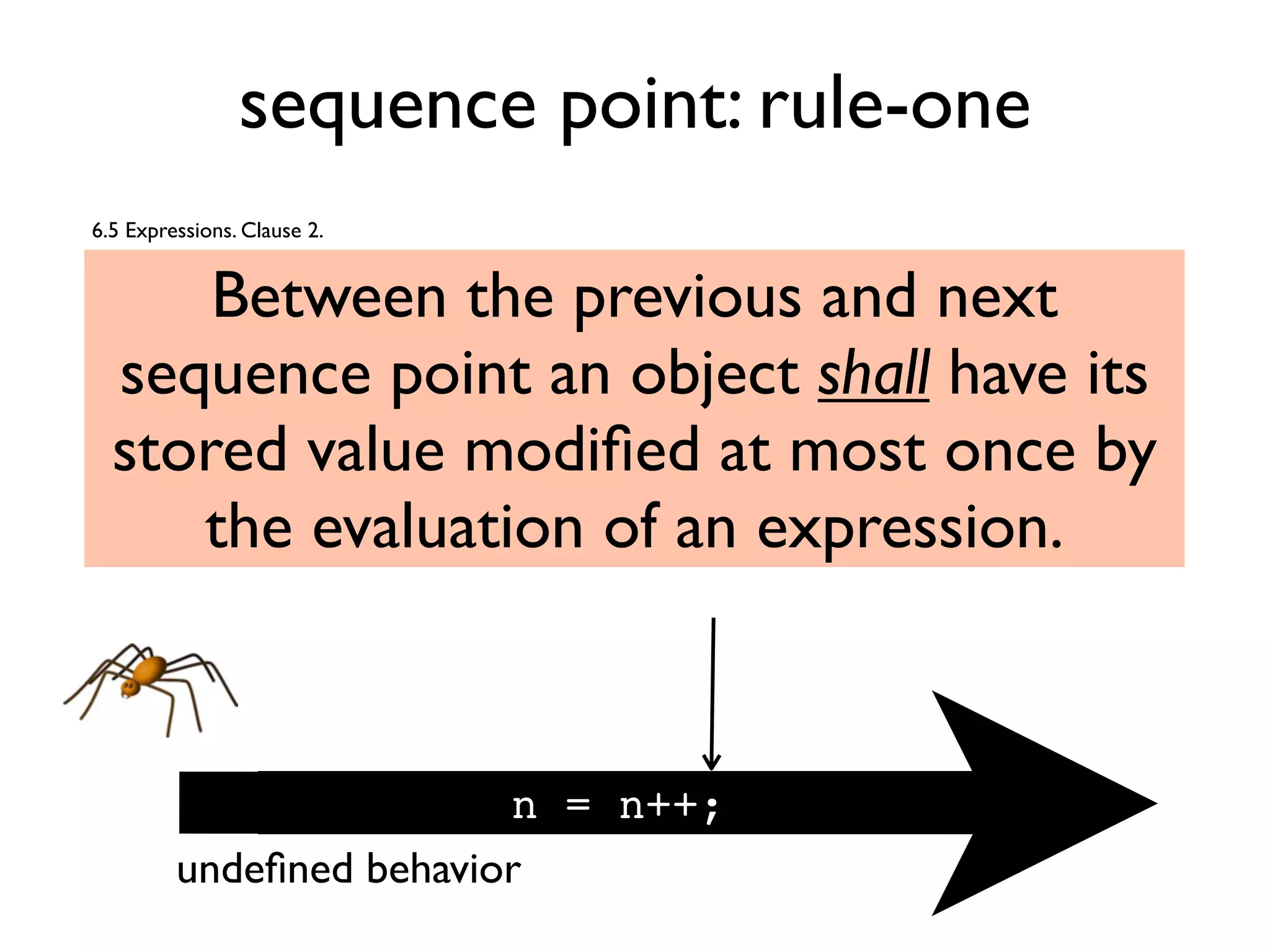
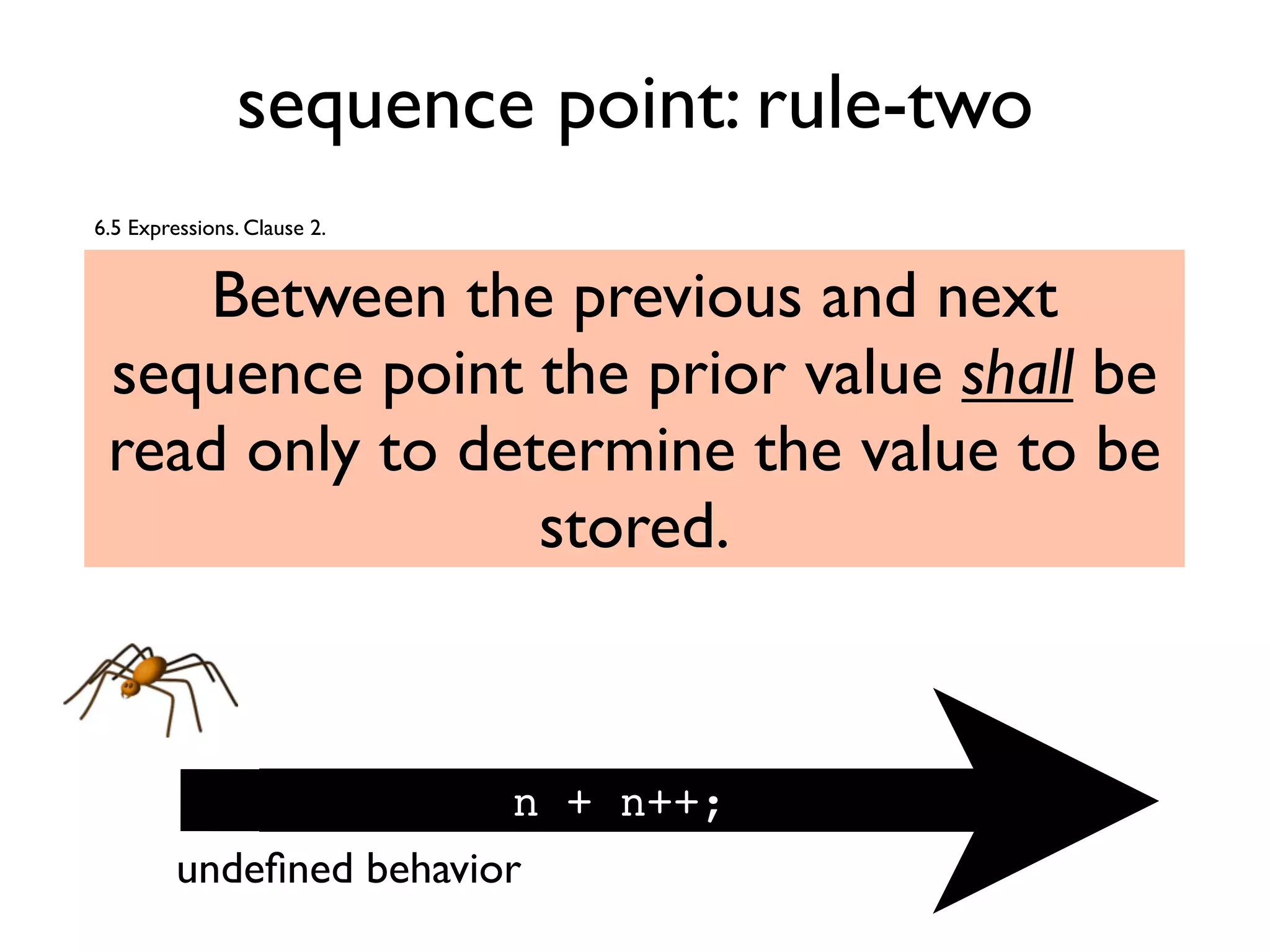
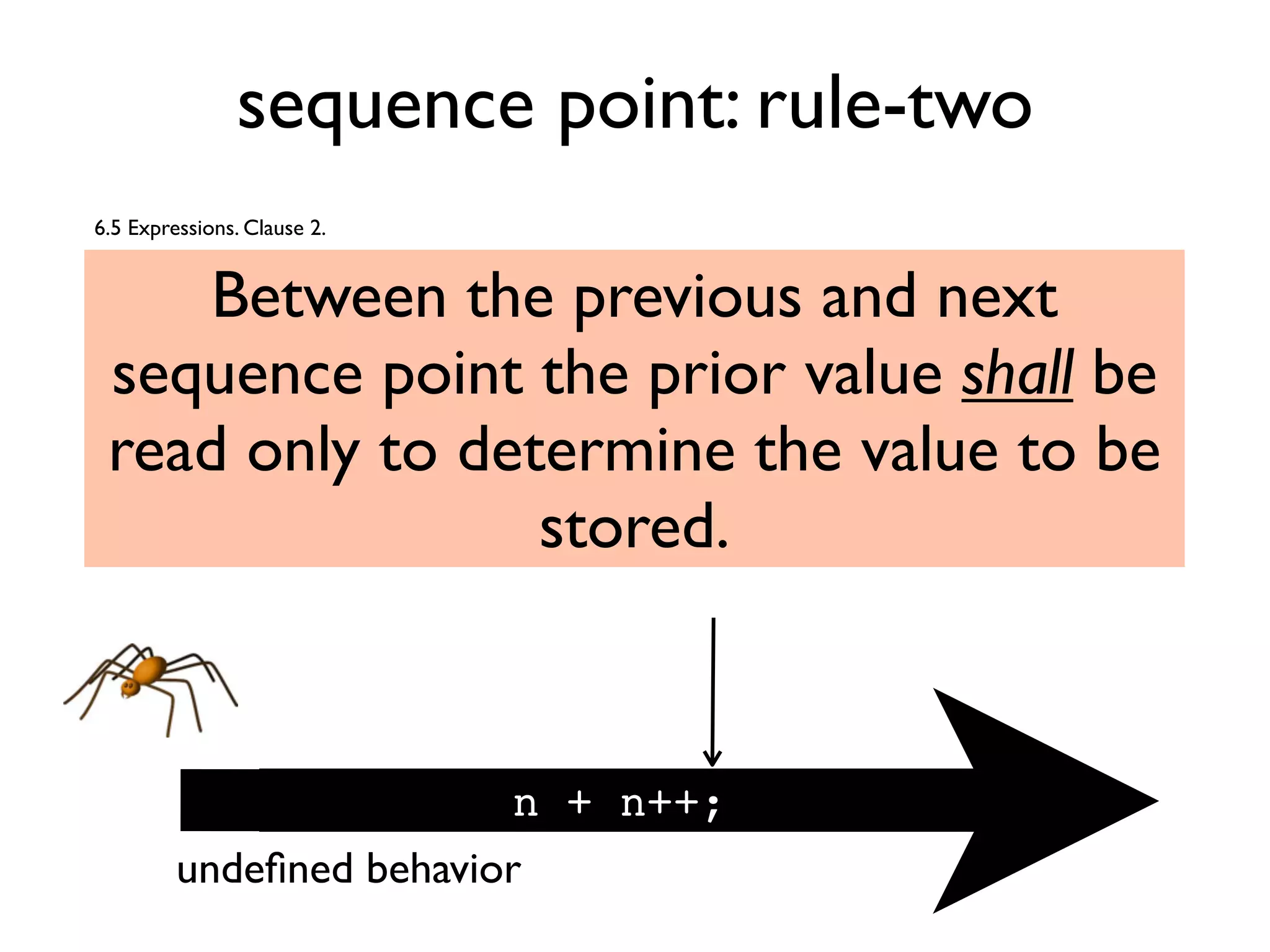
![example
#include <stdio.h>
int main(void)
{
int v[] = { 0,2,4,6,8 };
int i = 1;
int n = i + v[++i] + v[++i];
printf("%dn", n);
}
$ gcc foo.c && ./a.out
gcc
(Mac OS 10.8.2)
http://www.pvv.org/~oma/UnspecifiedAndUndefined_ACCU_Apr2013.pdf](https://image.slidesharecdn.com/cplusplusdevelopment-130516020503-phpapp01/75/Some-stuff-about-C-and-development-35-2048.jpg)
![example
#include <stdio.h>
int main(void)
{
int v[] = { 0,2,4,6,8 };
int i = 1;
int n = i + v[++i] + v[++i];
printf("%dn", n);
}
$ gcc foo.c && ./a.out
gcc
(Mac OS 10.8.2)
$ gcc foo.c && ./a.out
12
http://www.pvv.org/~oma/UnspecifiedAndUndefined_ACCU_Apr2013.pdf](https://image.slidesharecdn.com/cplusplusdevelopment-130516020503-phpapp01/75/Some-stuff-about-C-and-development-36-2048.jpg)
![example
#include <stdio.h>
int main(void)
{
int v[] = { 0,2,4,6,8 };
int i = 1;
int n = i + v[++i] + v[++i];
printf("%dn", n);
}
$ gcc foo.c && ./a.out
gcc
$ clang foo.c && ./a.out
clang
(Mac OS 10.8.2)
$ gcc foo.c && ./a.out
12
http://www.pvv.org/~oma/UnspecifiedAndUndefined_ACCU_Apr2013.pdf](https://image.slidesharecdn.com/cplusplusdevelopment-130516020503-phpapp01/75/Some-stuff-about-C-and-development-37-2048.jpg)
![example
#include <stdio.h>
int main(void)
{
int v[] = { 0,2,4,6,8 };
int i = 1;
int n = i + v[++i] + v[++i];
printf("%dn", n);
}
$ gcc foo.c && ./a.out
gcc
$ clang foo.c && ./a.out
clang
(Mac OS 10.8.2)
$ gcc foo.c && ./a.out
12
$ clang foo.c && ./a.out
11
http://www.pvv.org/~oma/UnspecifiedAndUndefined_ACCU_Apr2013.pdf](https://image.slidesharecdn.com/cplusplusdevelopment-130516020503-phpapp01/75/Some-stuff-about-C-and-development-38-2048.jpg)
![example
#include <stdio.h>
int main(void)
{
int v[] = { 0,2,4,6,8 };
int i = 1;
int n = i + v[++i] + v[++i];
printf("%dn", n);
}
$ gcc foo.c && ./a.out
gcc
$ clang foo.c && ./a.out
clang
$ icc foo.c && ./a.out
icc
(Mac OS 10.8.2)
$ gcc foo.c && ./a.out
12
$ clang foo.c && ./a.out
11
http://www.pvv.org/~oma/UnspecifiedAndUndefined_ACCU_Apr2013.pdf](https://image.slidesharecdn.com/cplusplusdevelopment-130516020503-phpapp01/75/Some-stuff-about-C-and-development-39-2048.jpg)
![example
#include <stdio.h>
int main(void)
{
int v[] = { 0,2,4,6,8 };
int i = 1;
int n = i + v[++i] + v[++i];
printf("%dn", n);
}
$ gcc foo.c && ./a.out
gcc
$ clang foo.c && ./a.out
clang
$ icc foo.c && ./a.out
icc
(Mac OS 10.8.2)
$ gcc foo.c && ./a.out
12
$ clang foo.c && ./a.out
11
$ icc foo.c && ./a.out
13
http://www.pvv.org/~oma/UnspecifiedAndUndefined_ACCU_Apr2013.pdf](https://image.slidesharecdn.com/cplusplusdevelopment-130516020503-phpapp01/75/Some-stuff-about-C-and-development-40-2048.jpg)
![a reference to
a[i]
can also be written as
*(a+i)
5.3 Pointers and Arrays](https://image.slidesharecdn.com/cplusplusdevelopment-130516020503-phpapp01/75/Some-stuff-about-C-and-development-41-2048.jpg)
![example
#include <stdio.h>
int main(void)
{
int src[] = { 1,2,3,4 };
int dst[] = { 0,0,0,0 };
int i = 1;
dst[i] = src[i++];
printf("%d %d %d %dn",
dst[0], dst[1],
dst[2], dst[3]);
}
$ gcc *.c && ./a.out
gcc 4.8.0 20130210](https://image.slidesharecdn.com/cplusplusdevelopment-130516020503-phpapp01/75/Some-stuff-about-C-and-development-42-2048.jpg)
![example
#include <stdio.h>
int main(void)
{
int src[] = { 1,2,3,4 };
int dst[] = { 0,0,0,0 };
int i = 1;
dst[i] = src[i++];
printf("%d %d %d %dn",
dst[0], dst[1],
dst[2], dst[3]);
}
$ gcc *.c && ./a.out$ gcc *.c && ./a.out
0 2 0 0
gcc 4.8.0 20130210](https://image.slidesharecdn.com/cplusplusdevelopment-130516020503-phpapp01/75/Some-stuff-about-C-and-development-43-2048.jpg)
![example
#include <stdio.h>
int main(void)
{
int src[] = { 1,2,3,4 };
int dst[] = { 0,0,0,0 };
int i = 1;
dst[i] = src[i++];
printf("%d %d %d %dn",
dst[0], dst[1],
dst[2], dst[3]);
}
$ gcc *.c && ./a.out$ gcc *.c && ./a.out
0 2 0 0
gcc 4.8.0 20130210
#include <stdio.h>
int main(void)
{
int src[] = { 1,2,3,4 };
int dst[] = { 0,0,0,0 };
int i = 1;
*(dst + i) = *(src + i++);
printf("%d %d %d %dn",
dst[0], dst[1],
dst[2], dst[3]);
}](https://image.slidesharecdn.com/cplusplusdevelopment-130516020503-phpapp01/75/Some-stuff-about-C-and-development-44-2048.jpg)
![example
#include <stdio.h>
int main(void)
{
int src[] = { 1,2,3,4 };
int dst[] = { 0,0,0,0 };
int i = 1;
dst[i] = src[i++];
printf("%d %d %d %dn",
dst[0], dst[1],
dst[2], dst[3]);
}
$ gcc *.c && ./a.out $ gcc *.c && ./a.out$ gcc *.c && ./a.out
0 2 0 0
gcc 4.8.0 20130210
#include <stdio.h>
int main(void)
{
int src[] = { 1,2,3,4 };
int dst[] = { 0,0,0,0 };
int i = 1;
*(dst + i) = *(src + i++);
printf("%d %d %d %dn",
dst[0], dst[1],
dst[2], dst[3]);
}](https://image.slidesharecdn.com/cplusplusdevelopment-130516020503-phpapp01/75/Some-stuff-about-C-and-development-45-2048.jpg)
![example
#include <stdio.h>
int main(void)
{
int src[] = { 1,2,3,4 };
int dst[] = { 0,0,0,0 };
int i = 1;
dst[i] = src[i++];
printf("%d %d %d %dn",
dst[0], dst[1],
dst[2], dst[3]);
}
$ gcc *.c && ./a.out $ gcc *.c && ./a.out$ gcc *.c && ./a.out
0 2 0 0
$ gcc *.c && ./a.out
0 0 2 0
gcc 4.8.0 20130210
#include <stdio.h>
int main(void)
{
int src[] = { 1,2,3,4 };
int dst[] = { 0,0,0,0 };
int i = 1;
*(dst + i) = *(src + i++);
printf("%d %d %d %dn",
dst[0], dst[1],
dst[2], dst[3]);
}](https://image.slidesharecdn.com/cplusplusdevelopment-130516020503-phpapp01/75/Some-stuff-about-C-and-development-46-2048.jpg)


